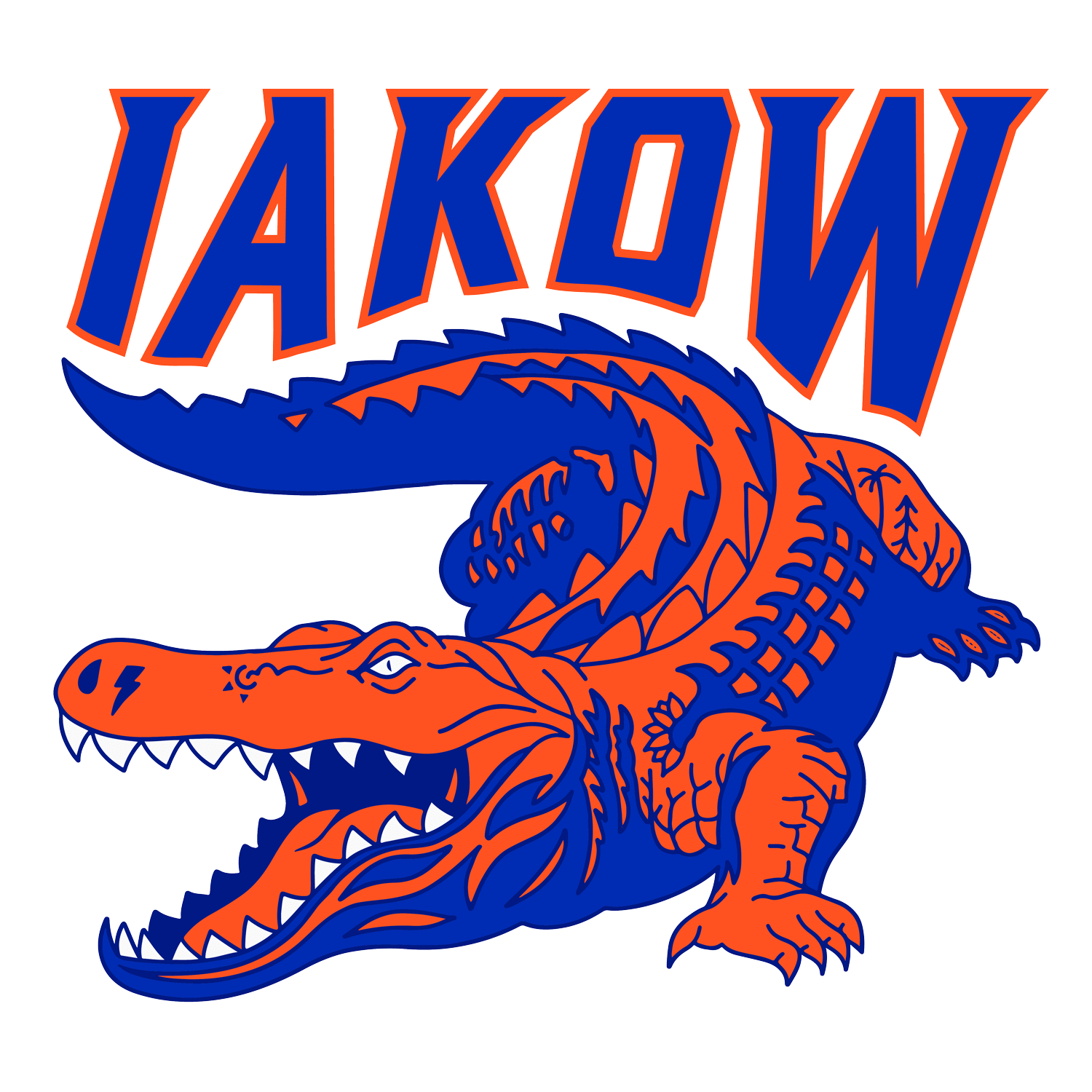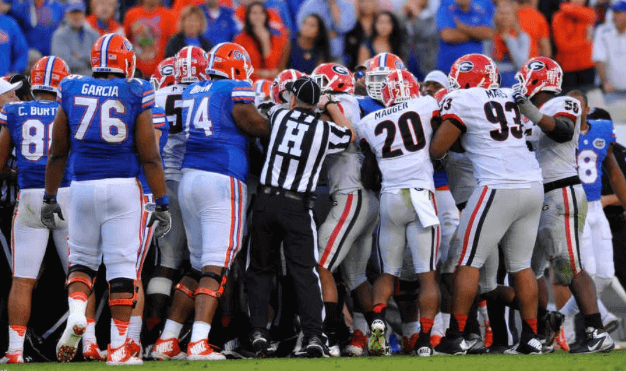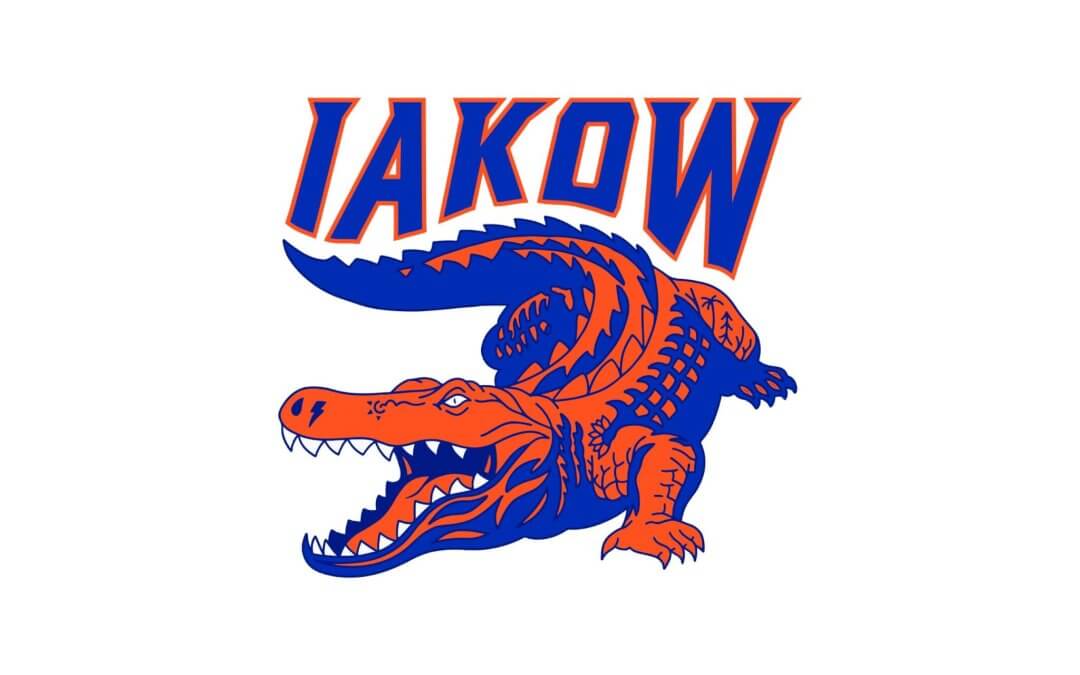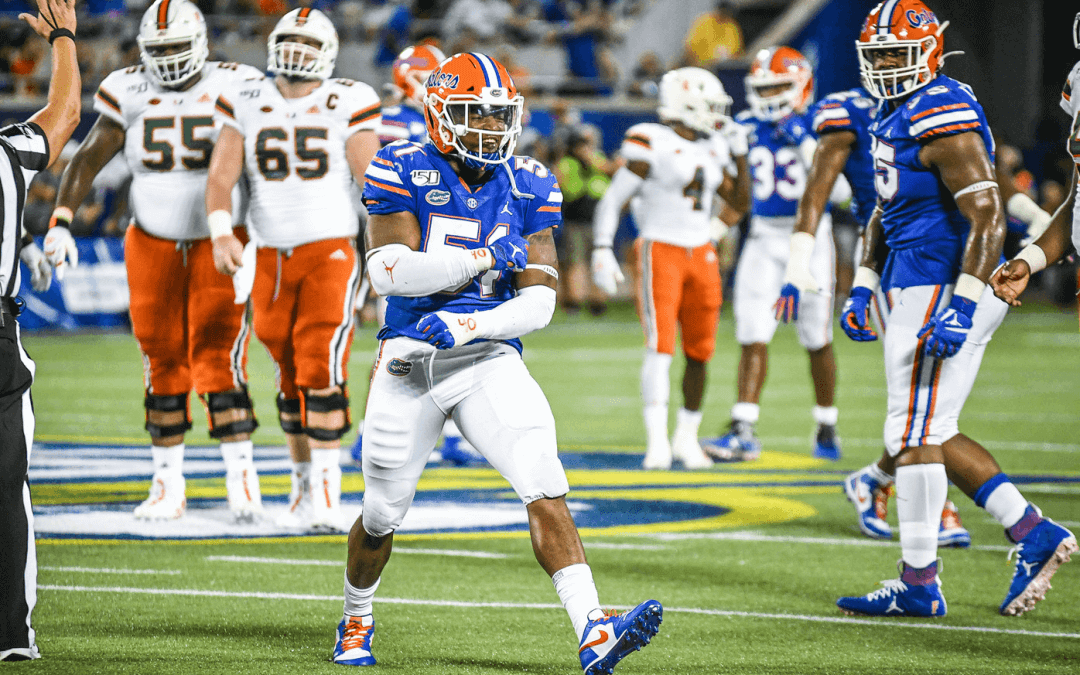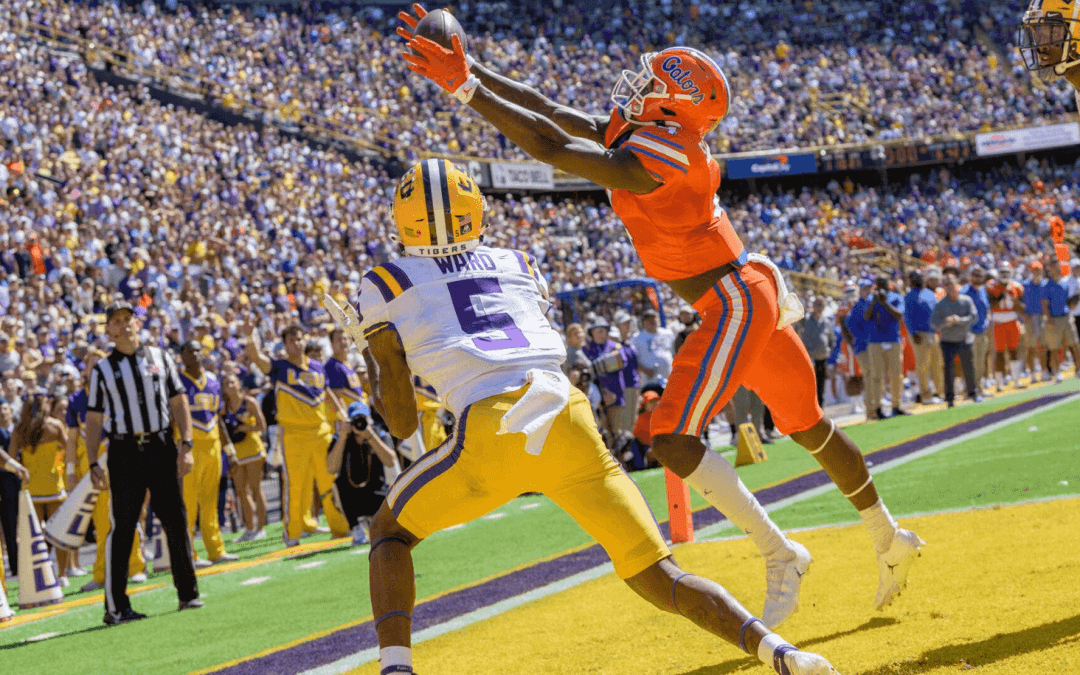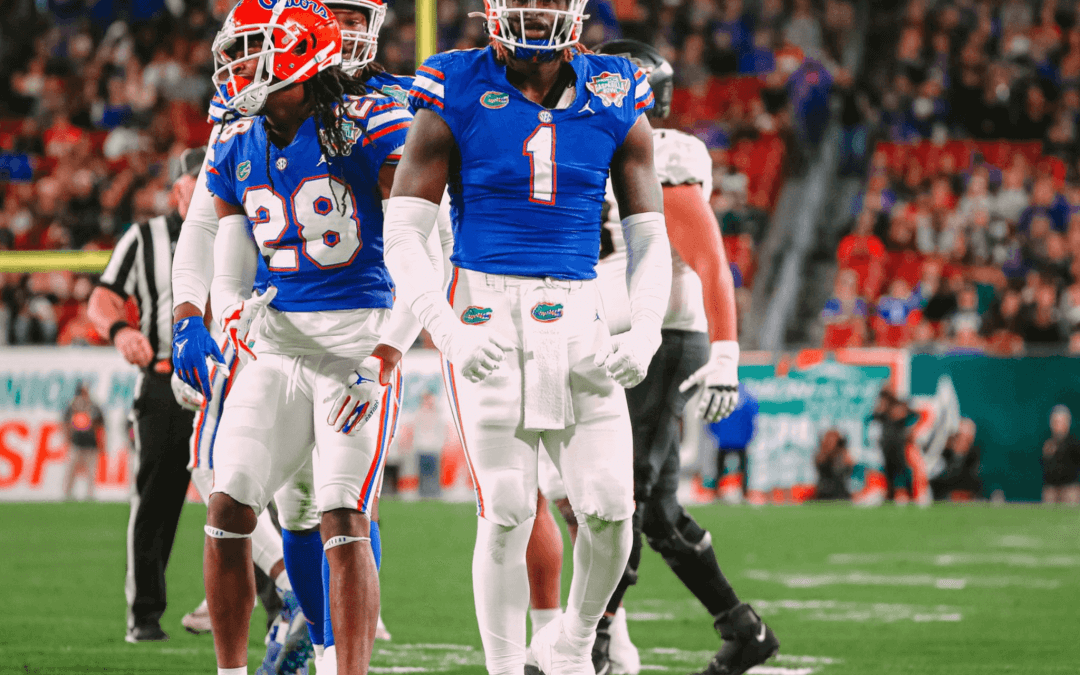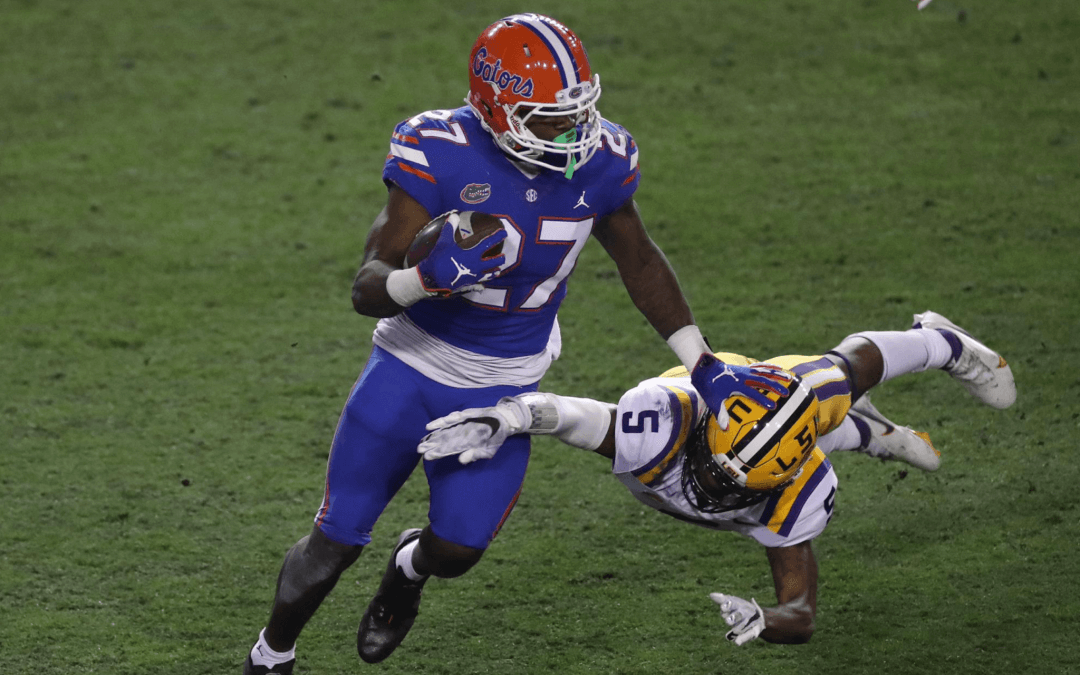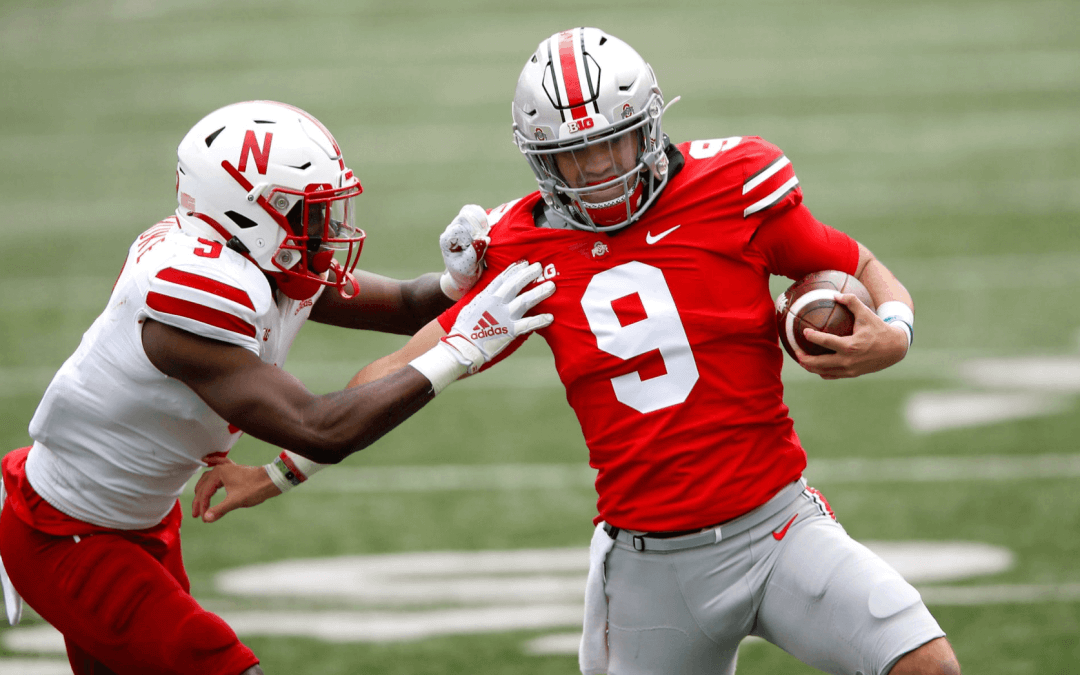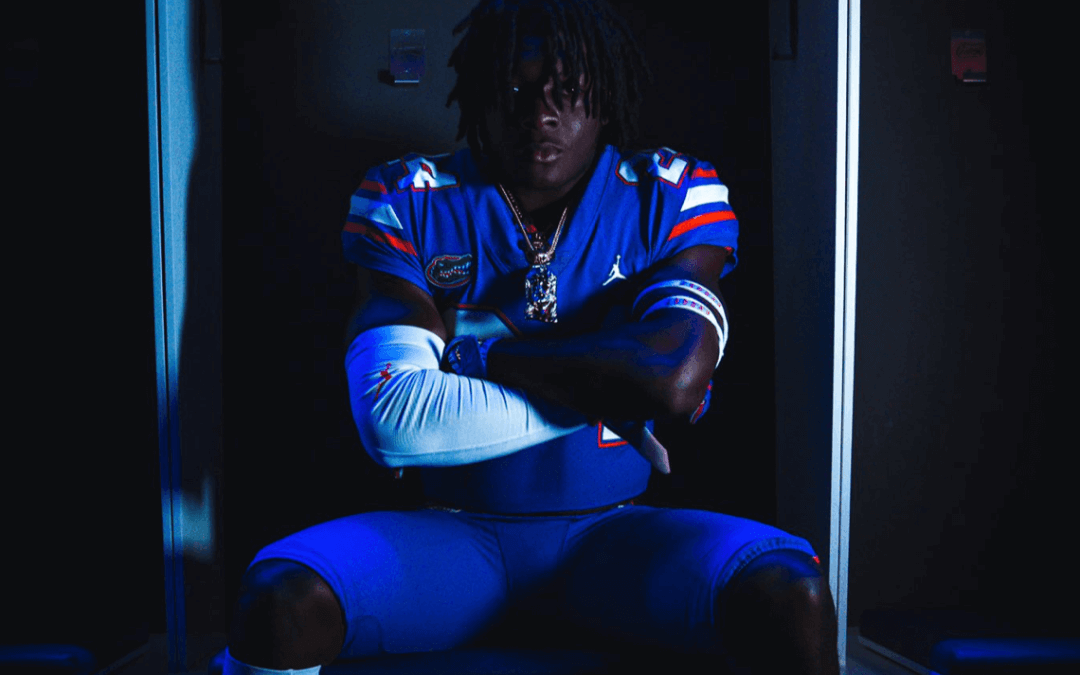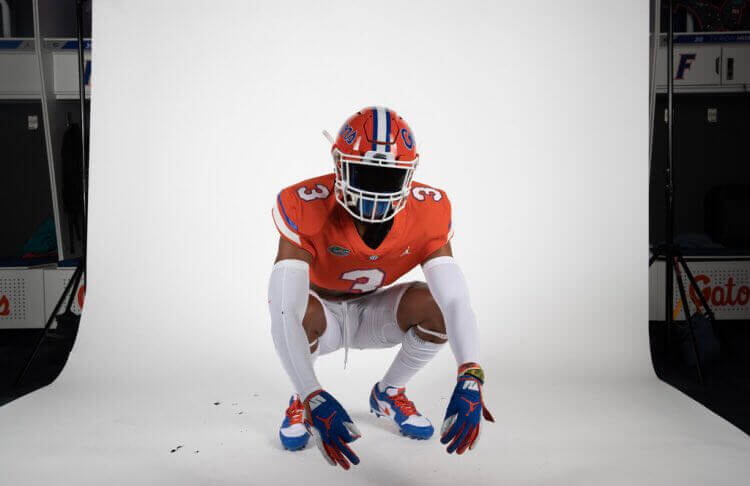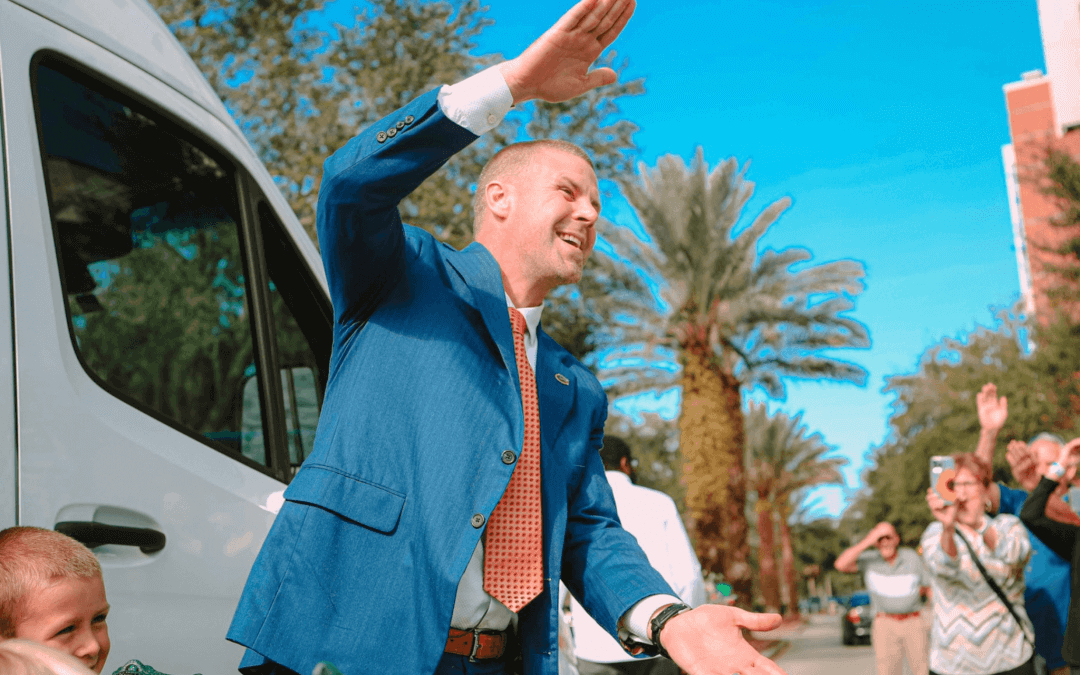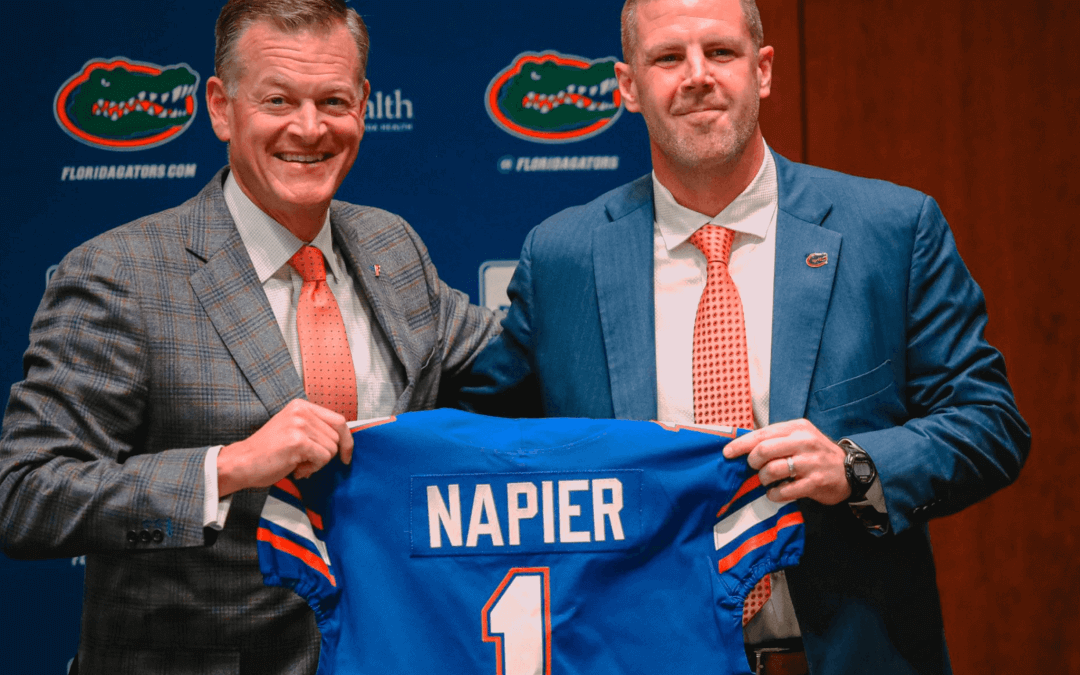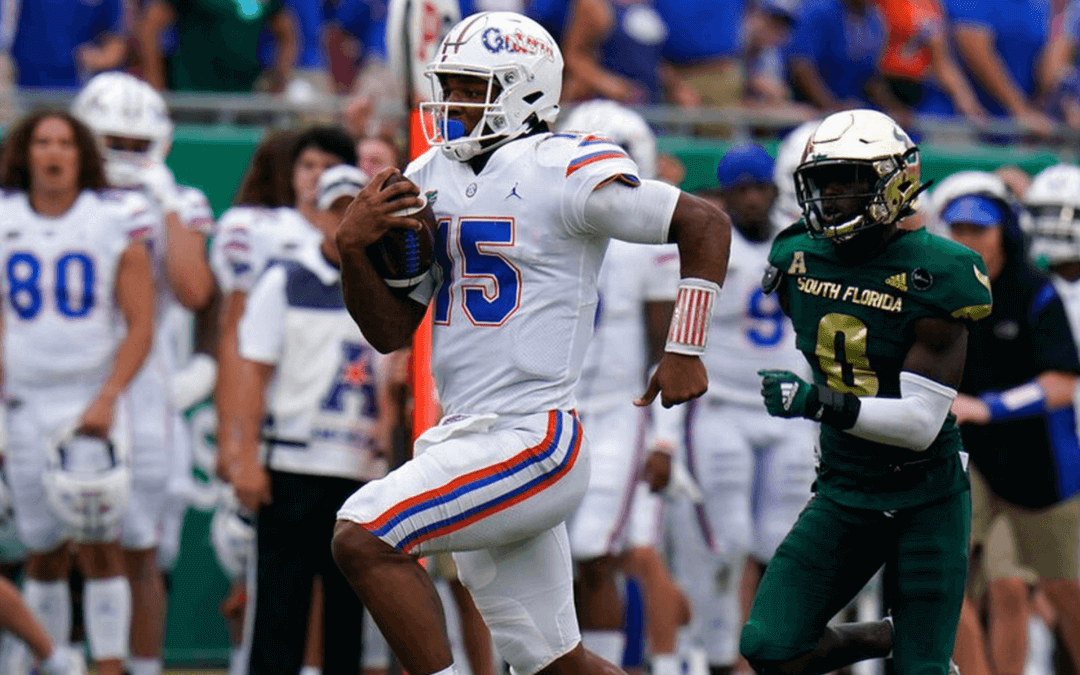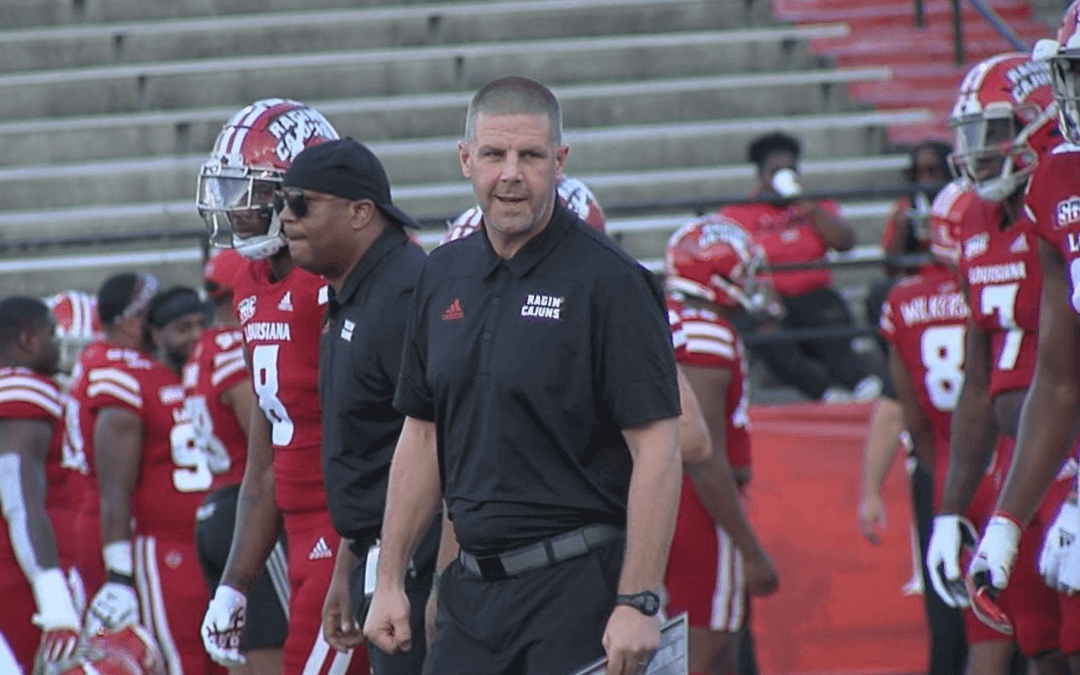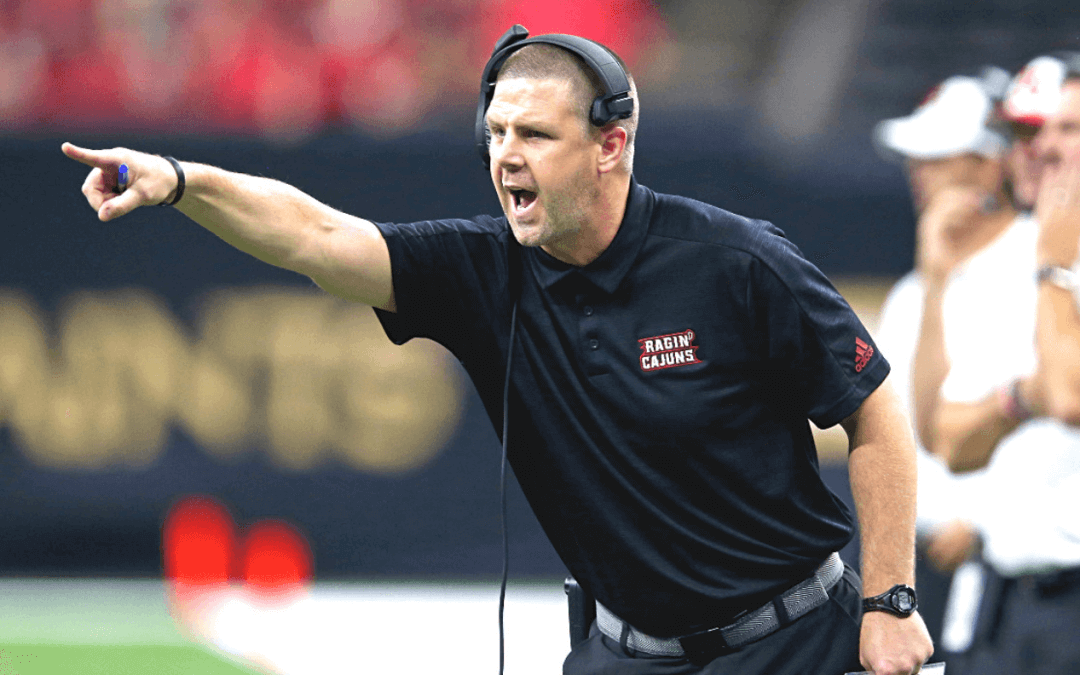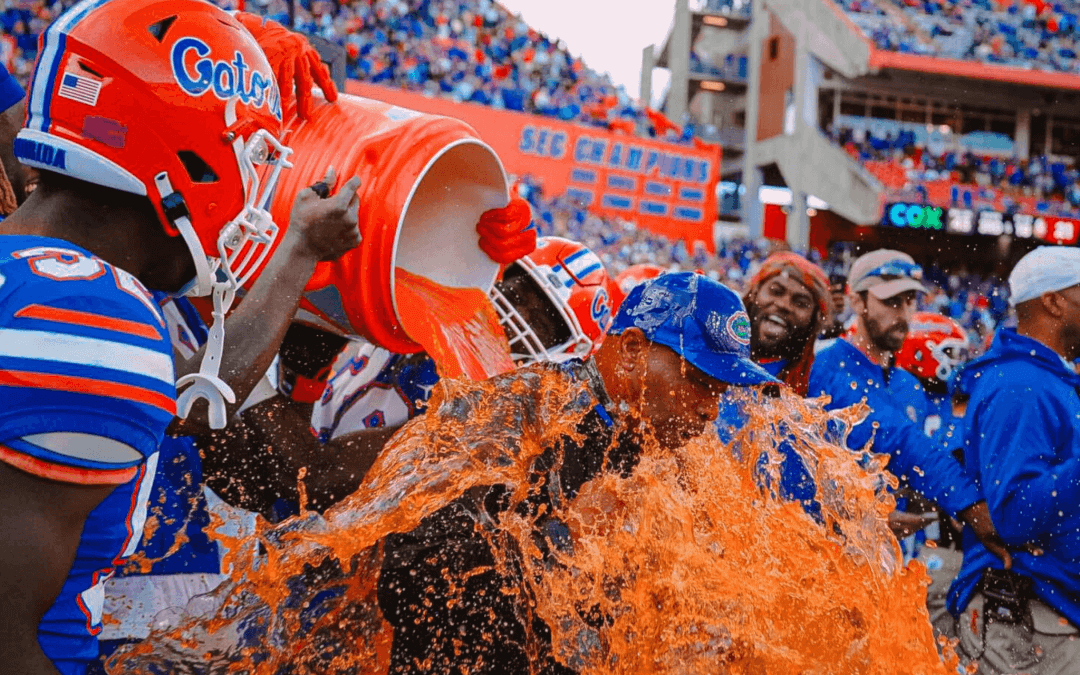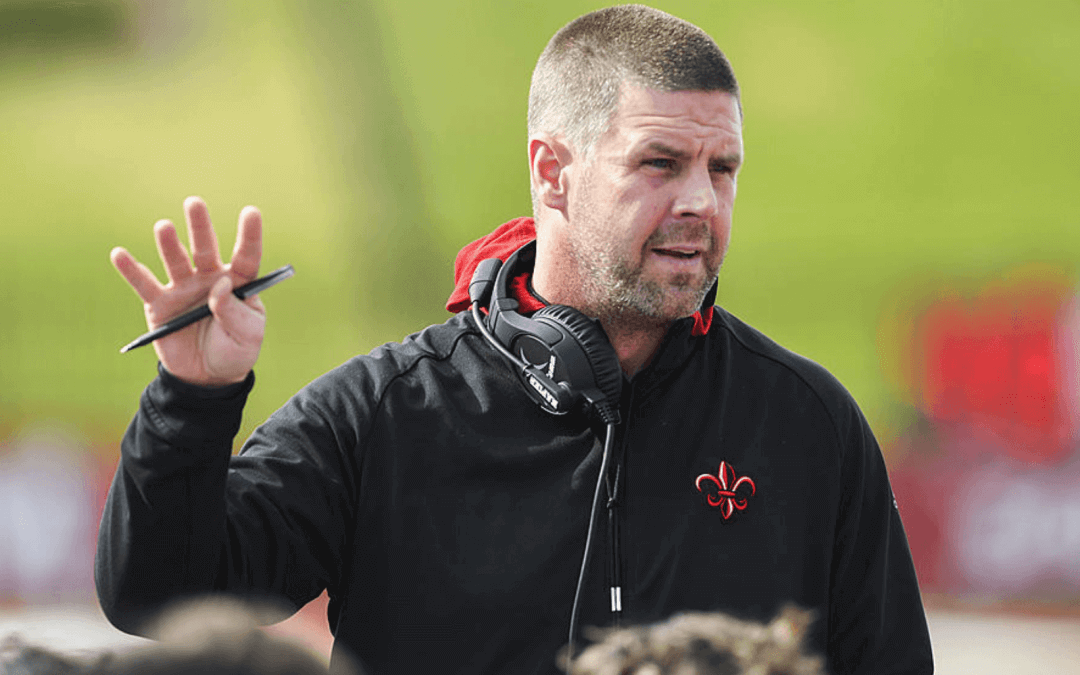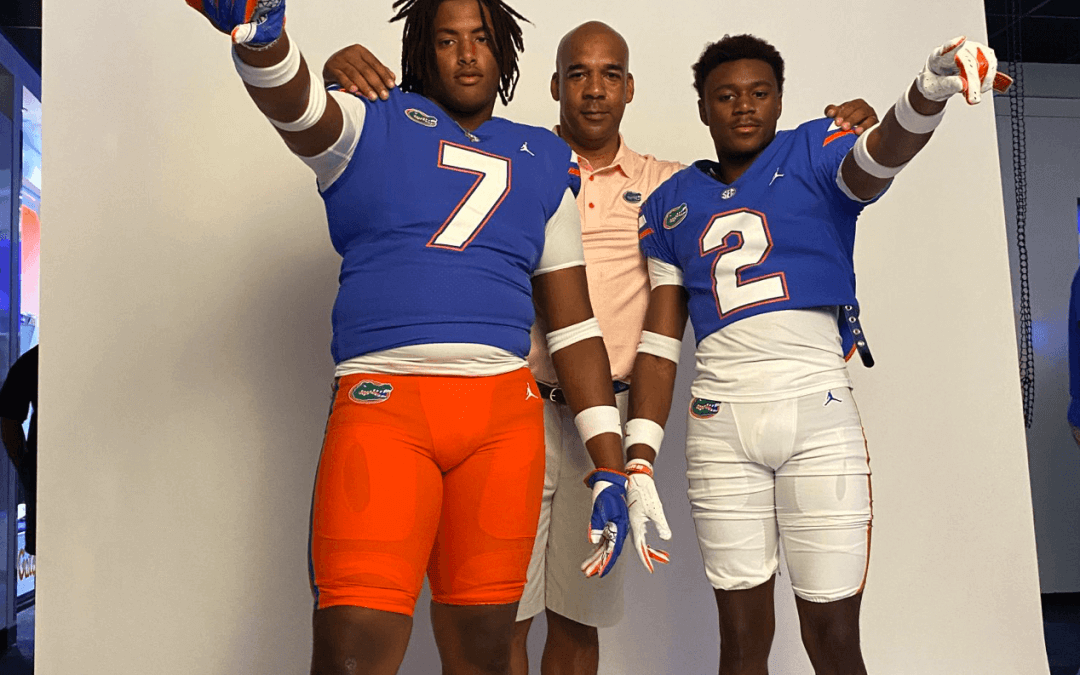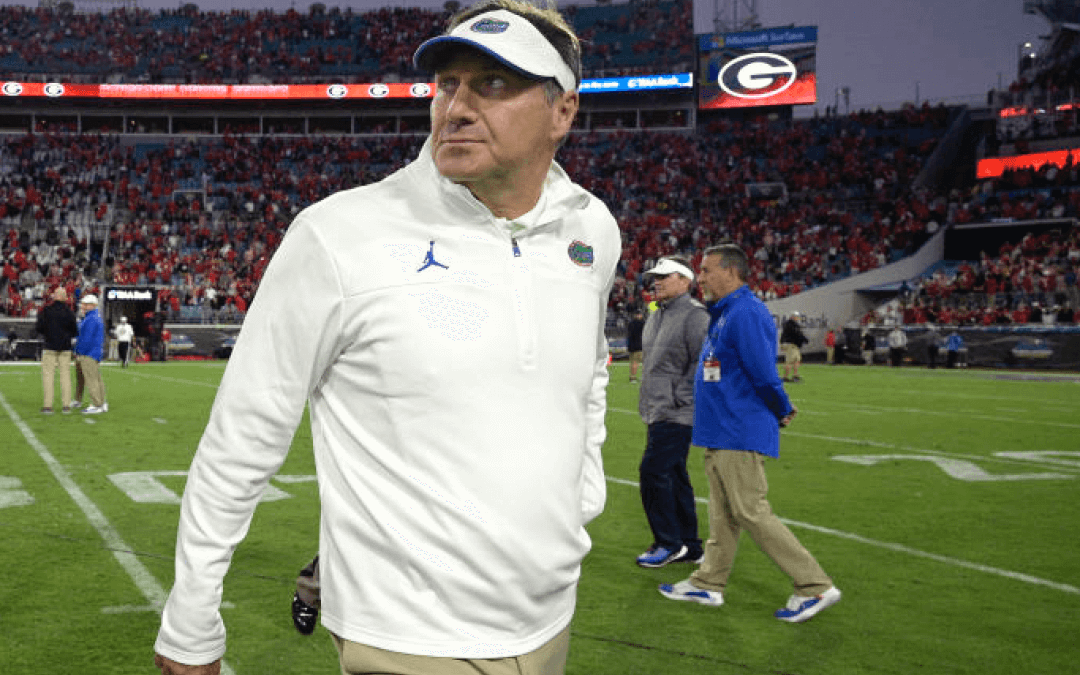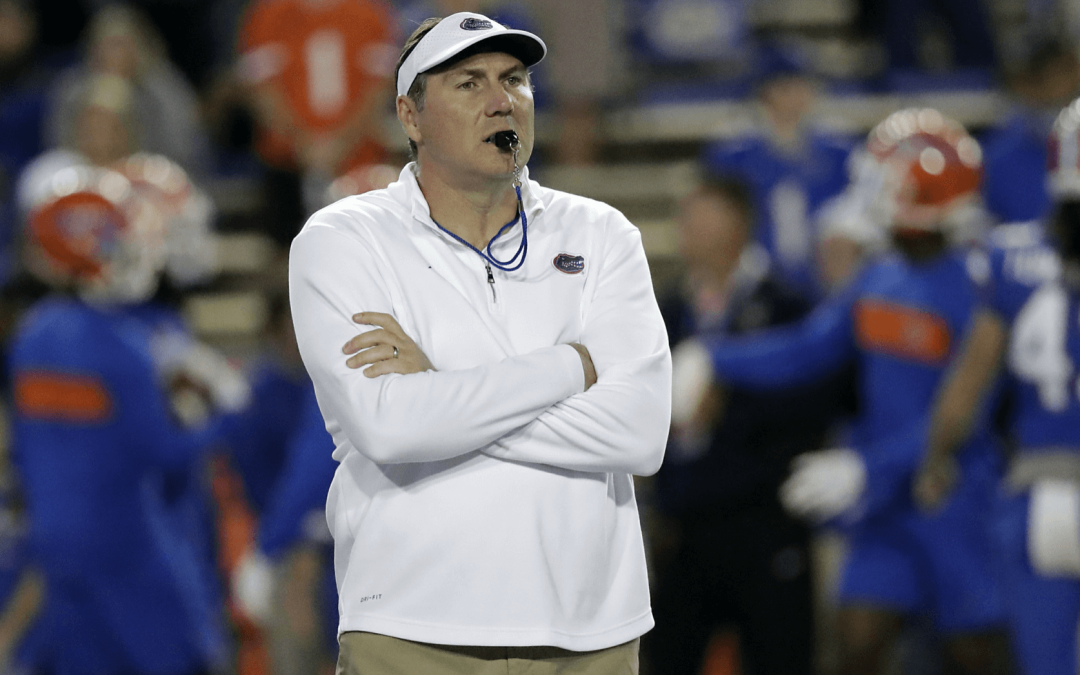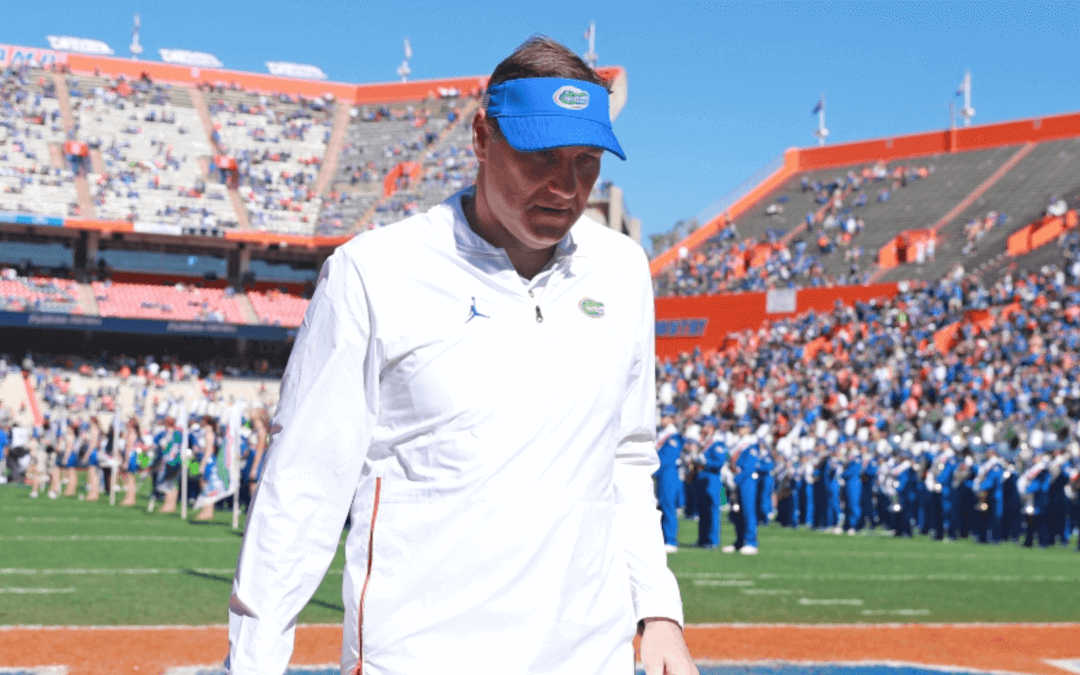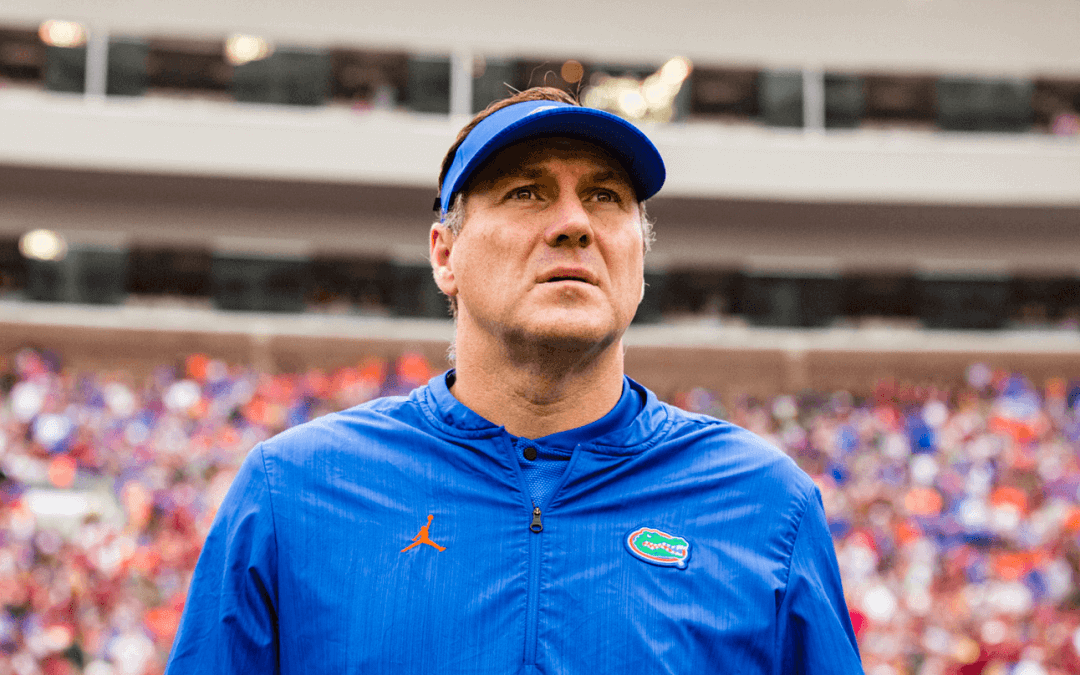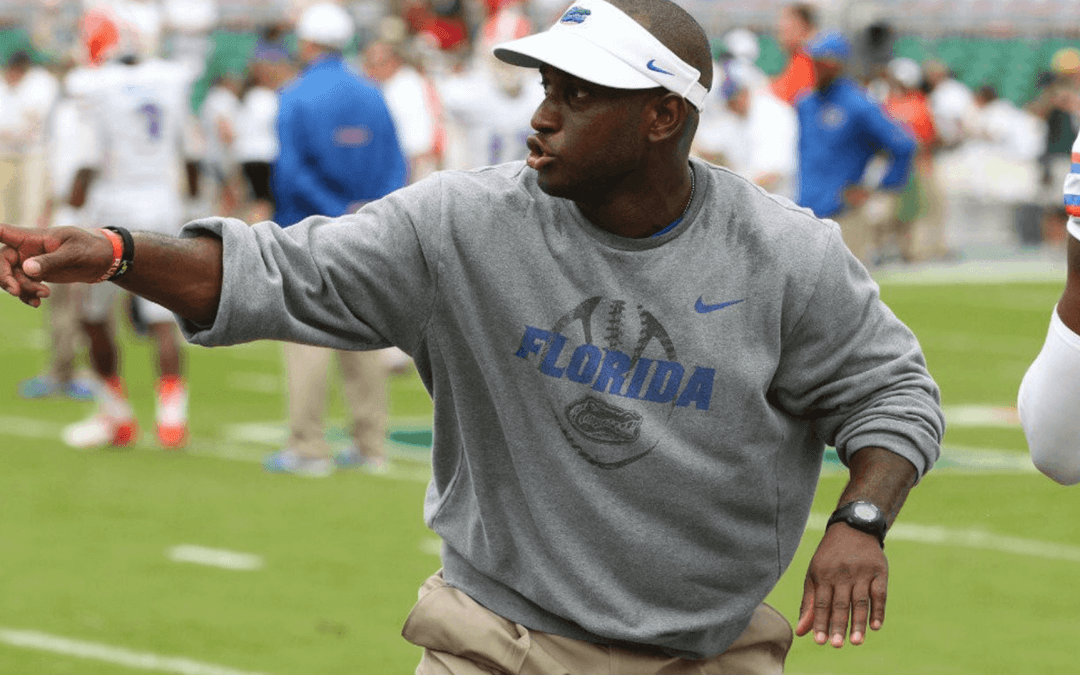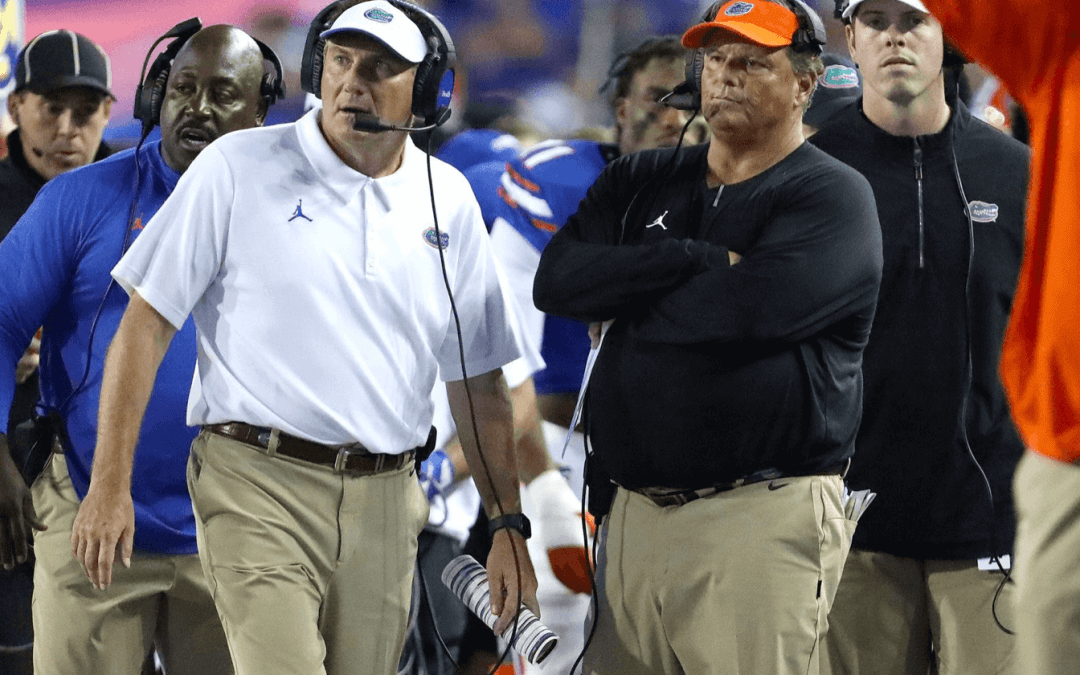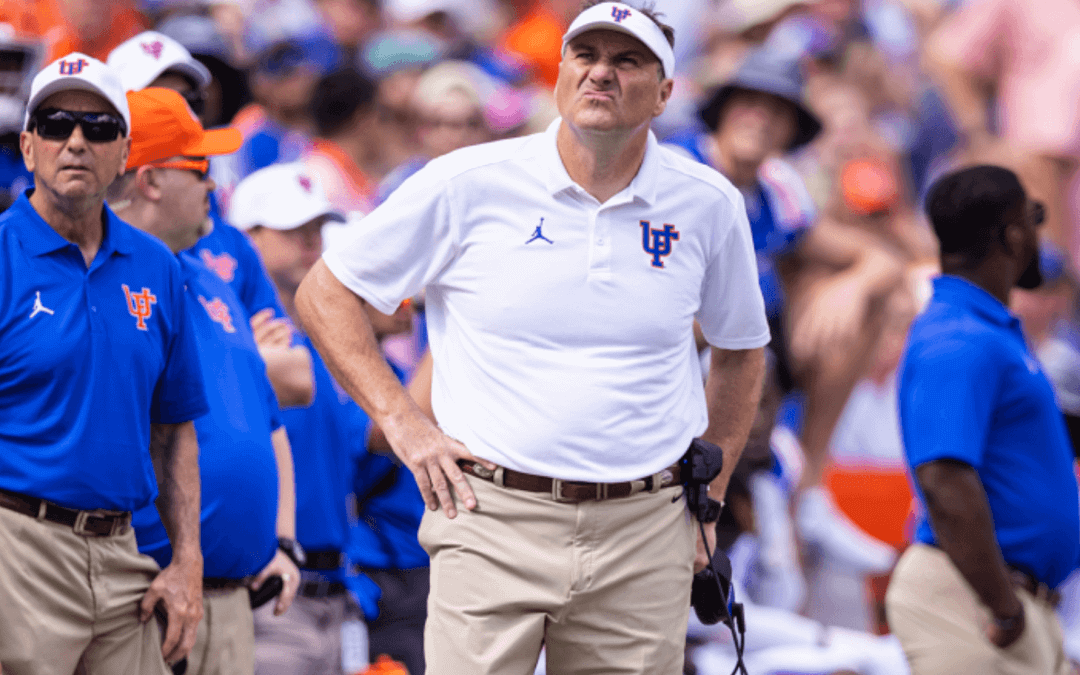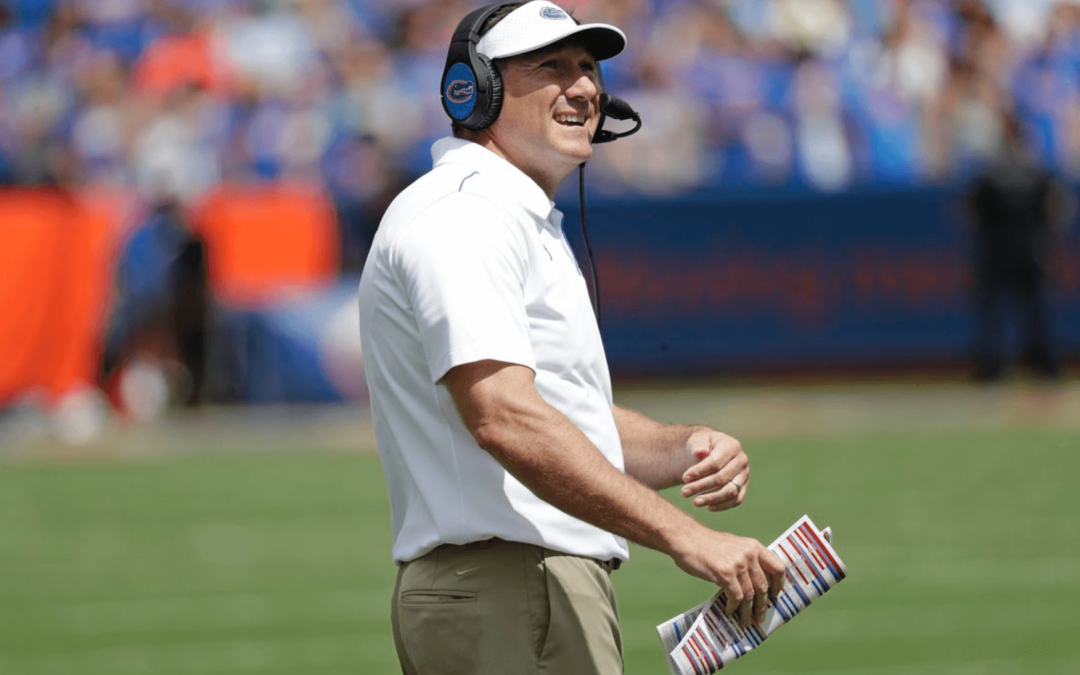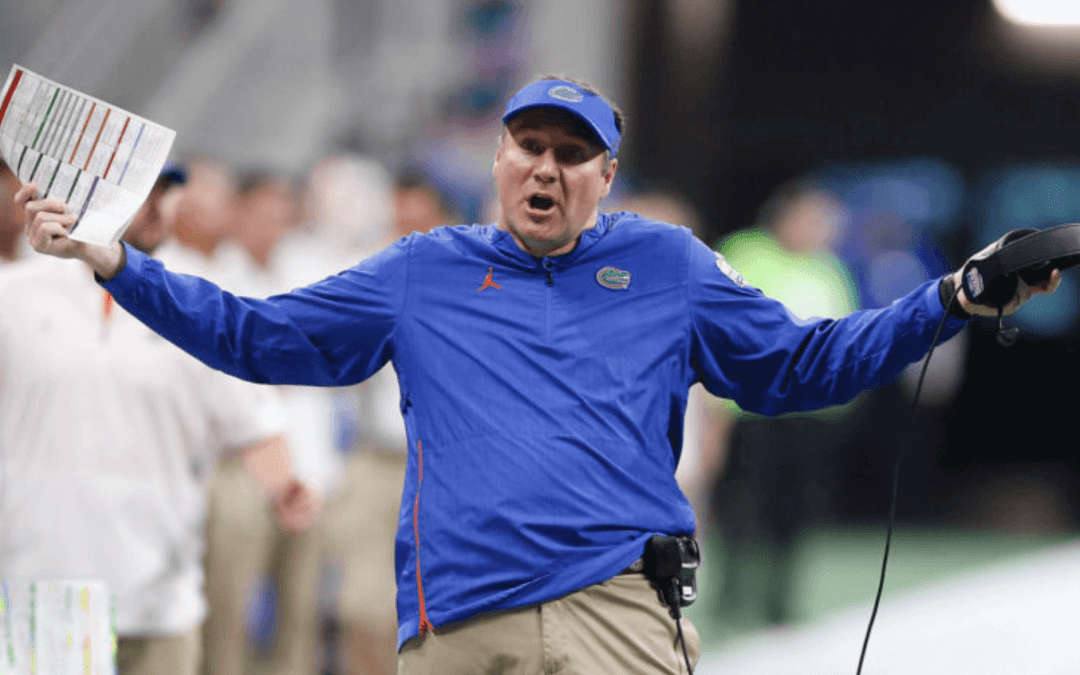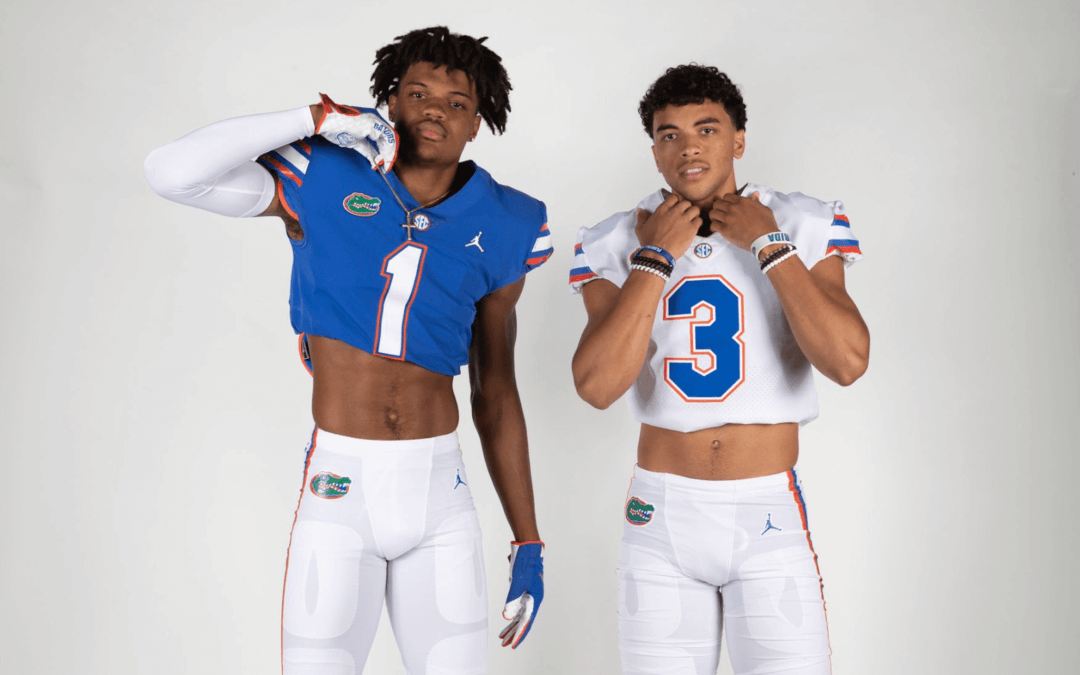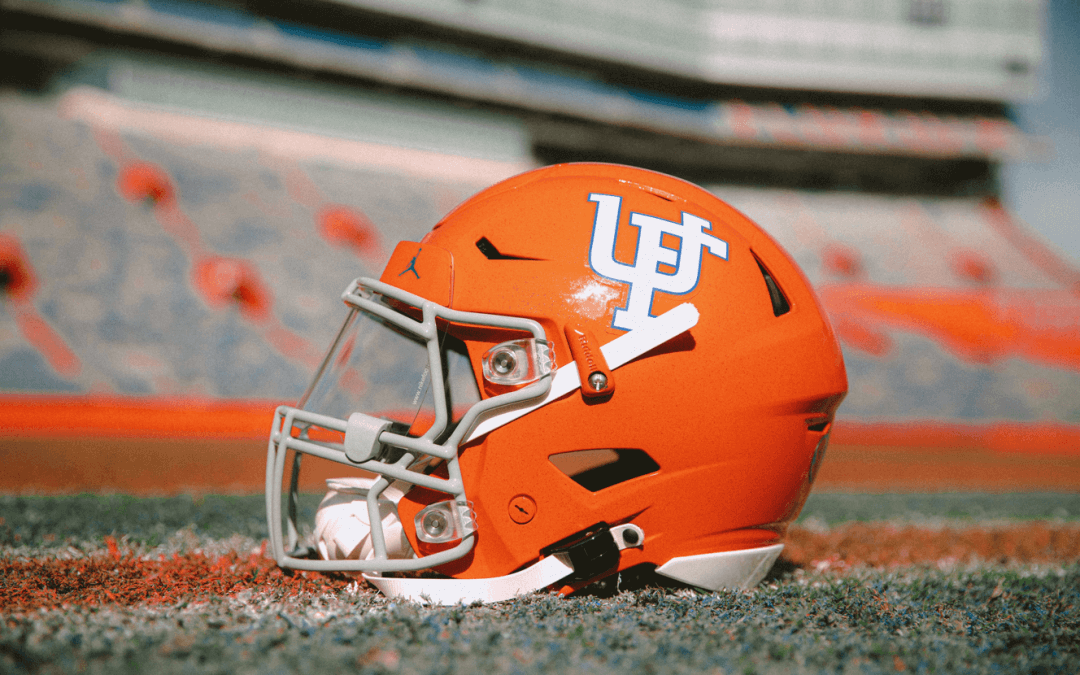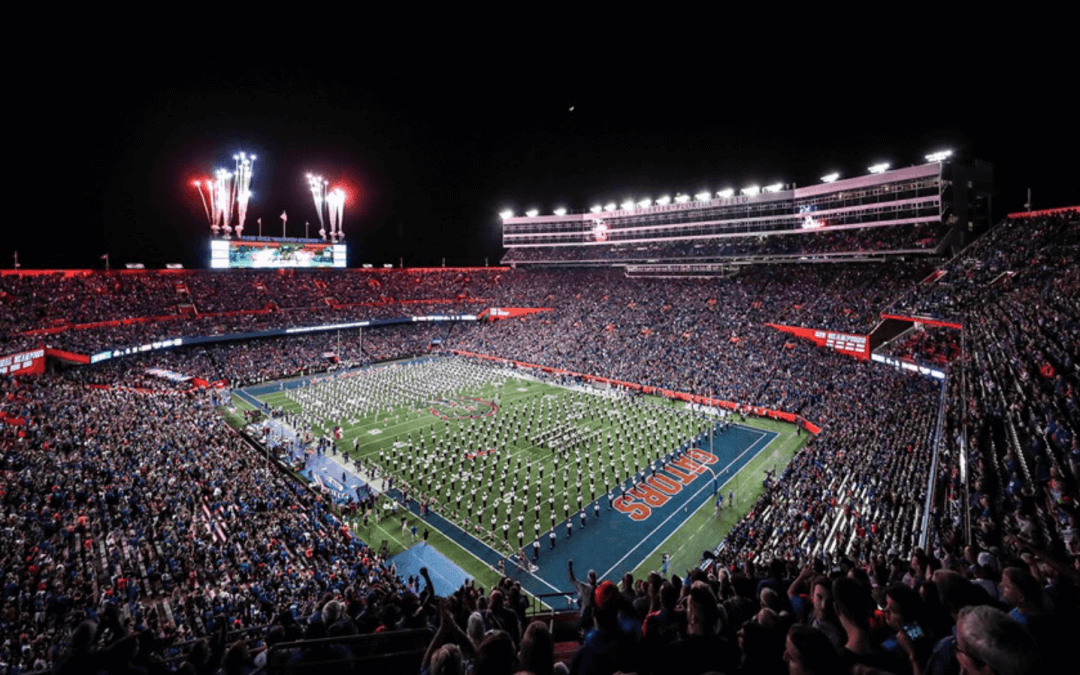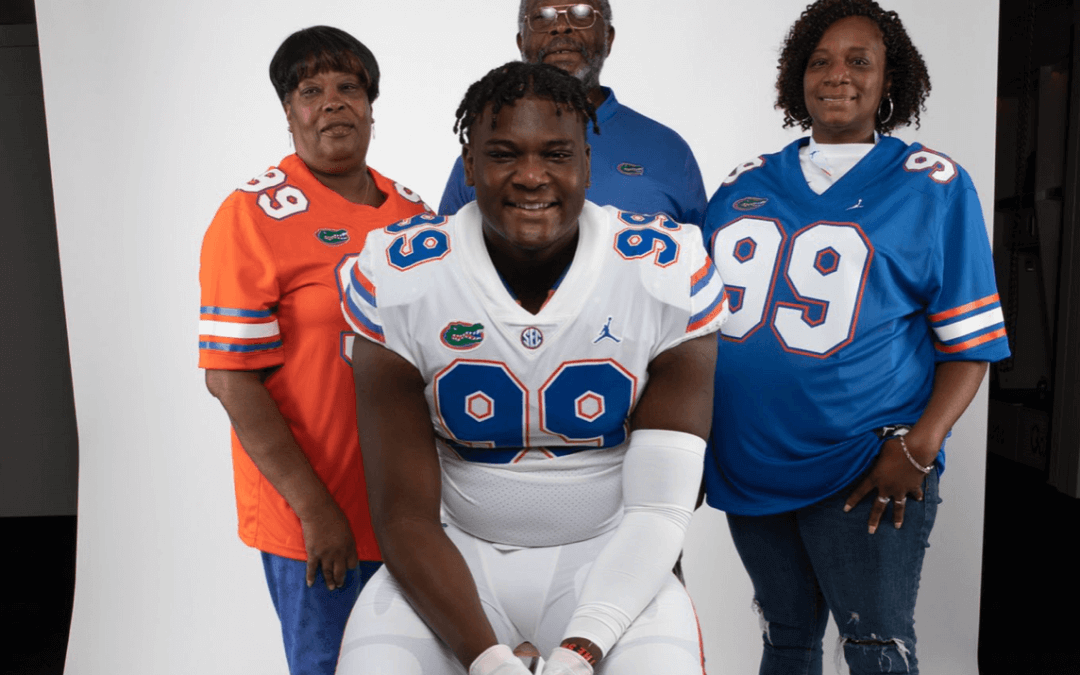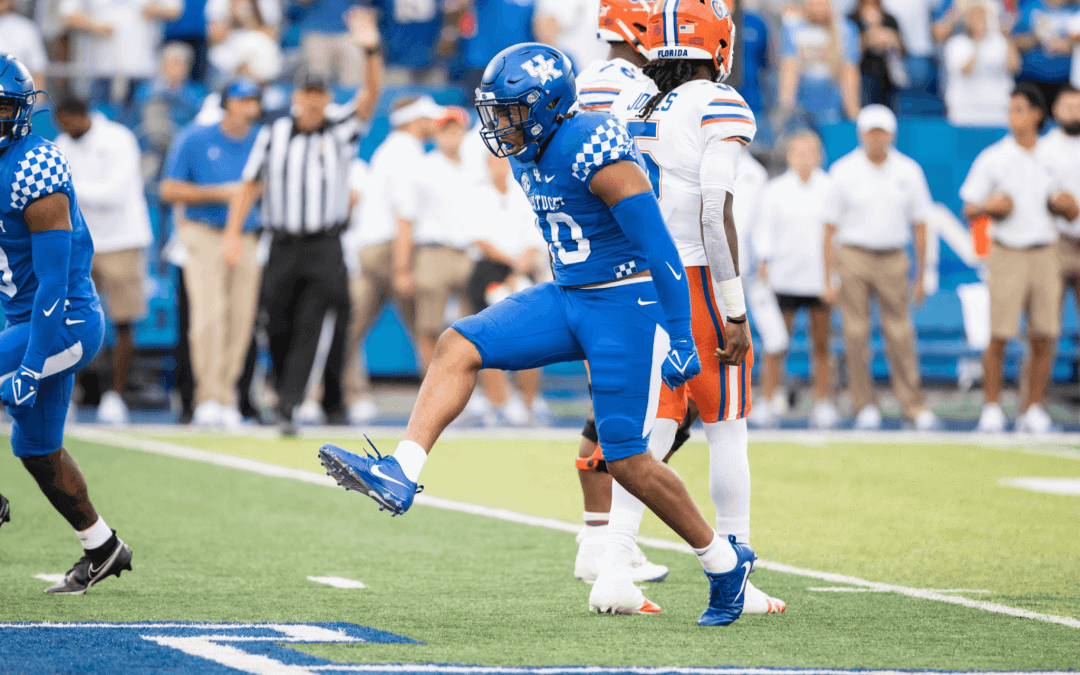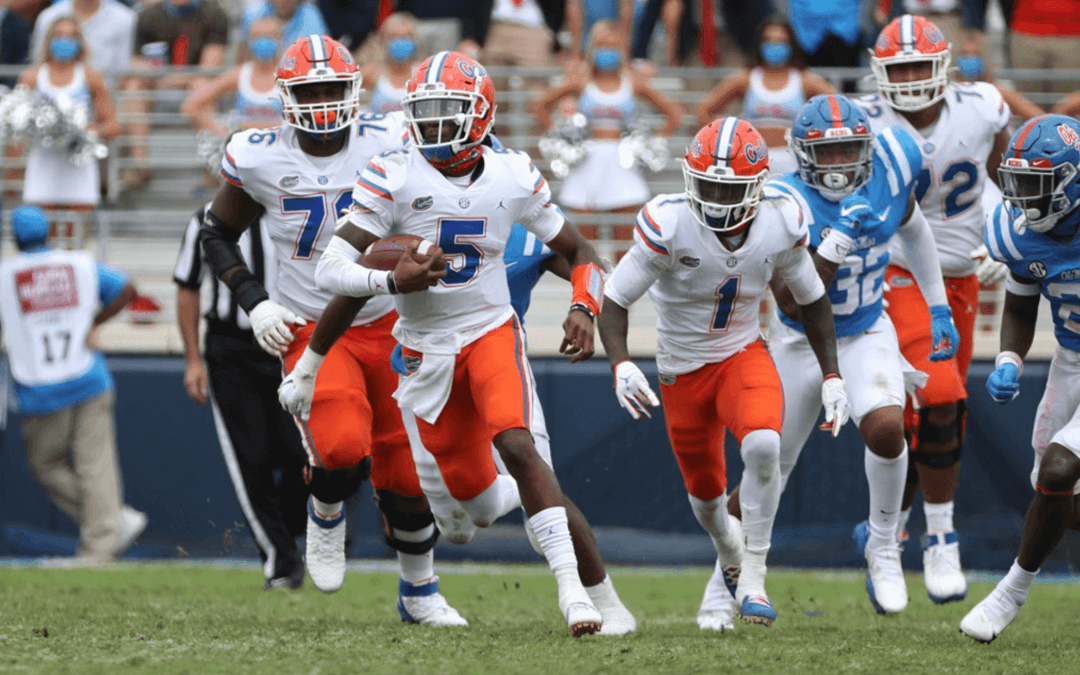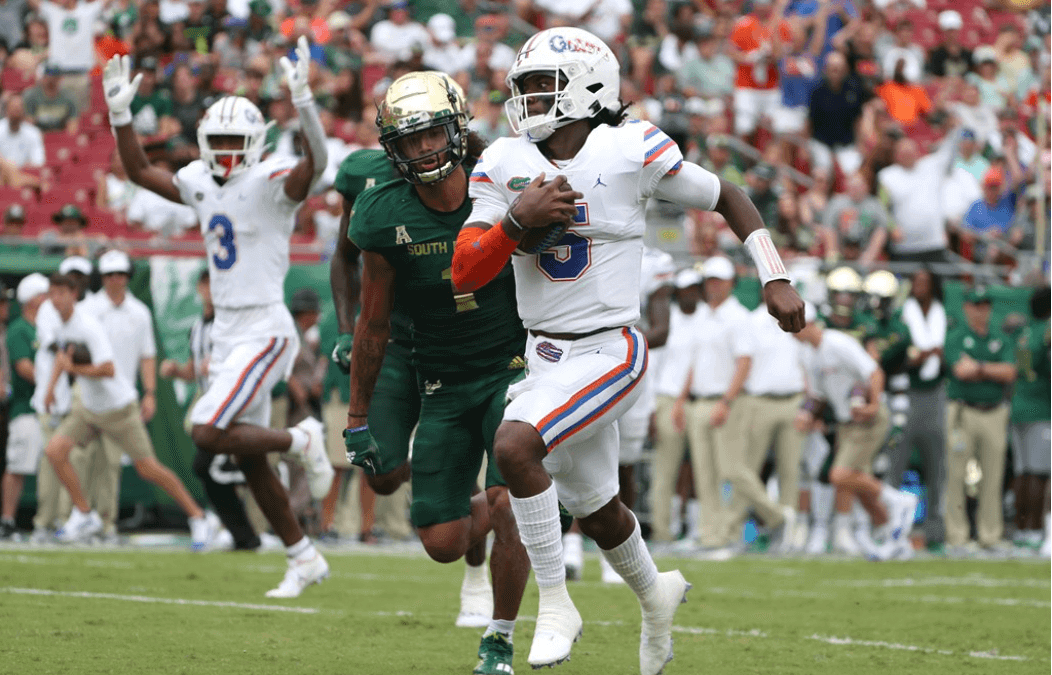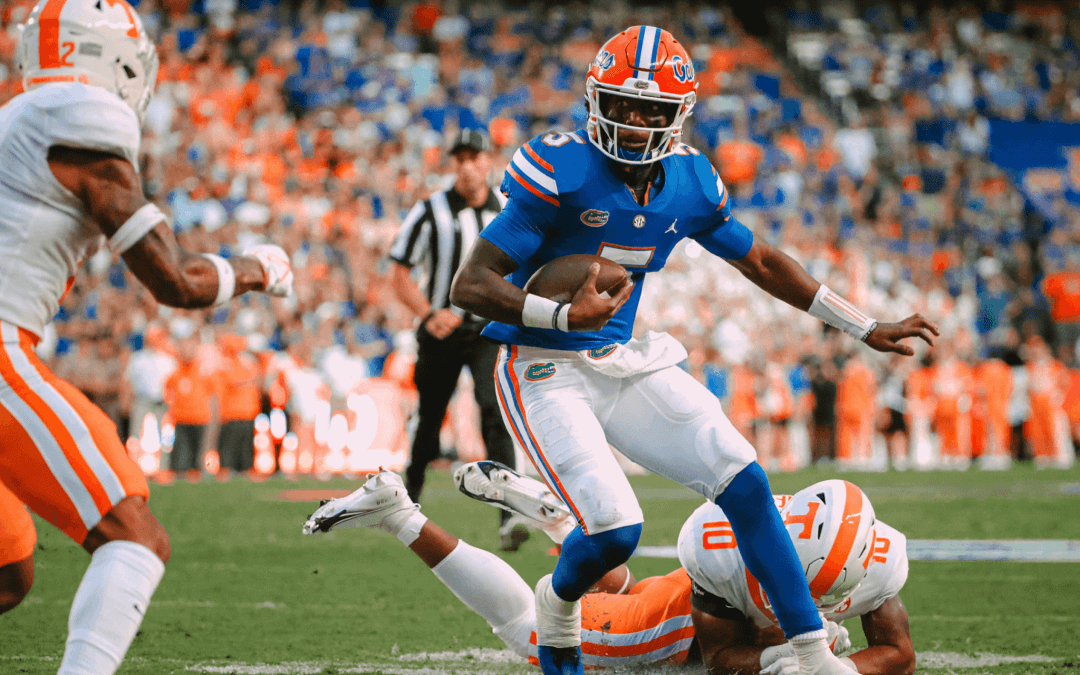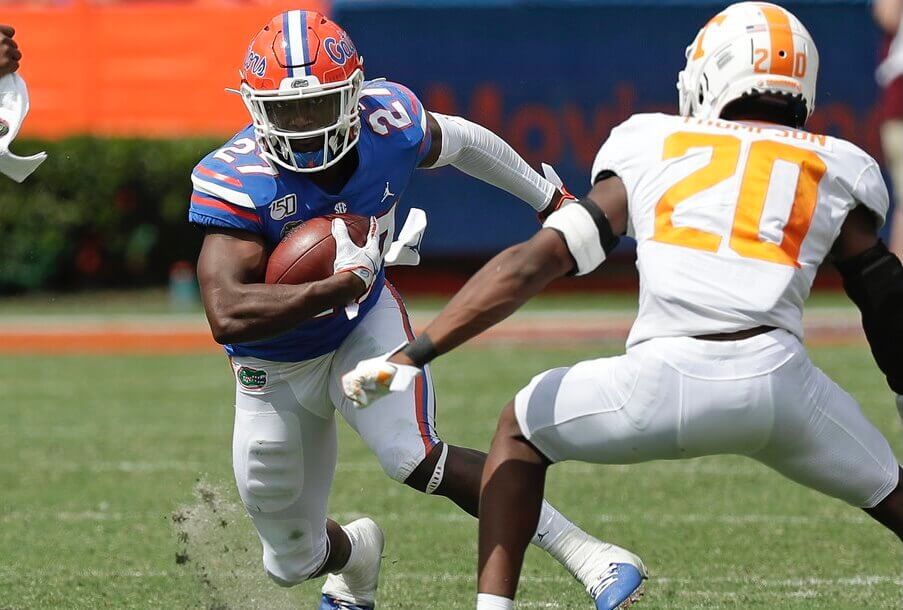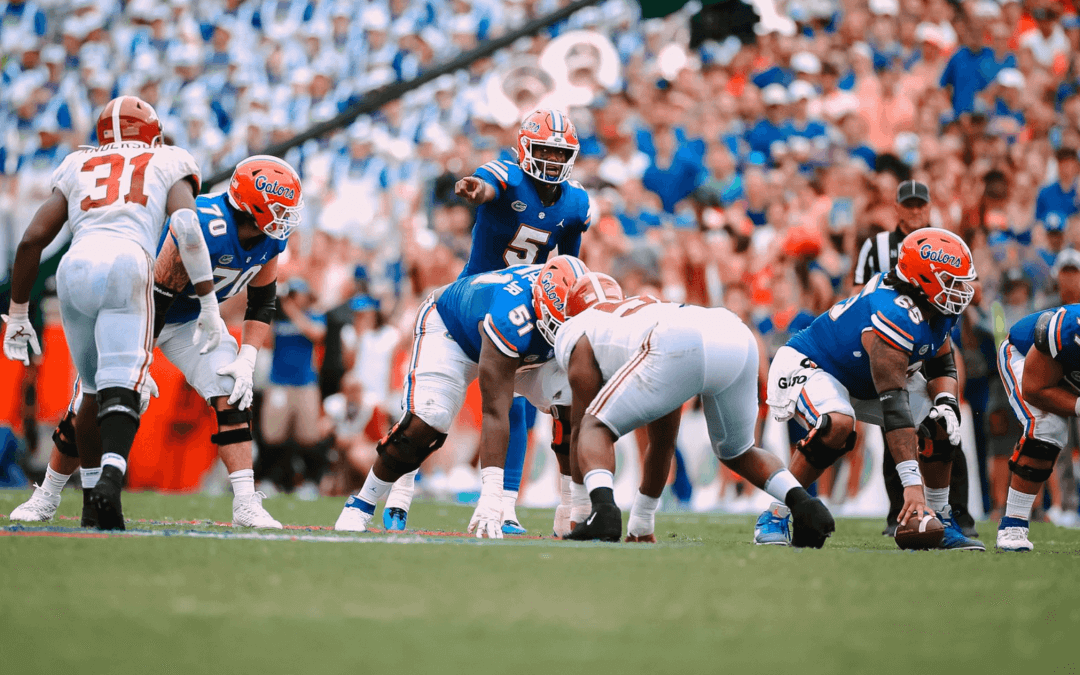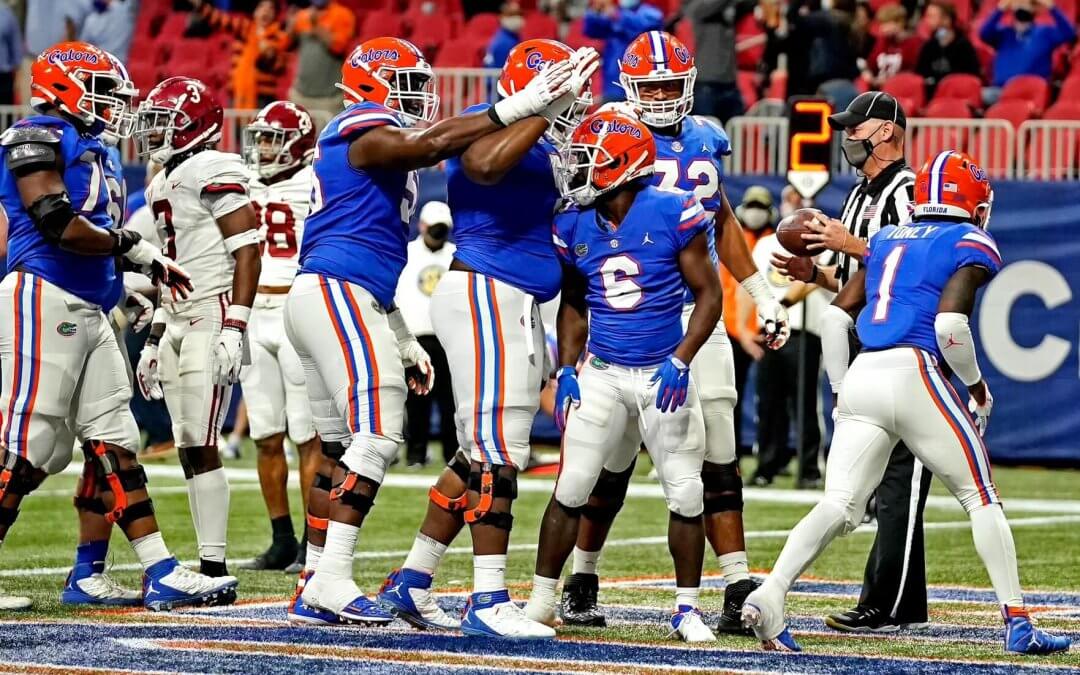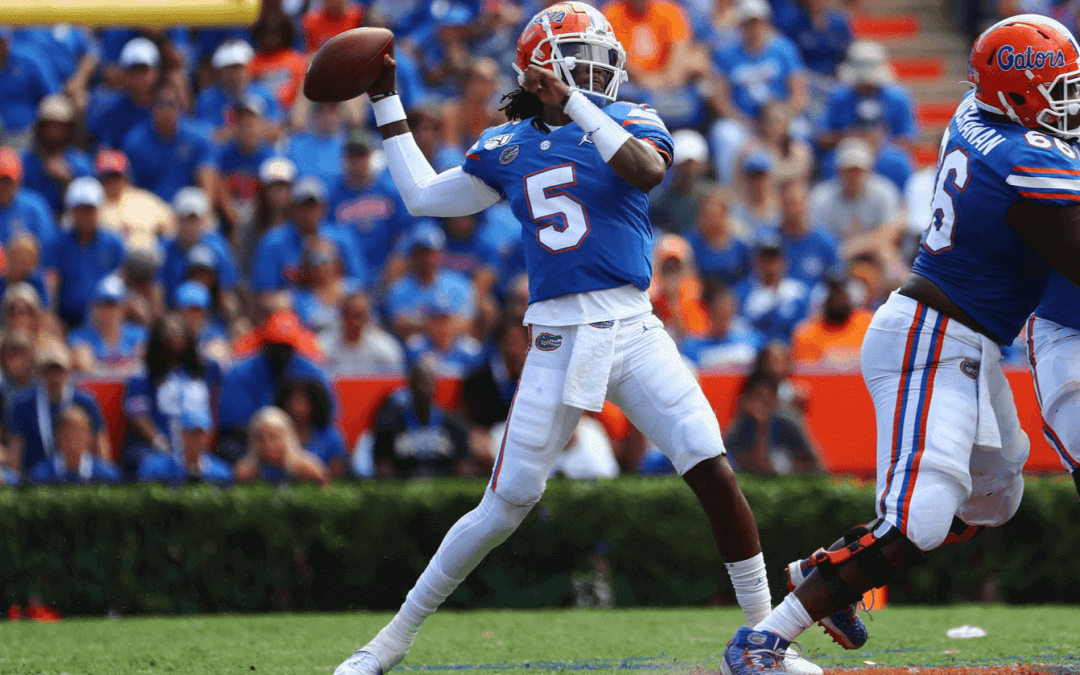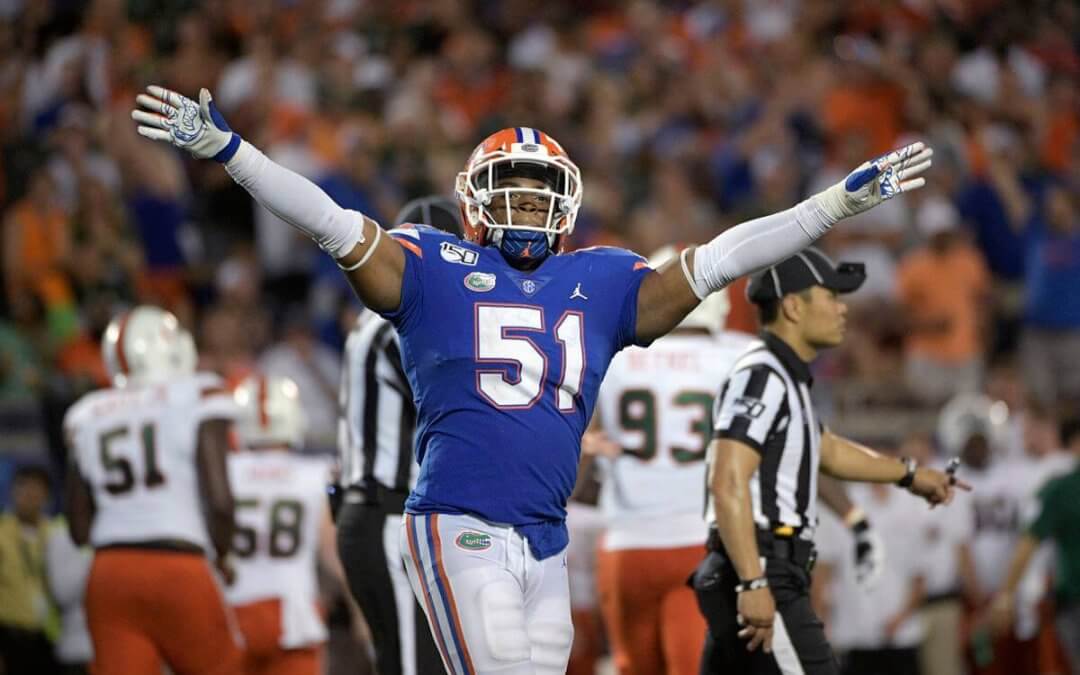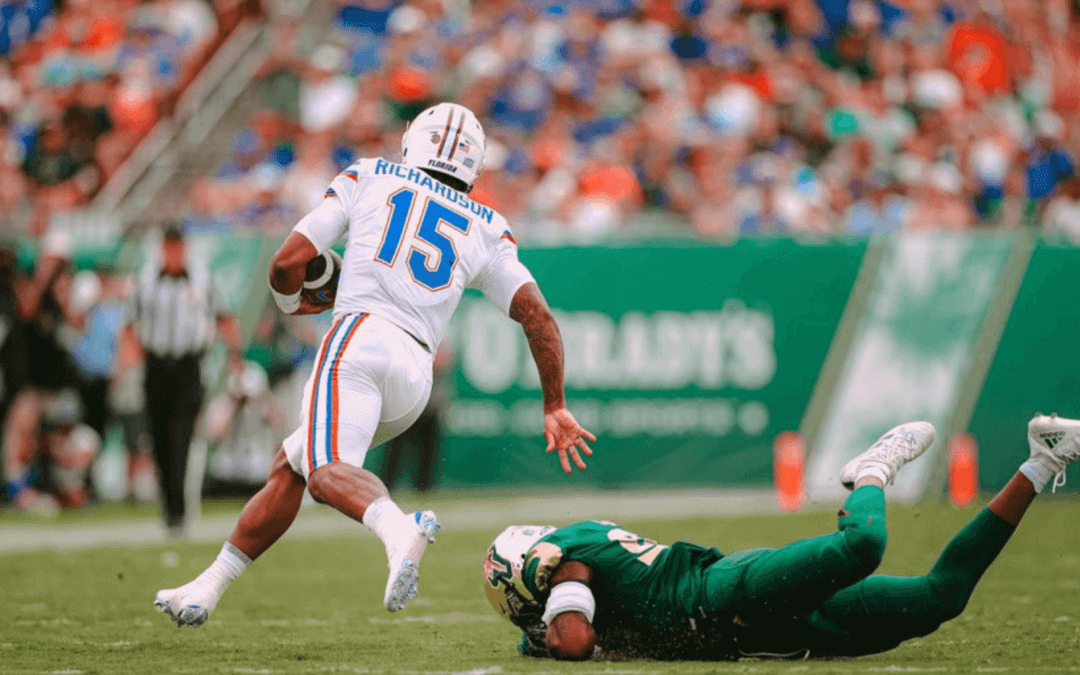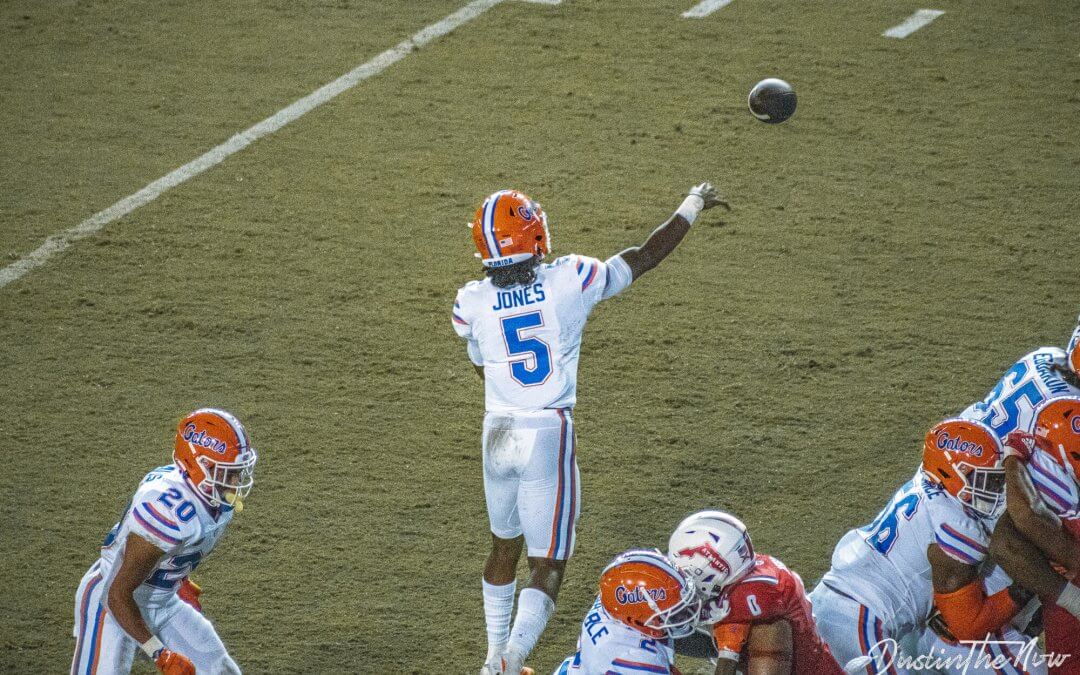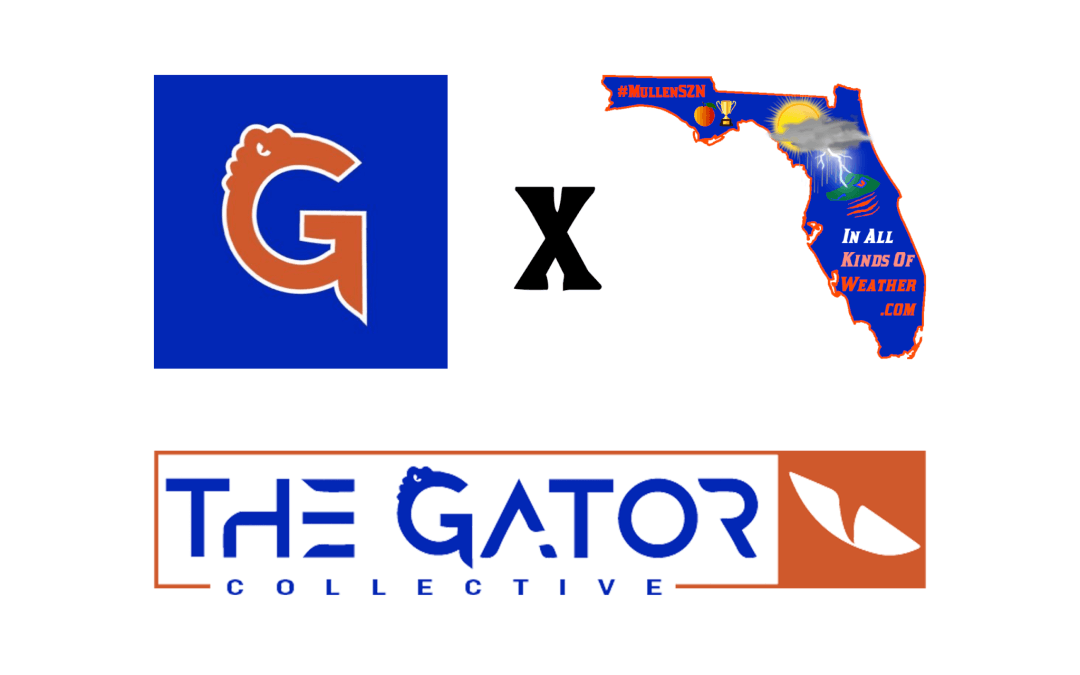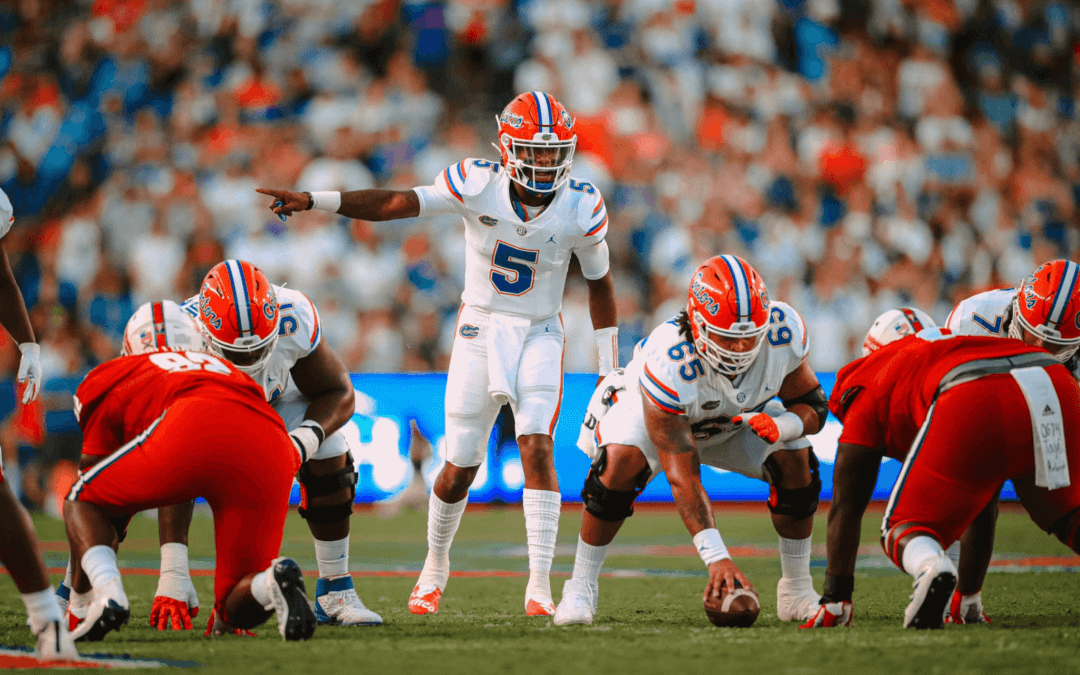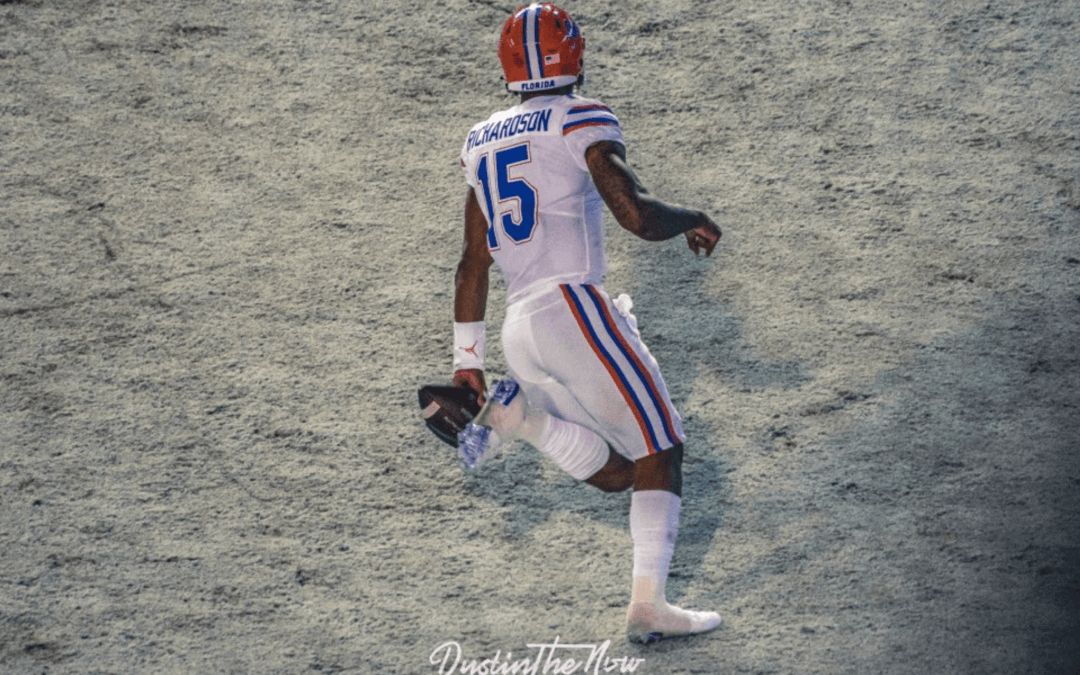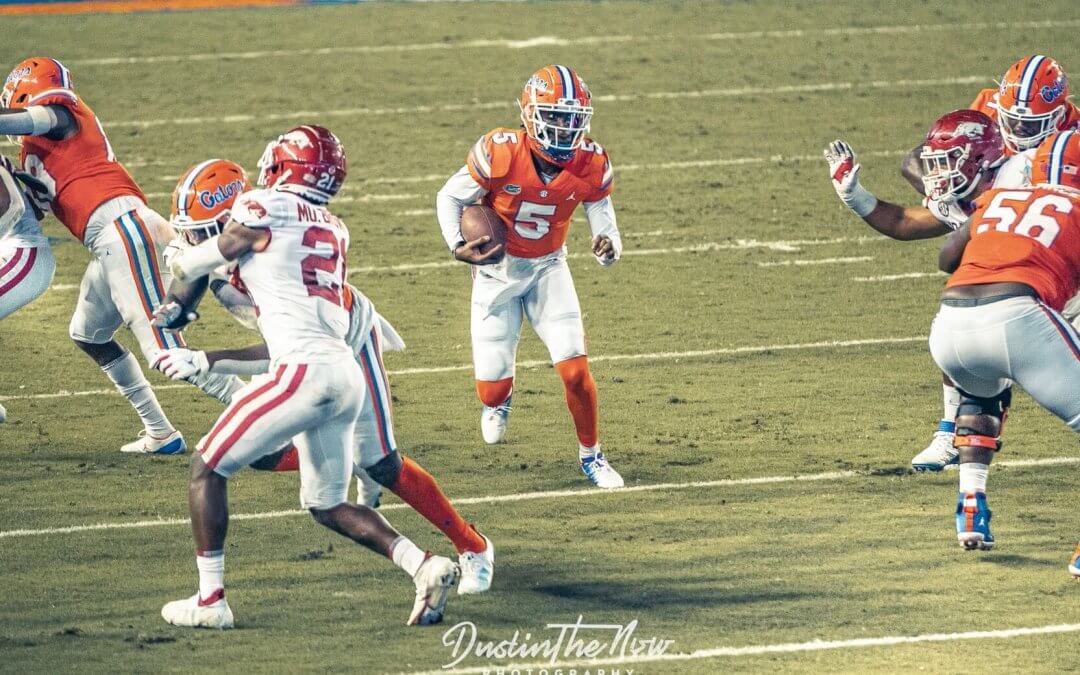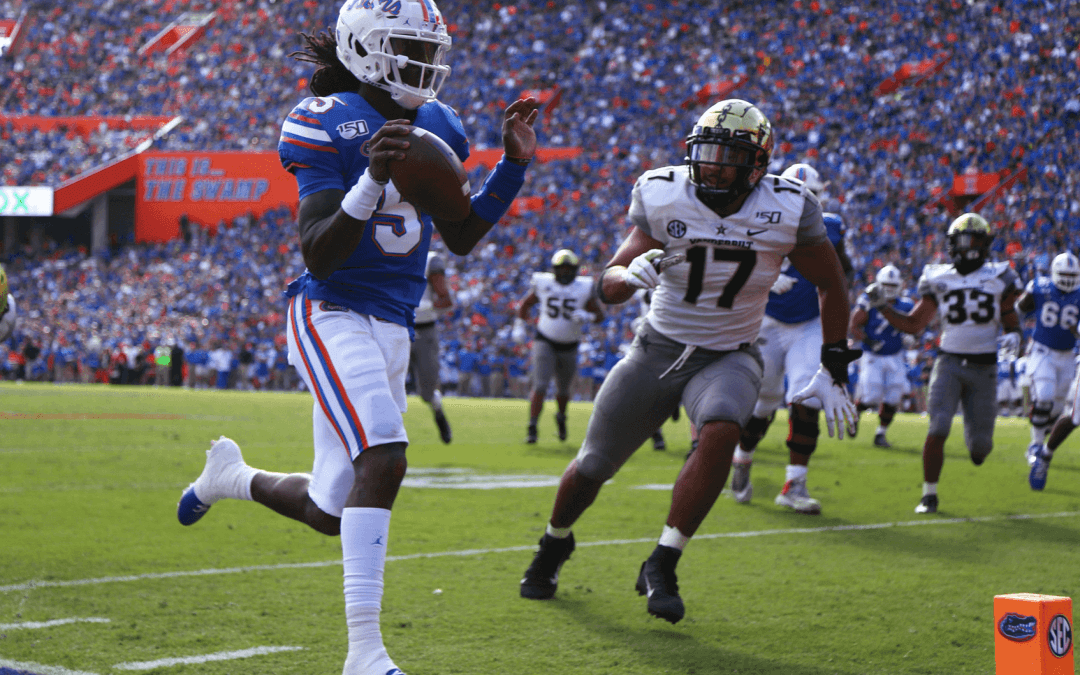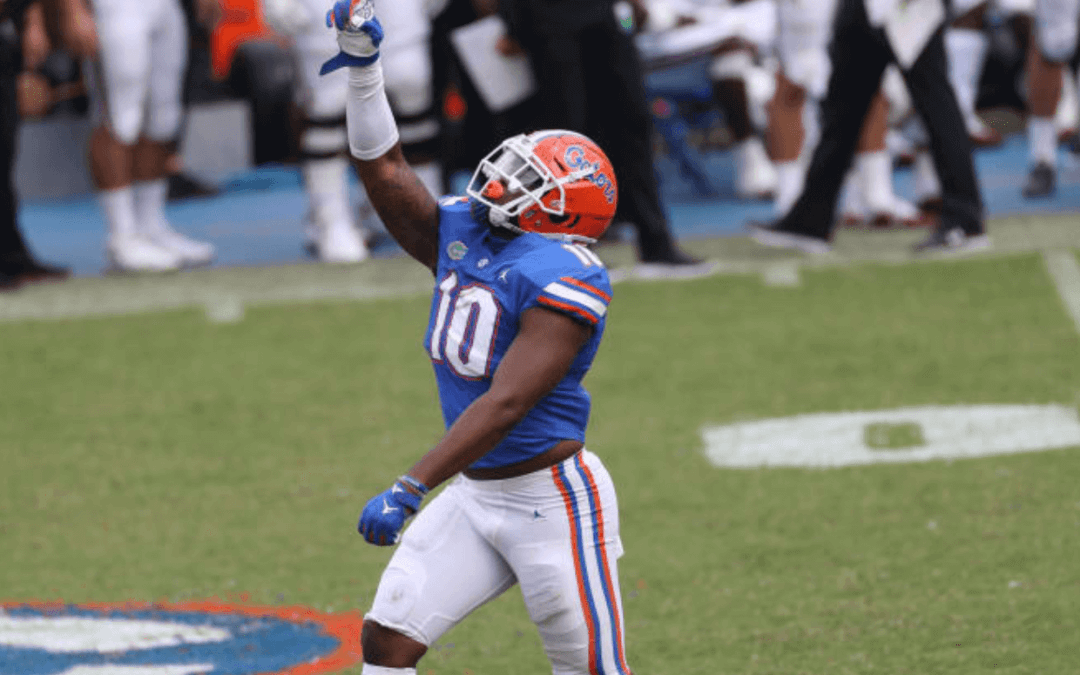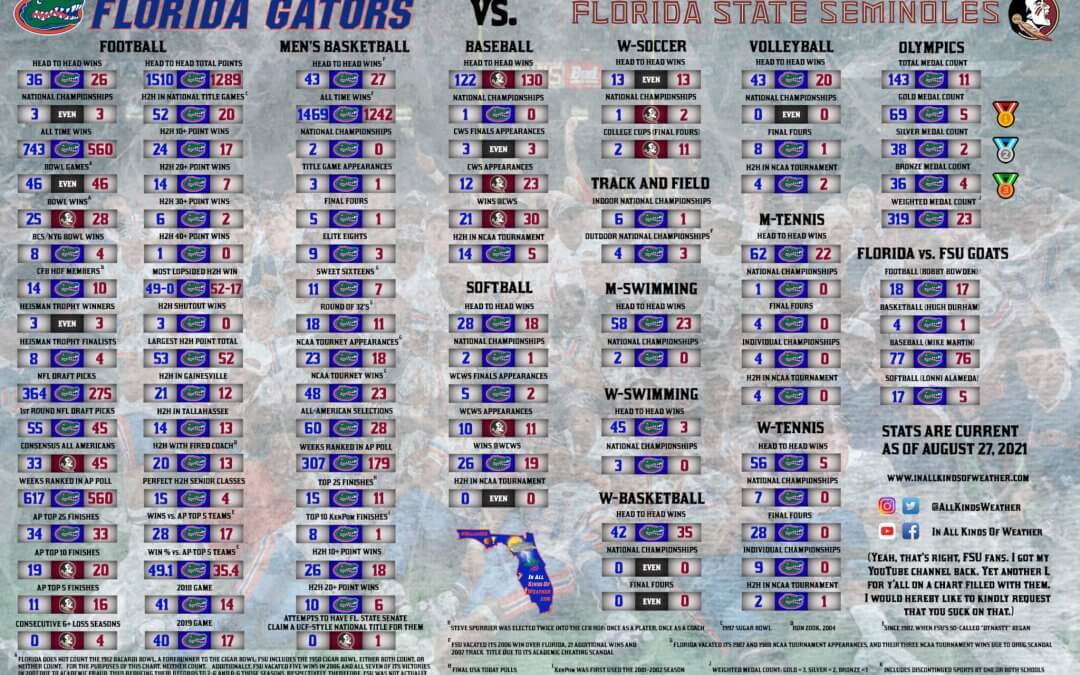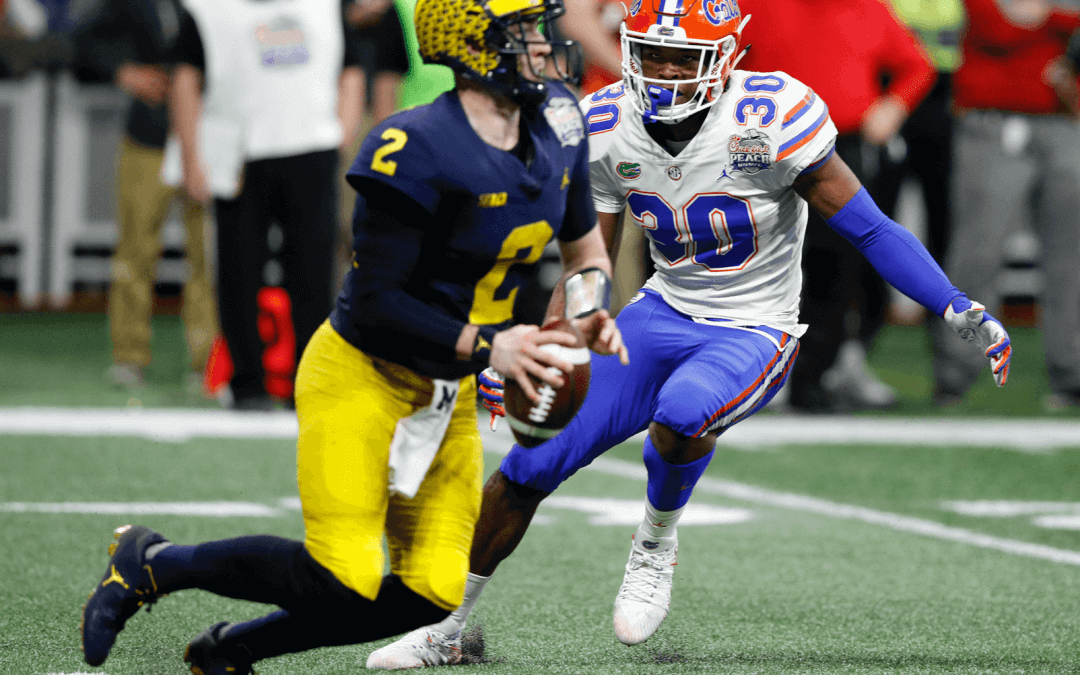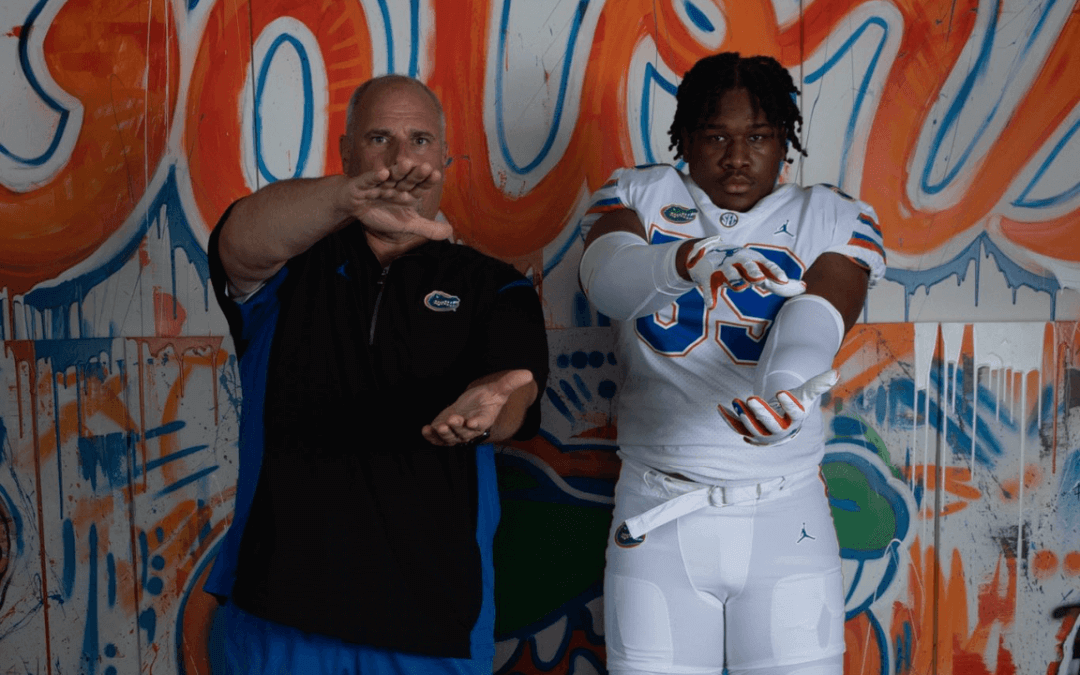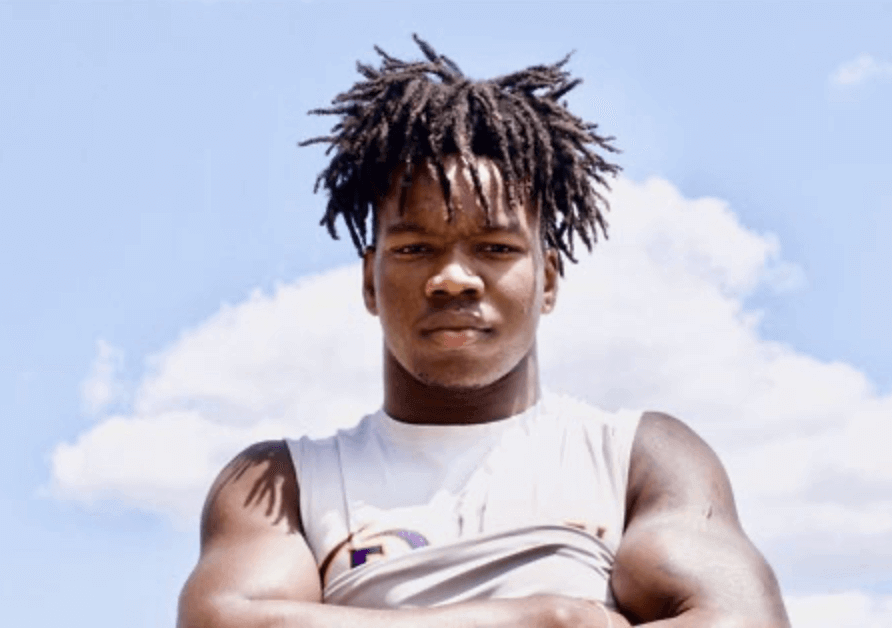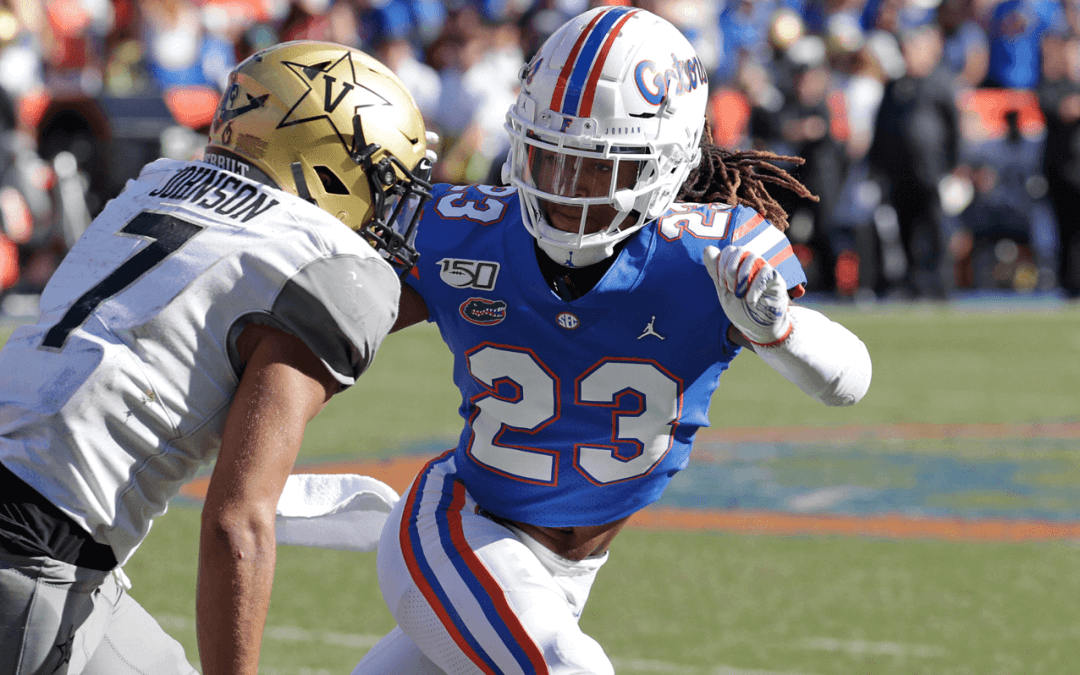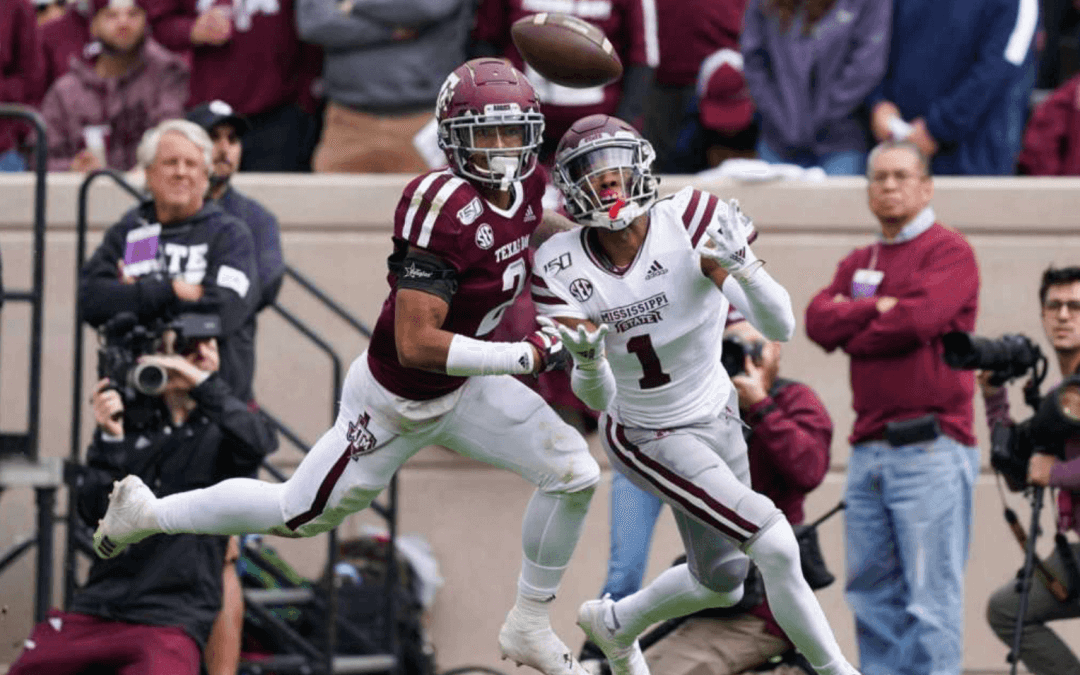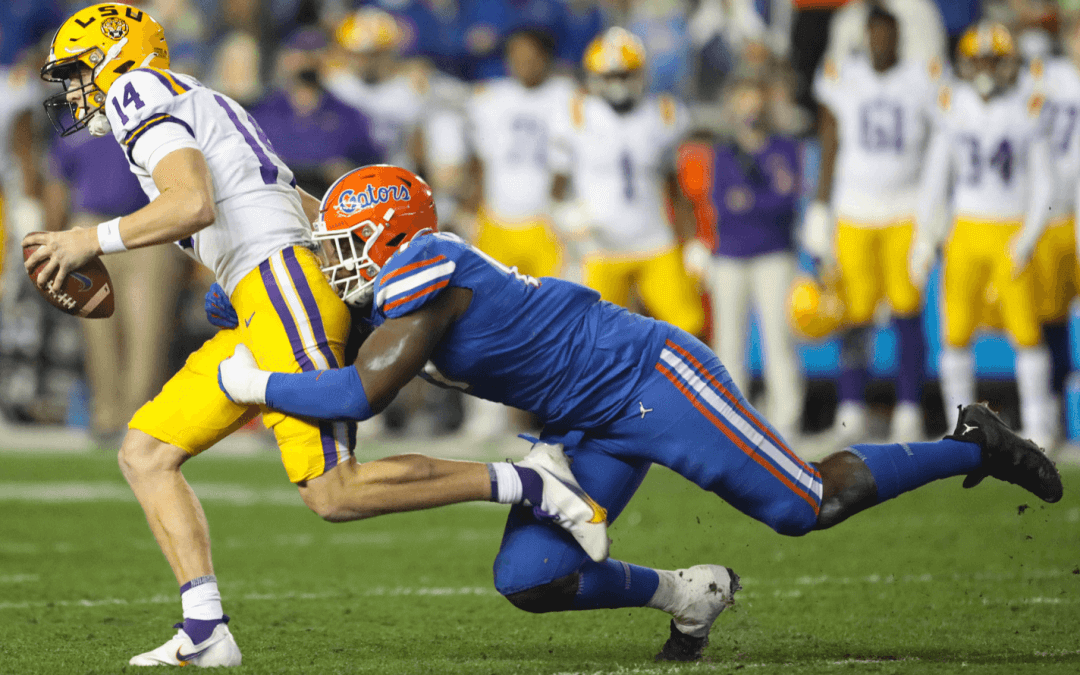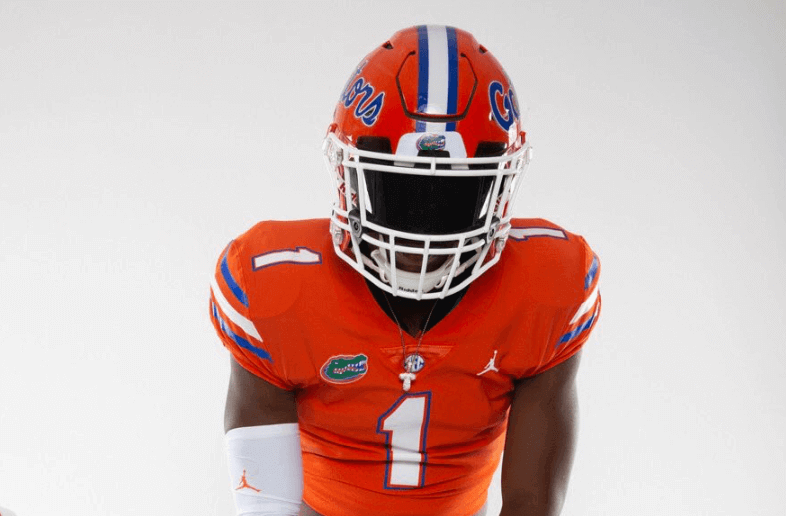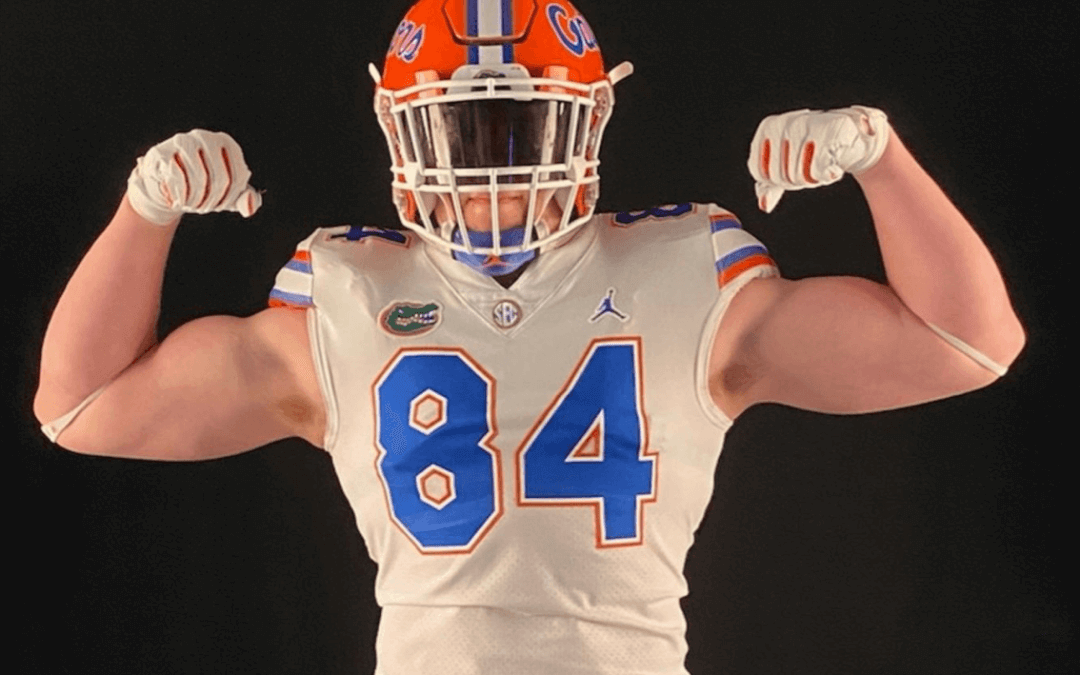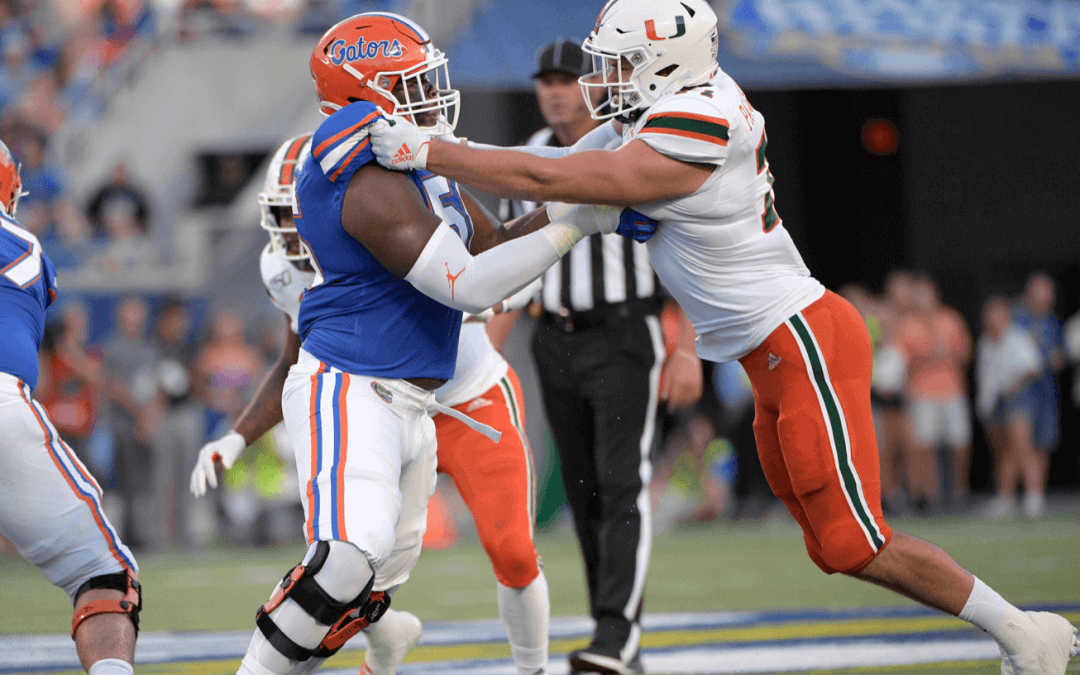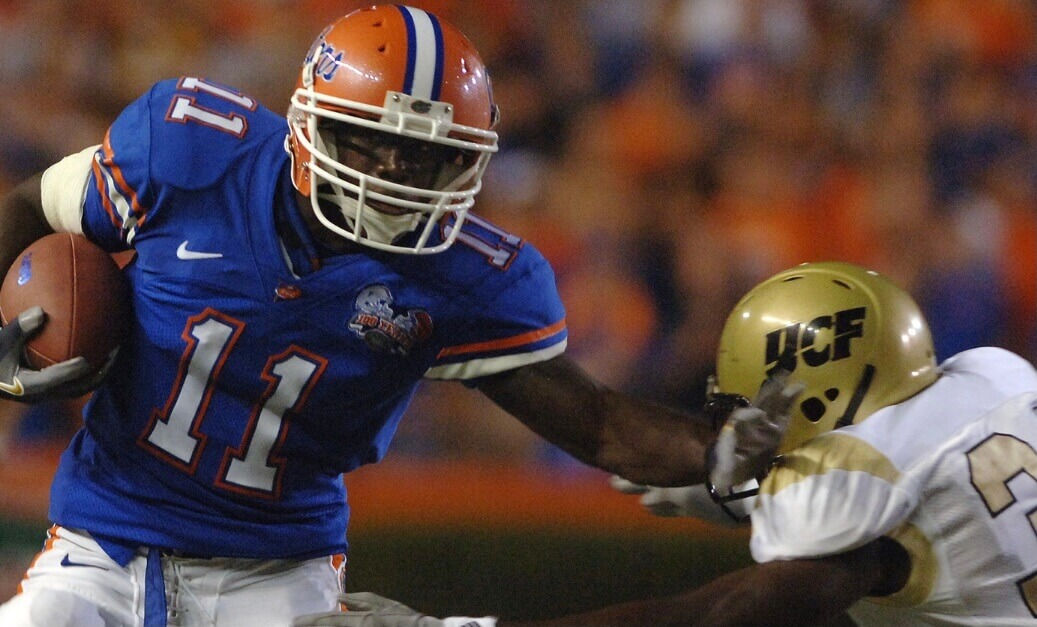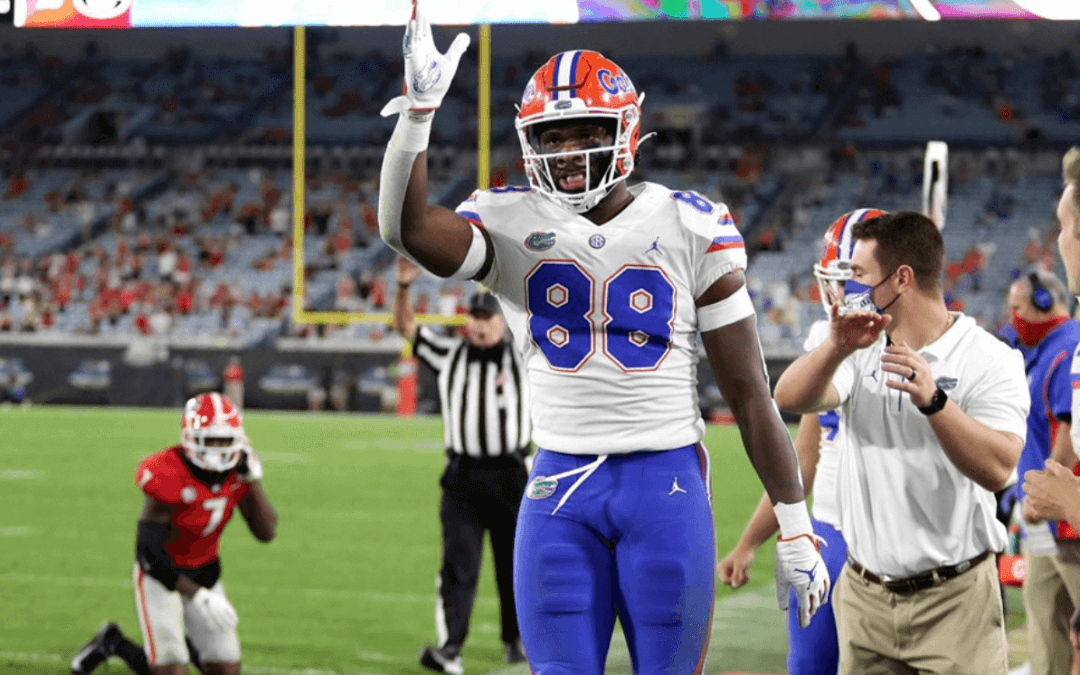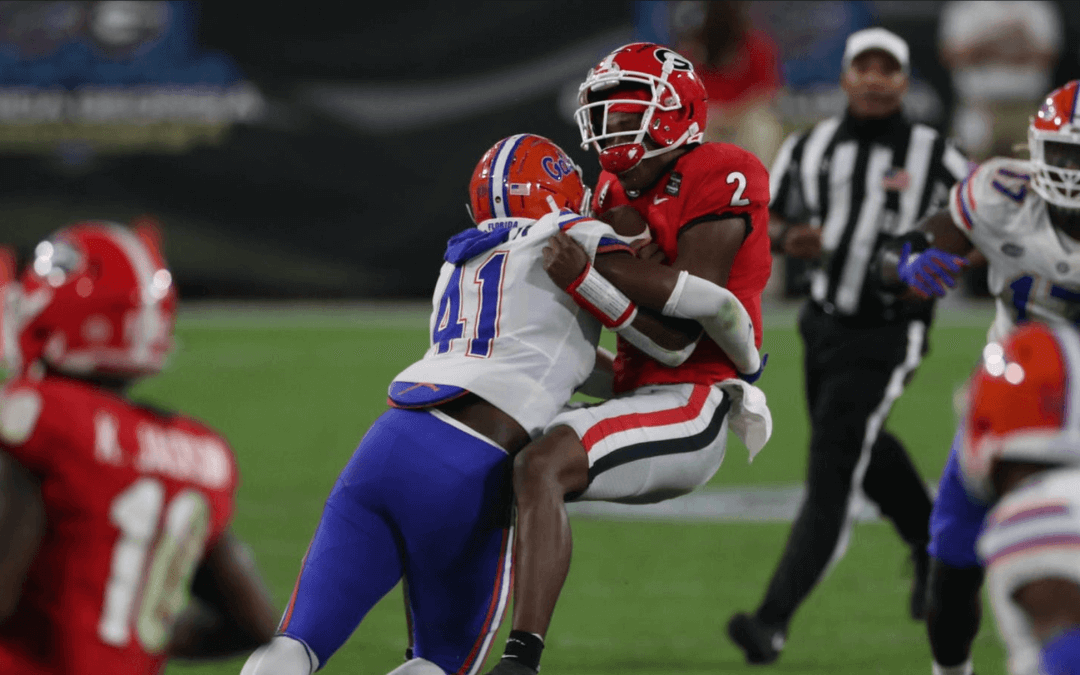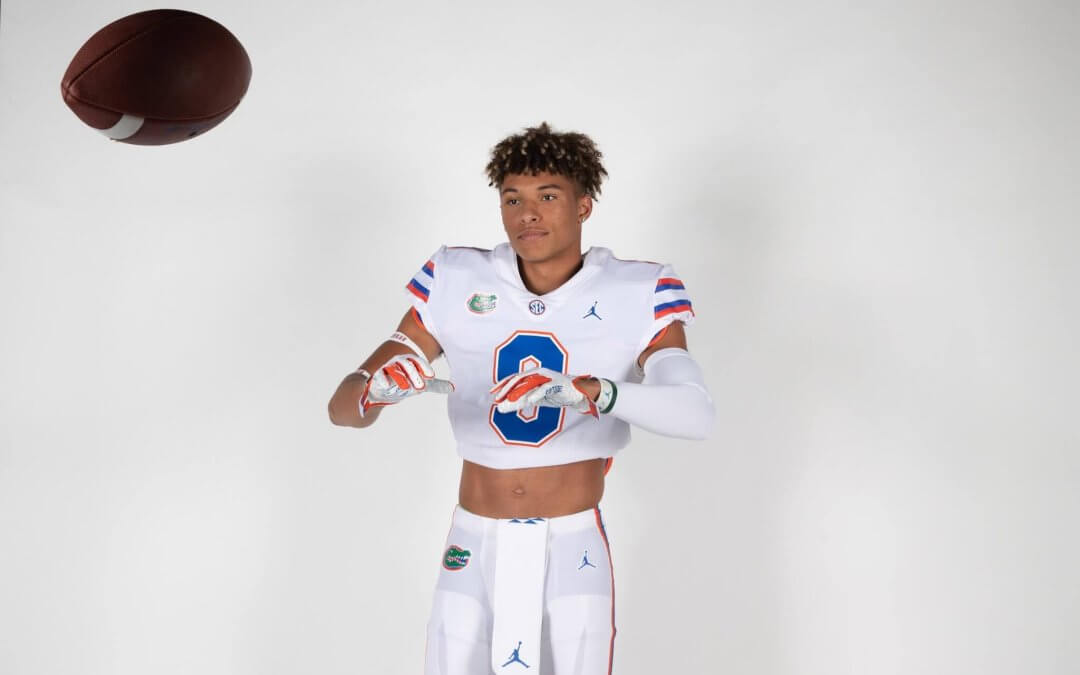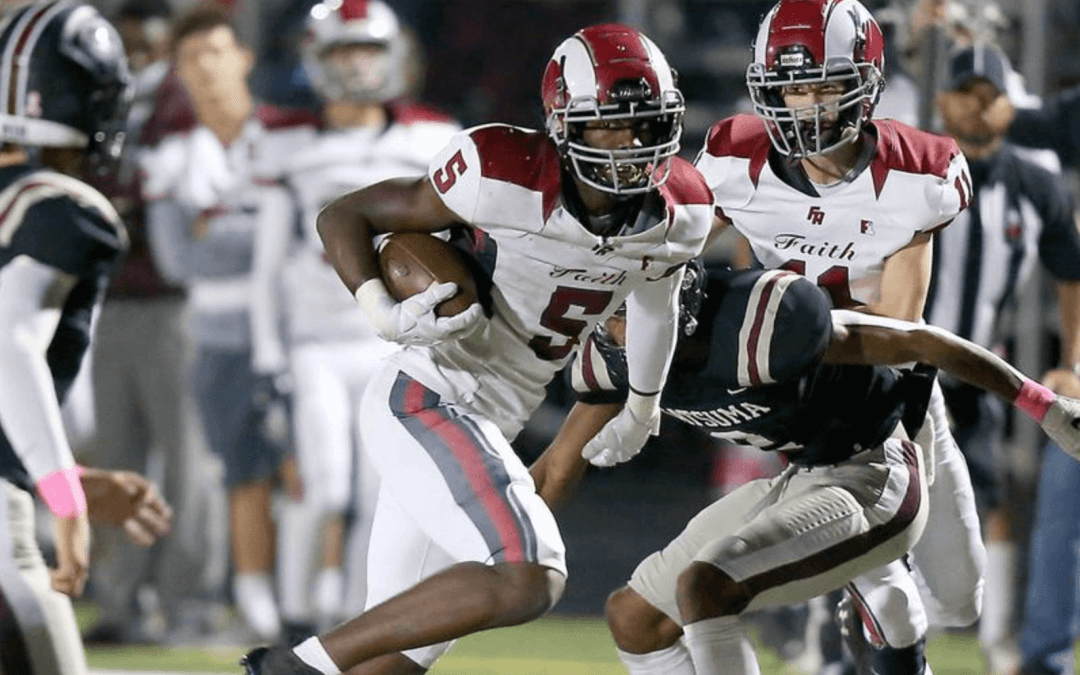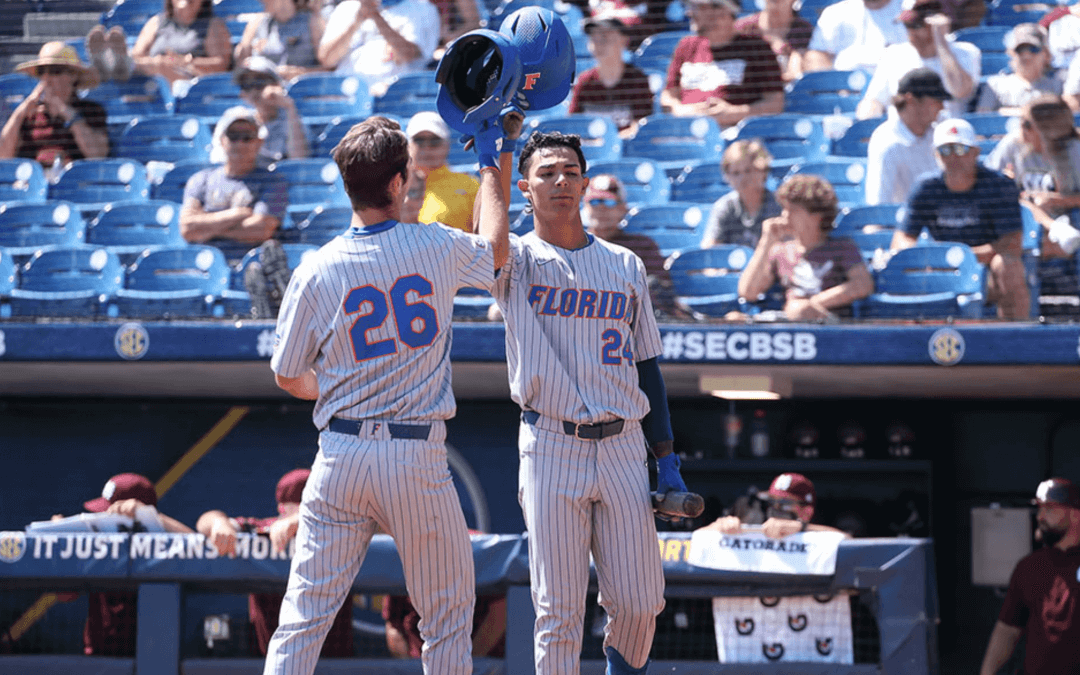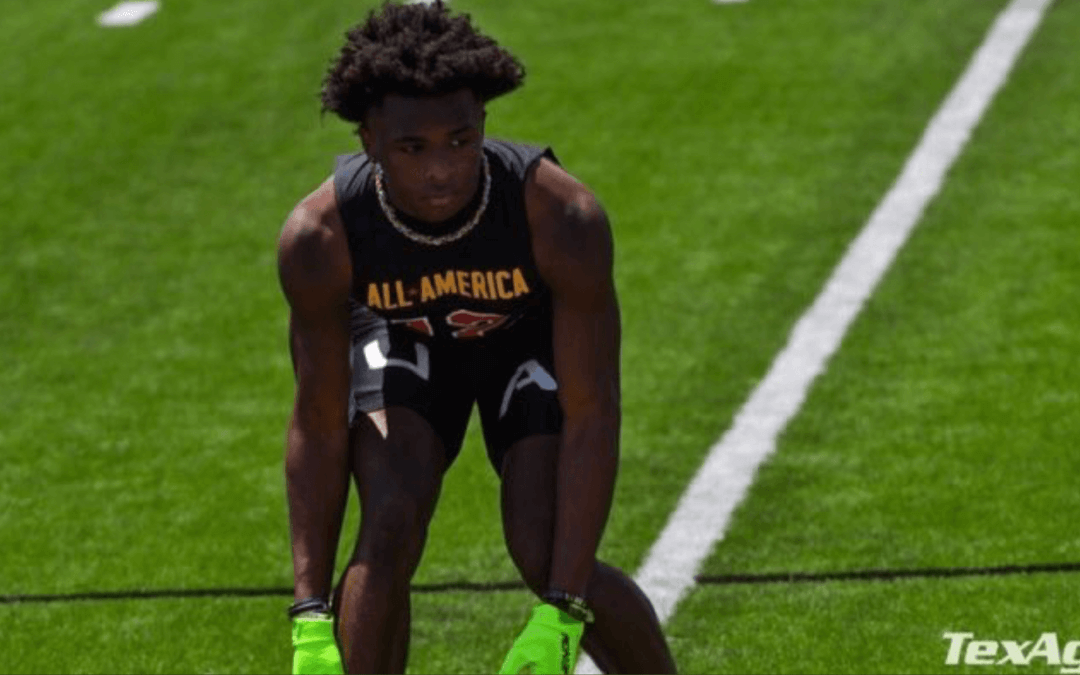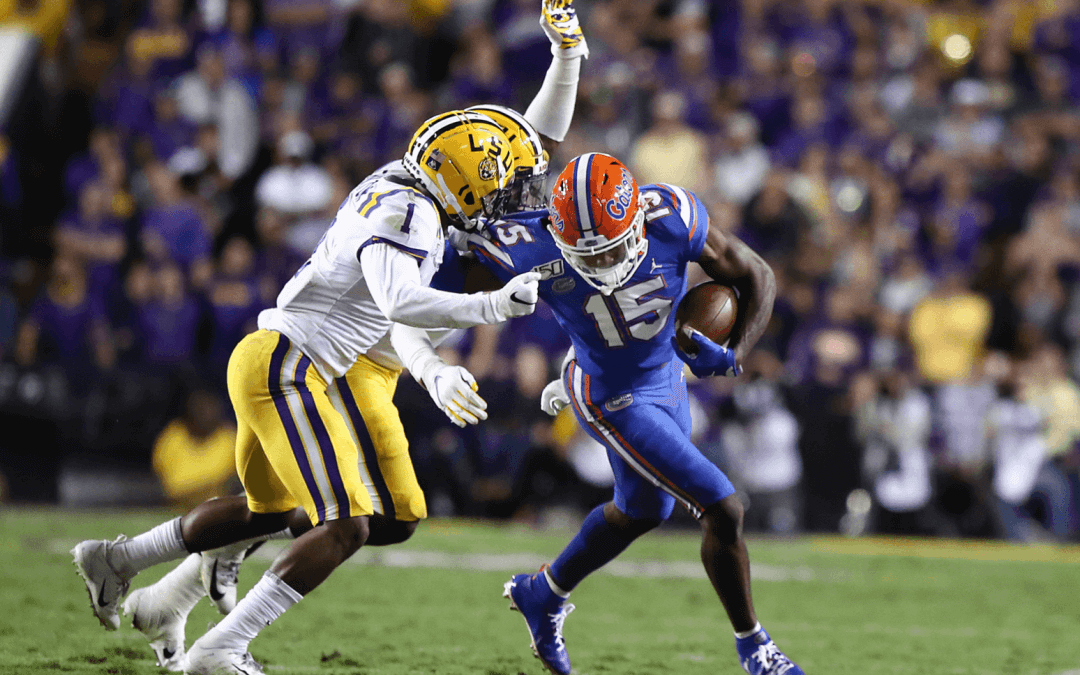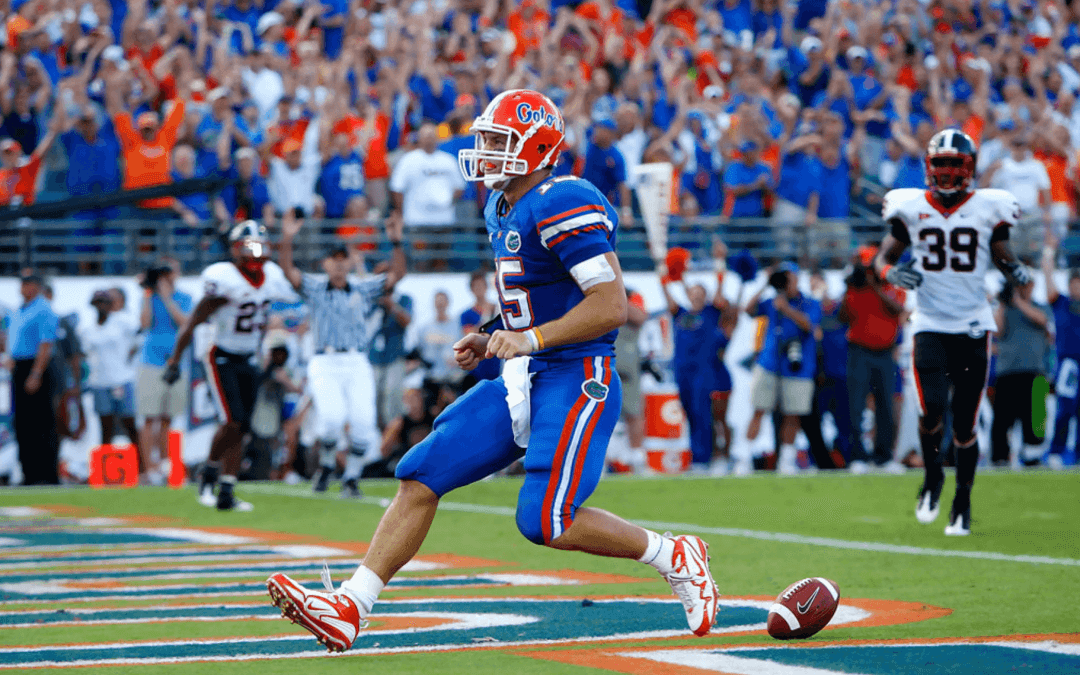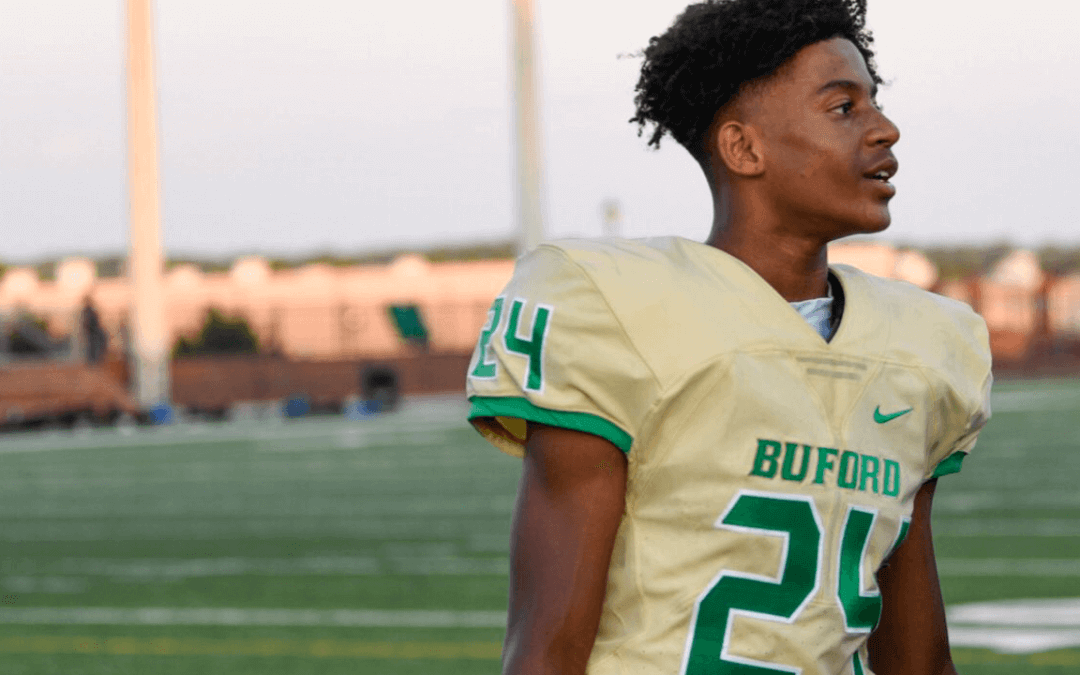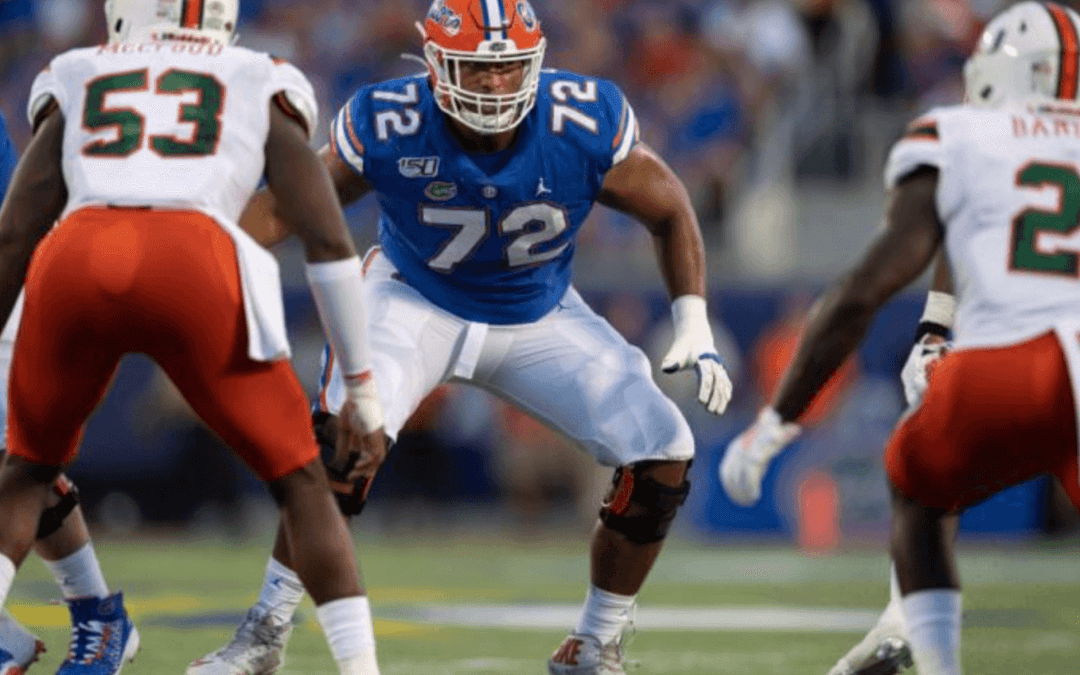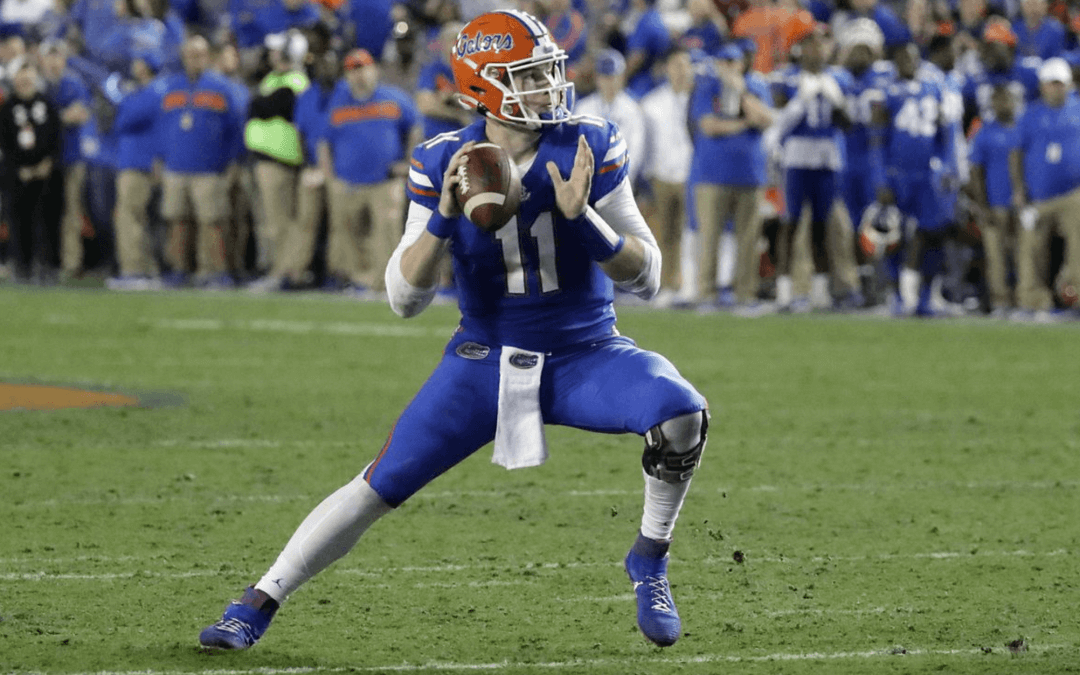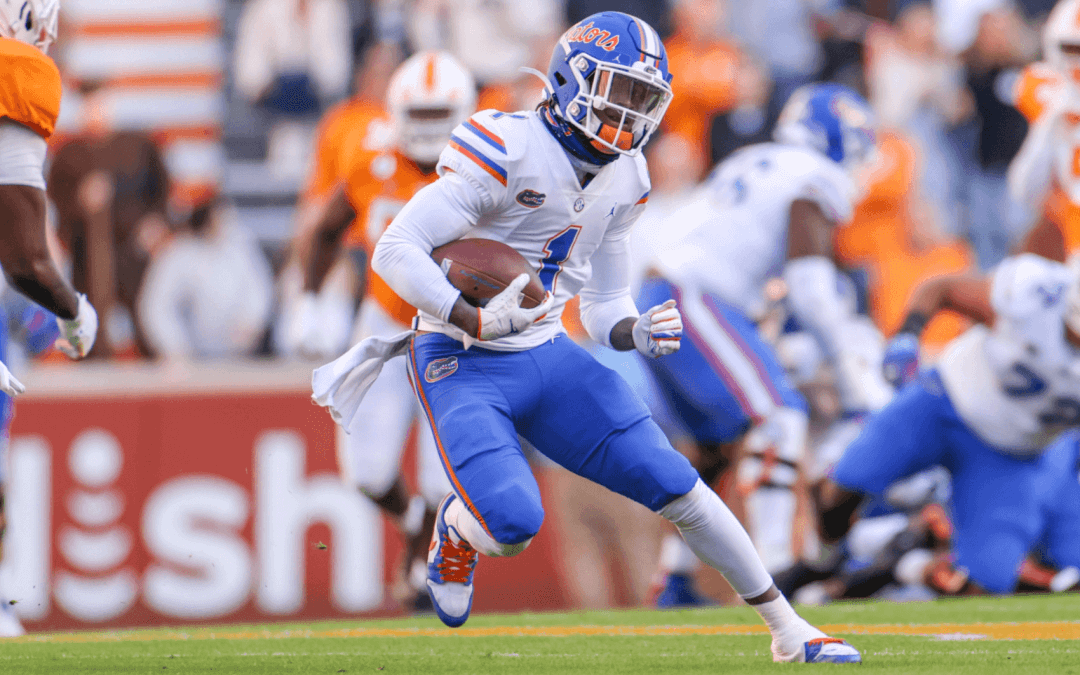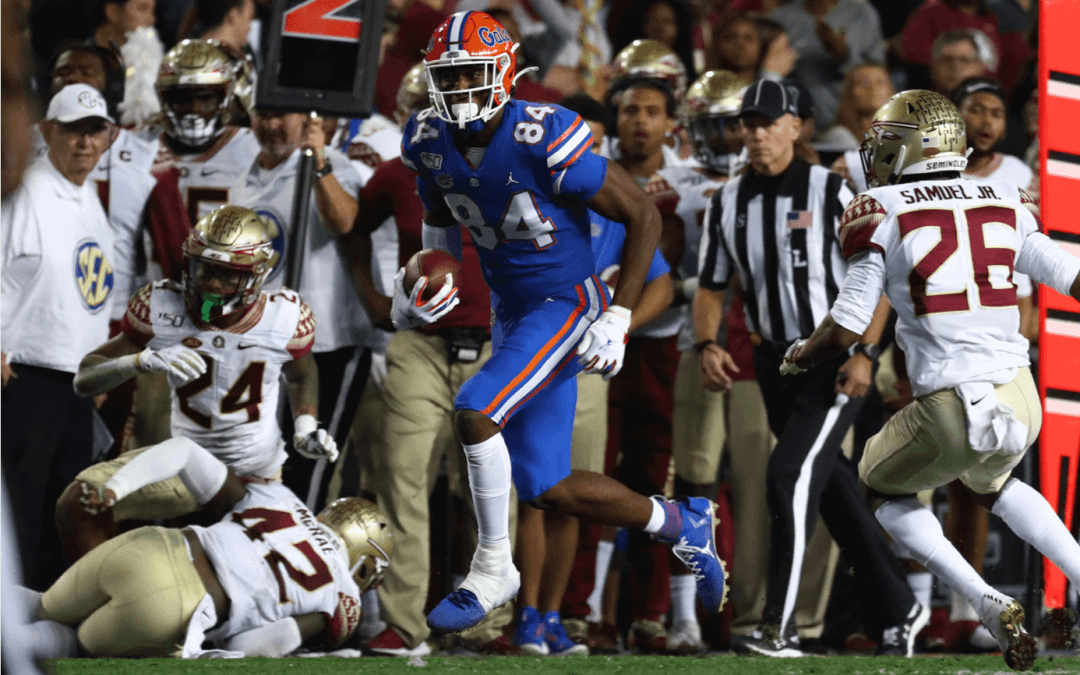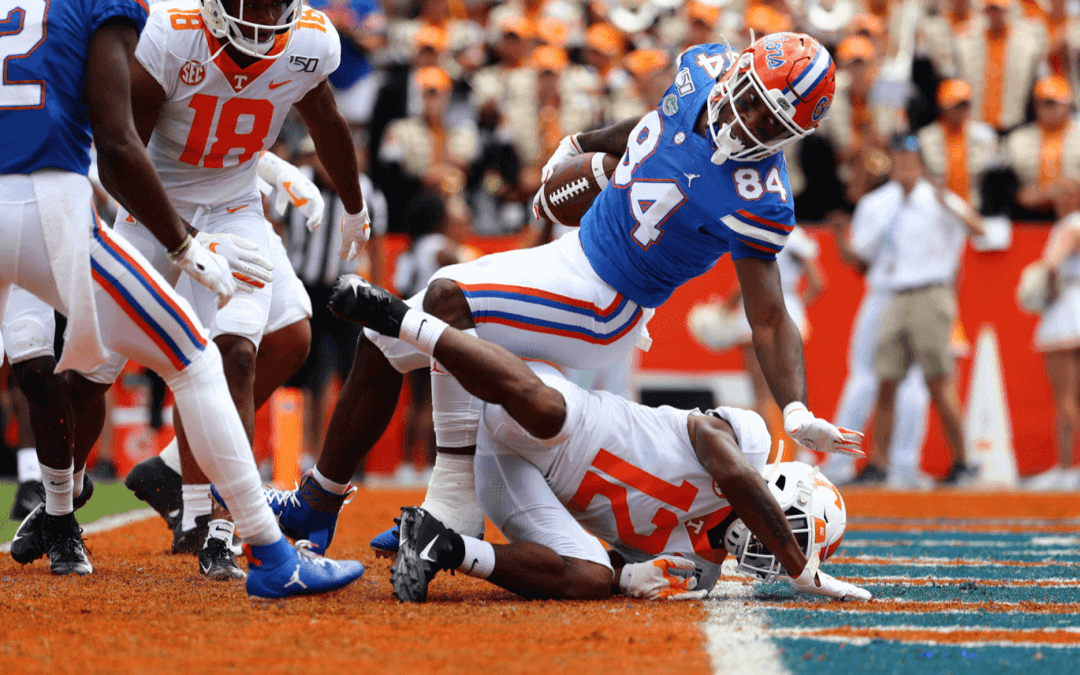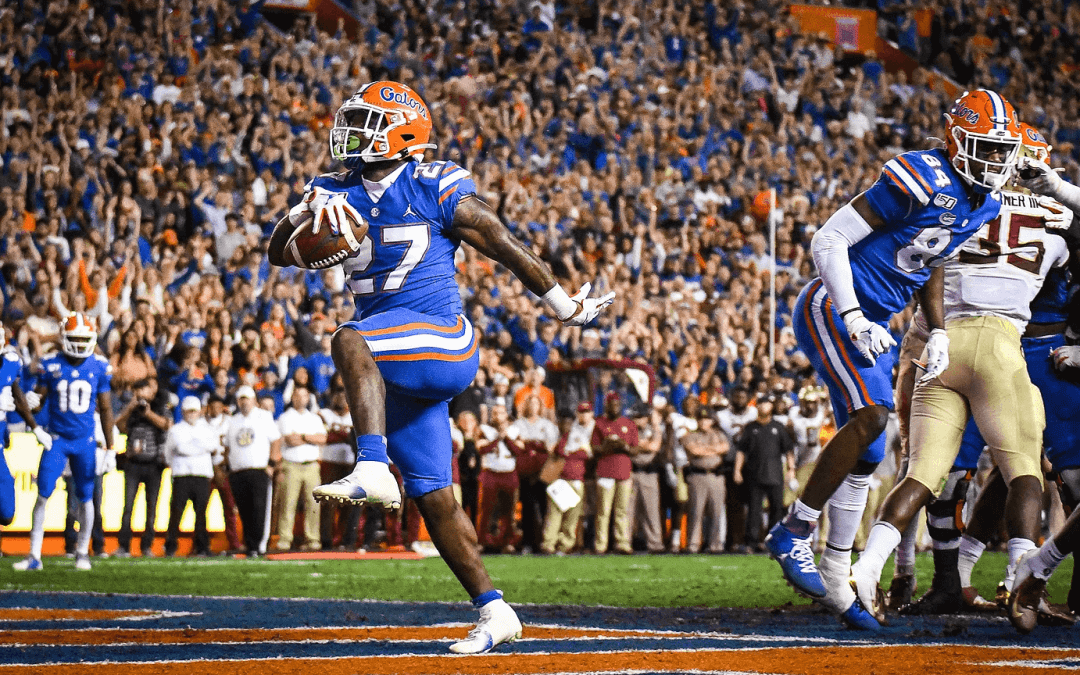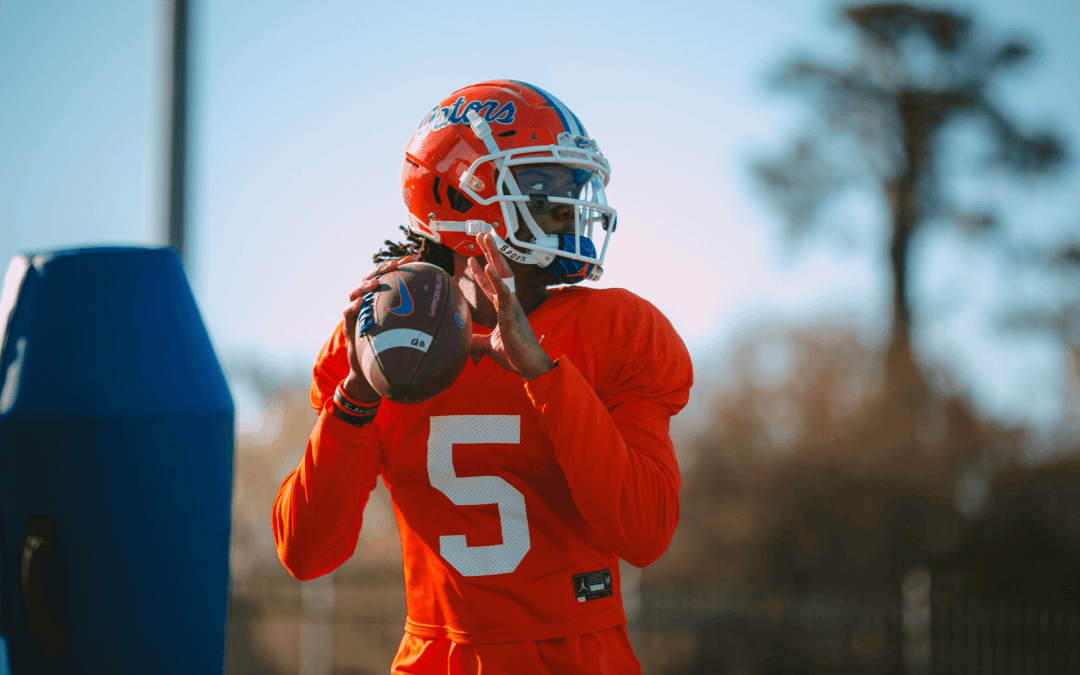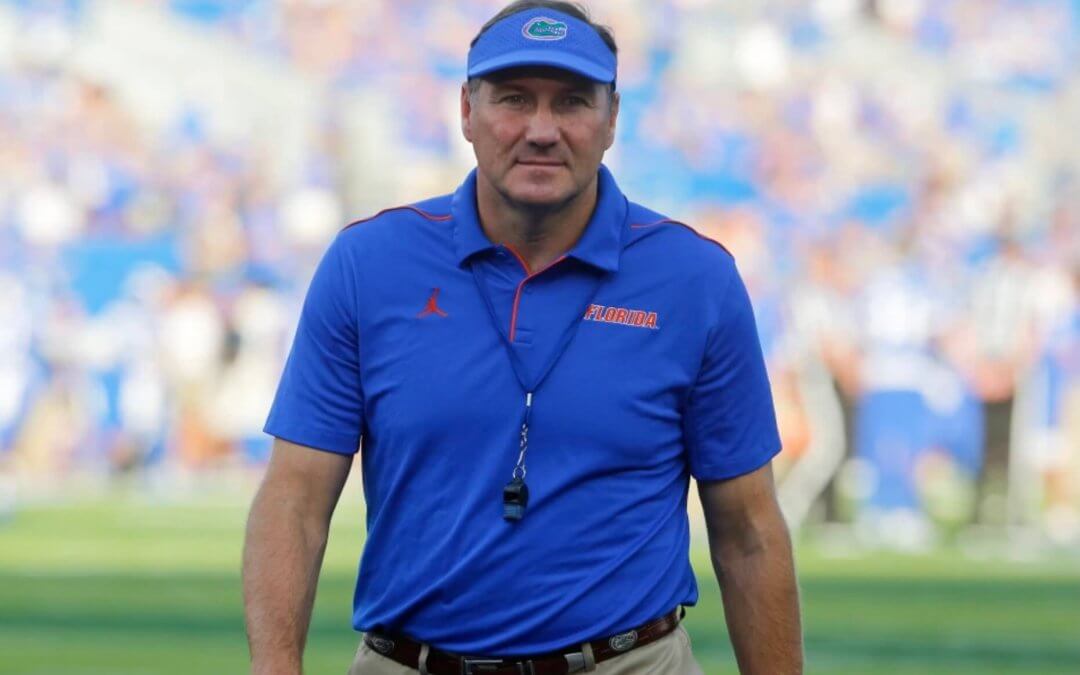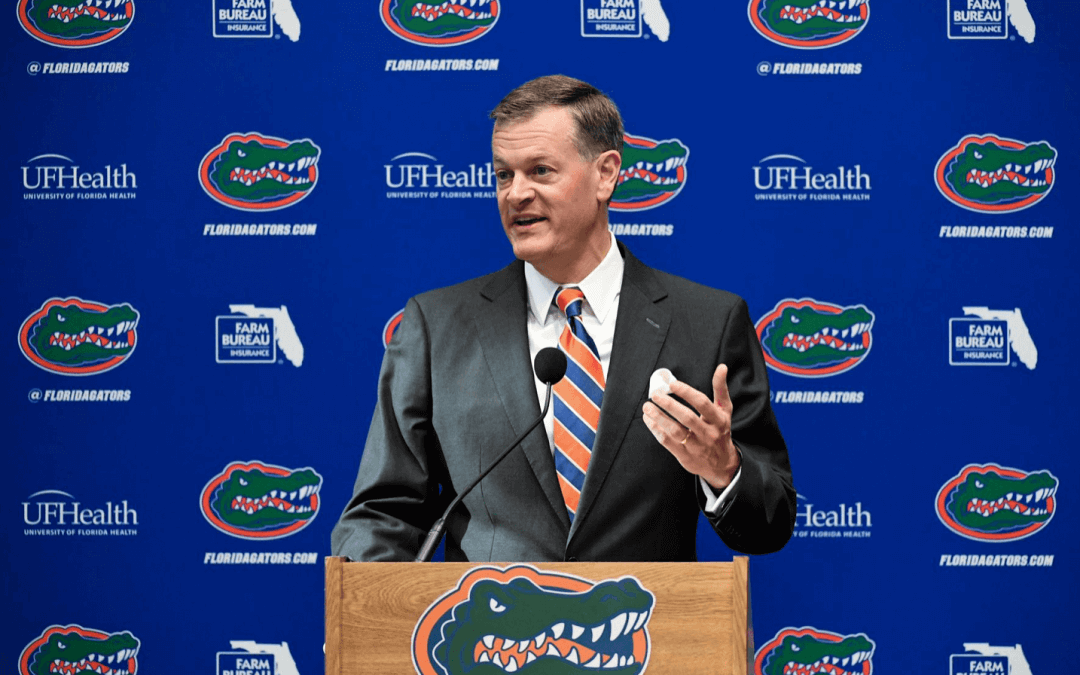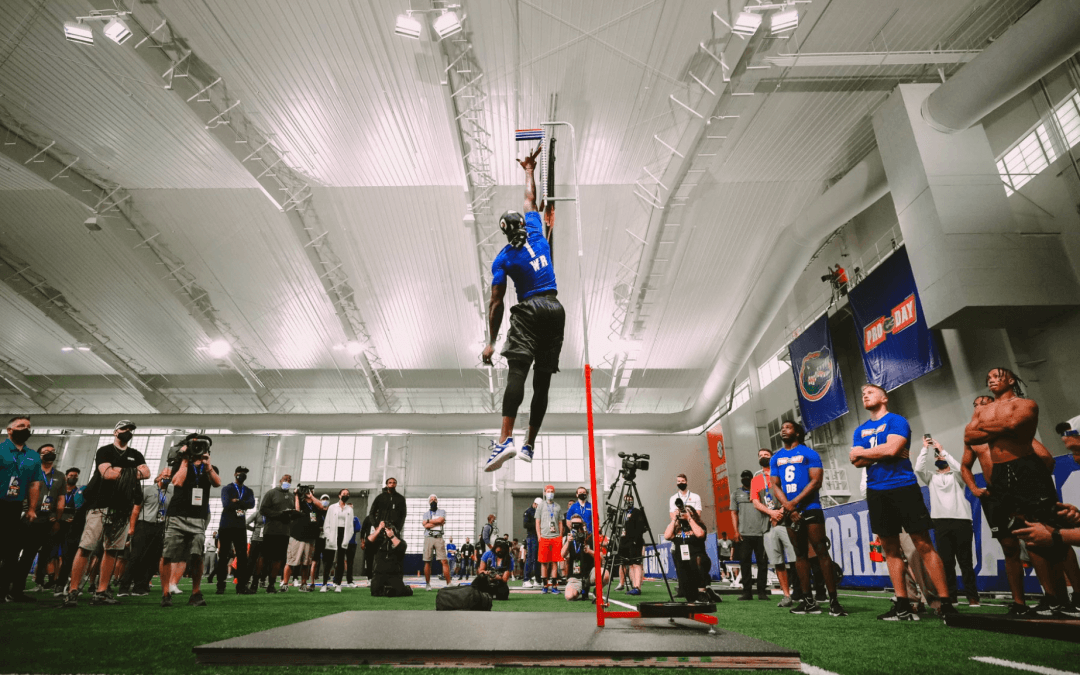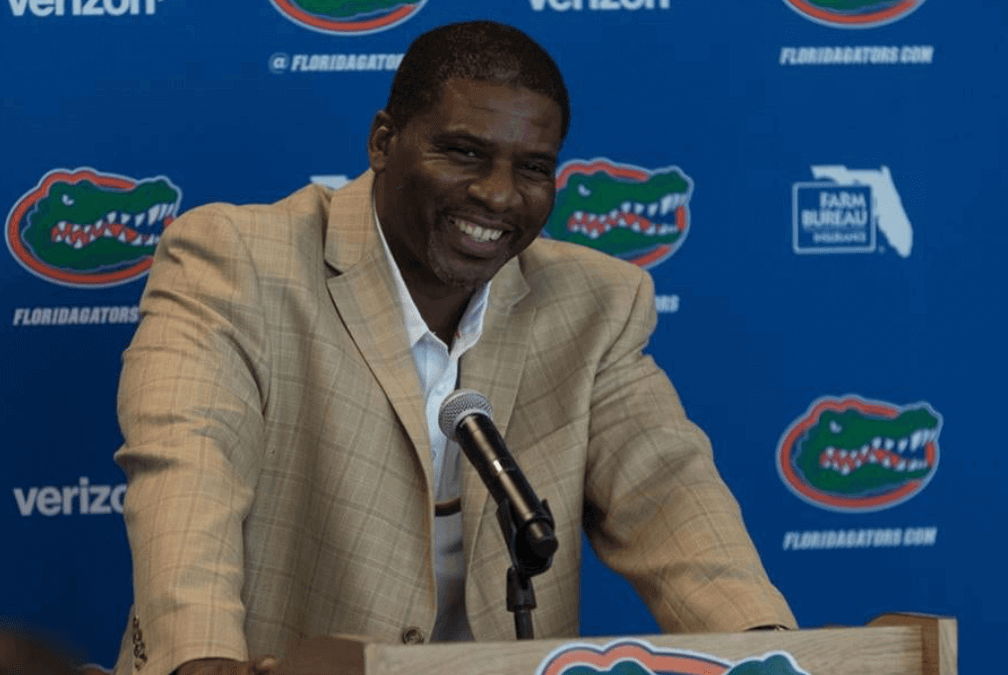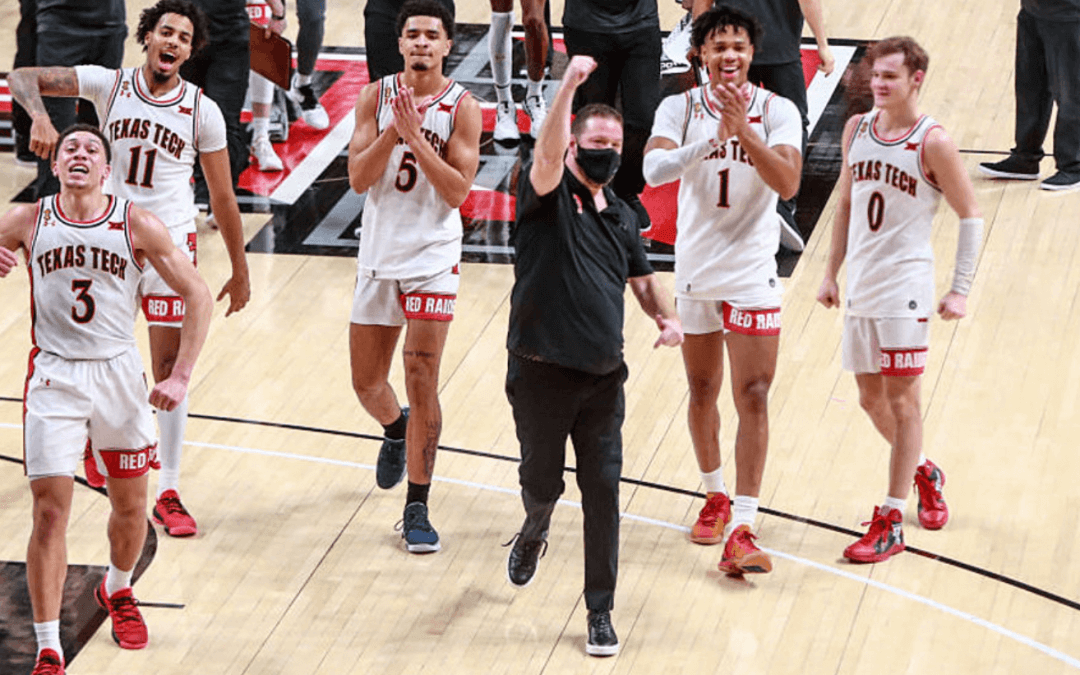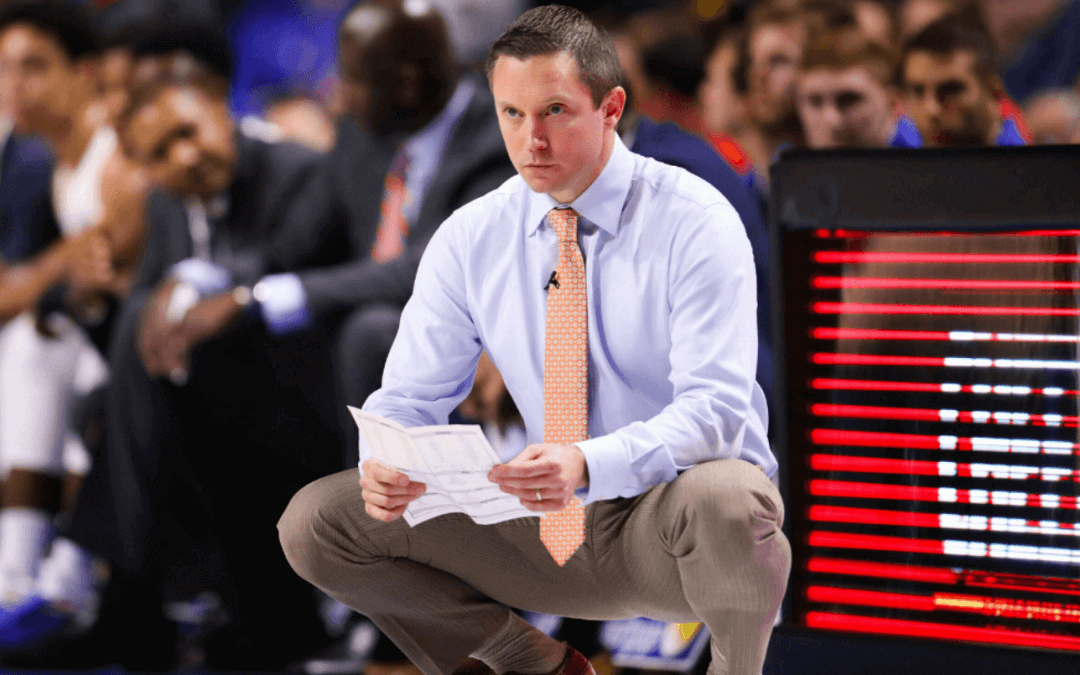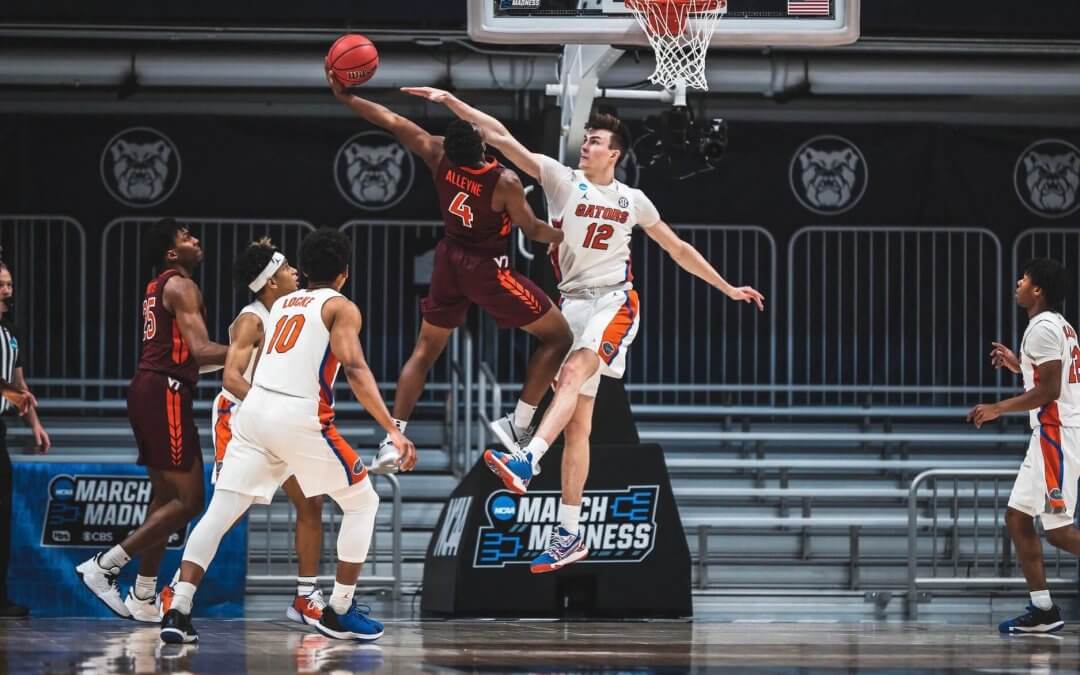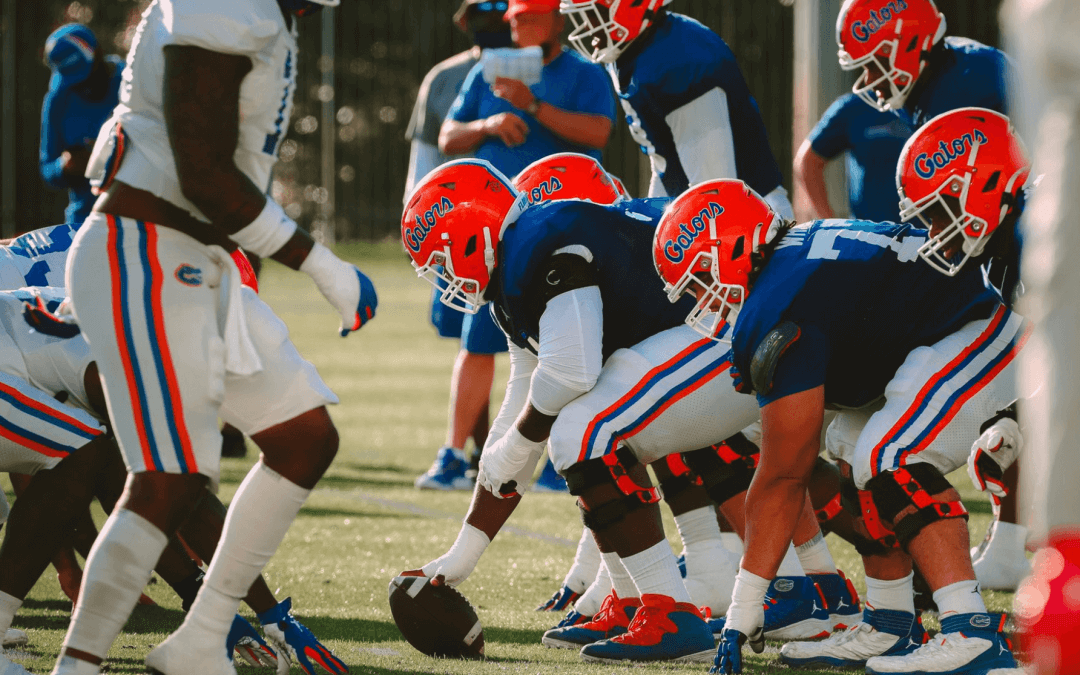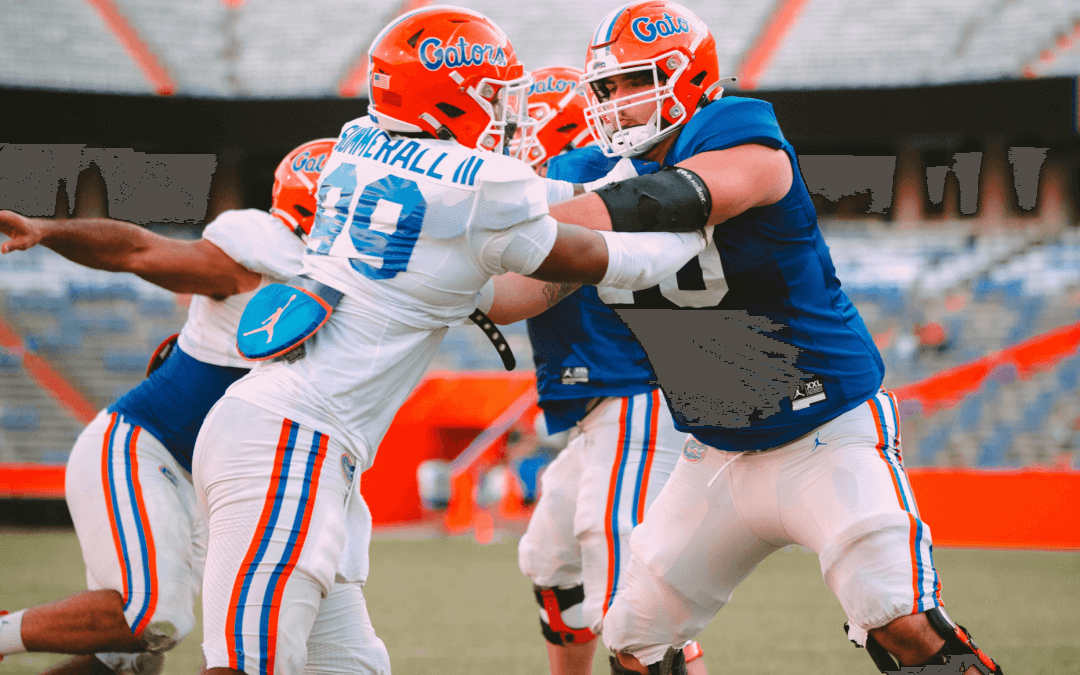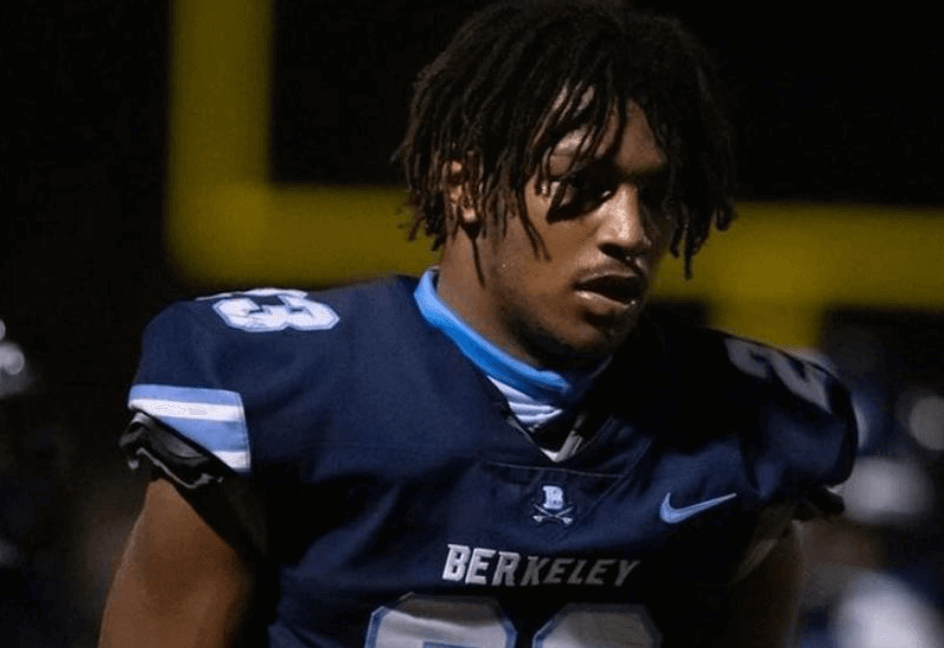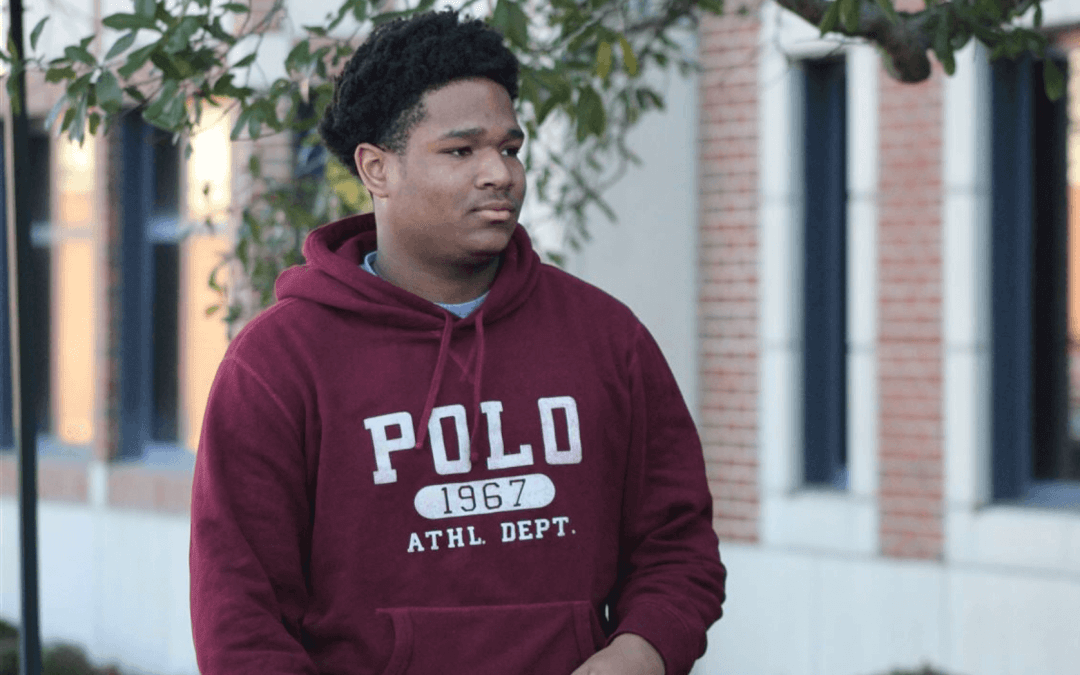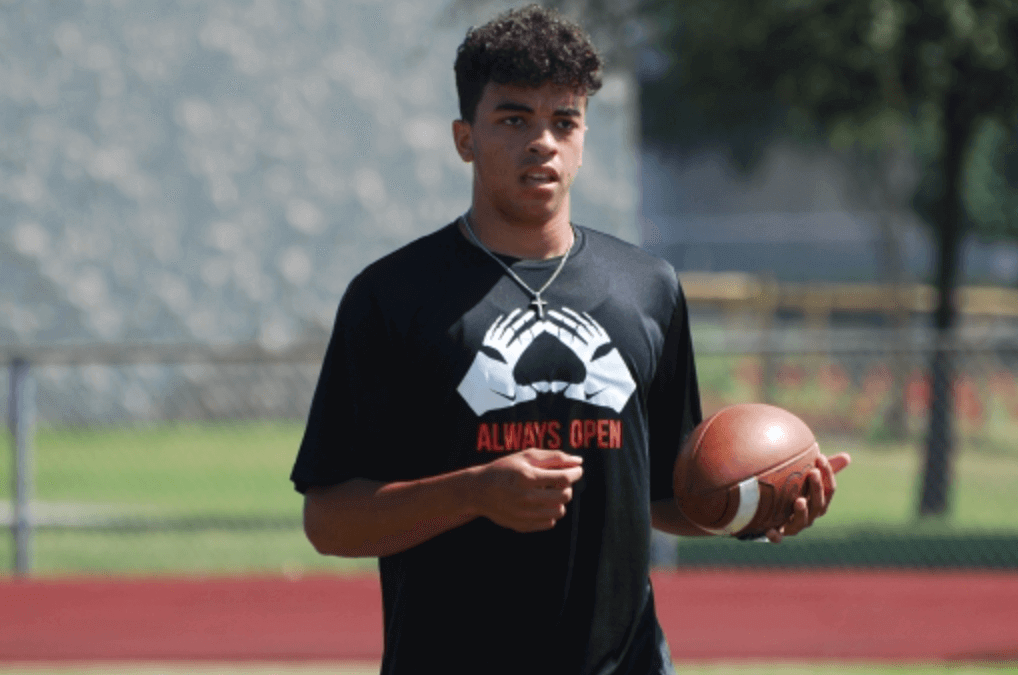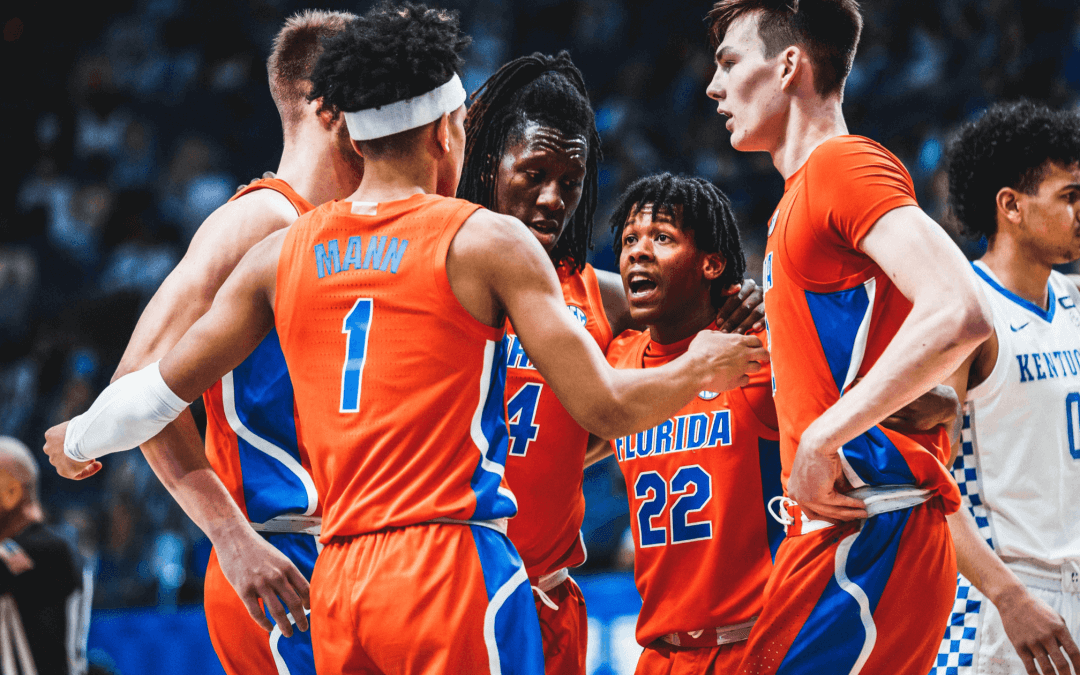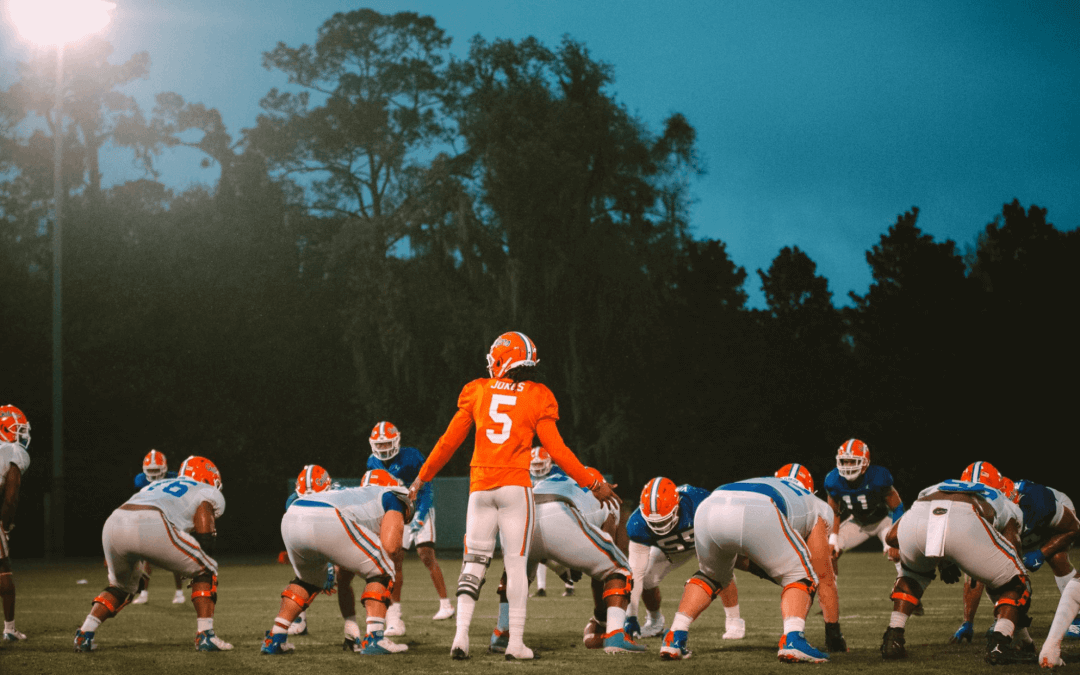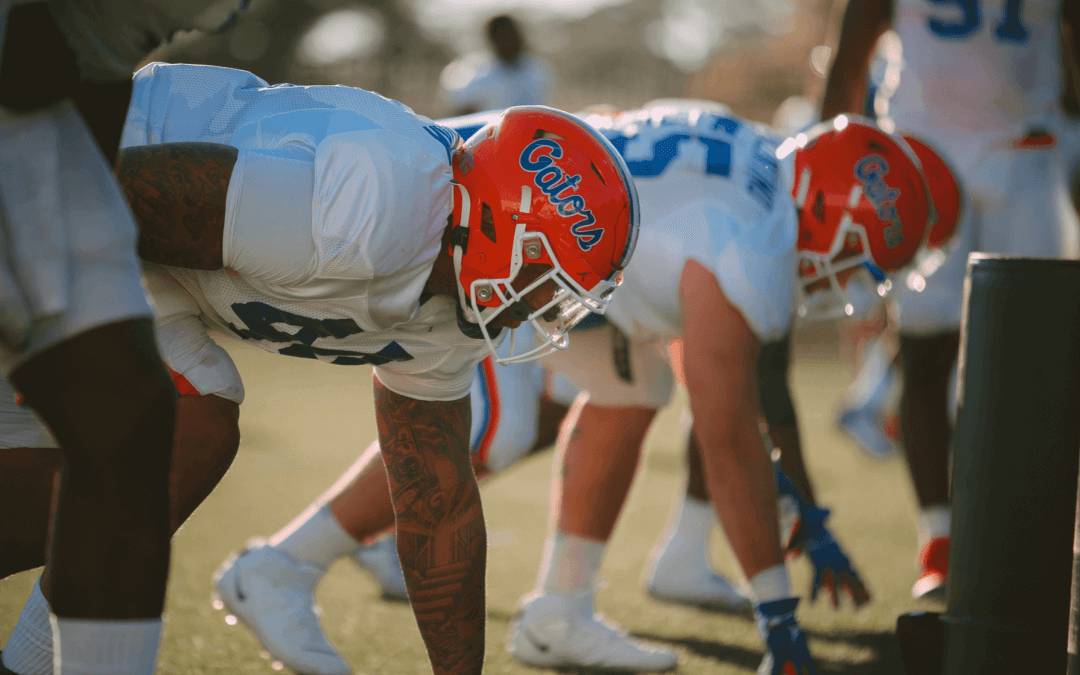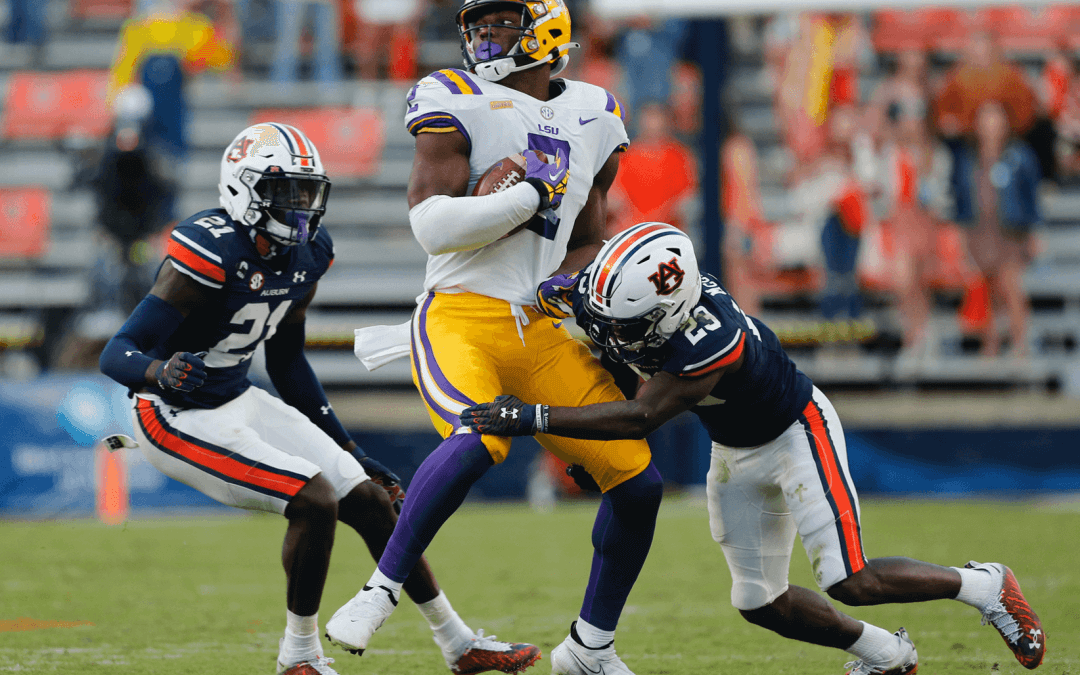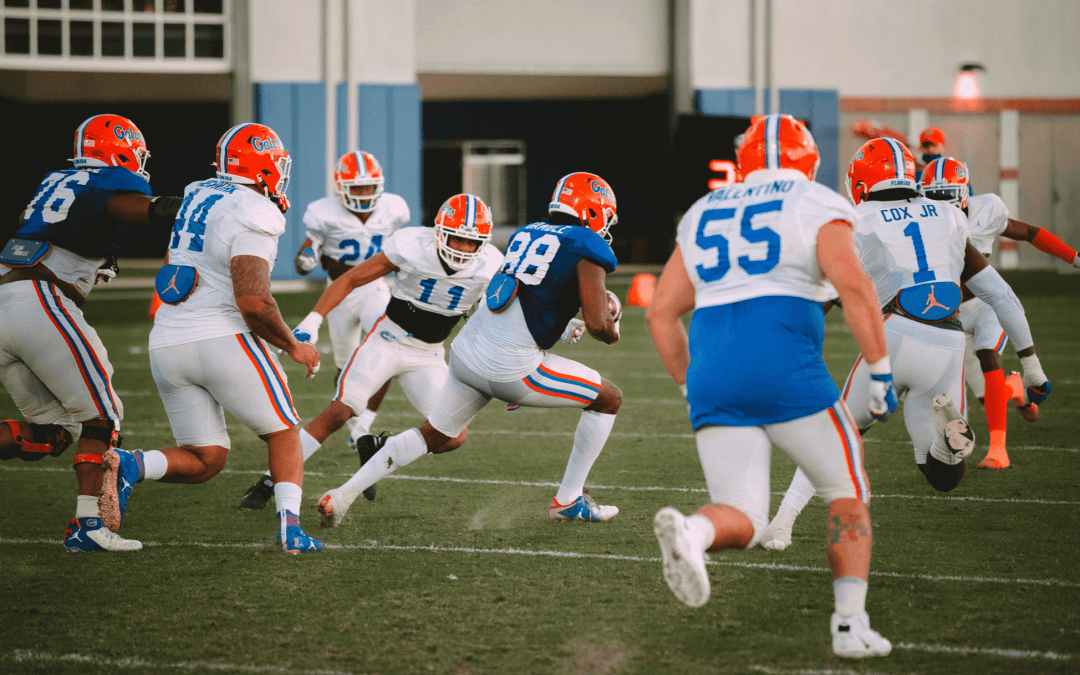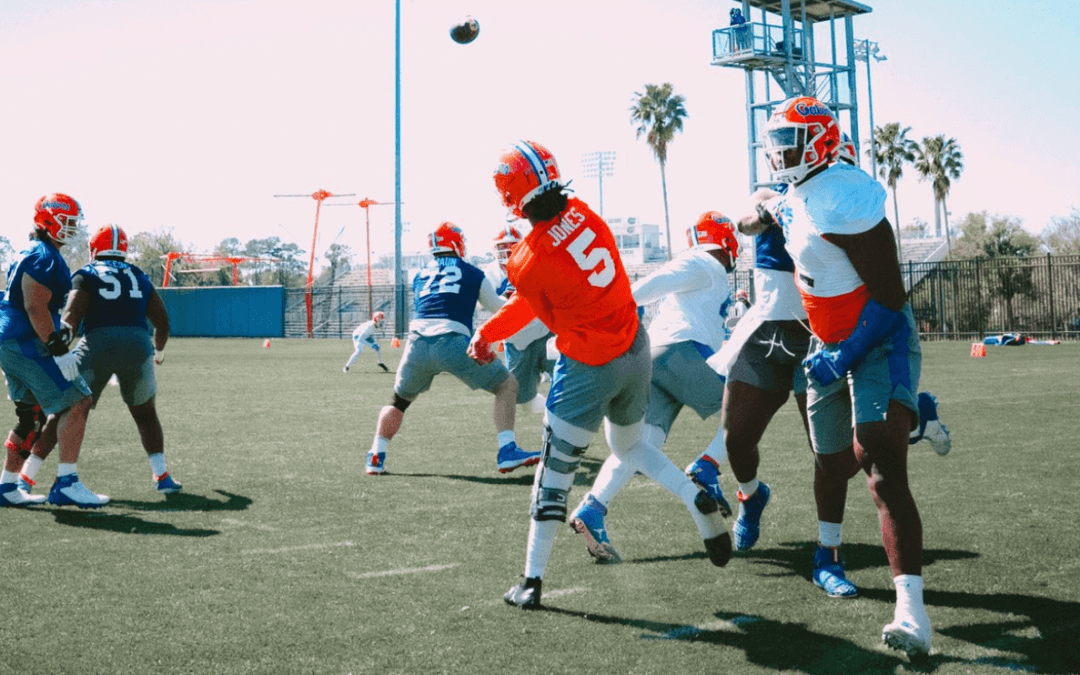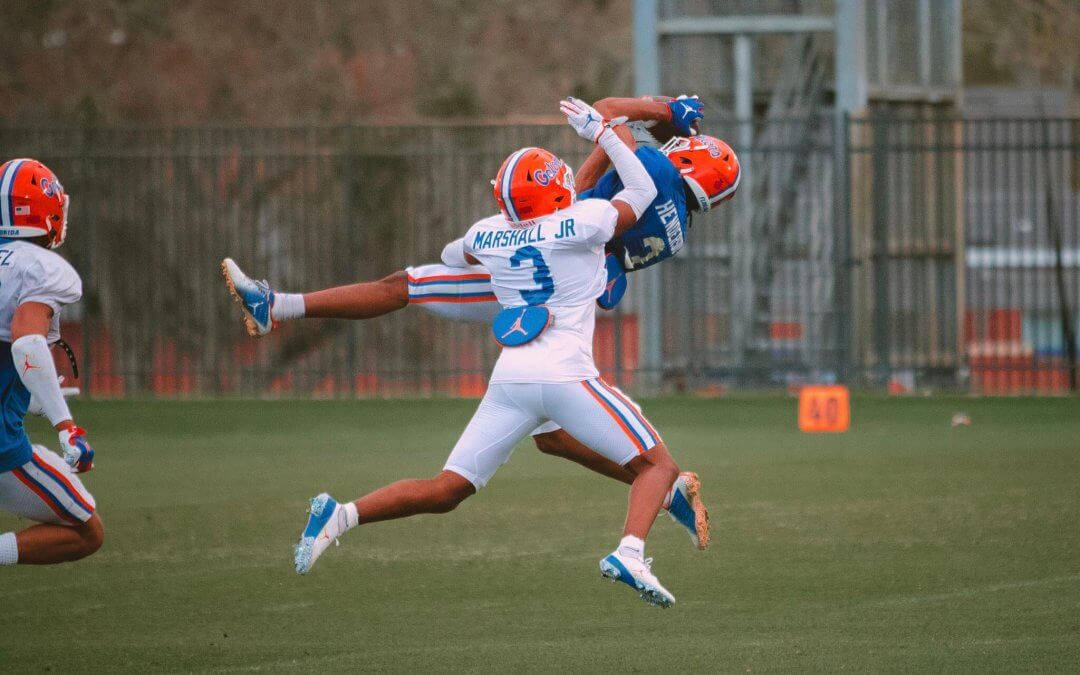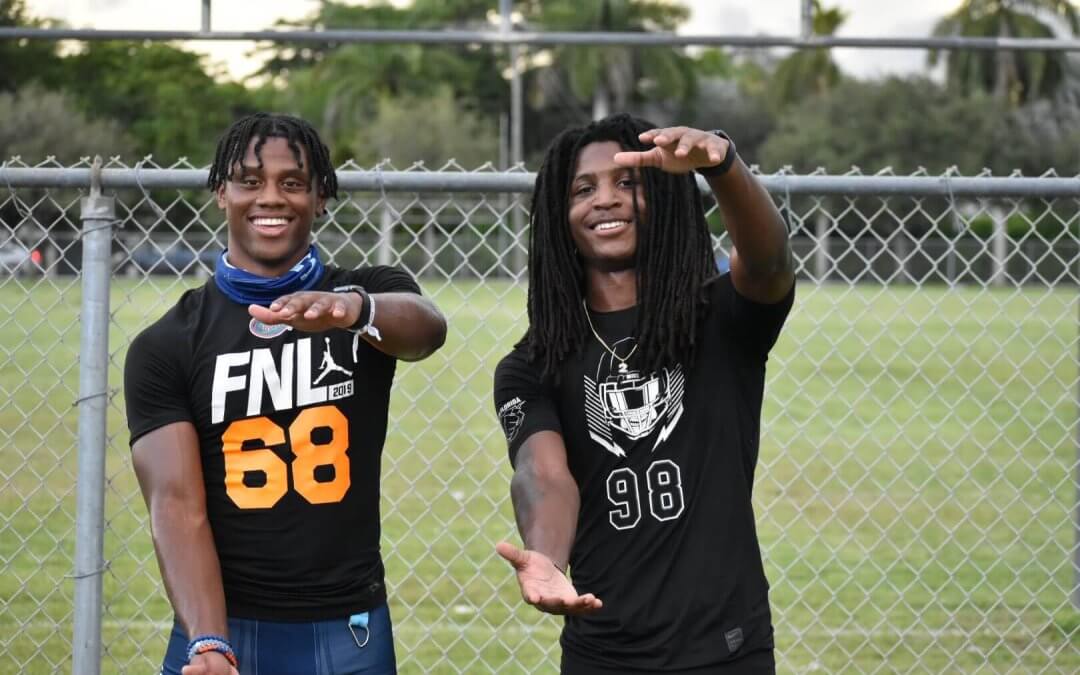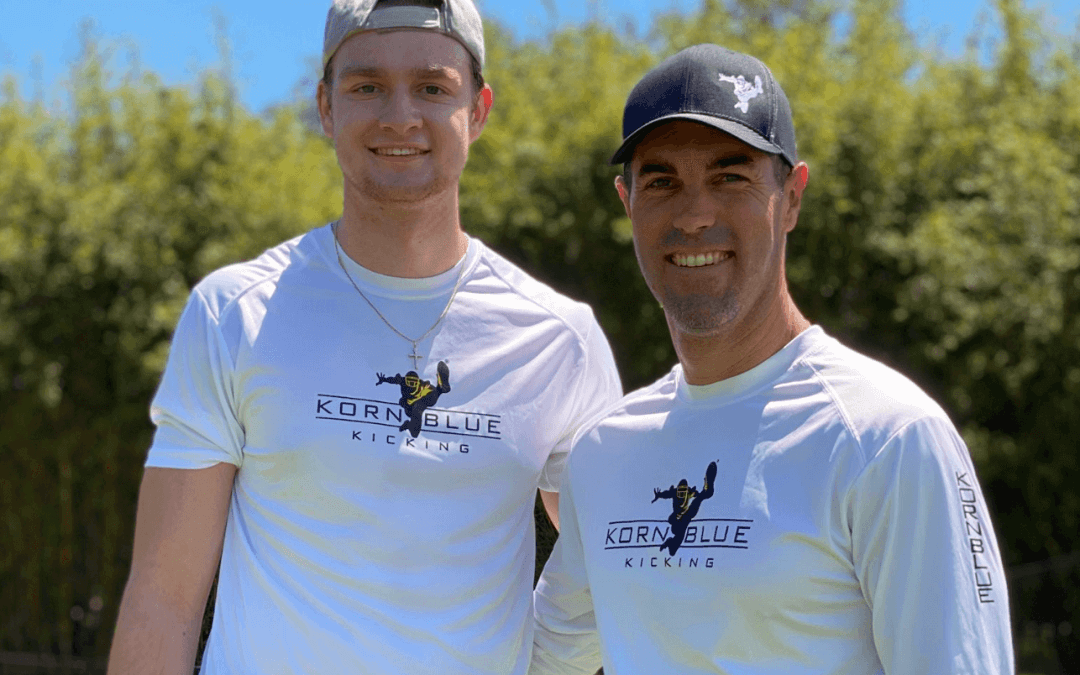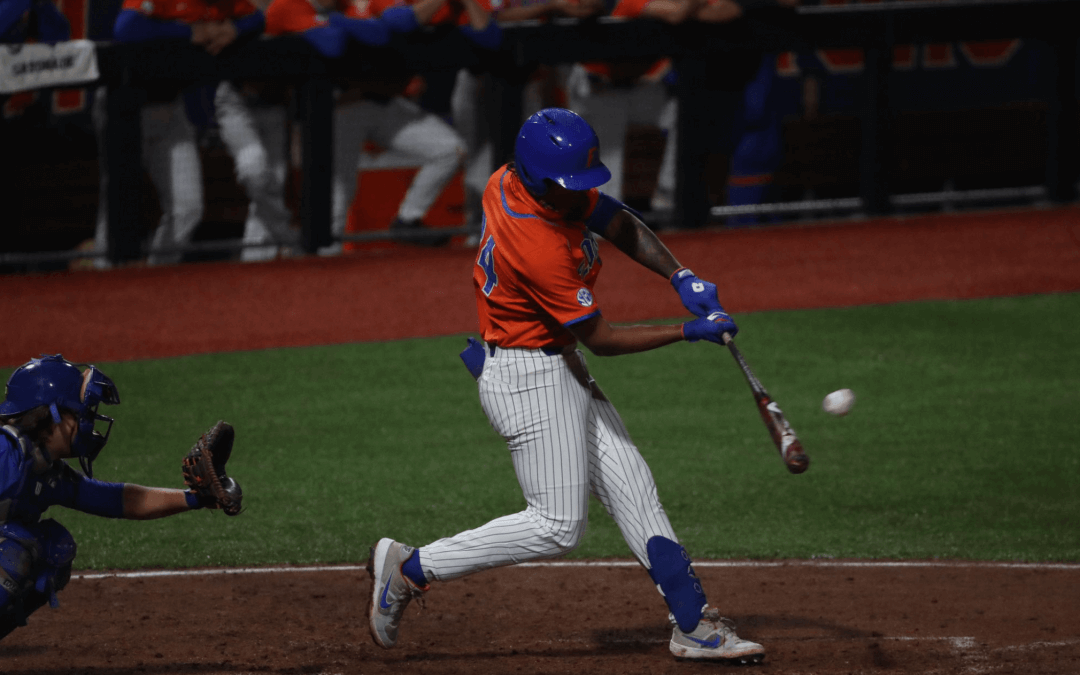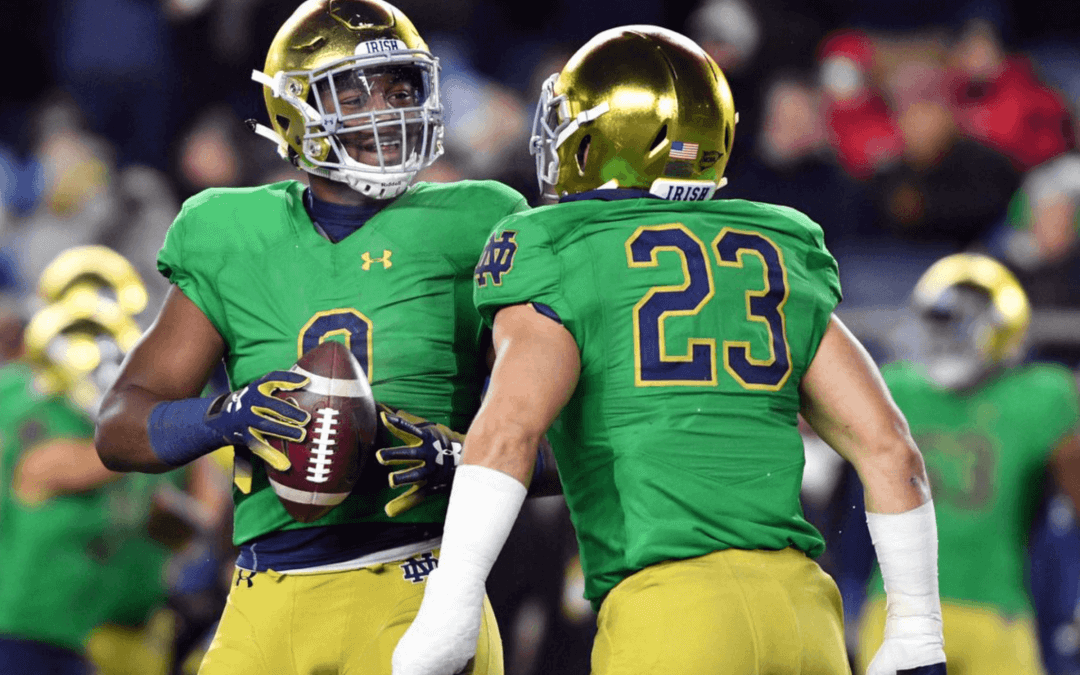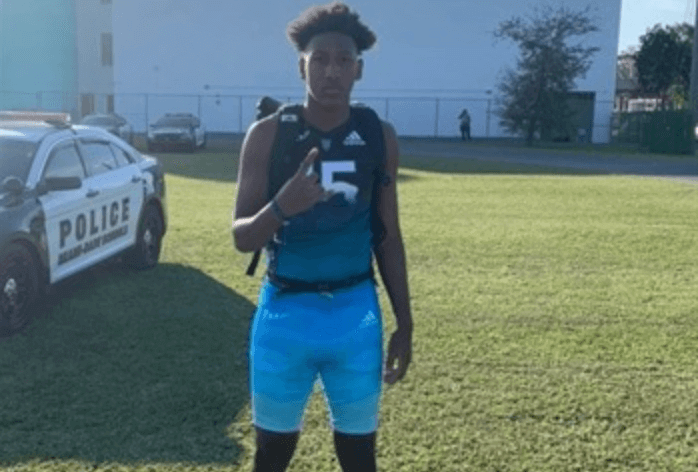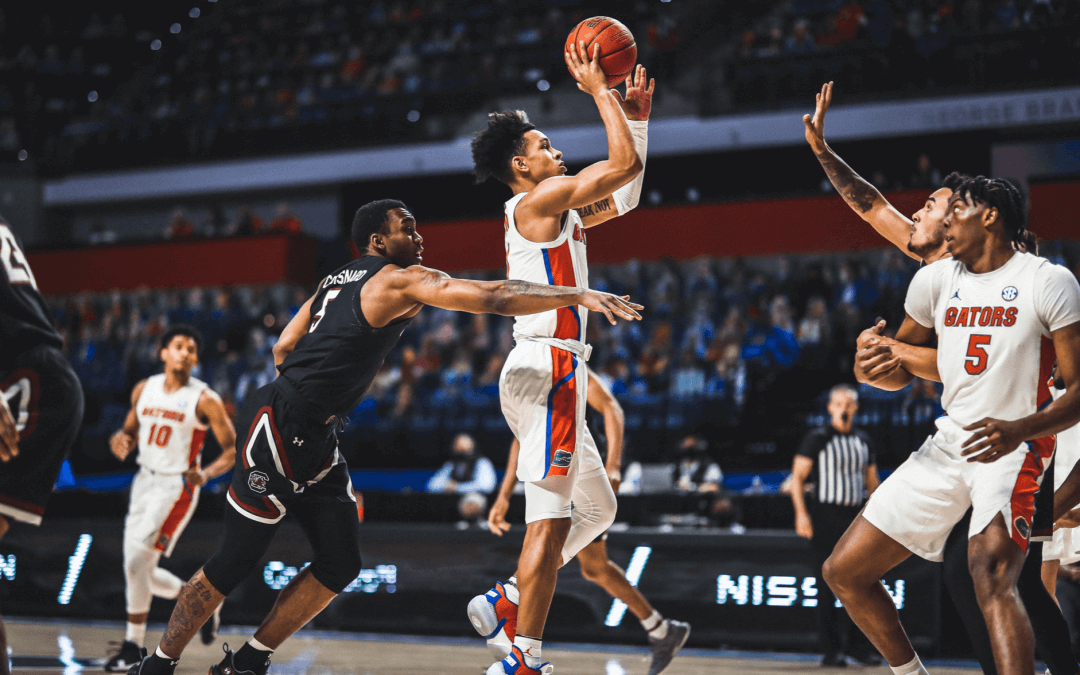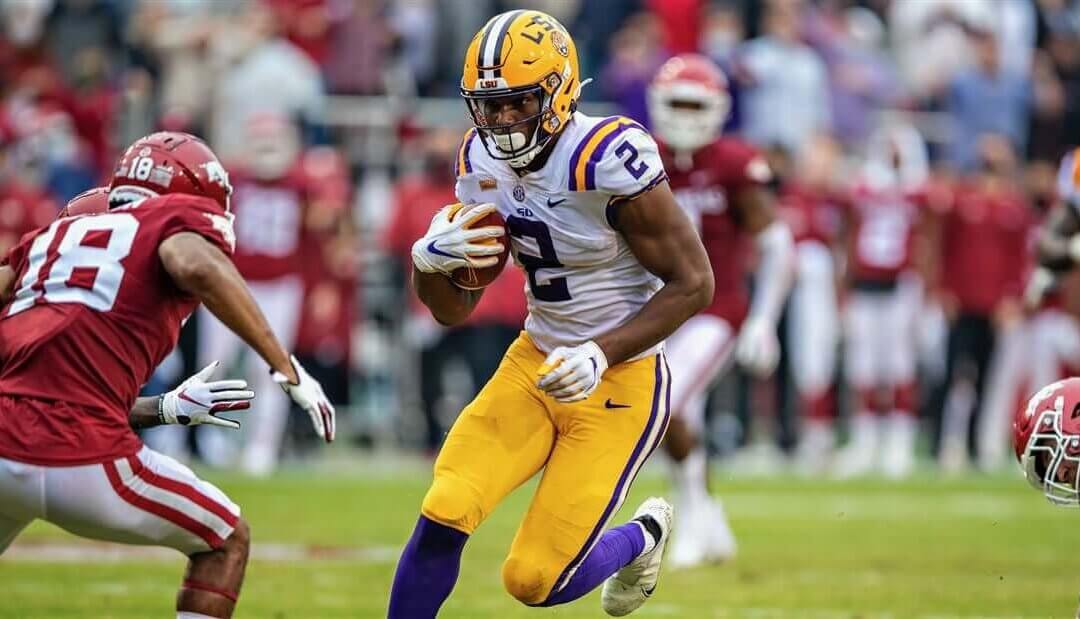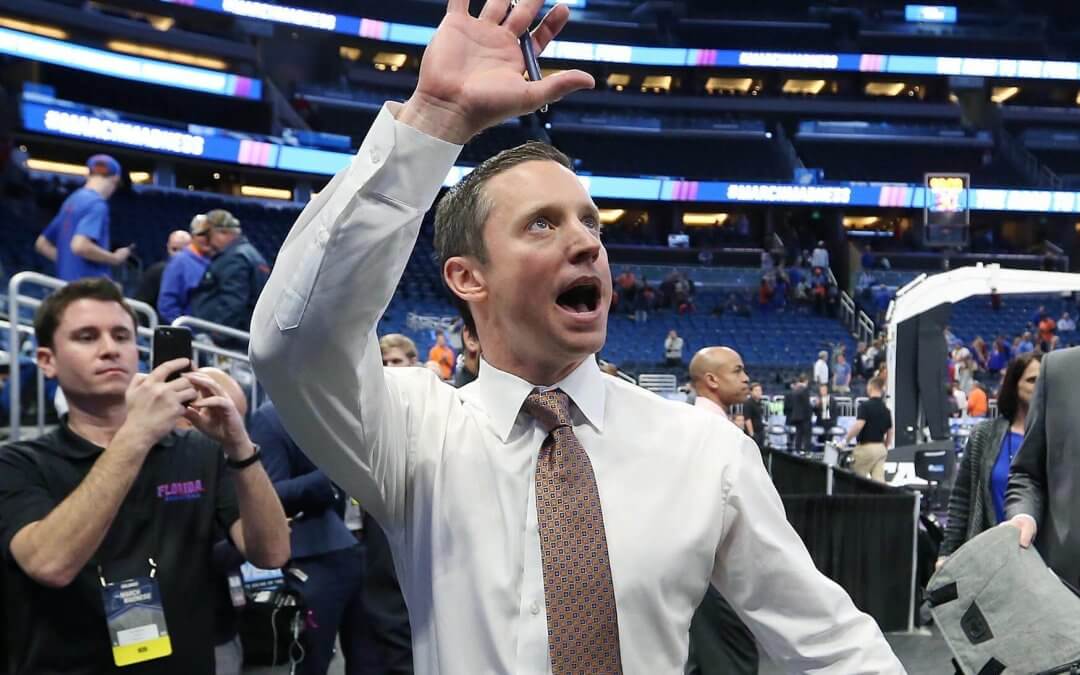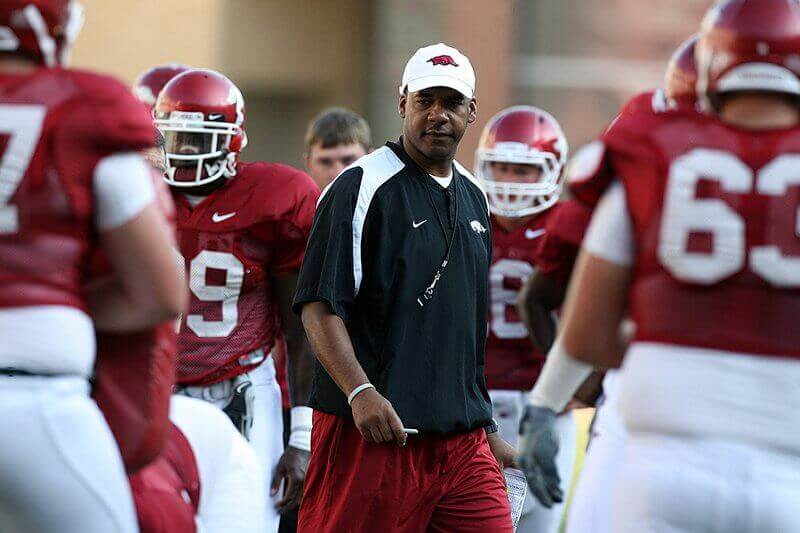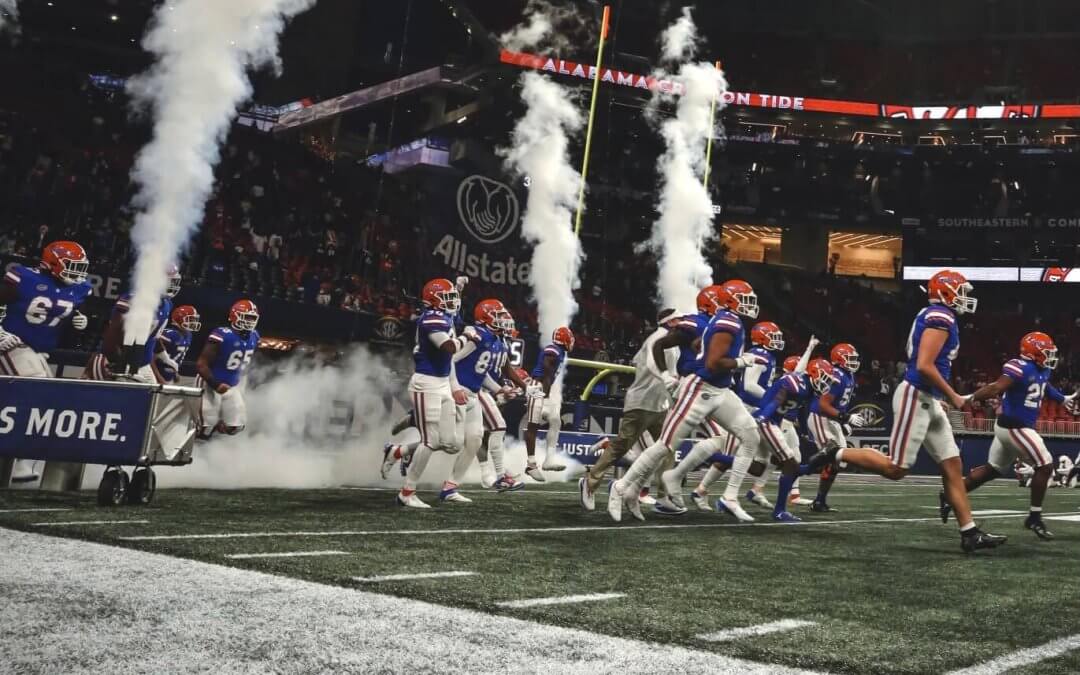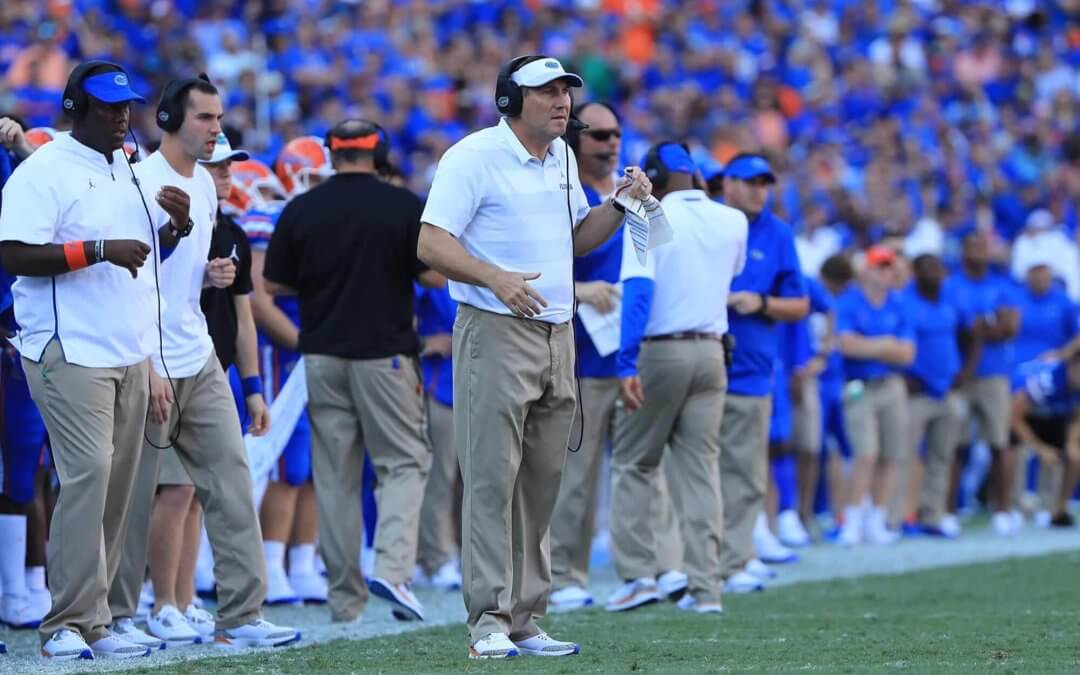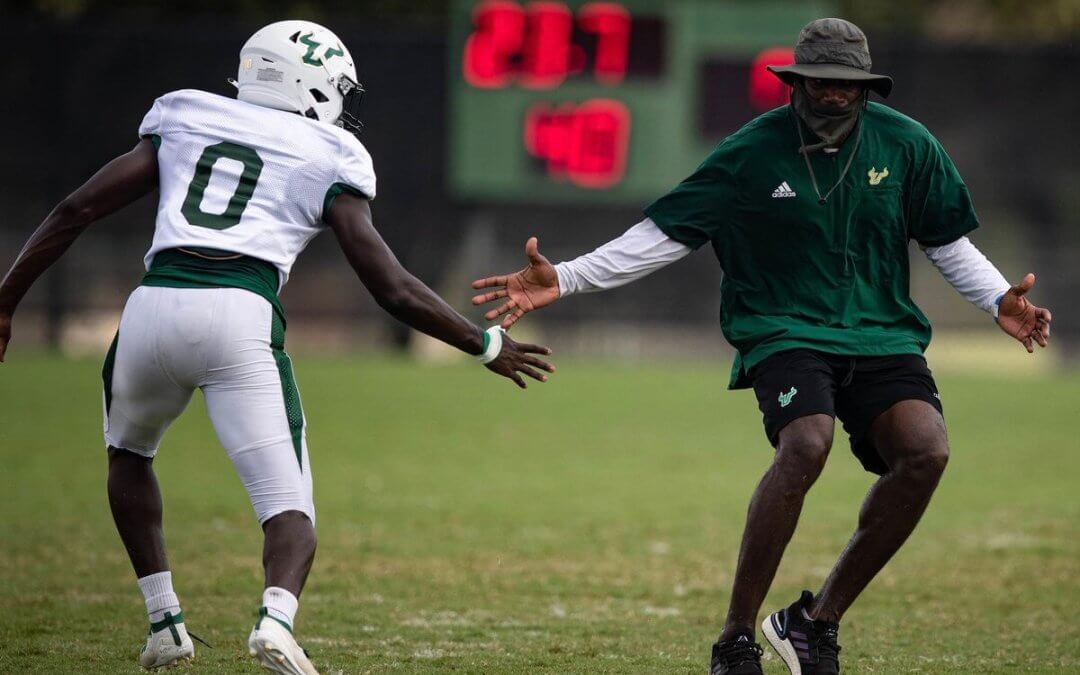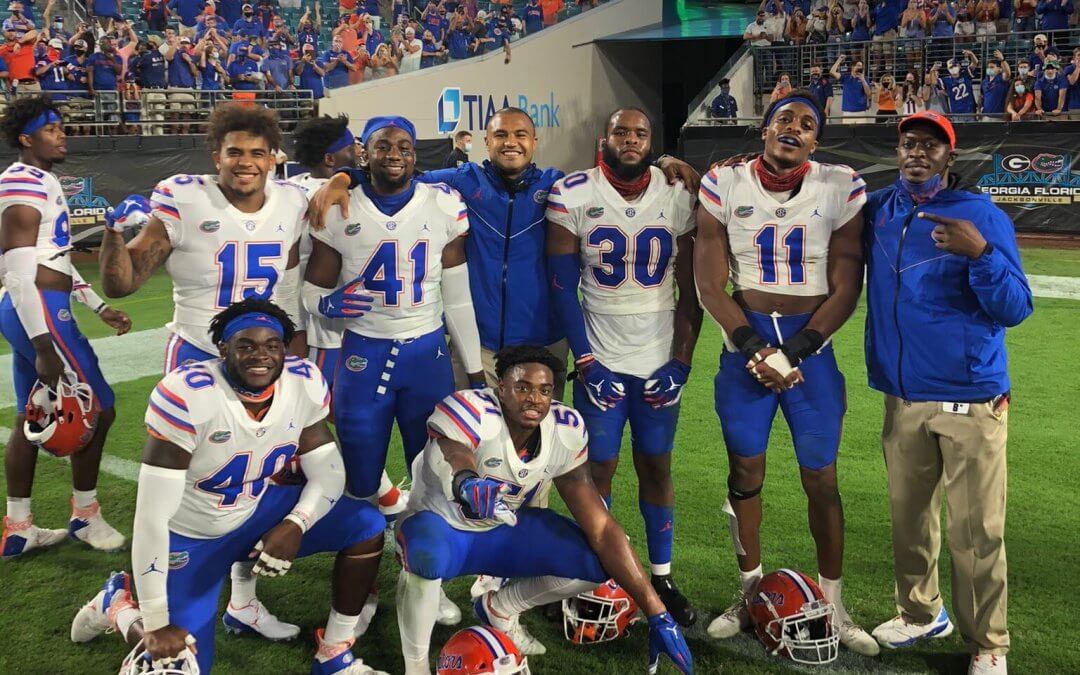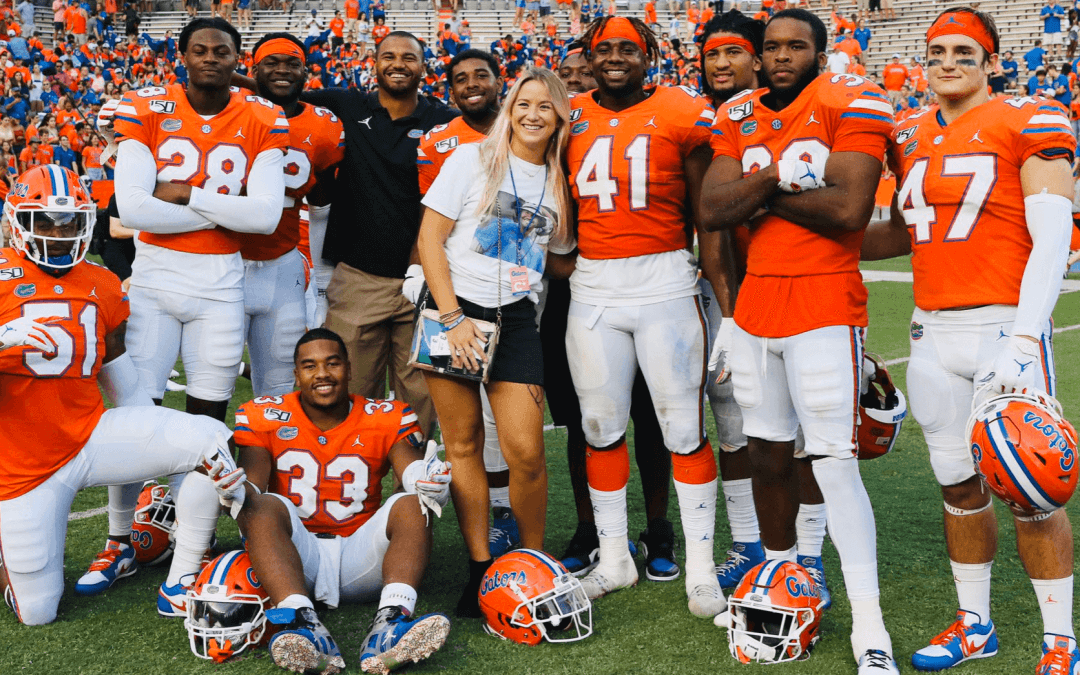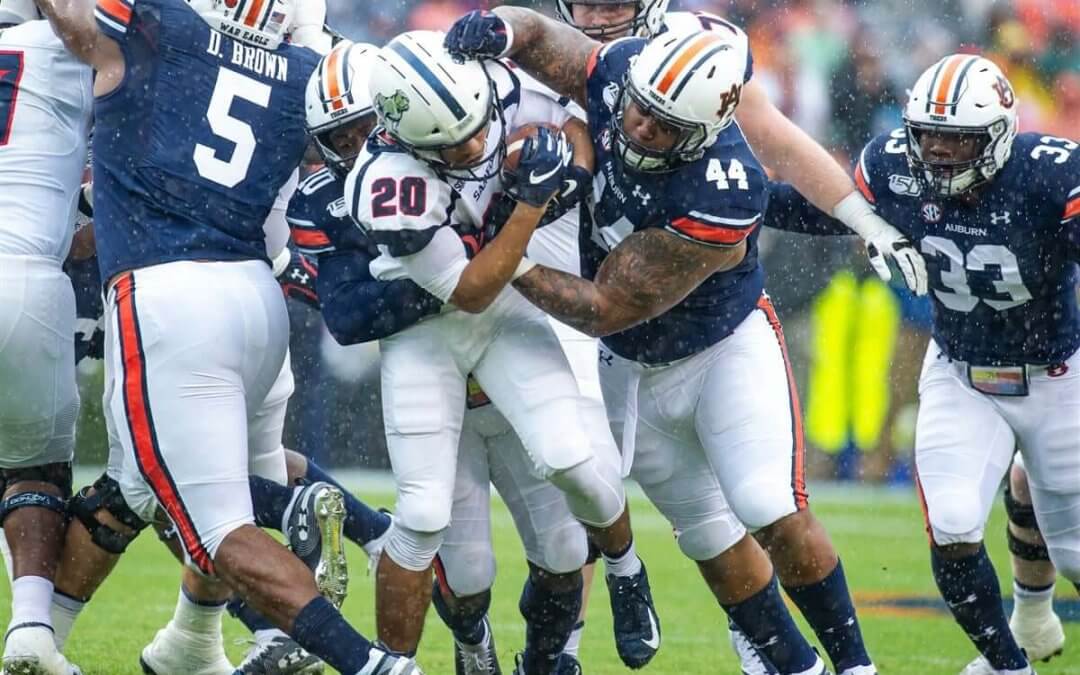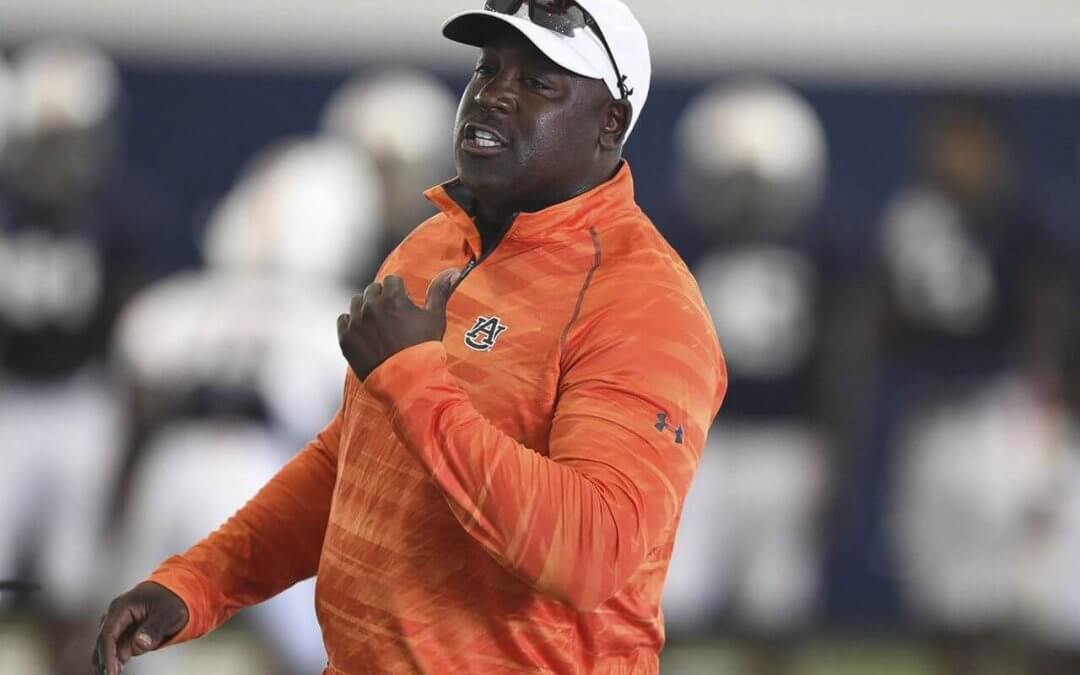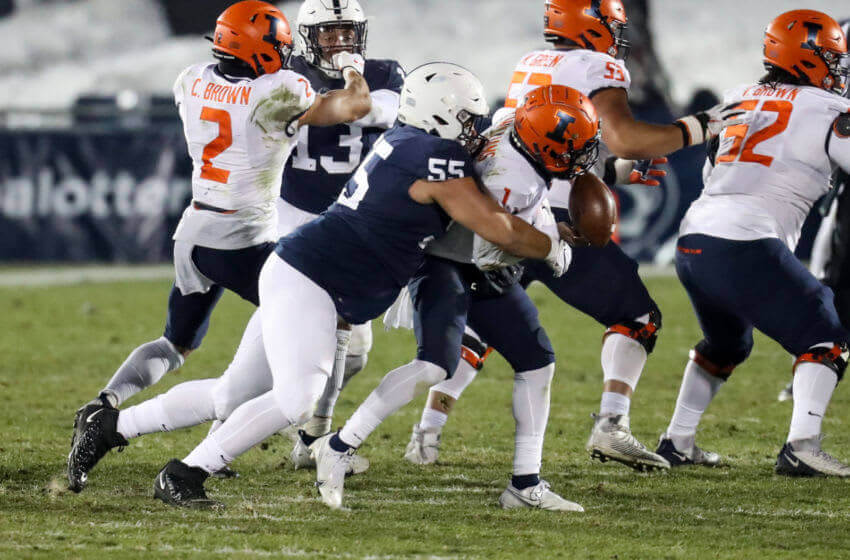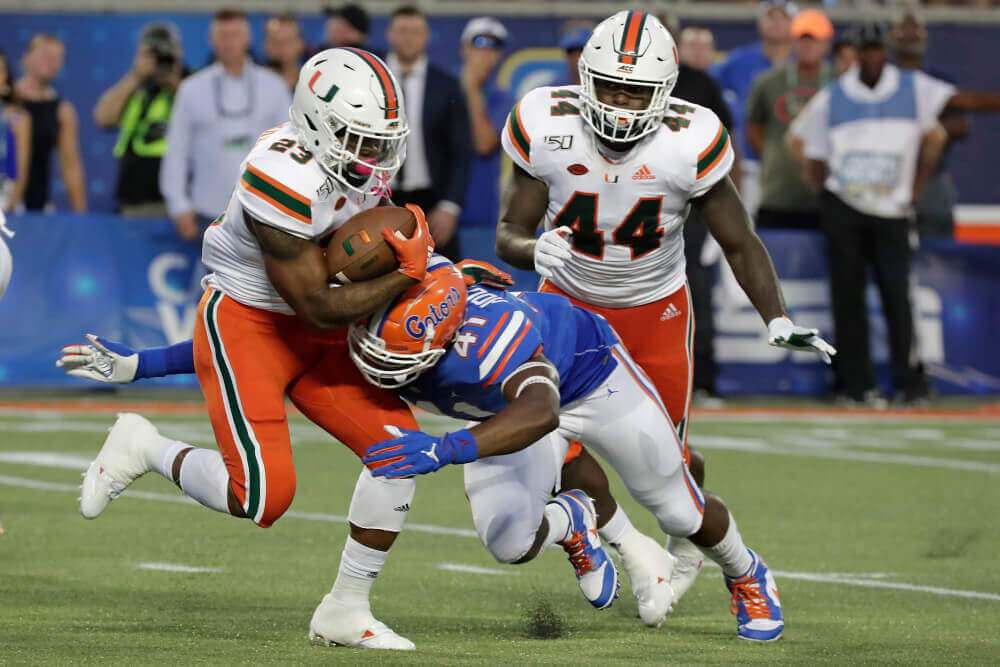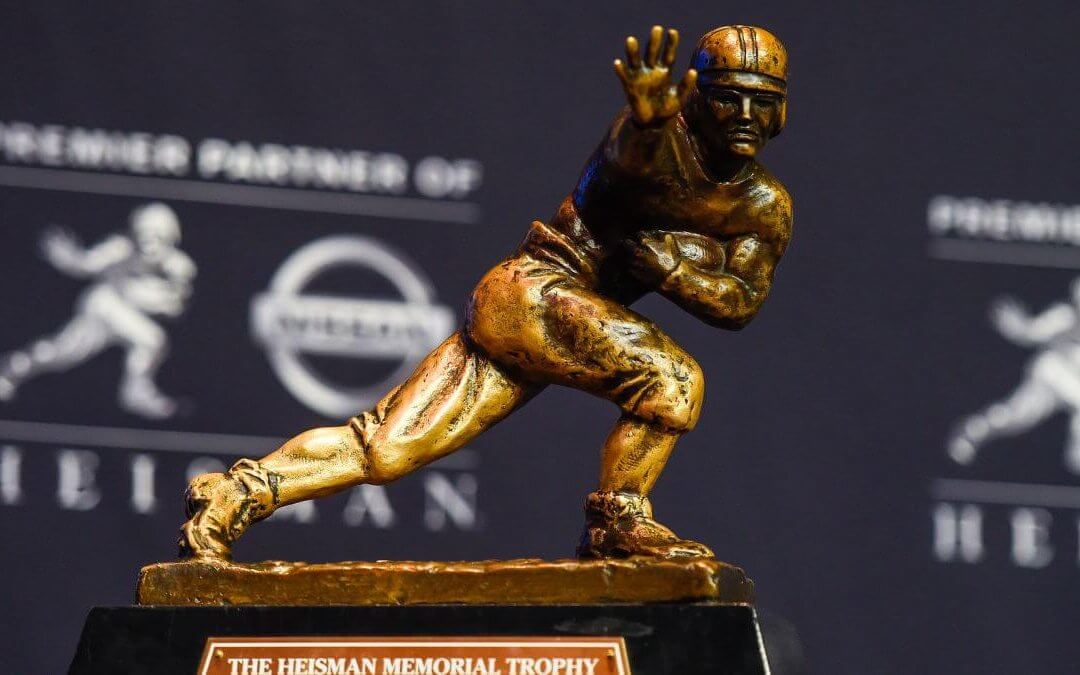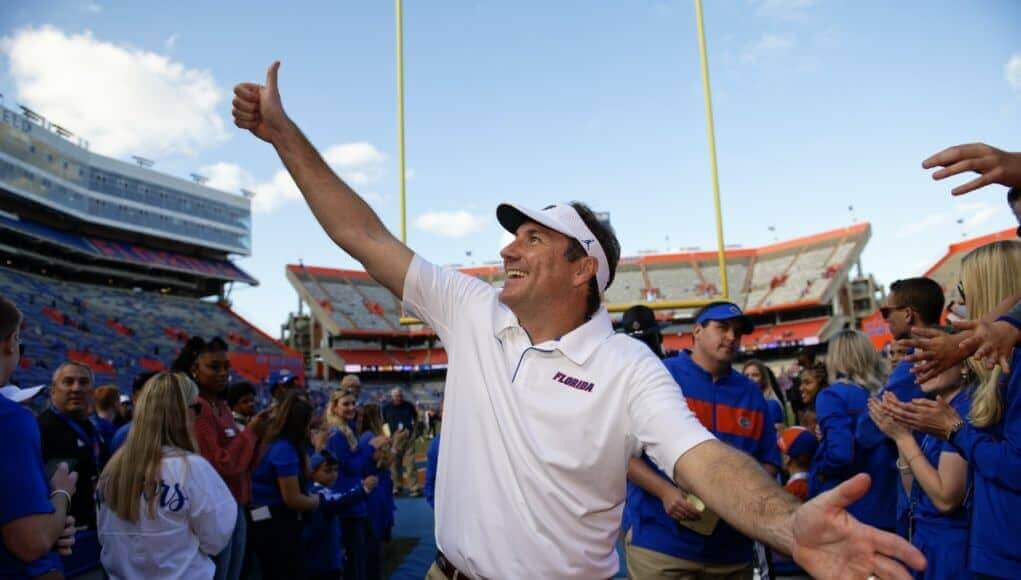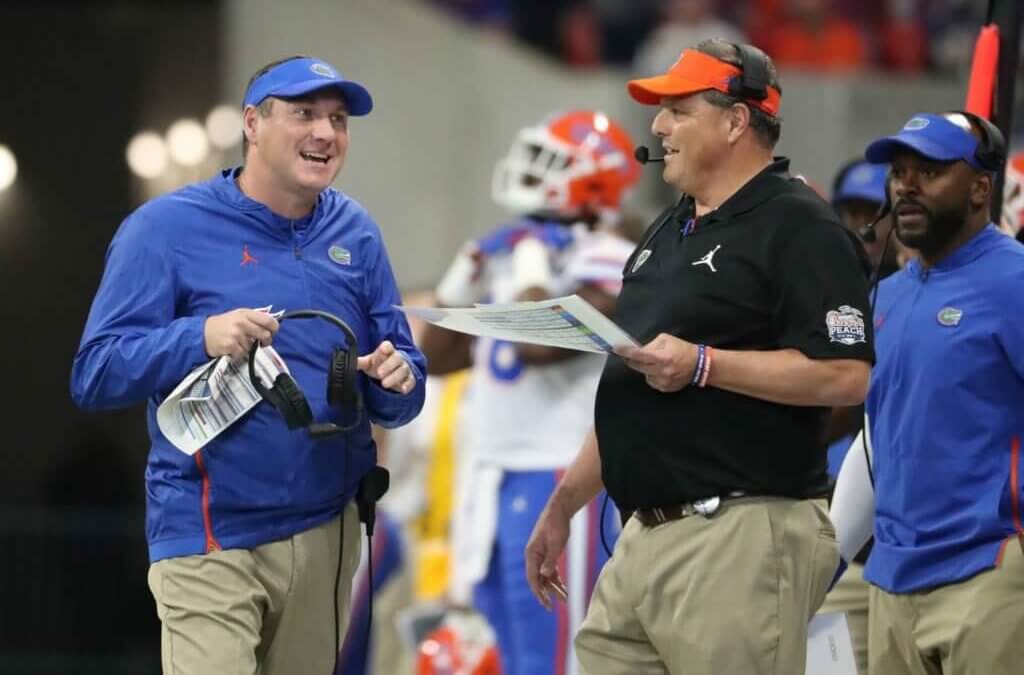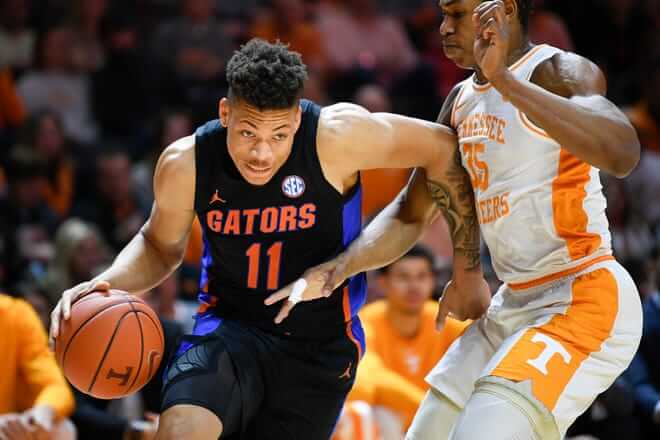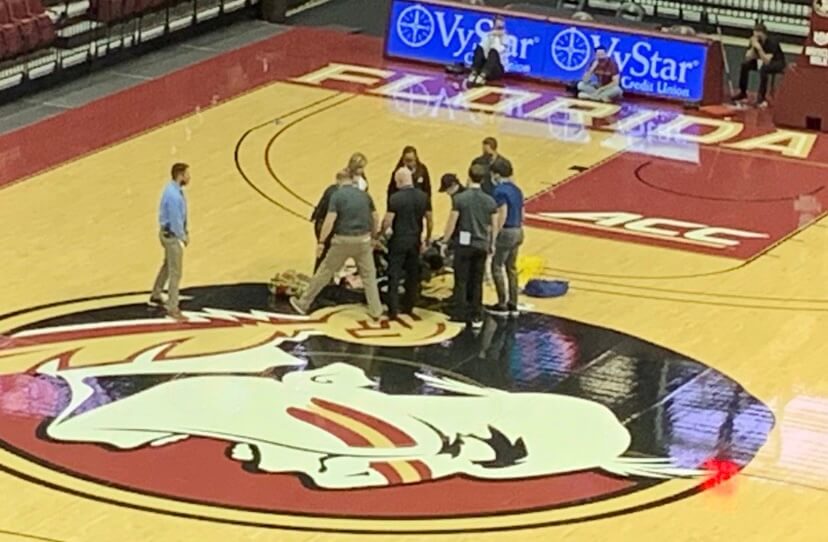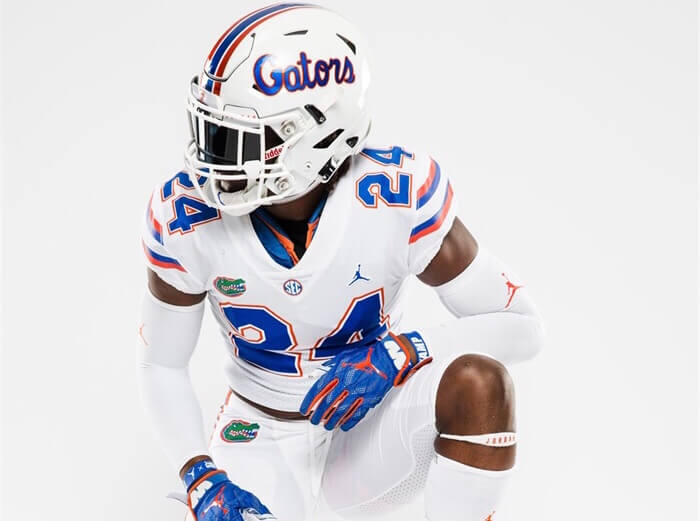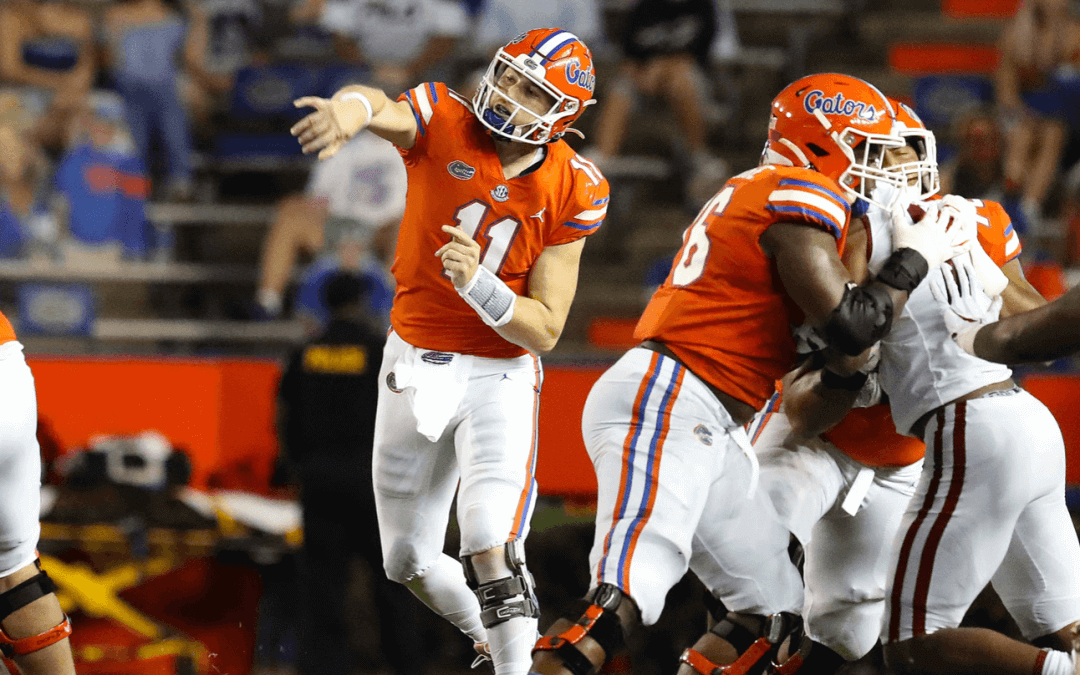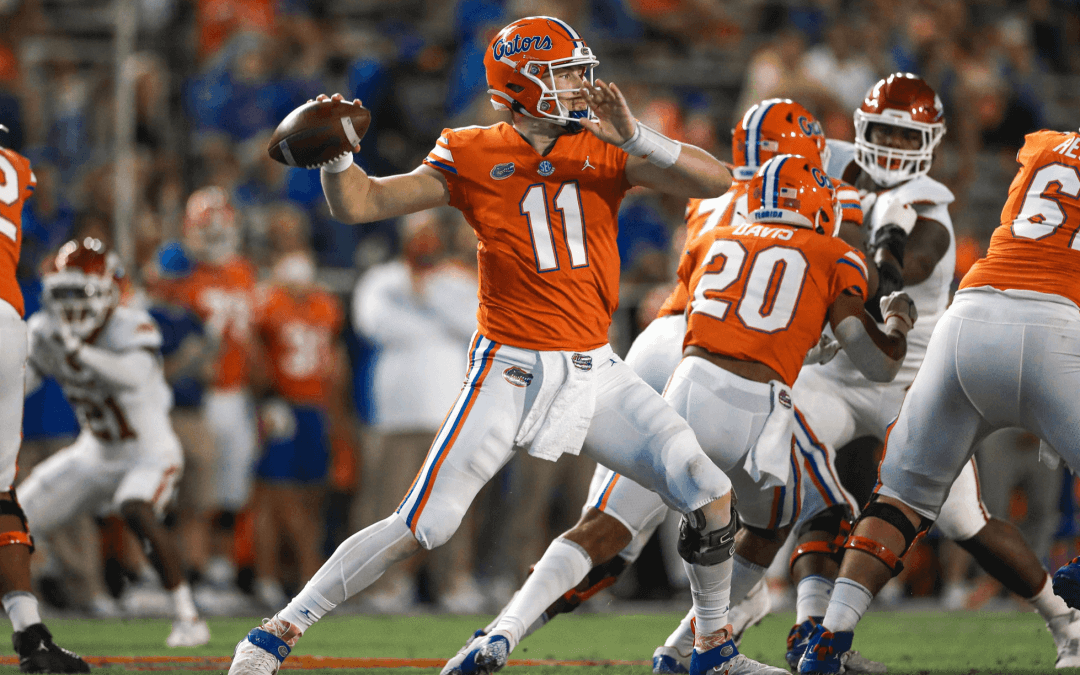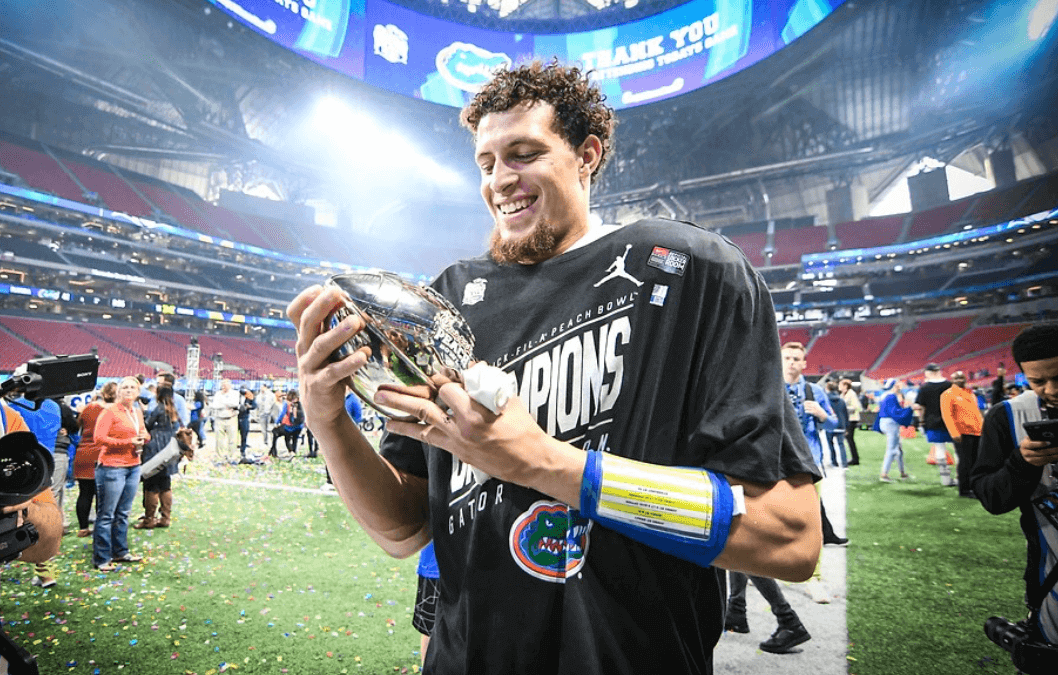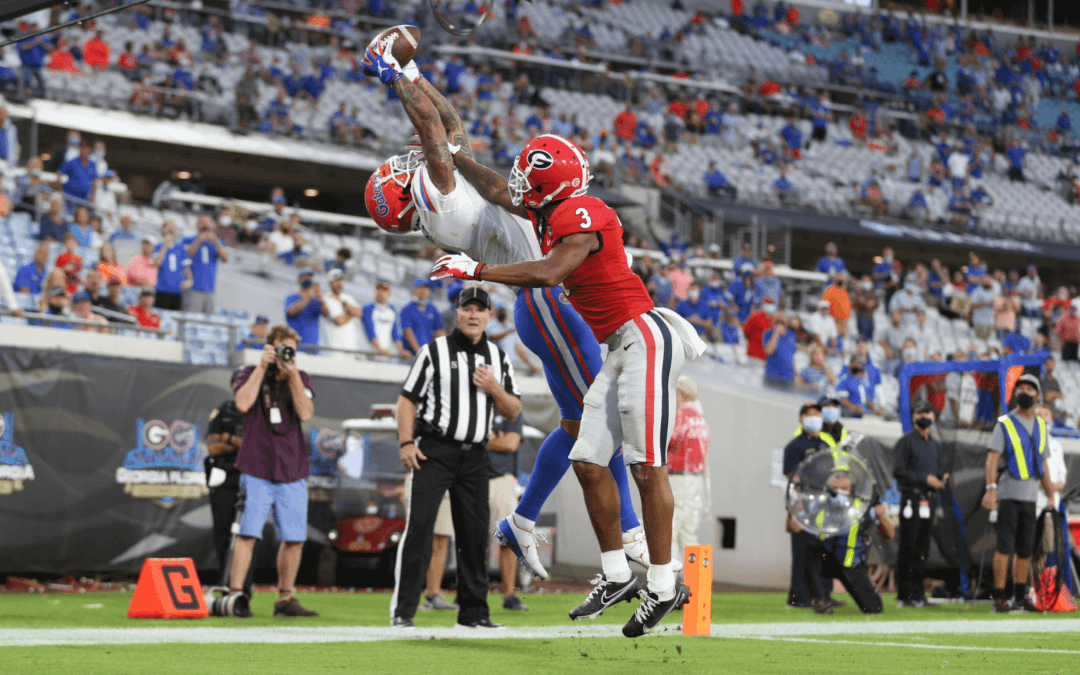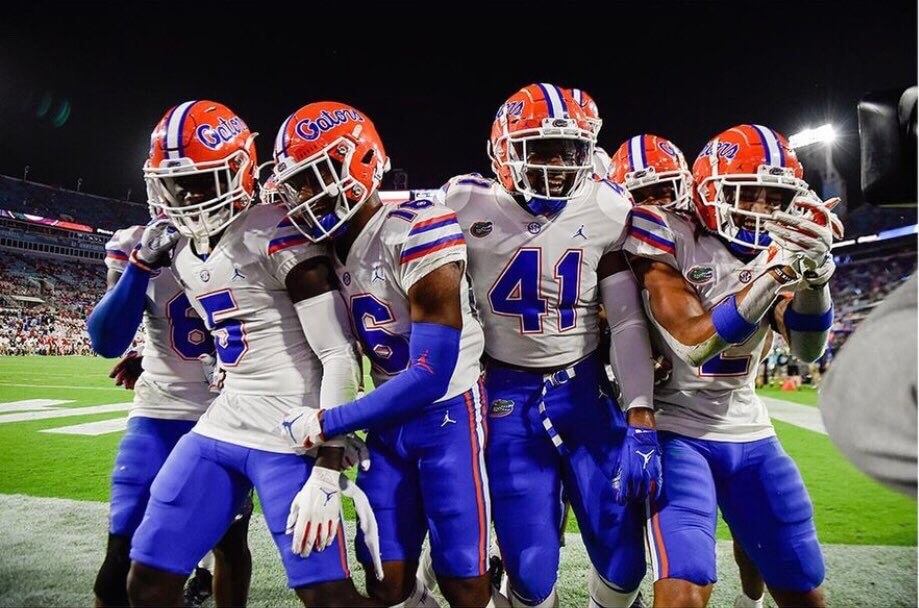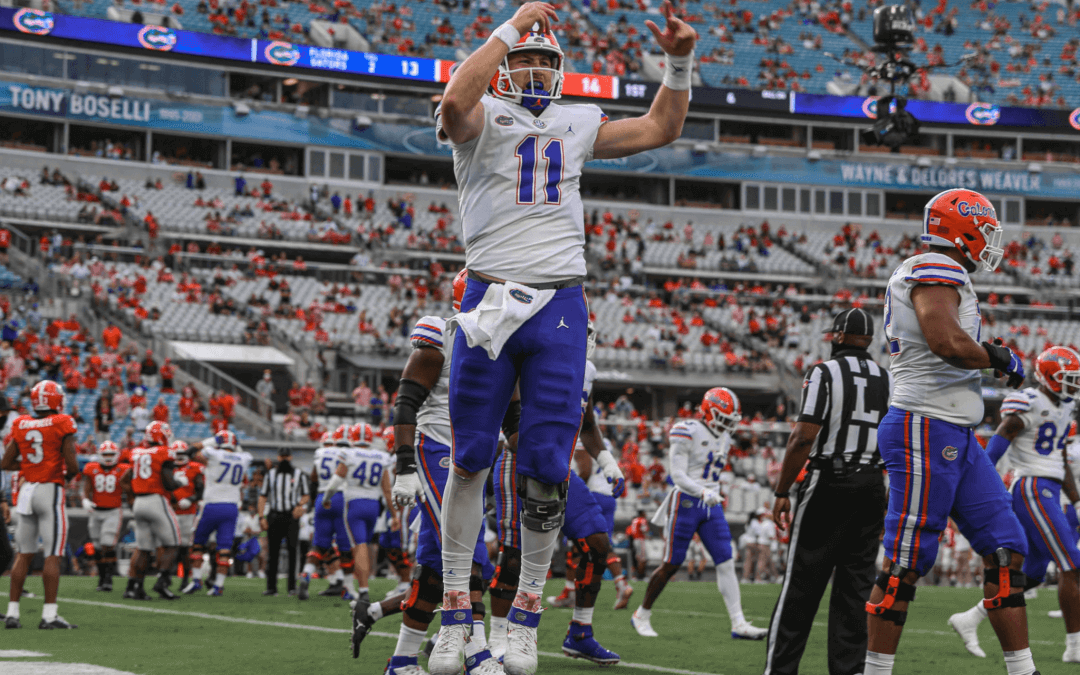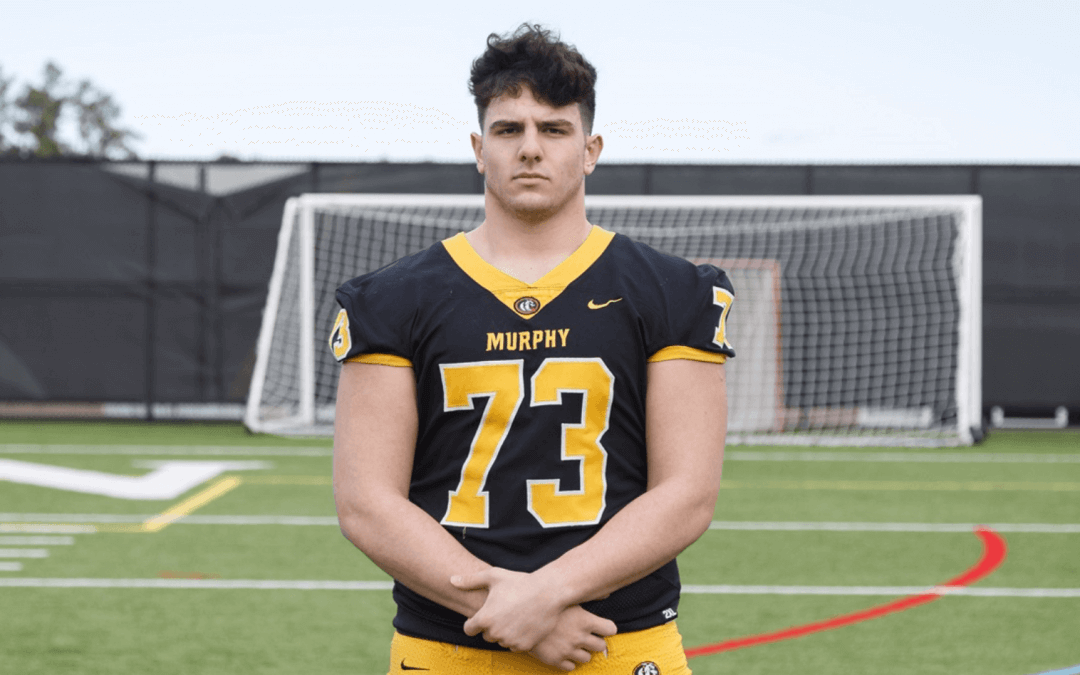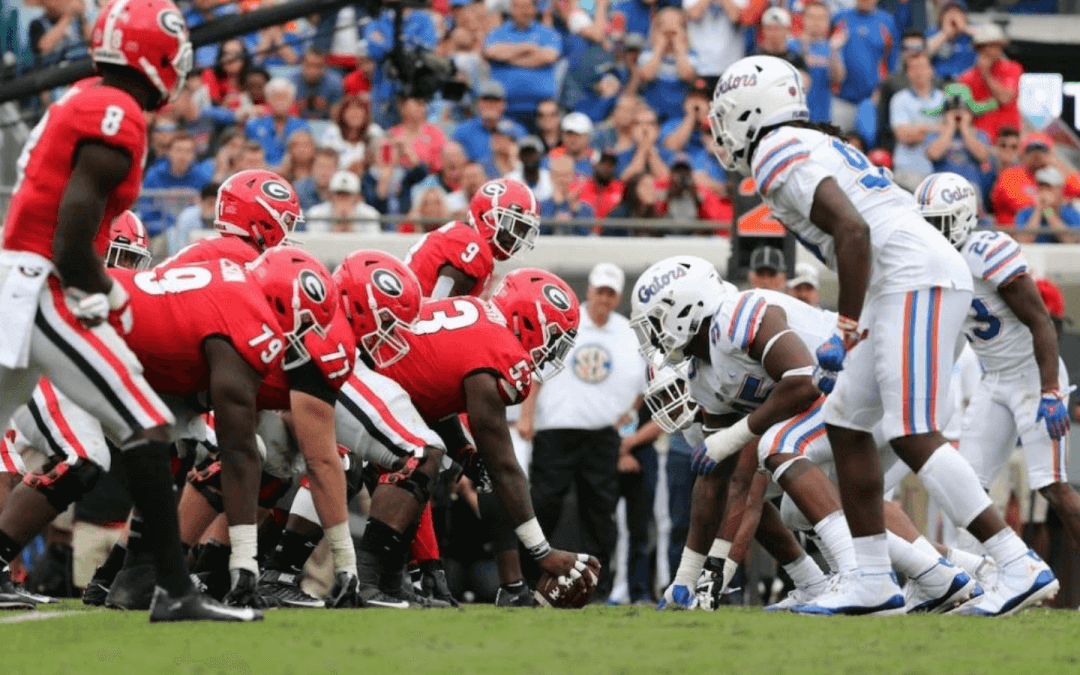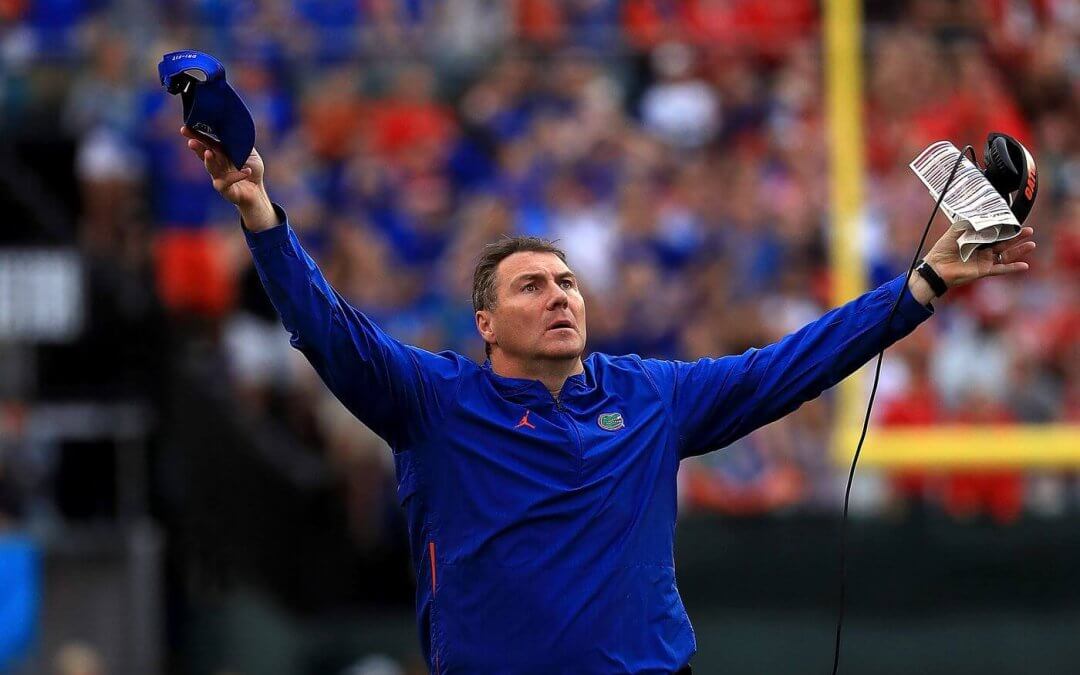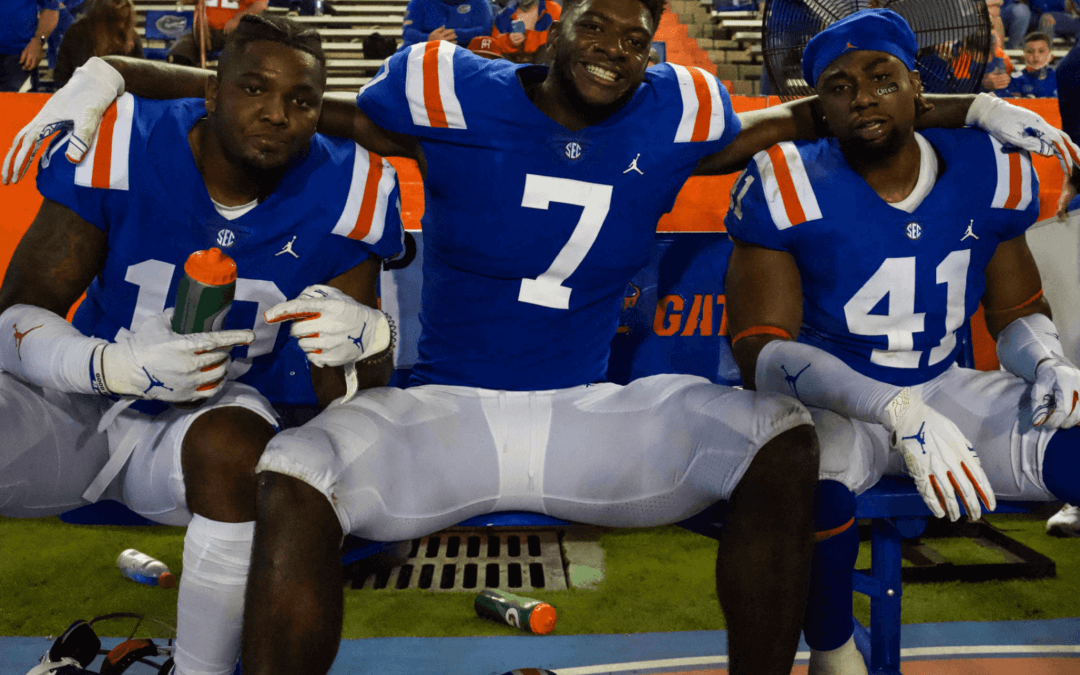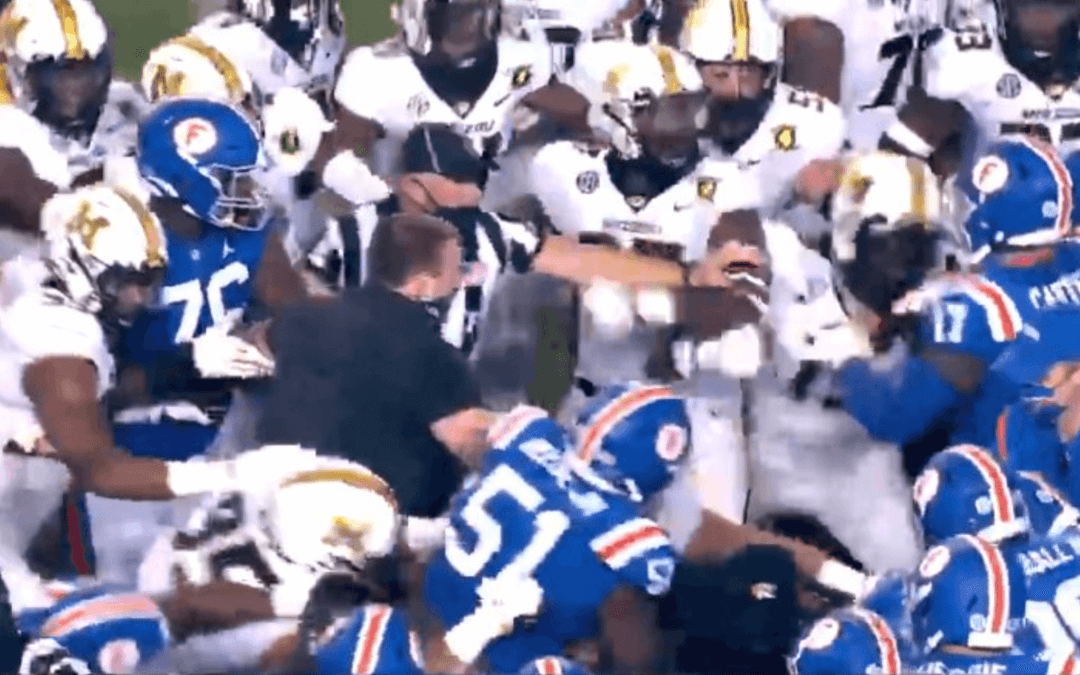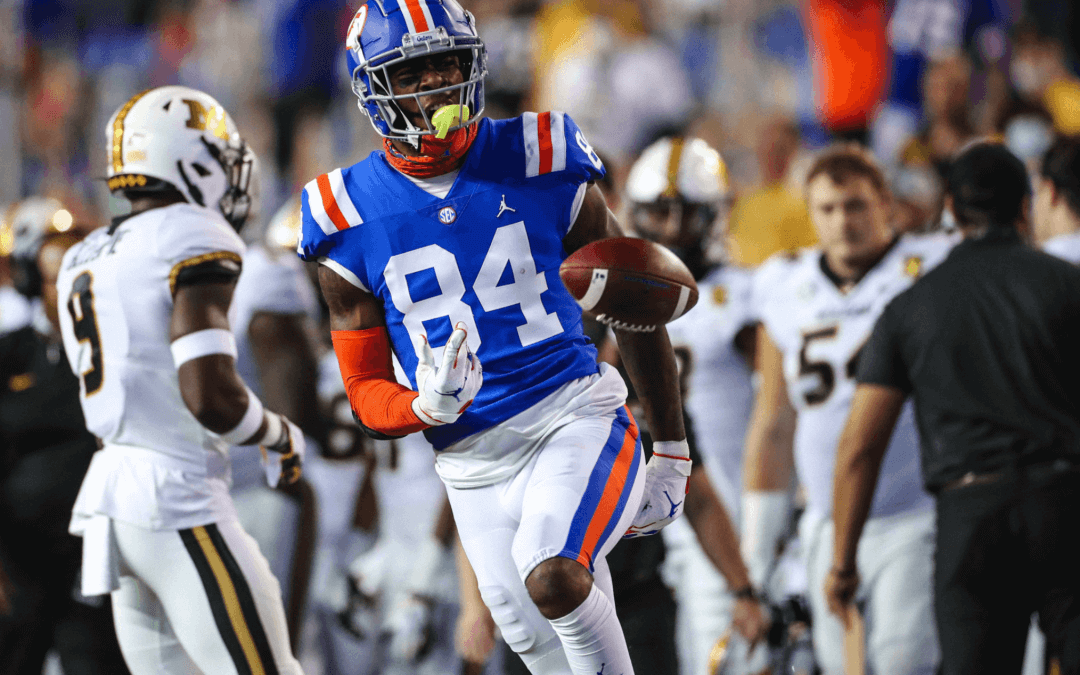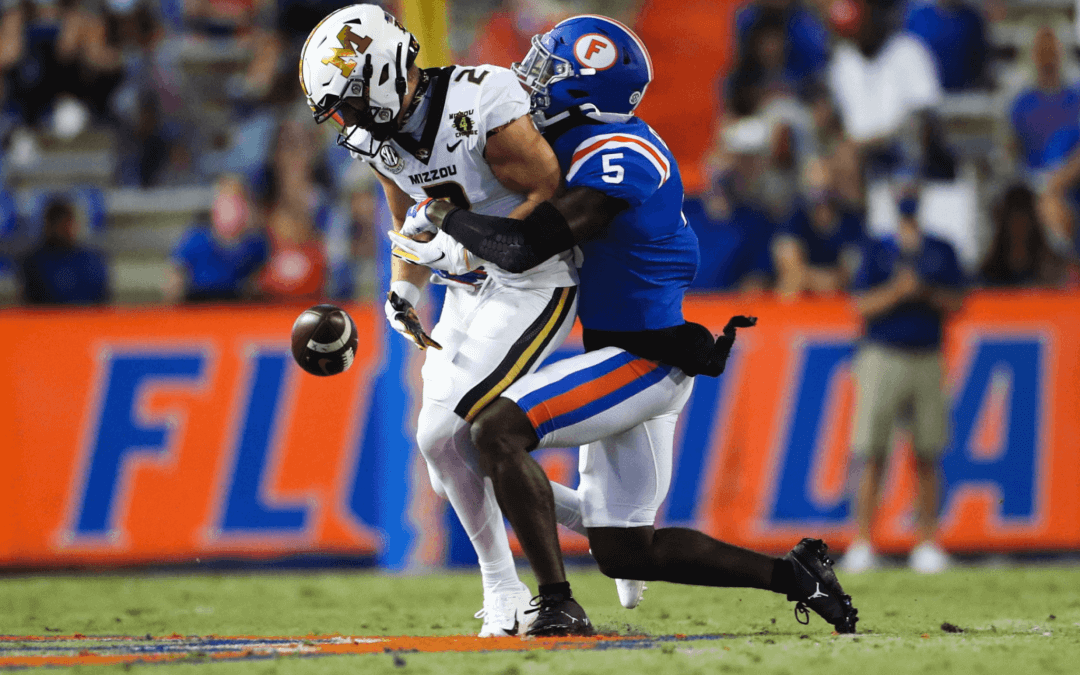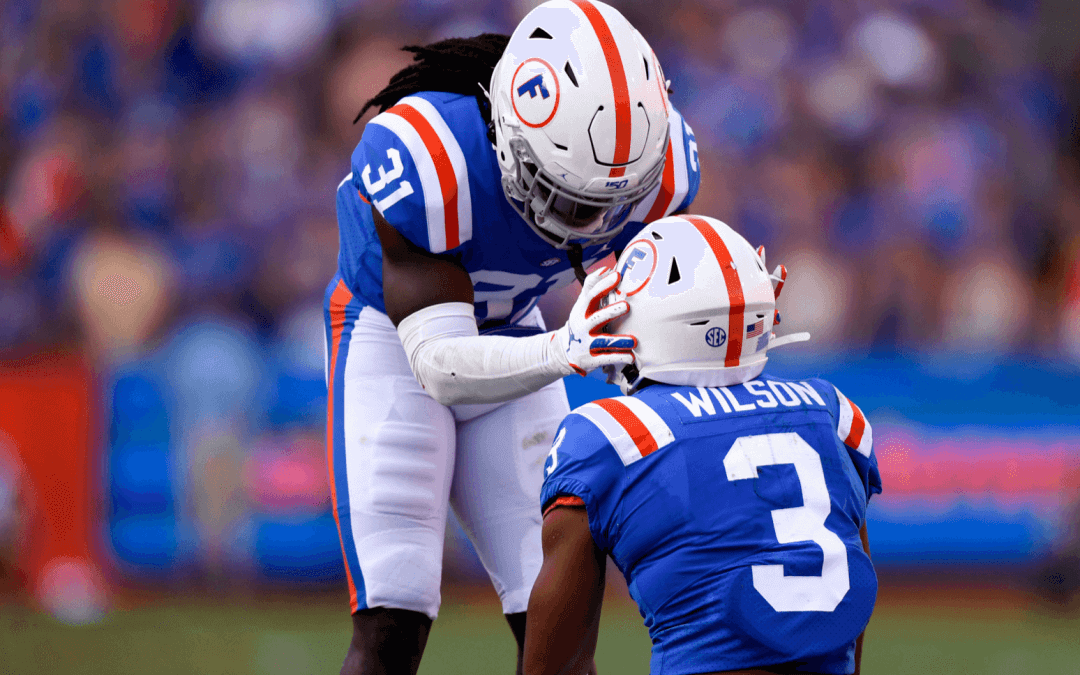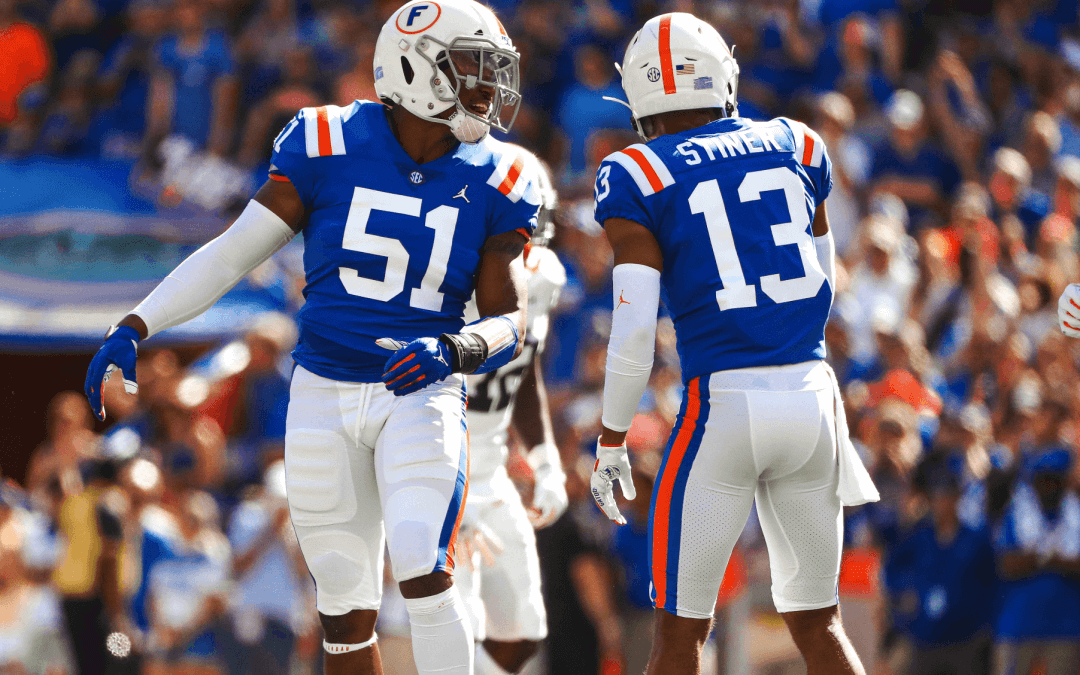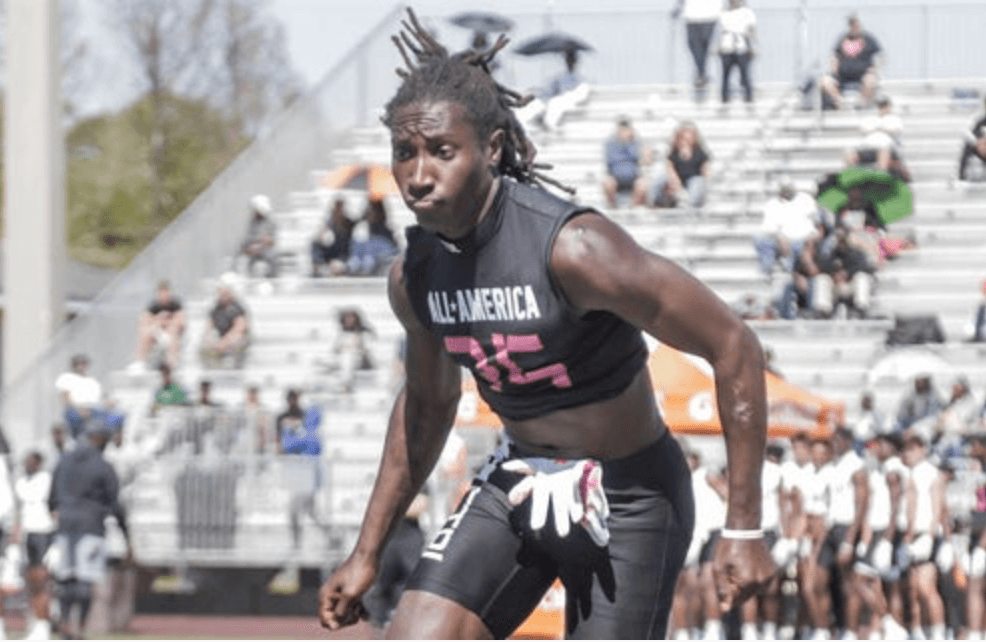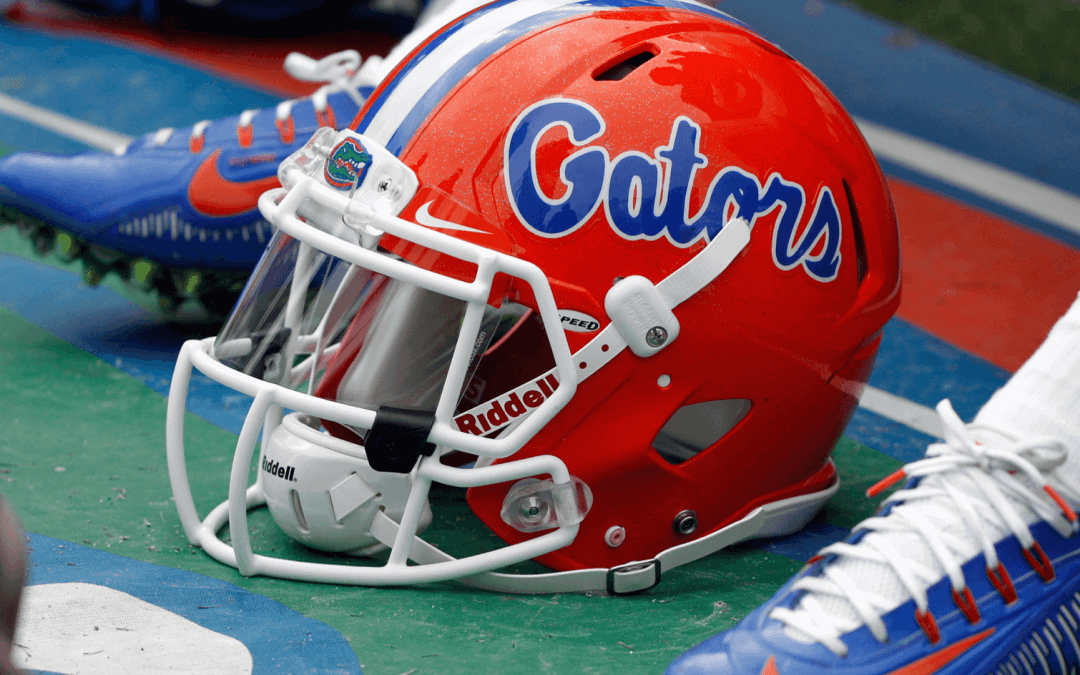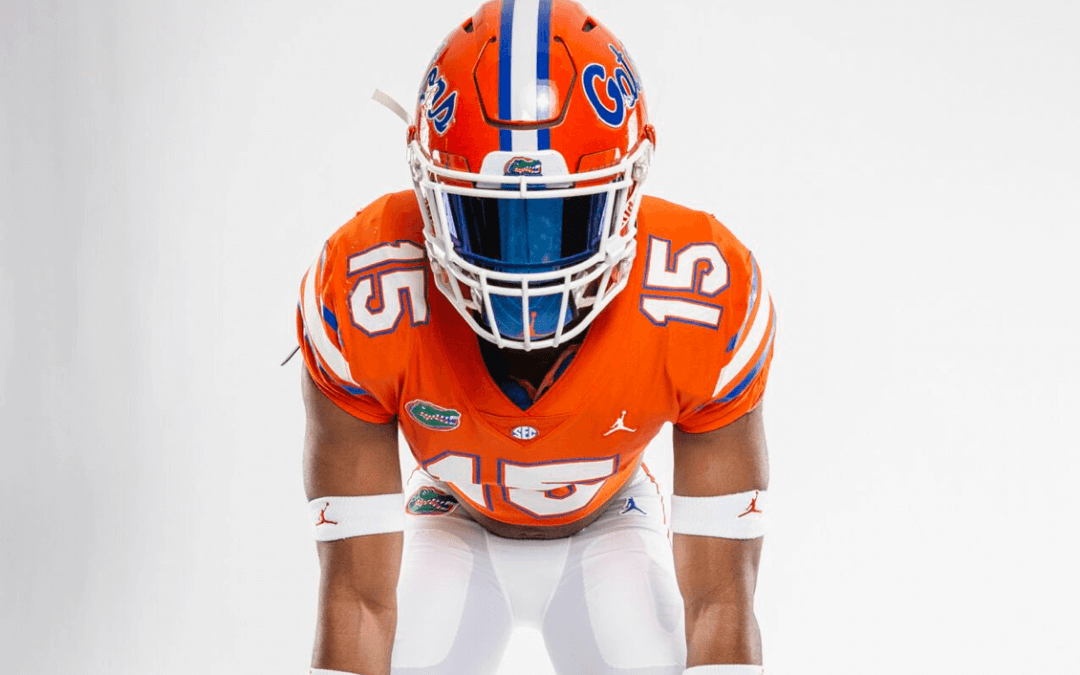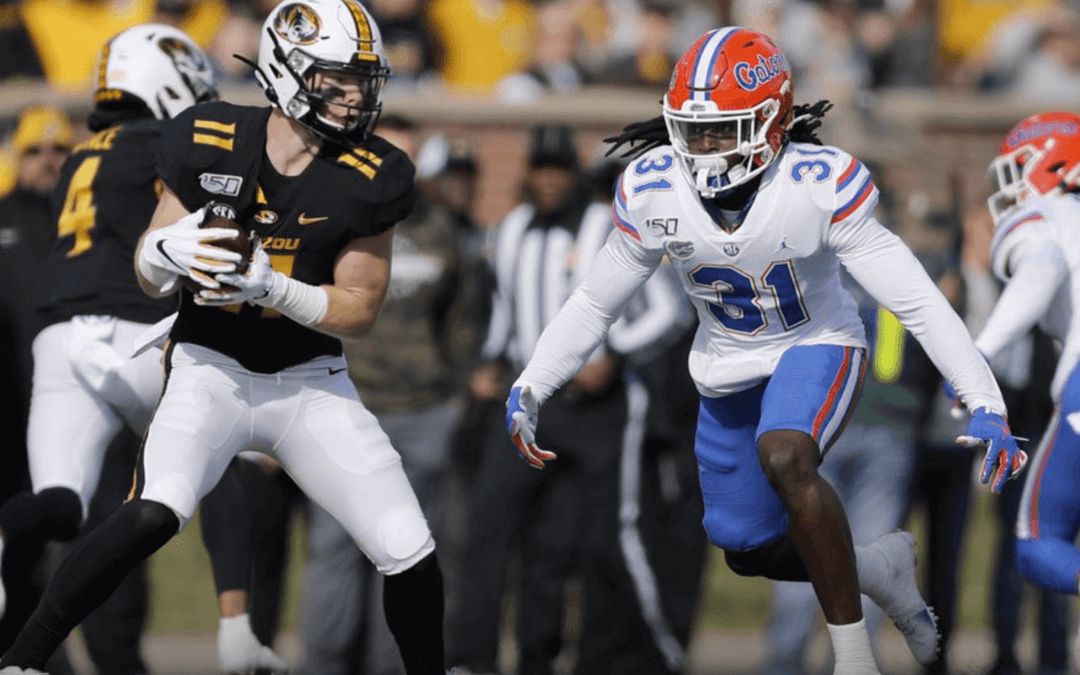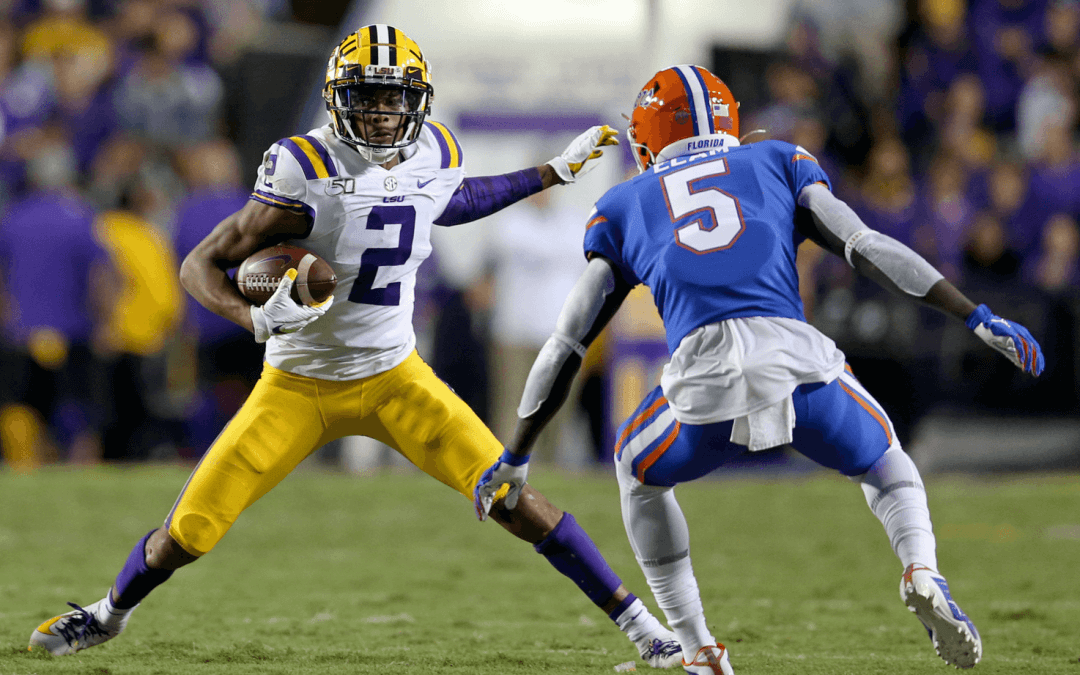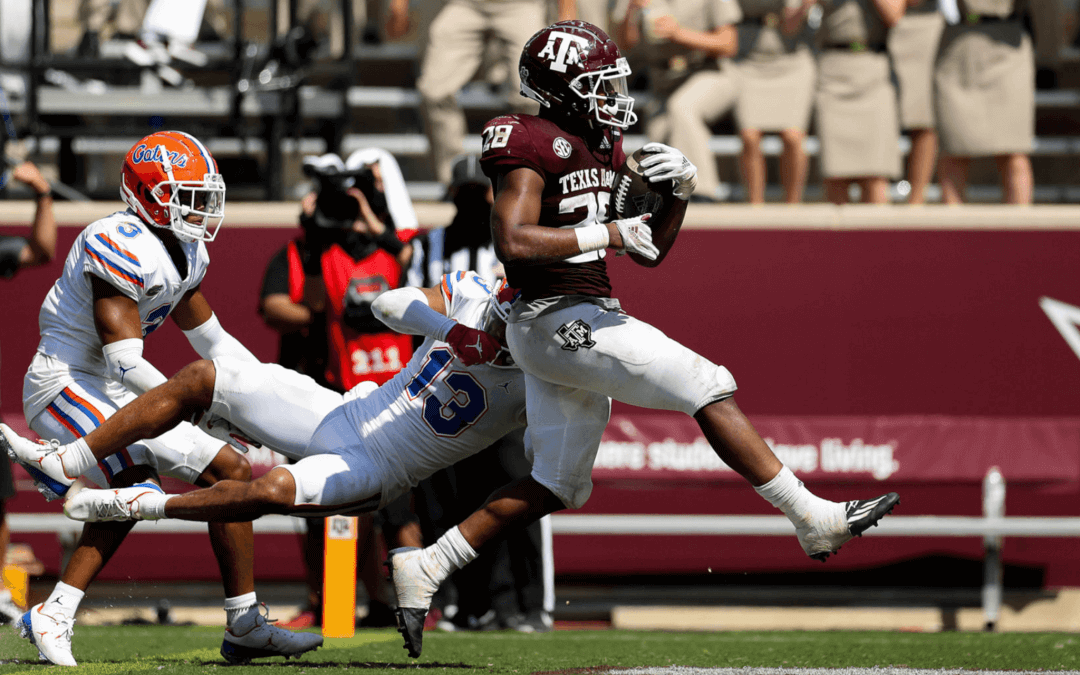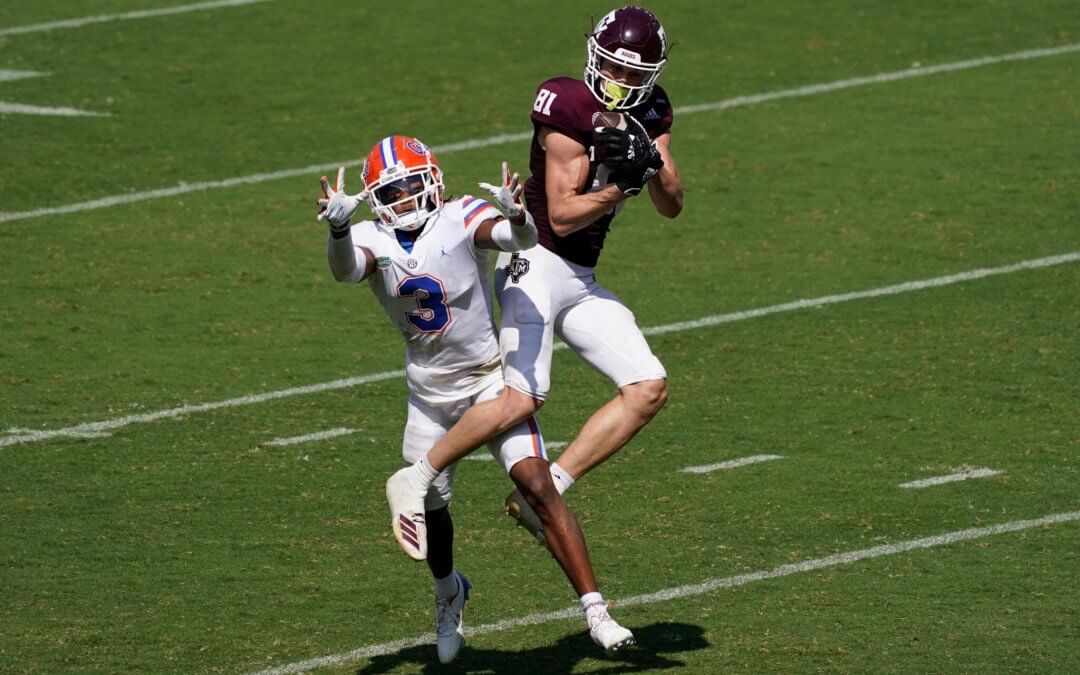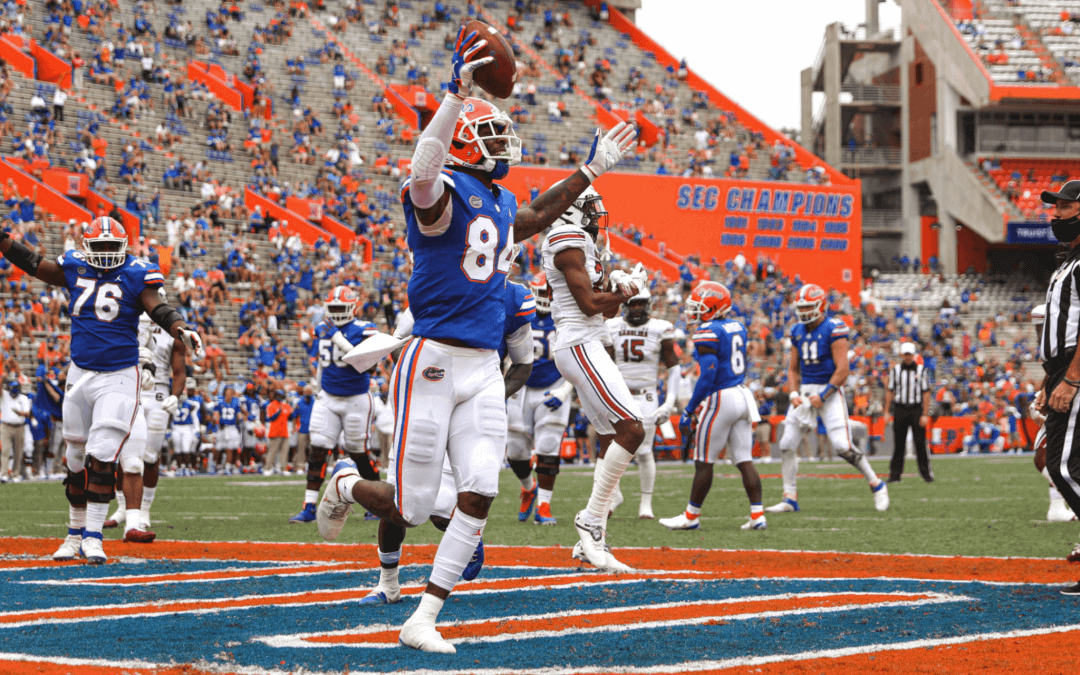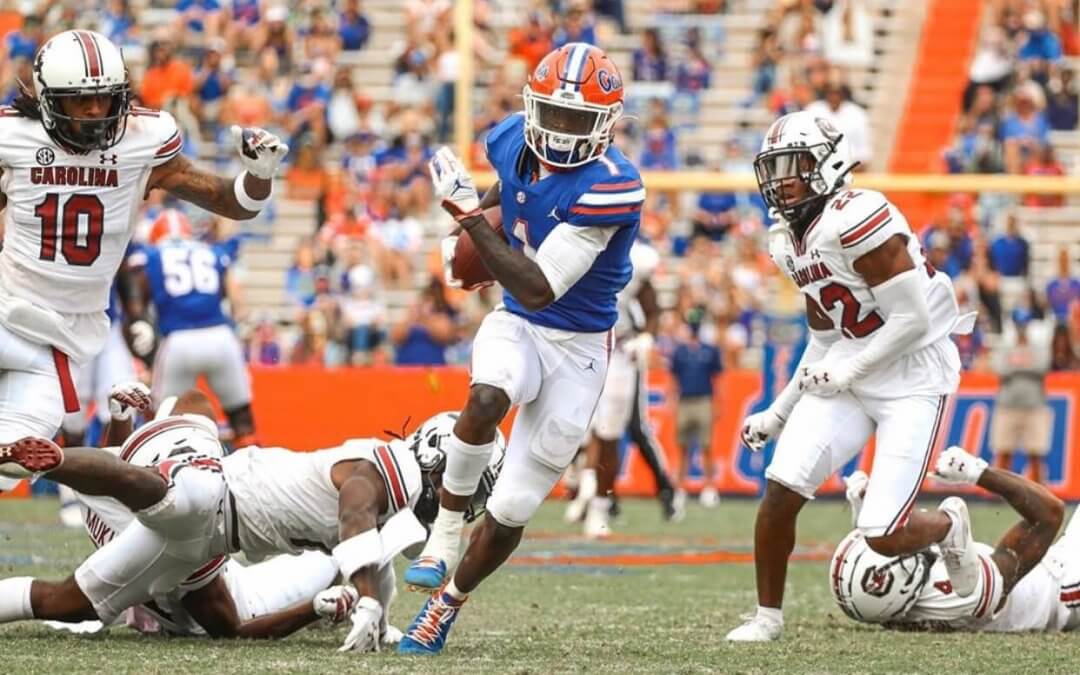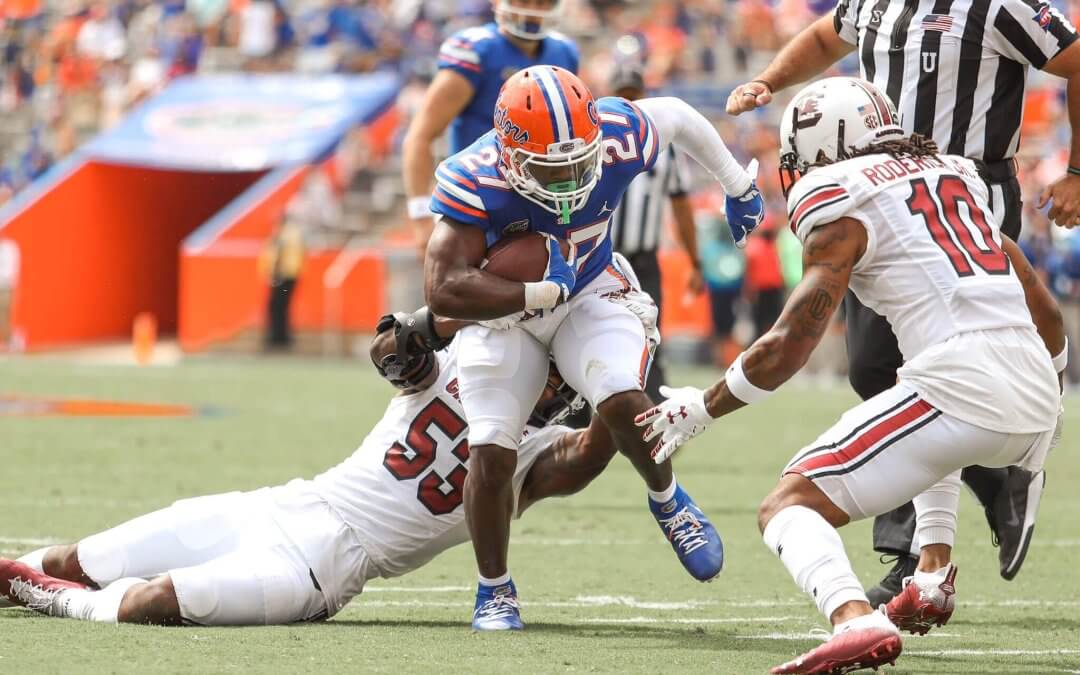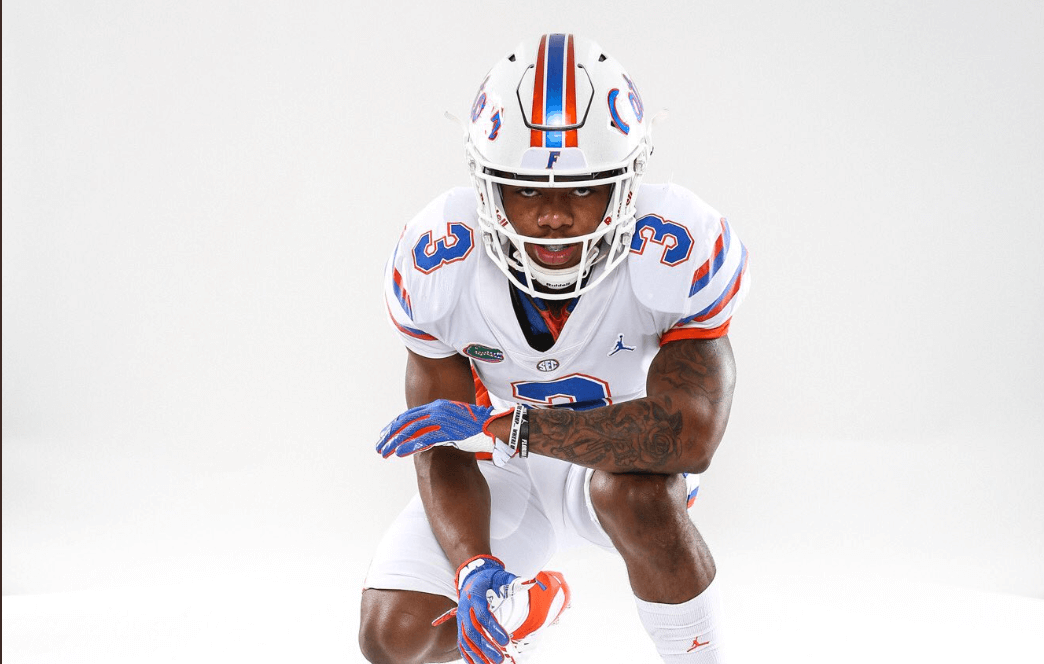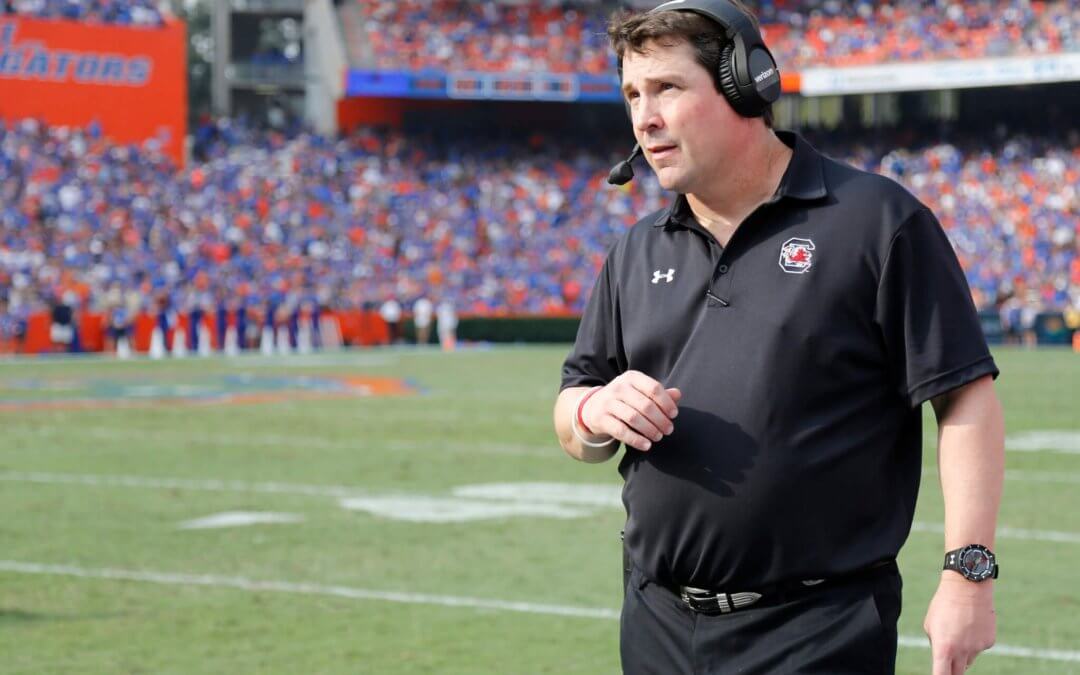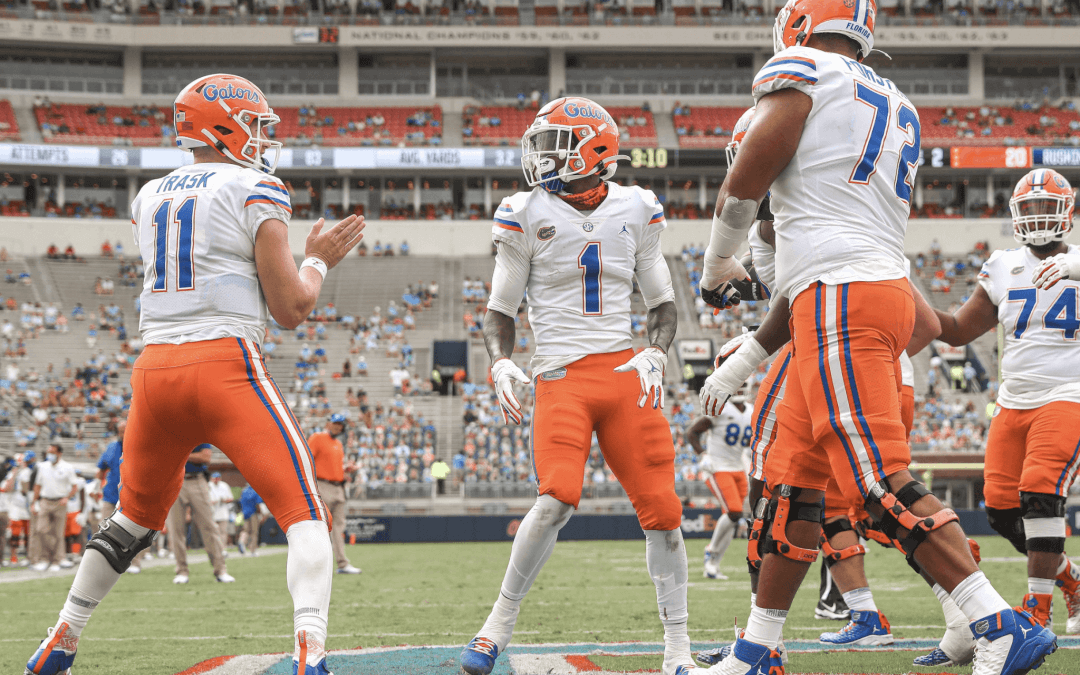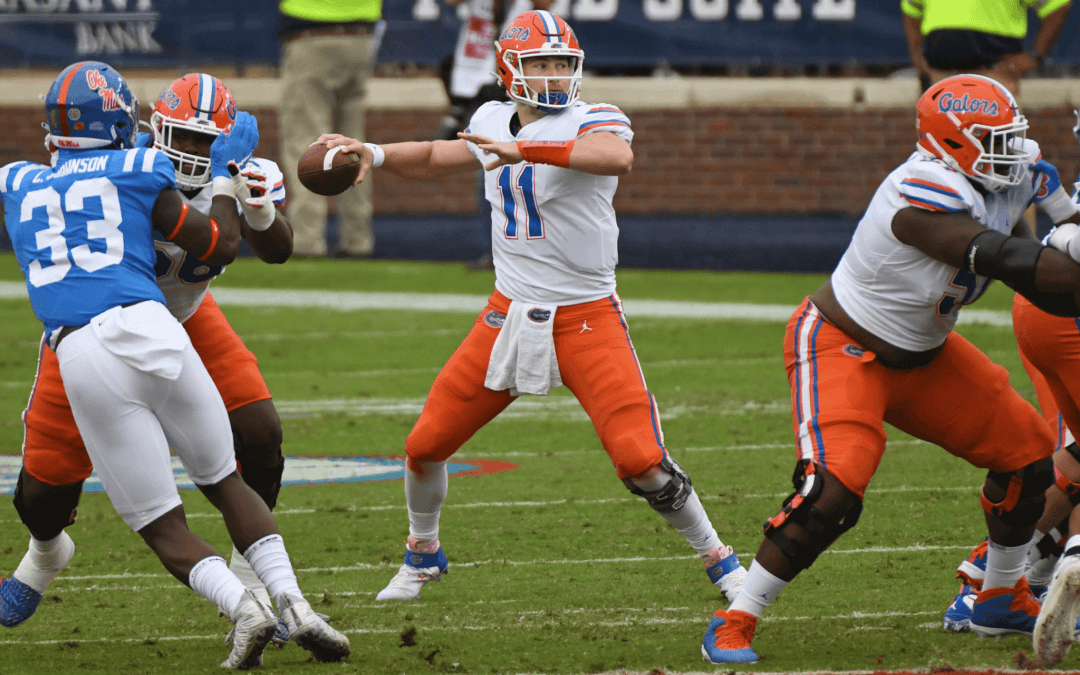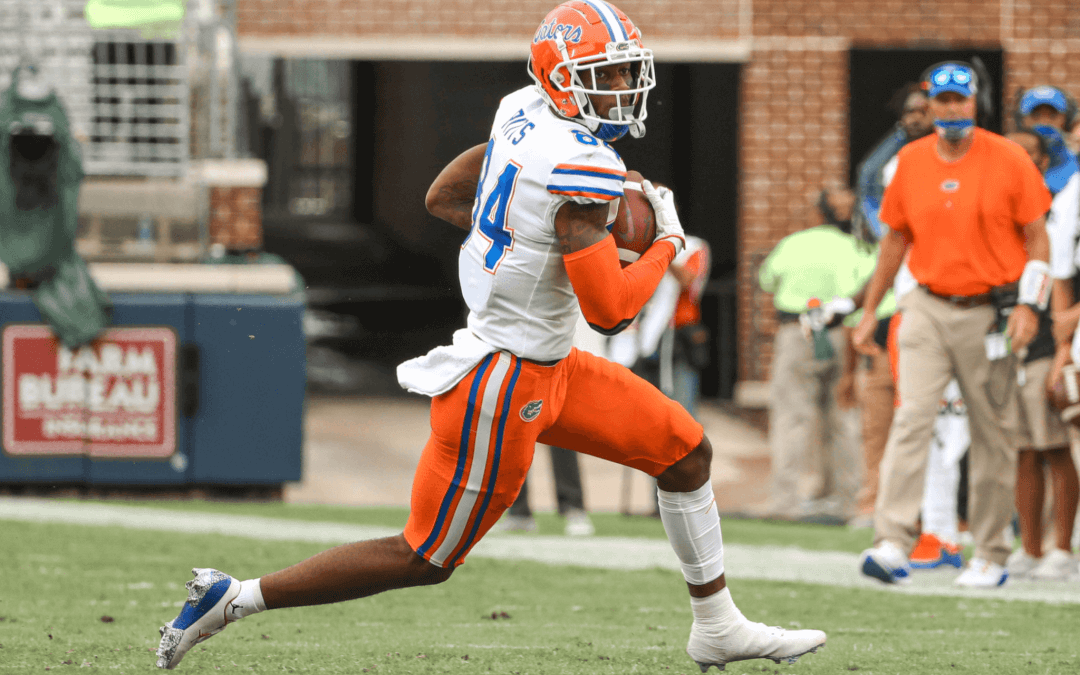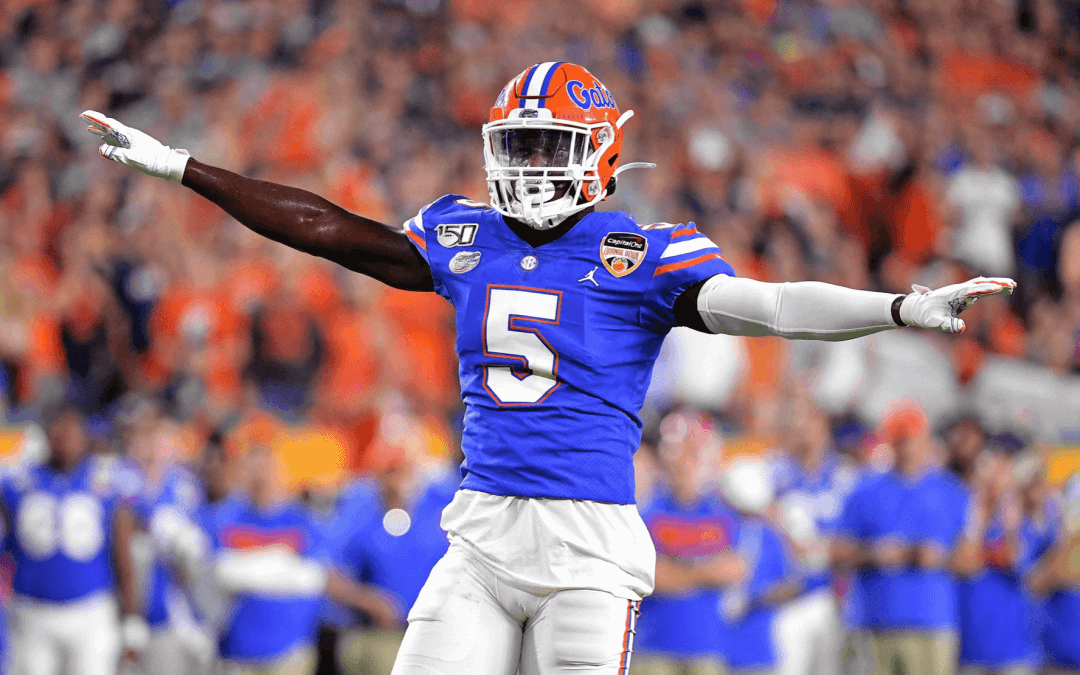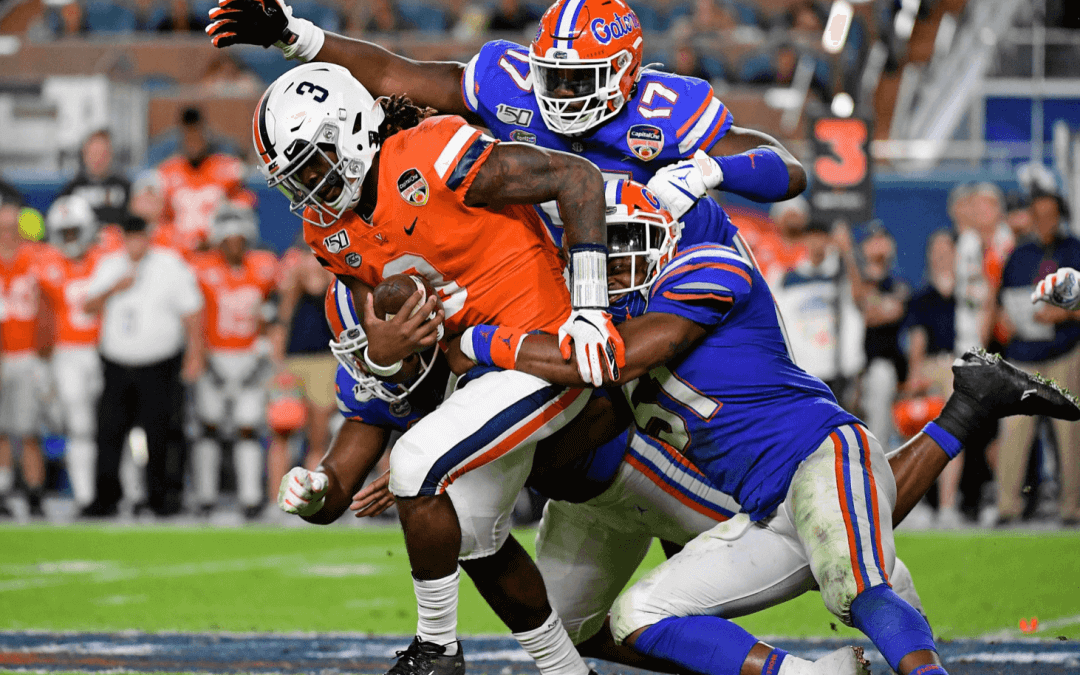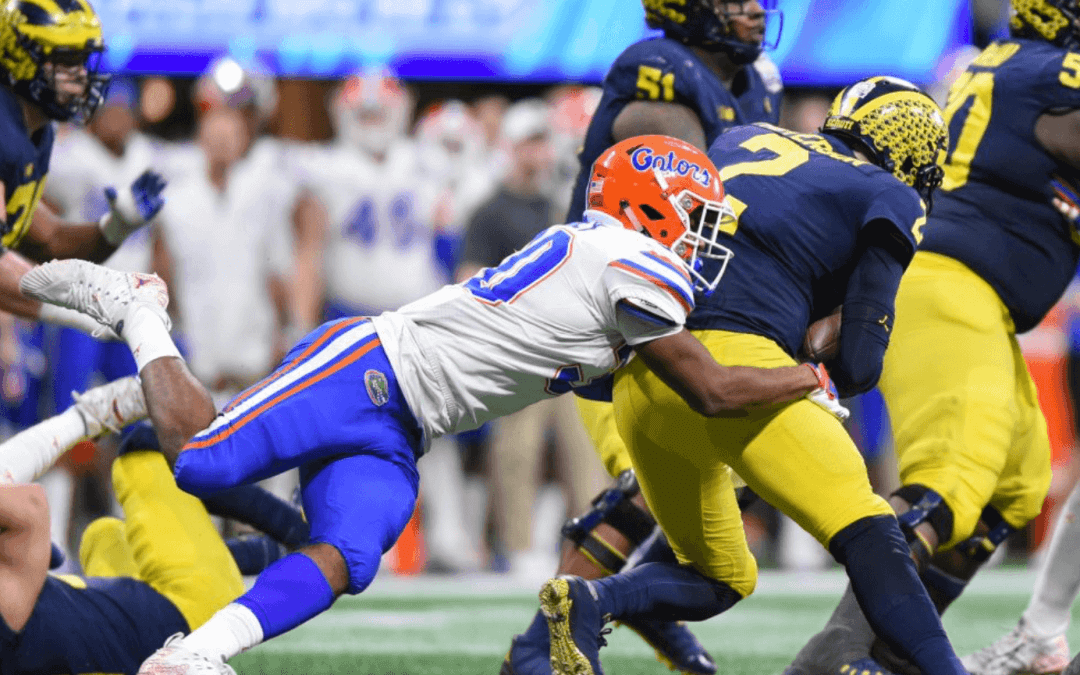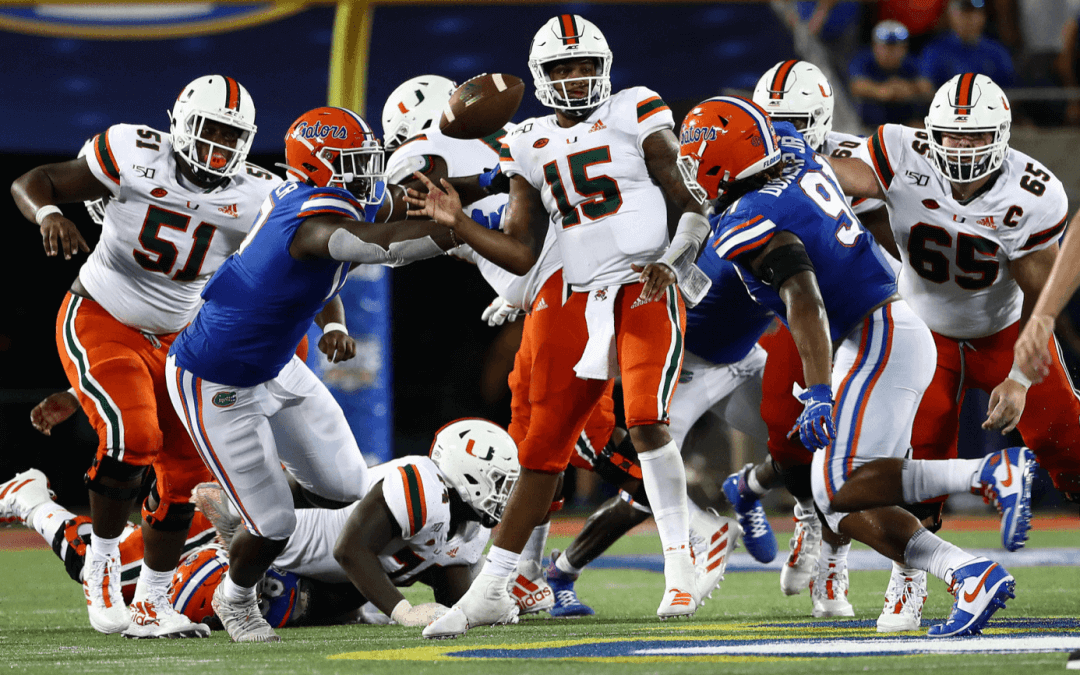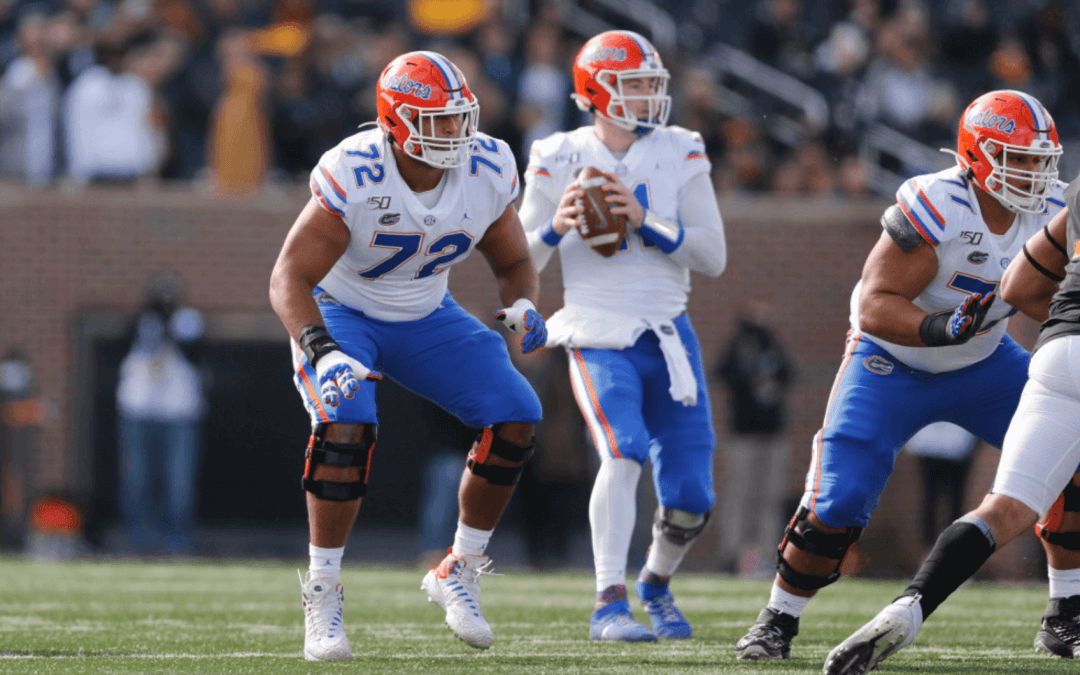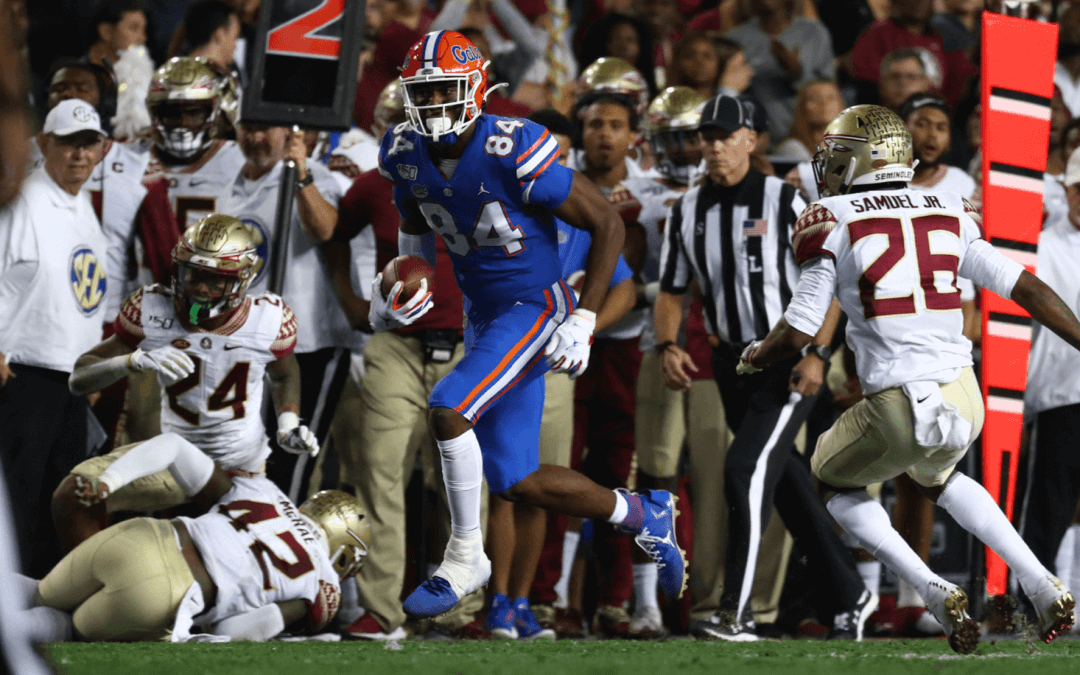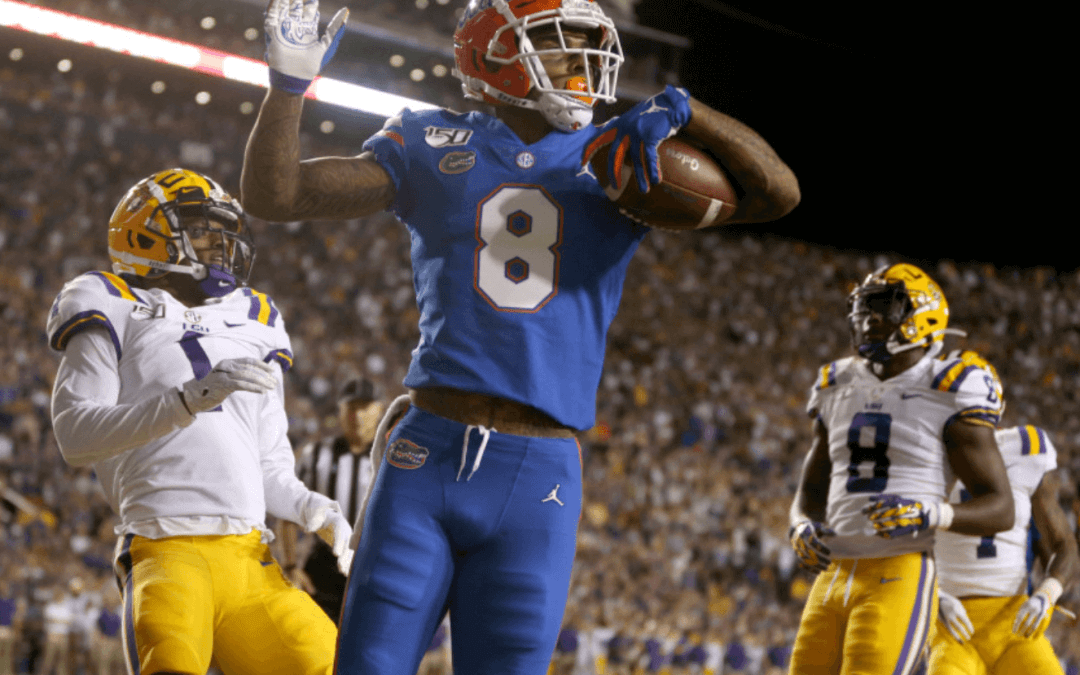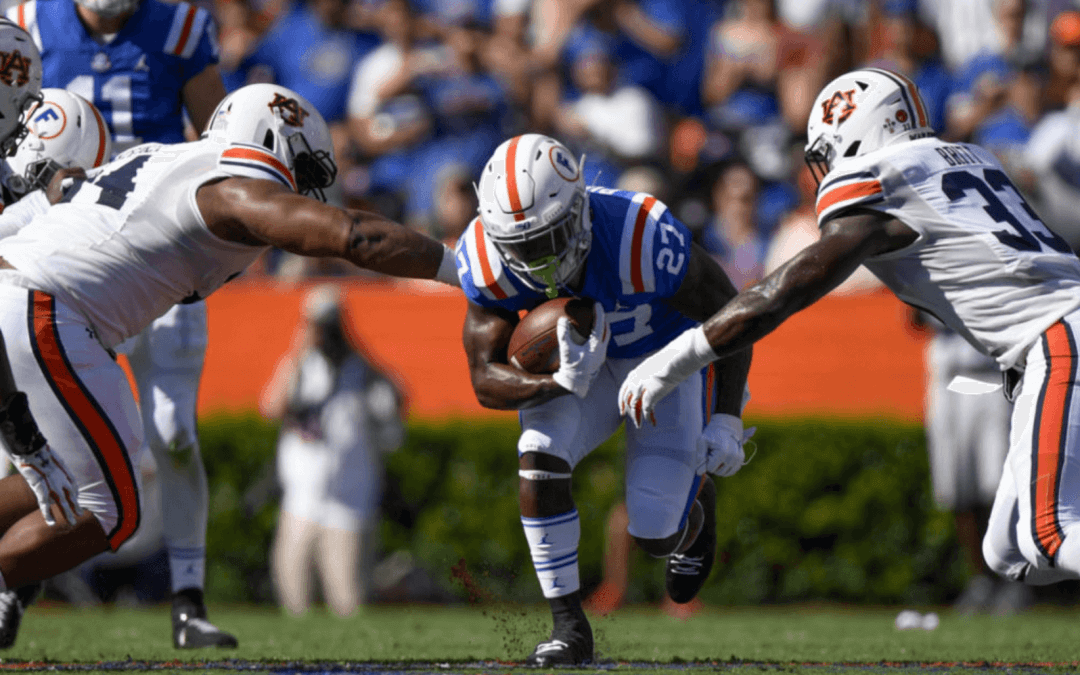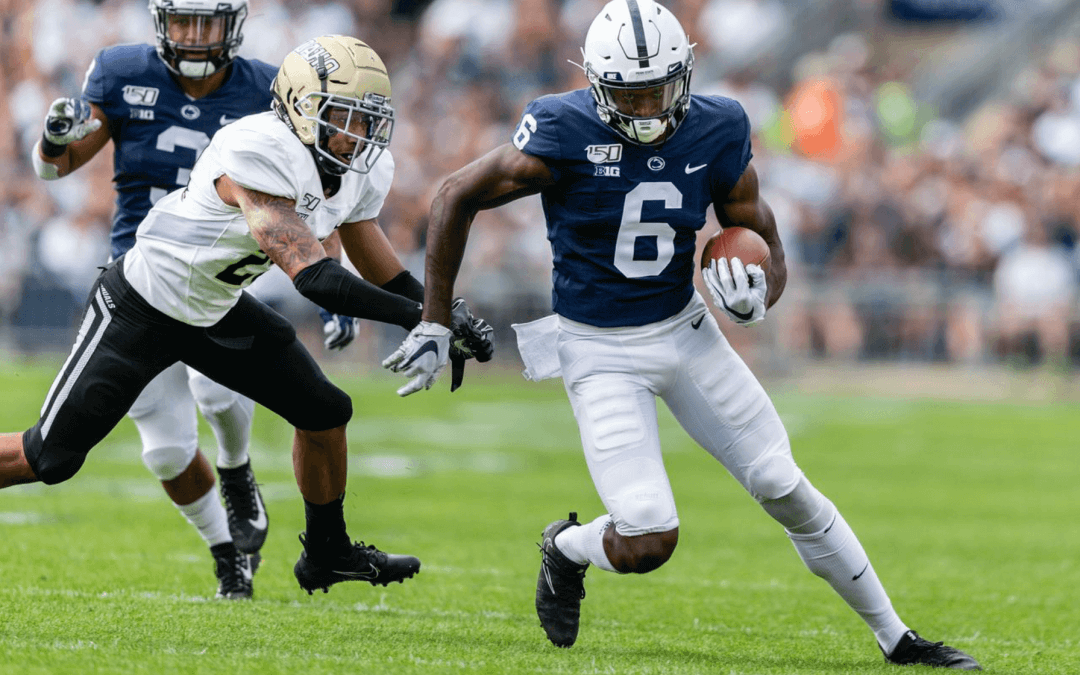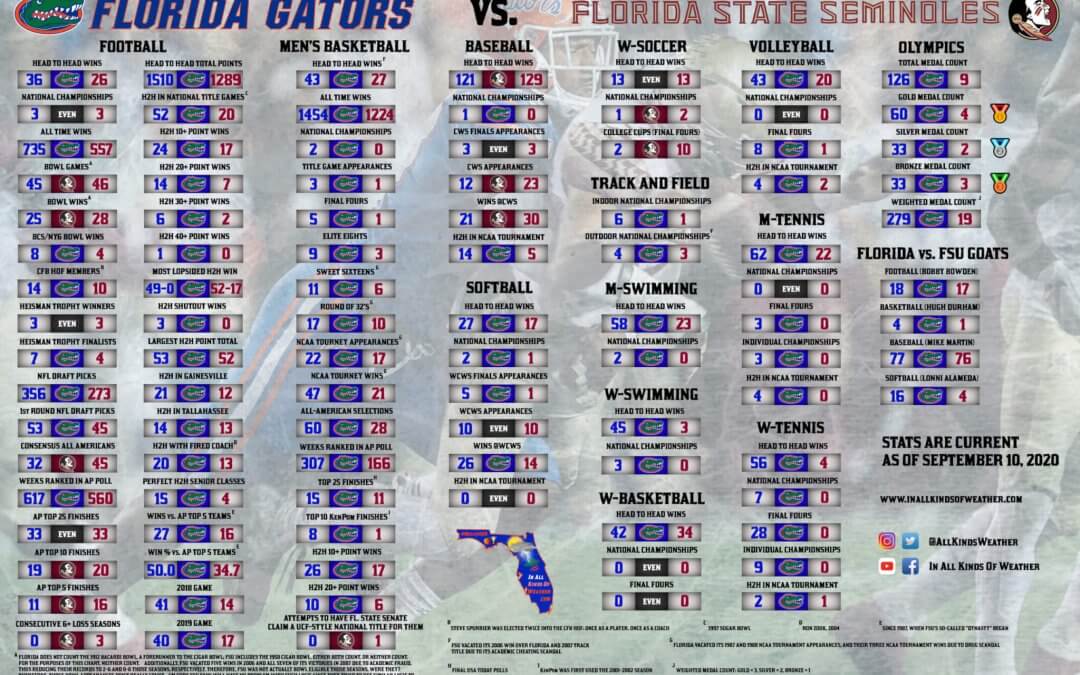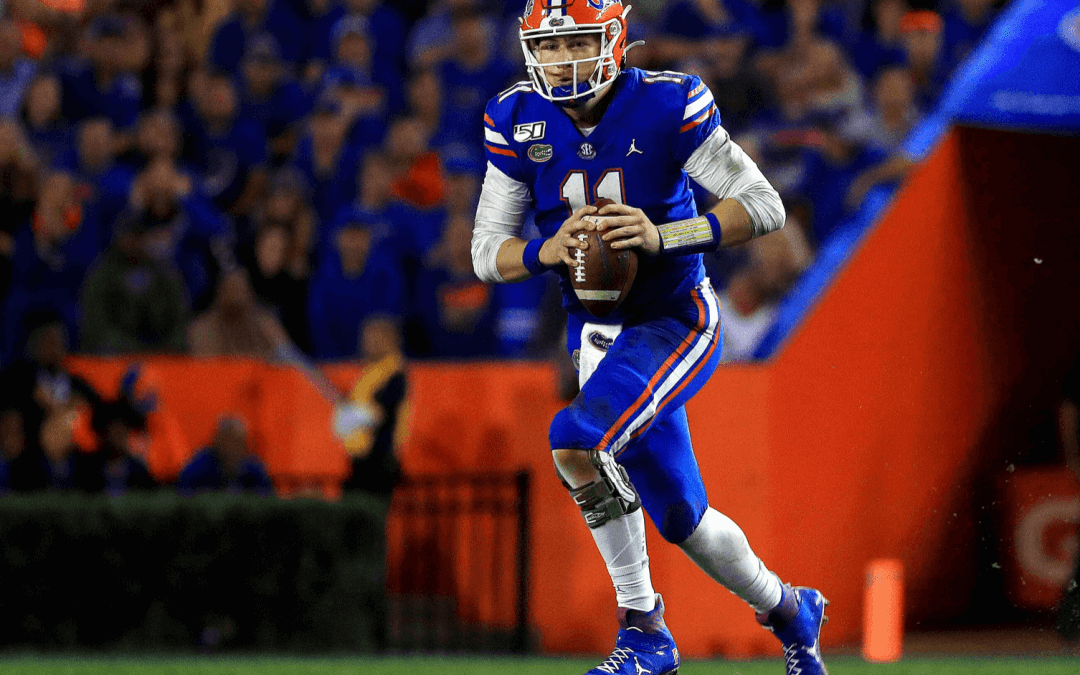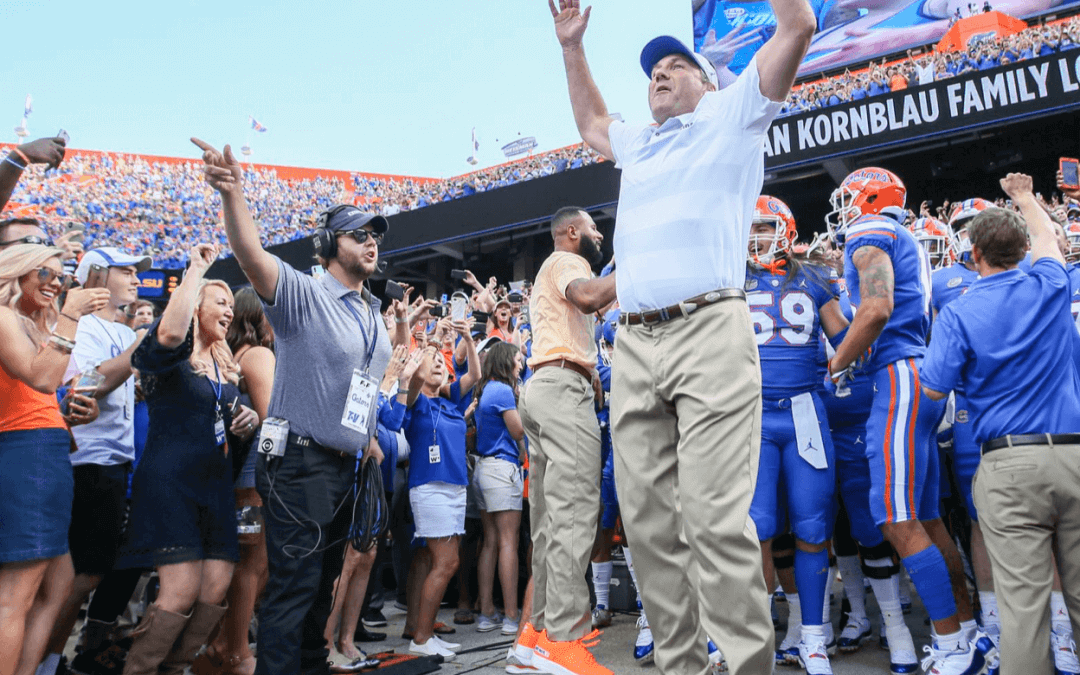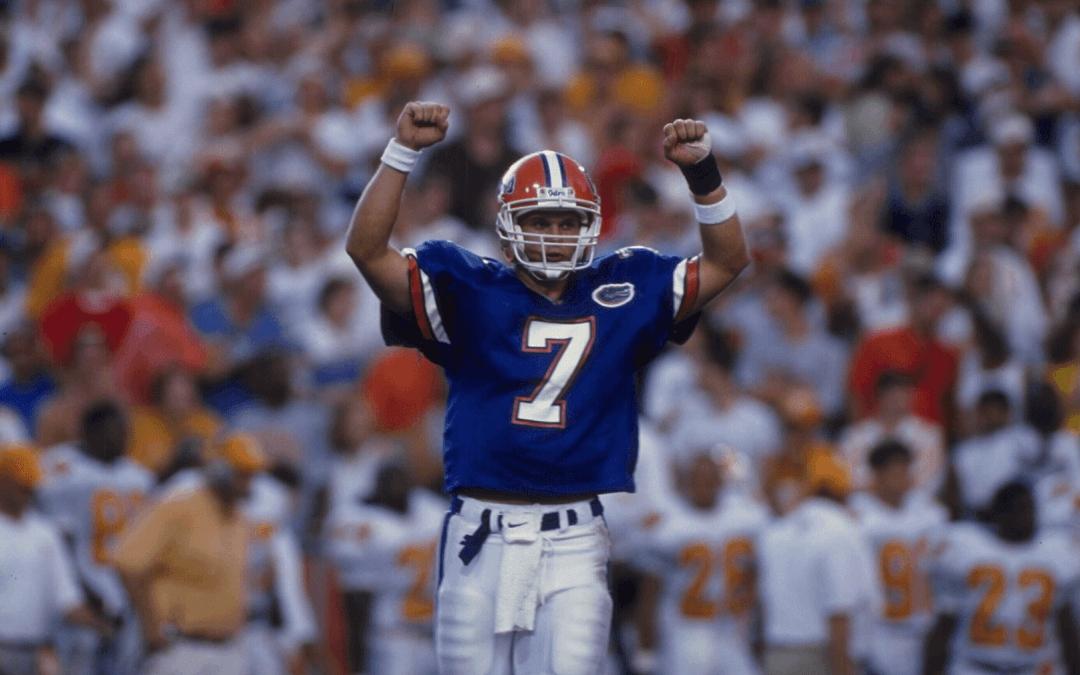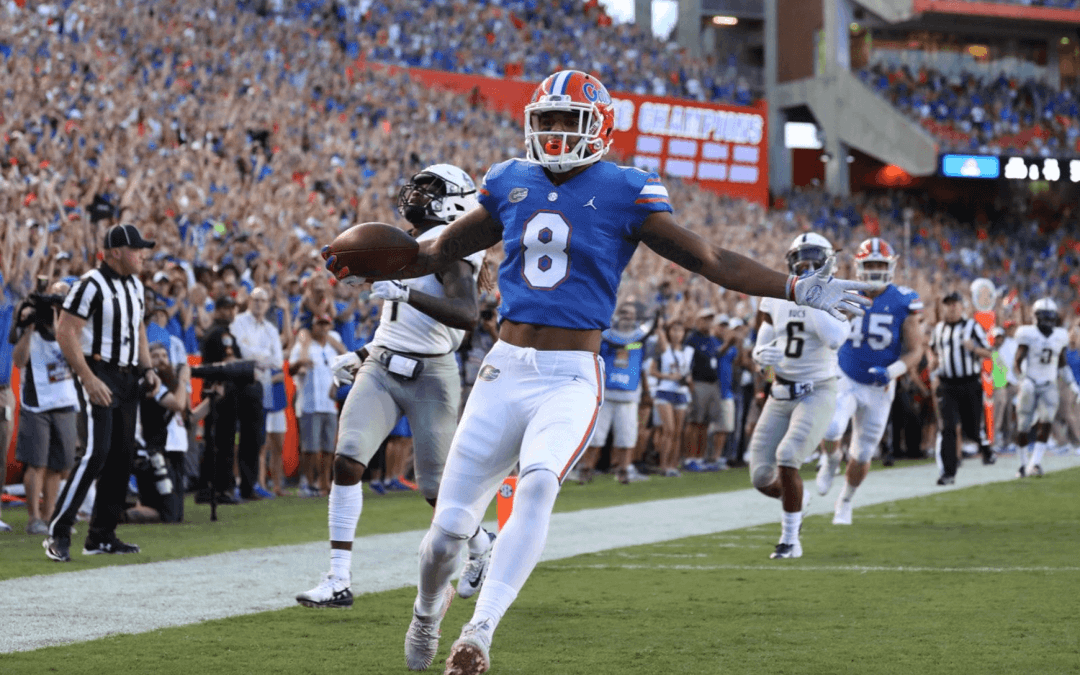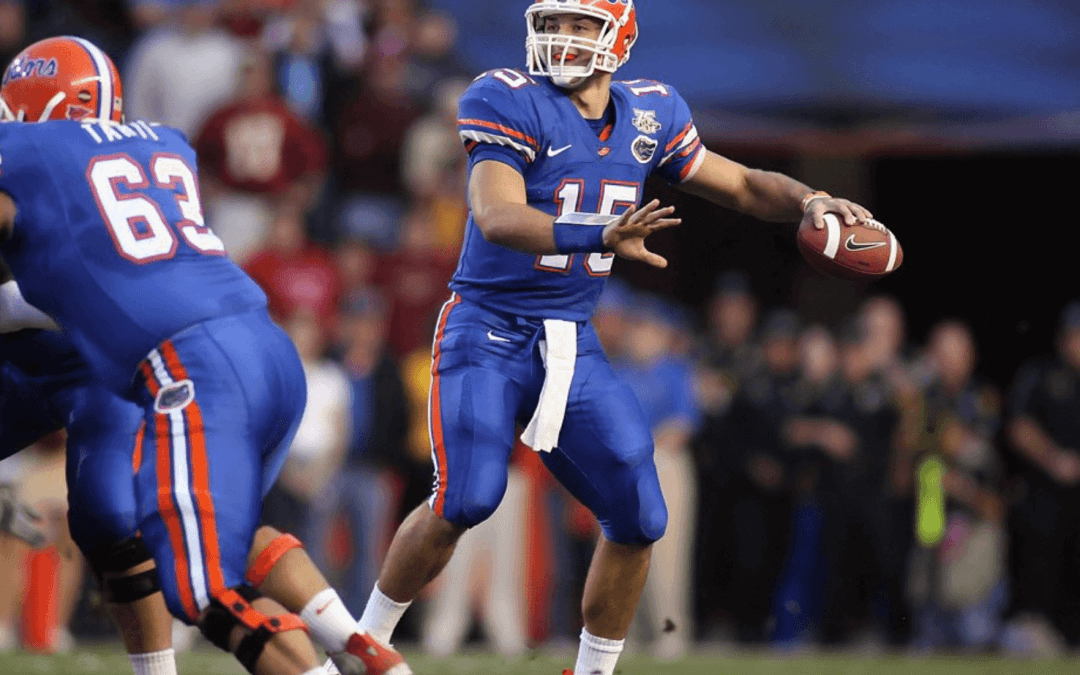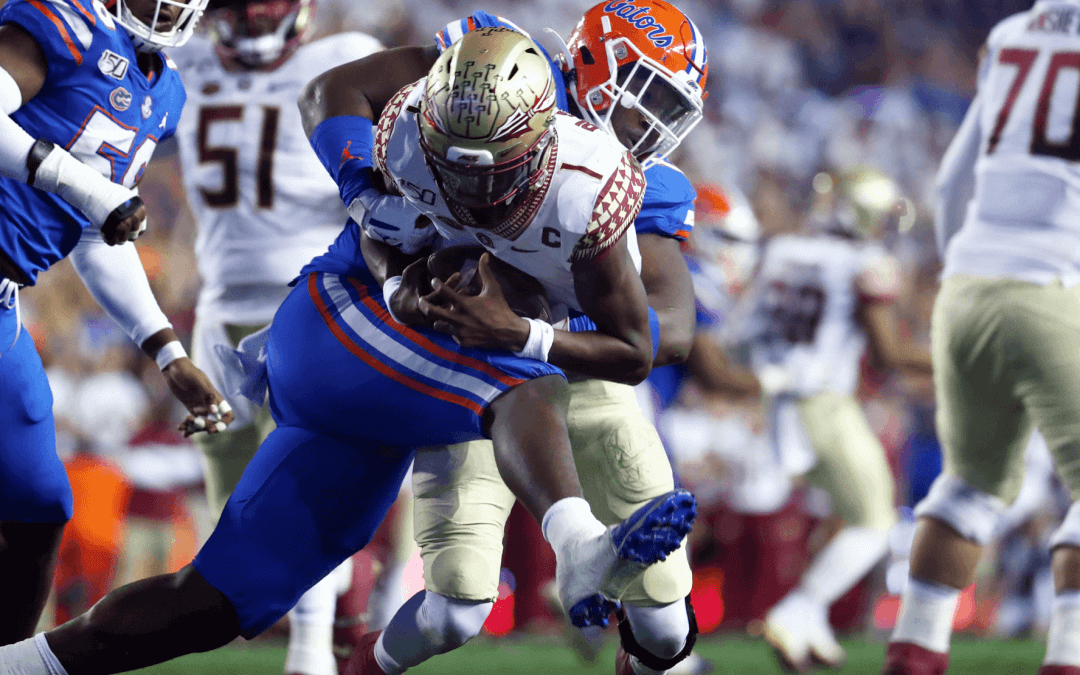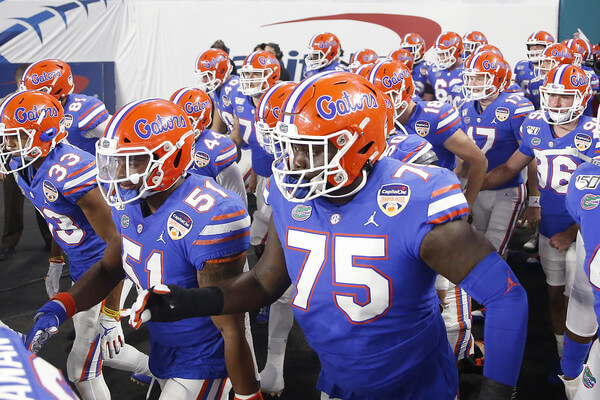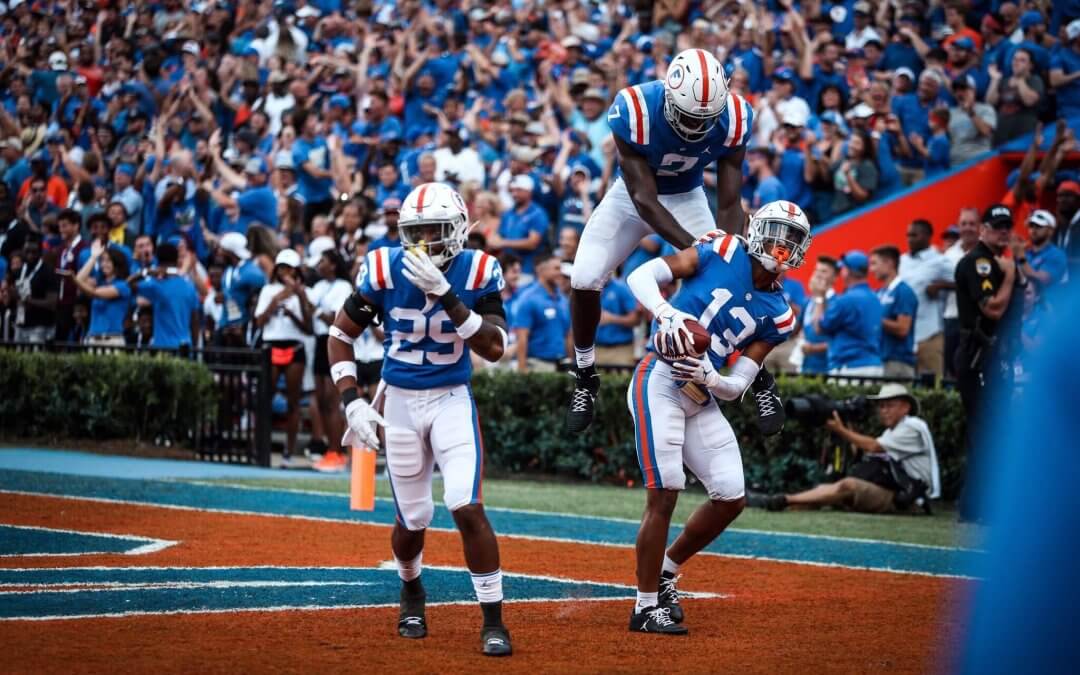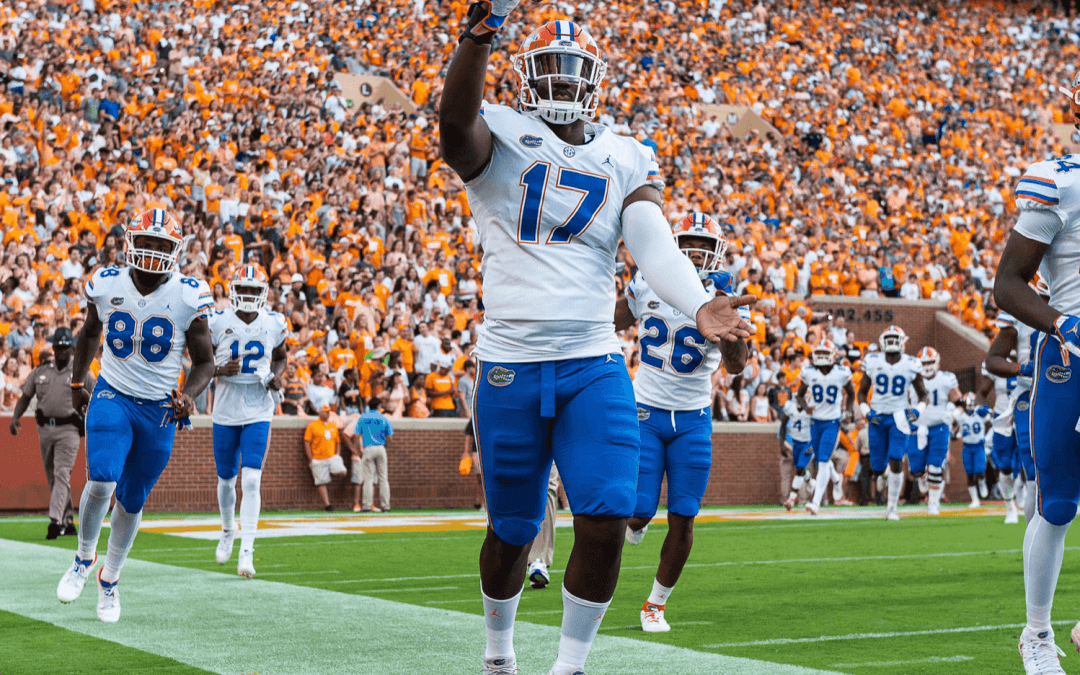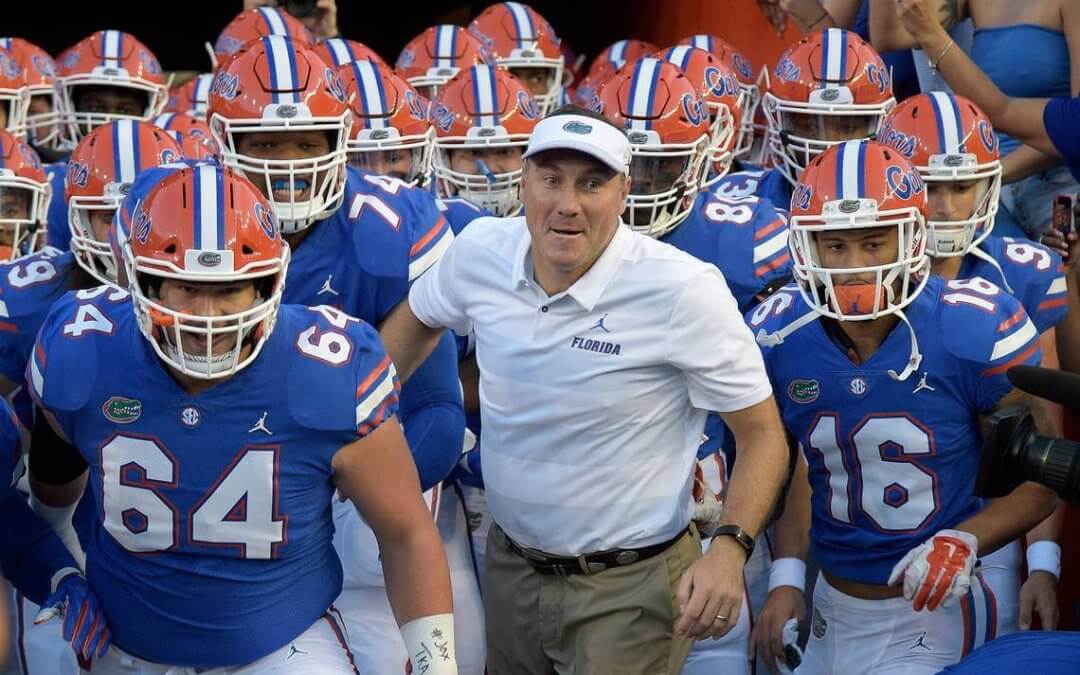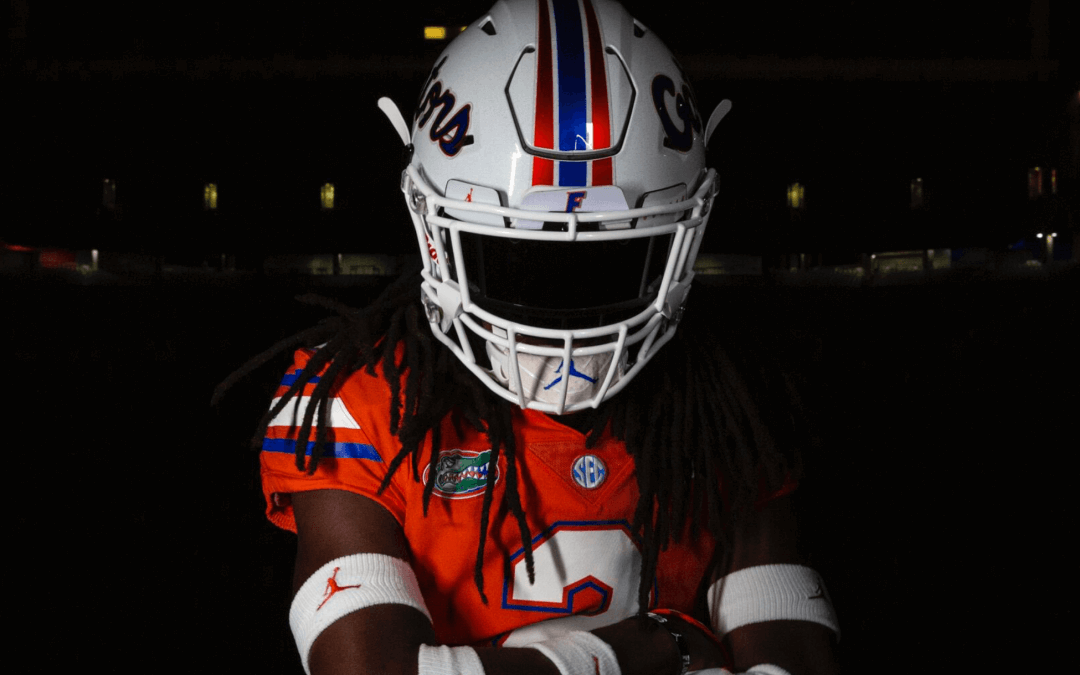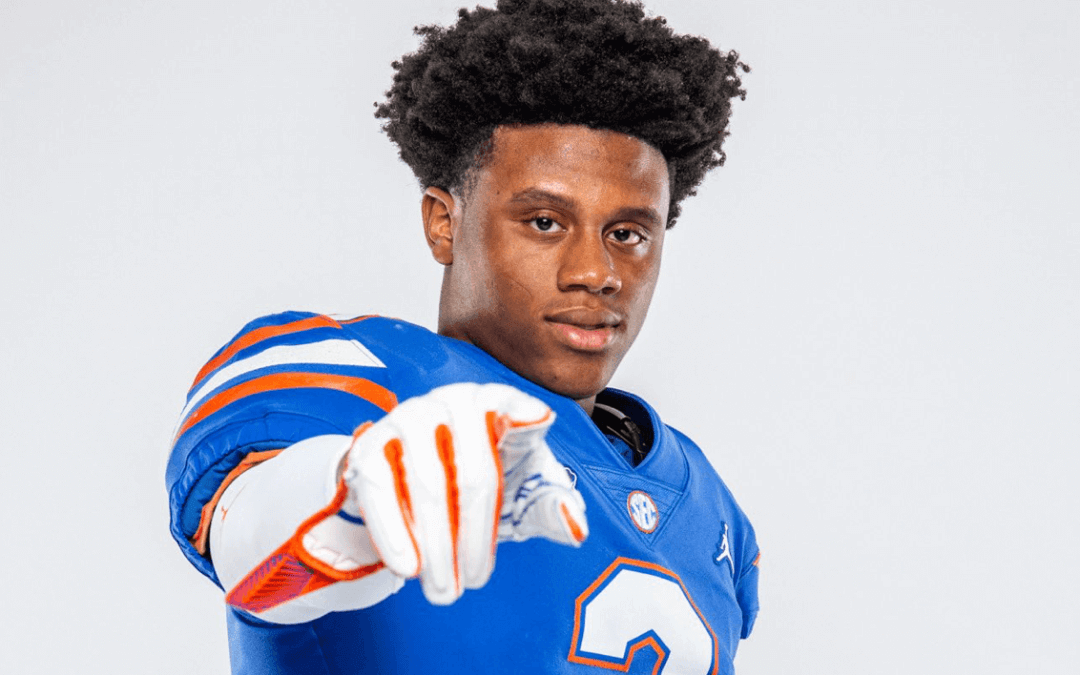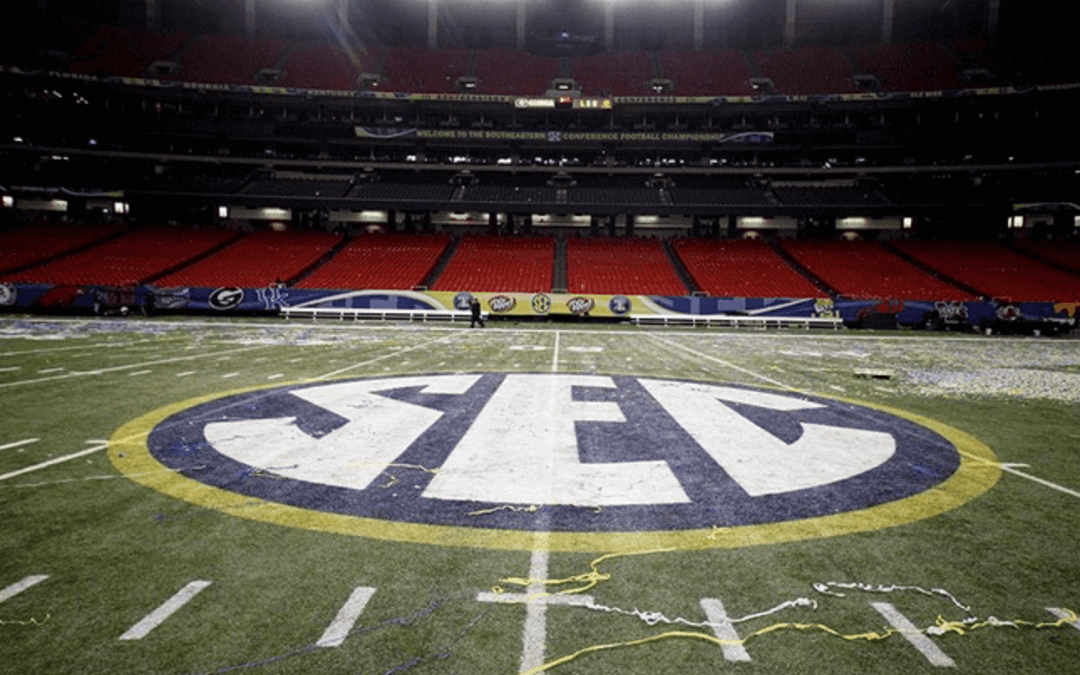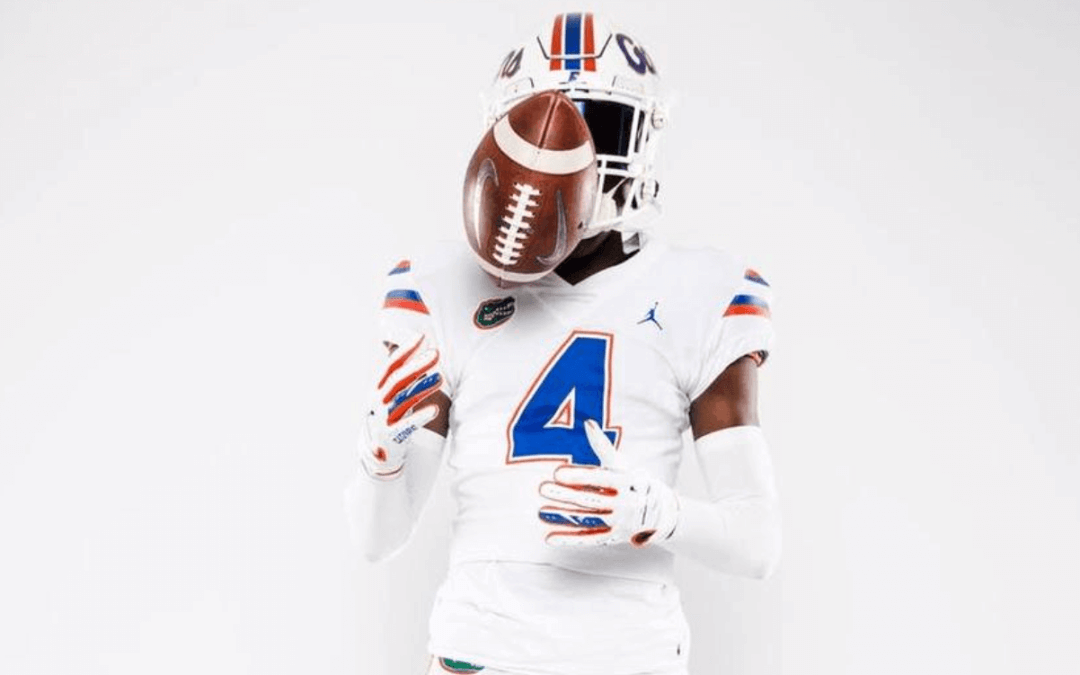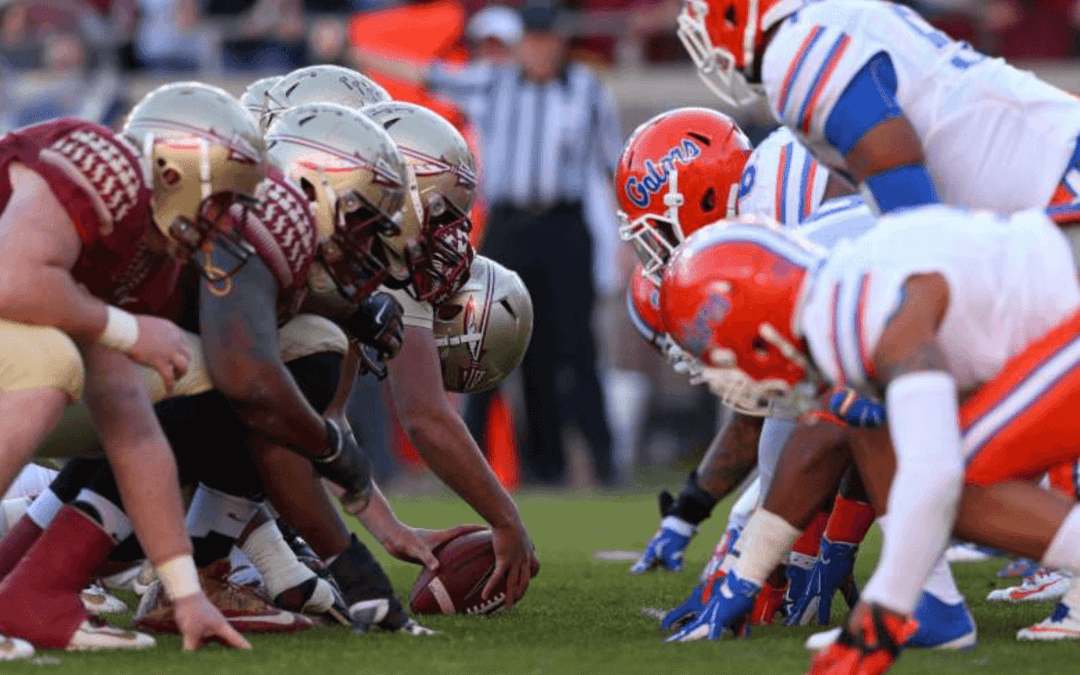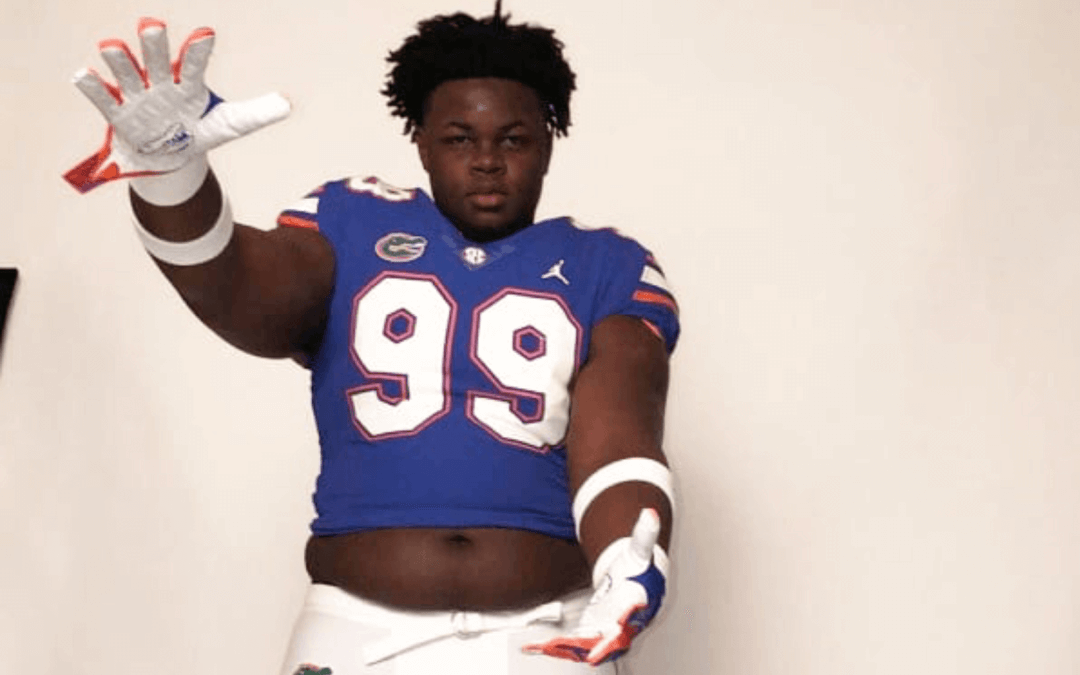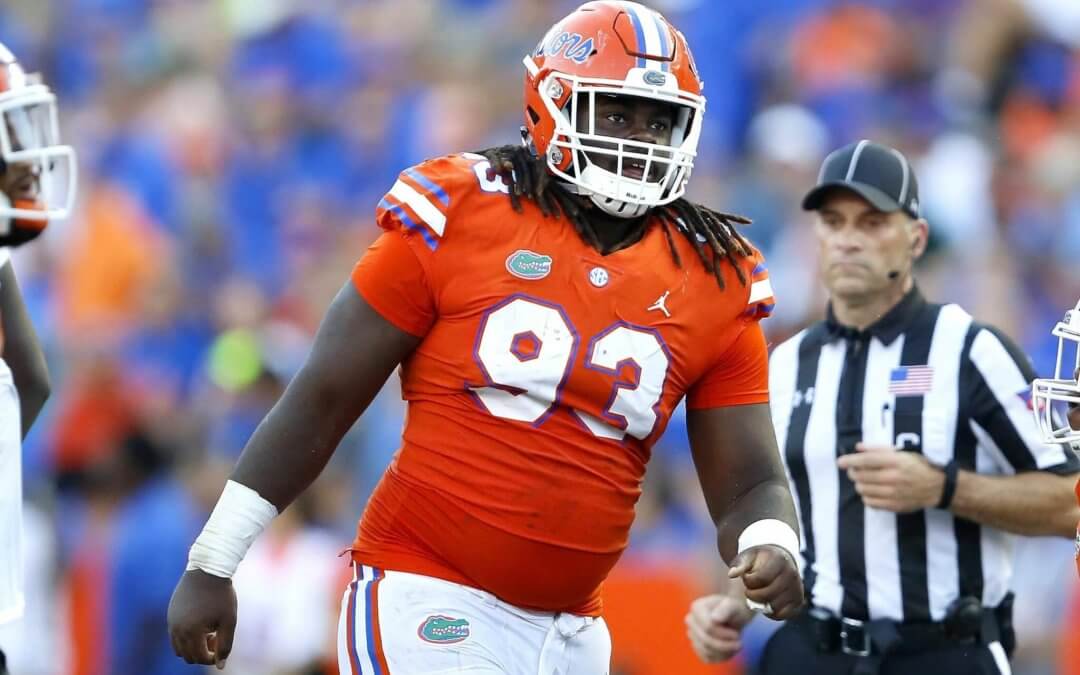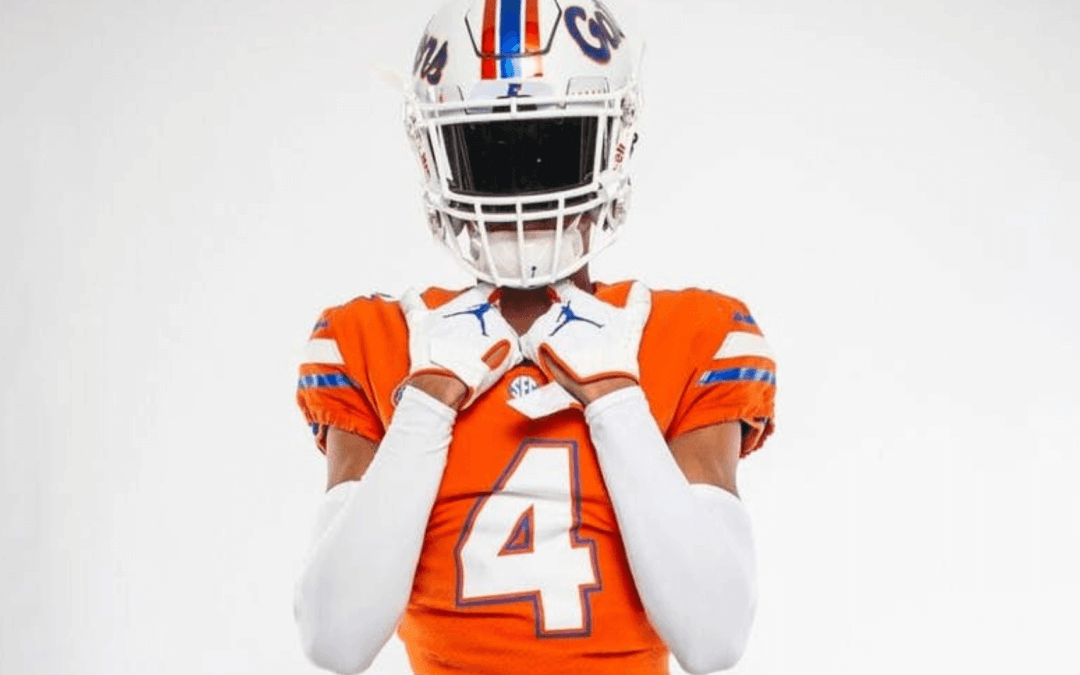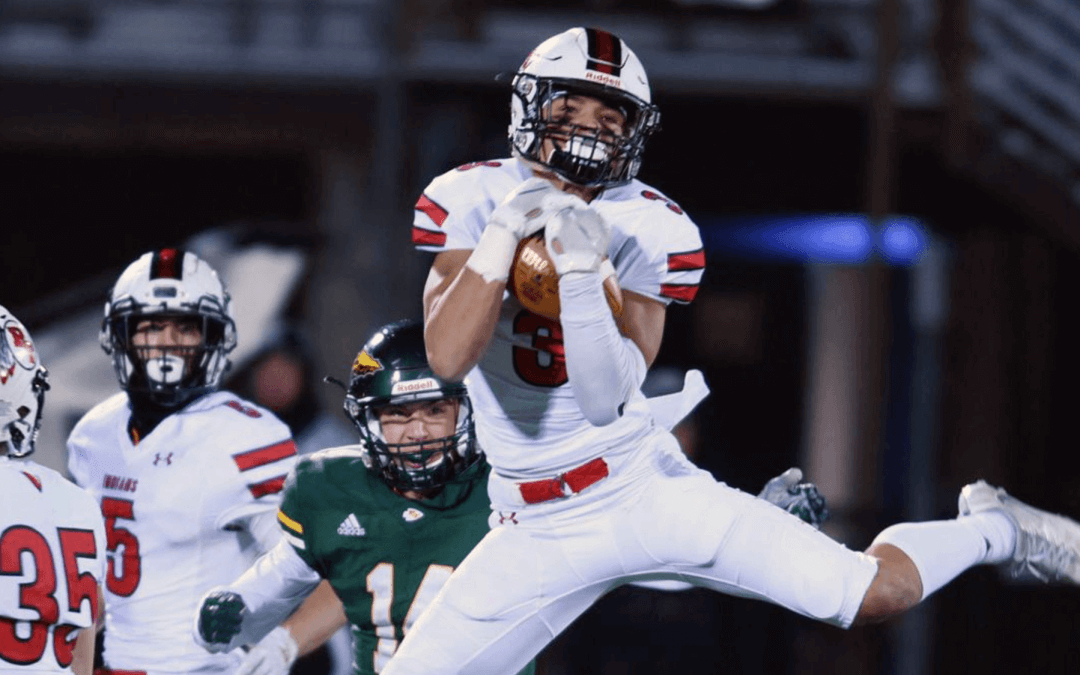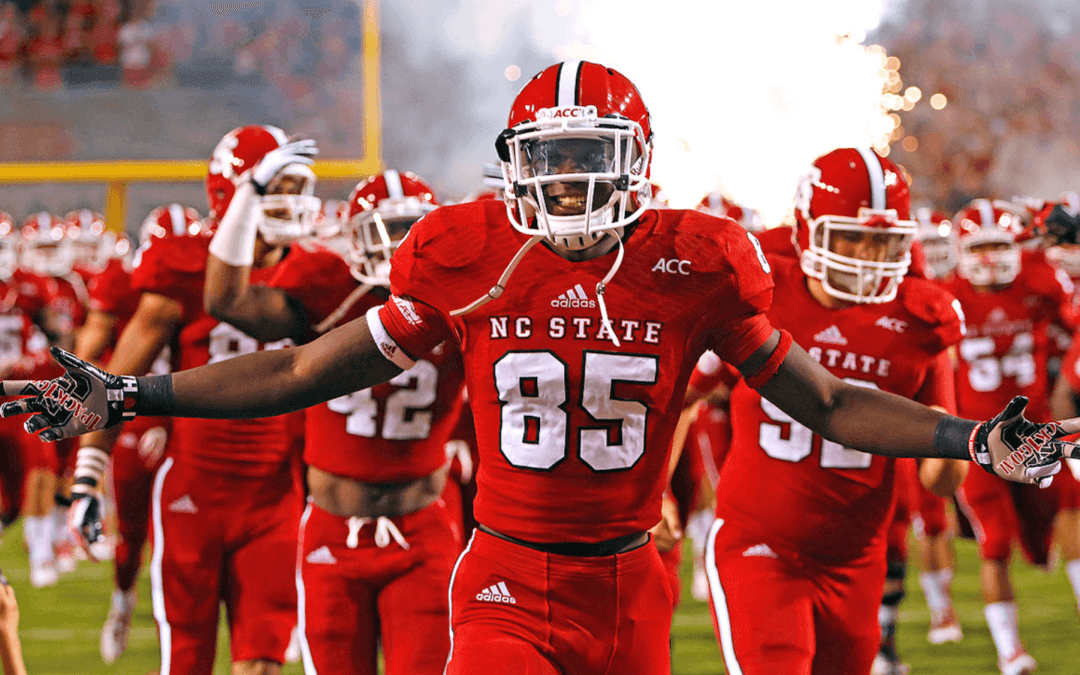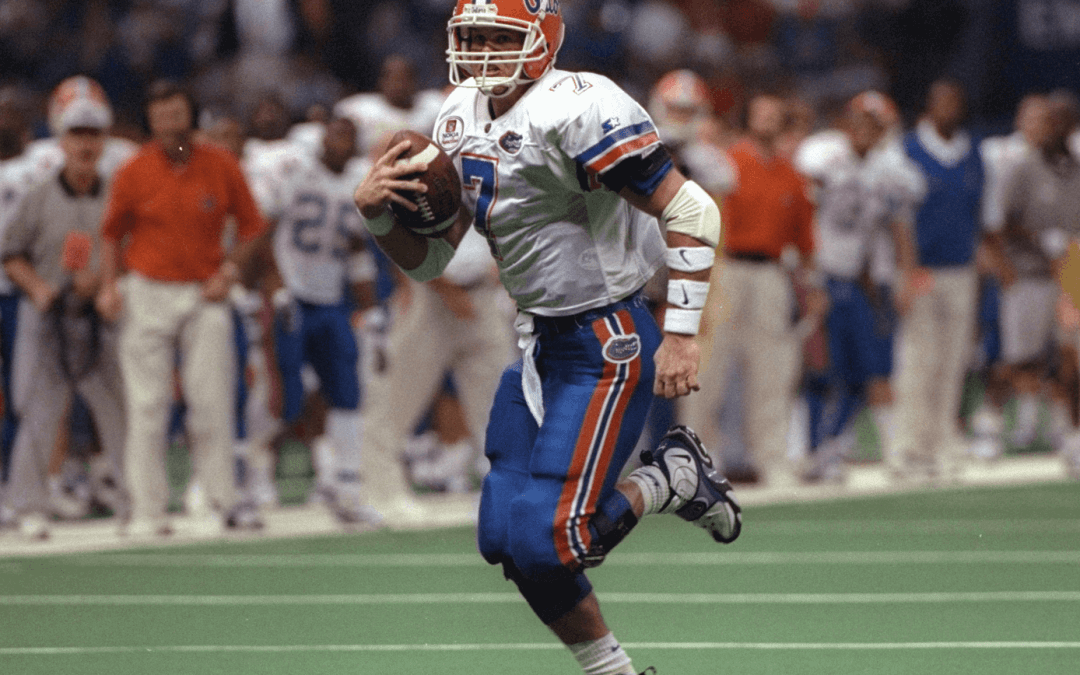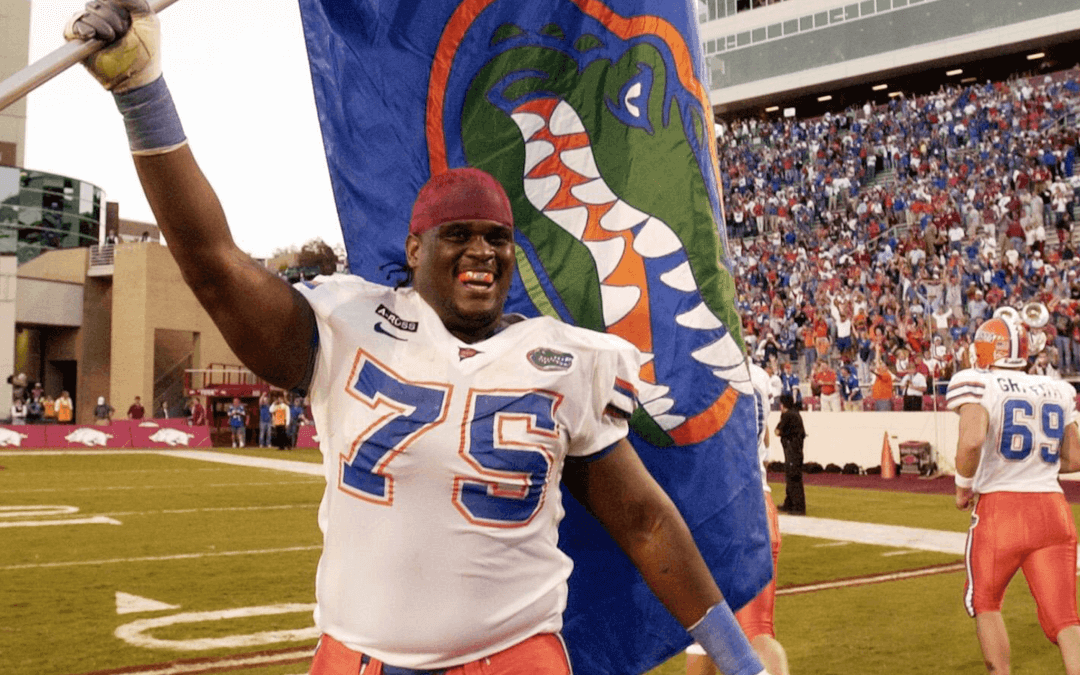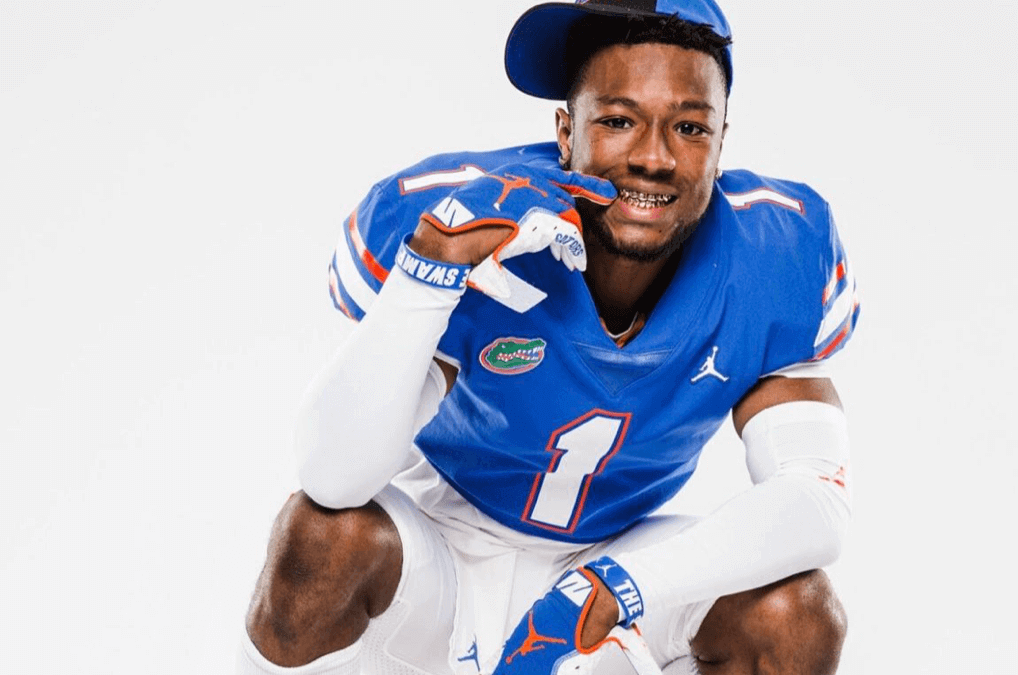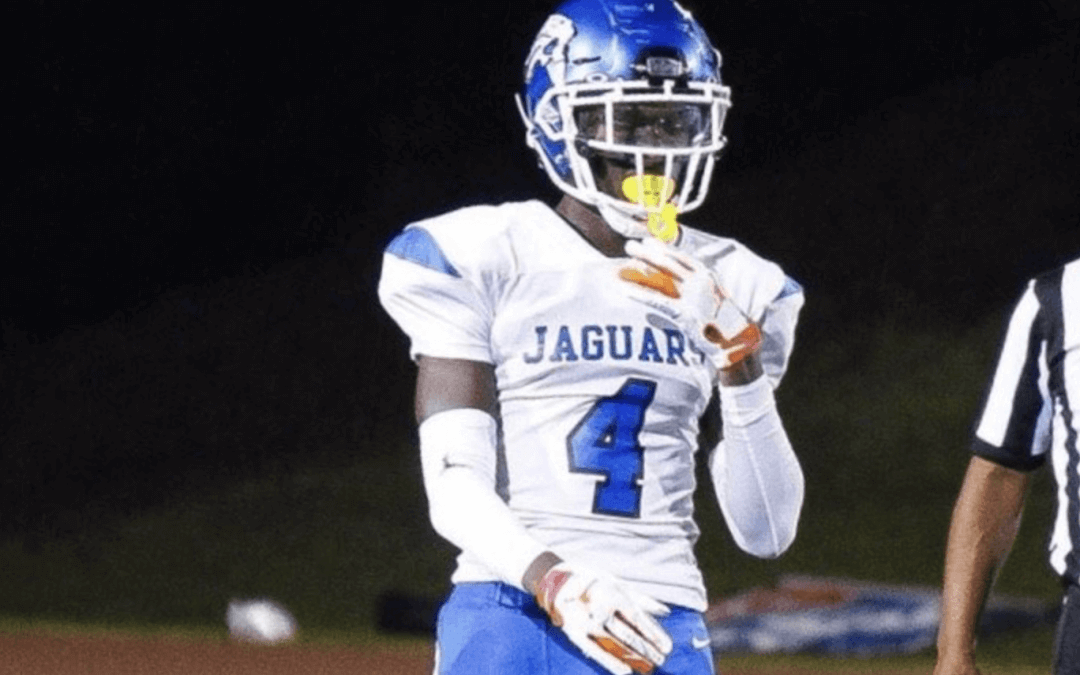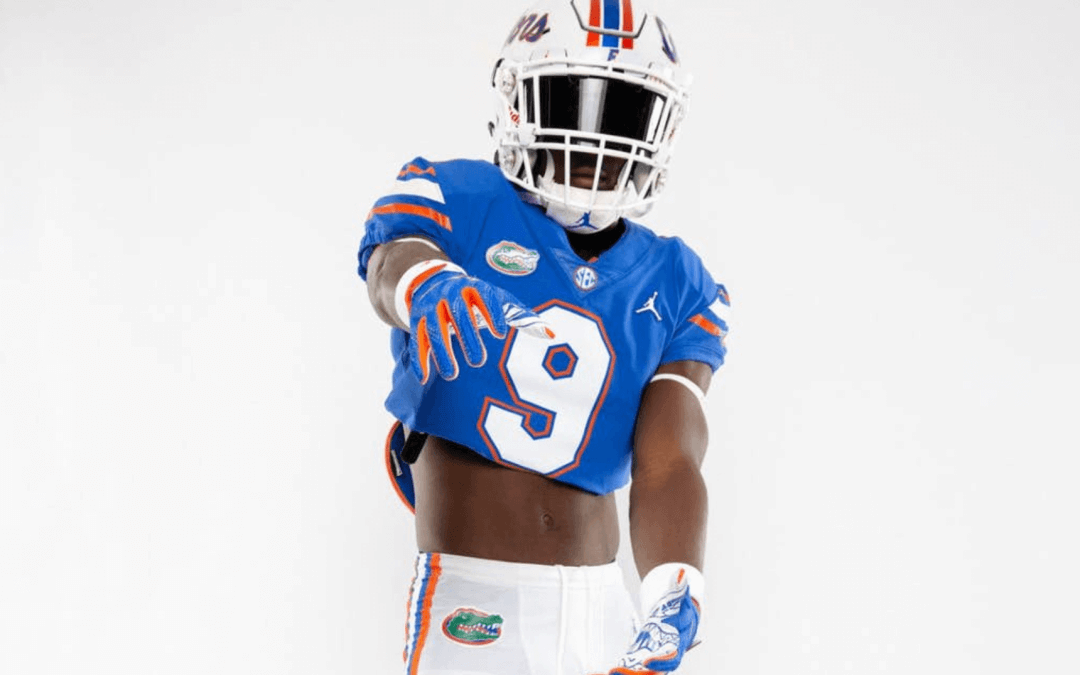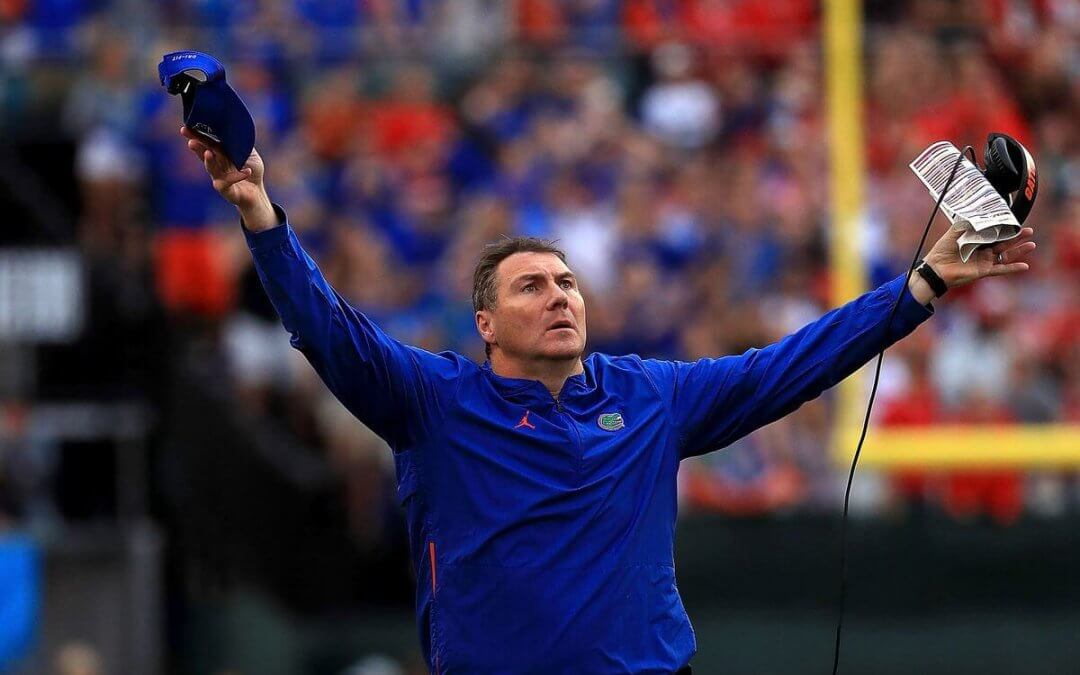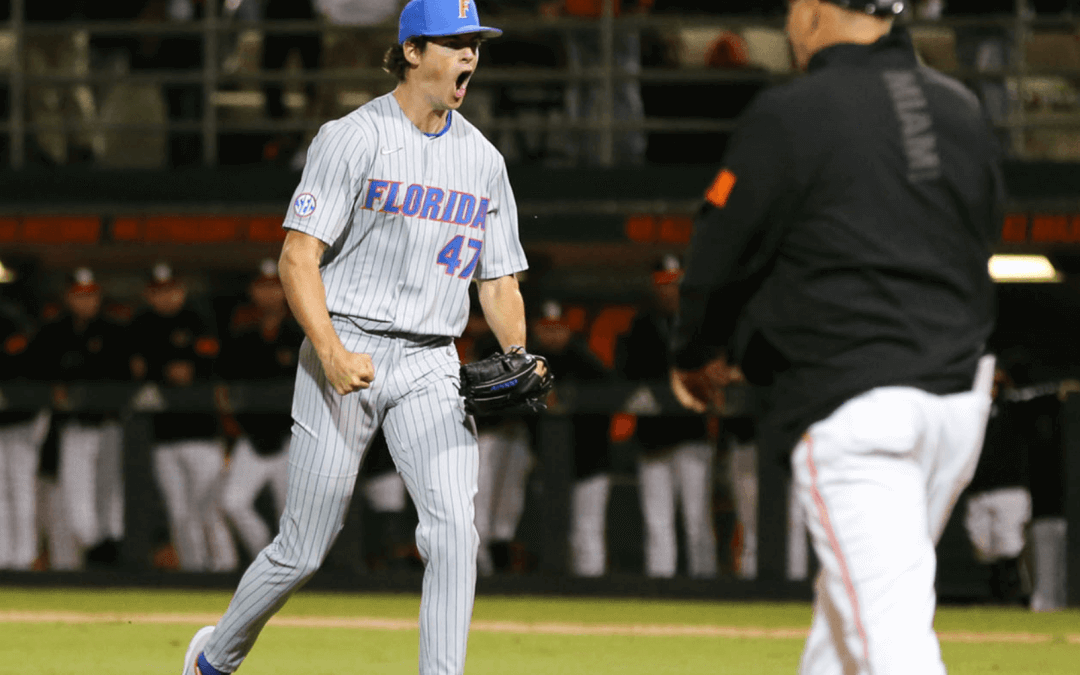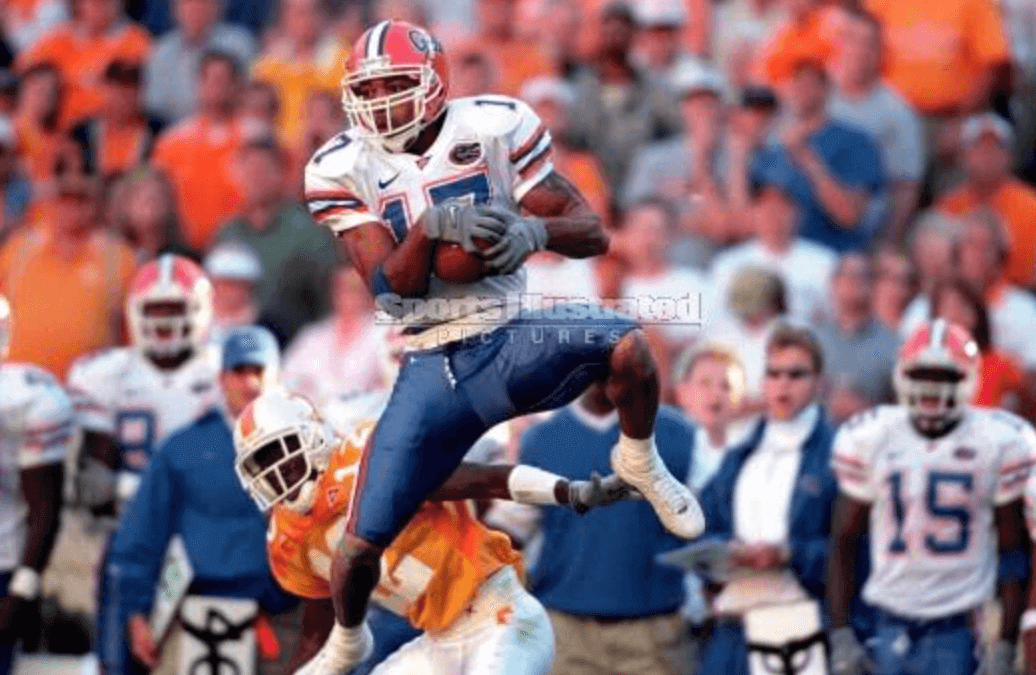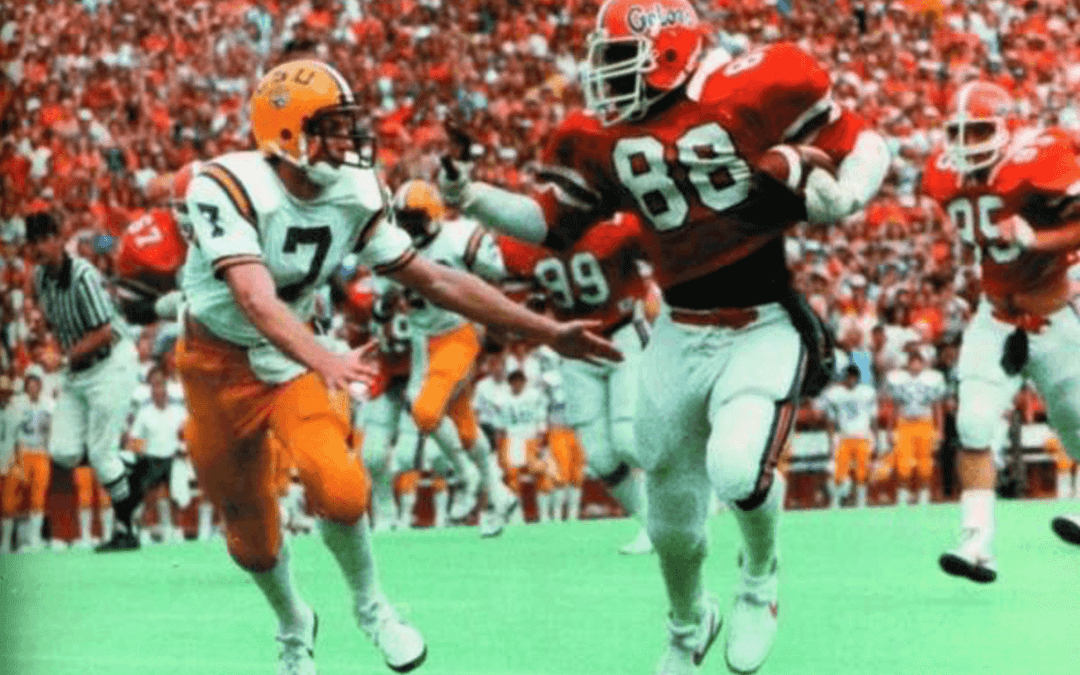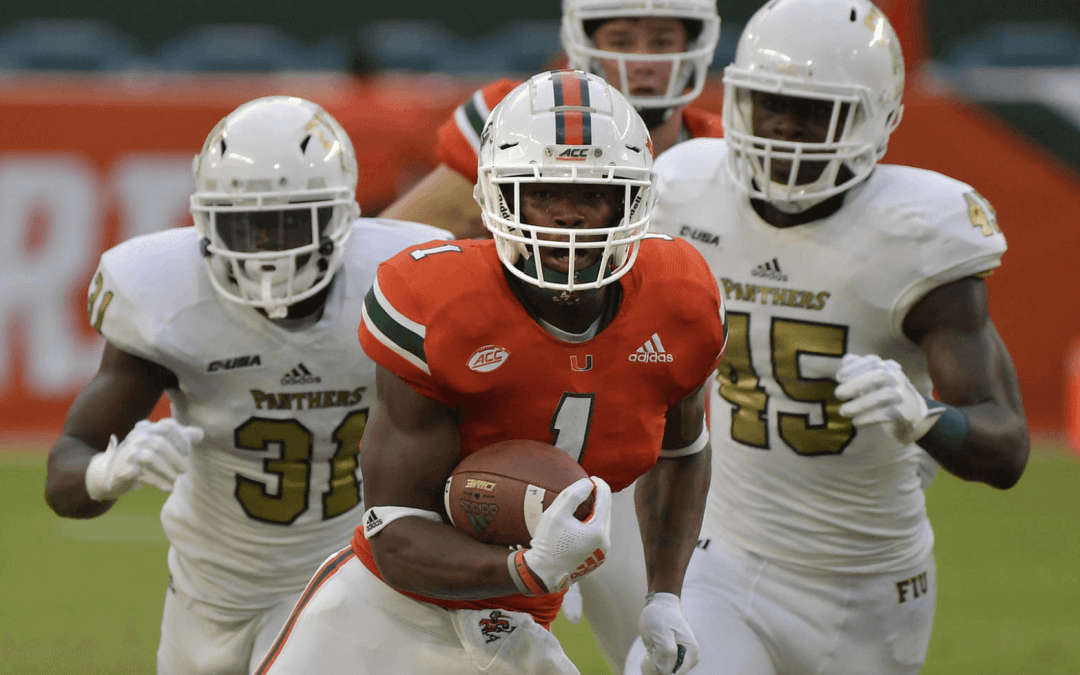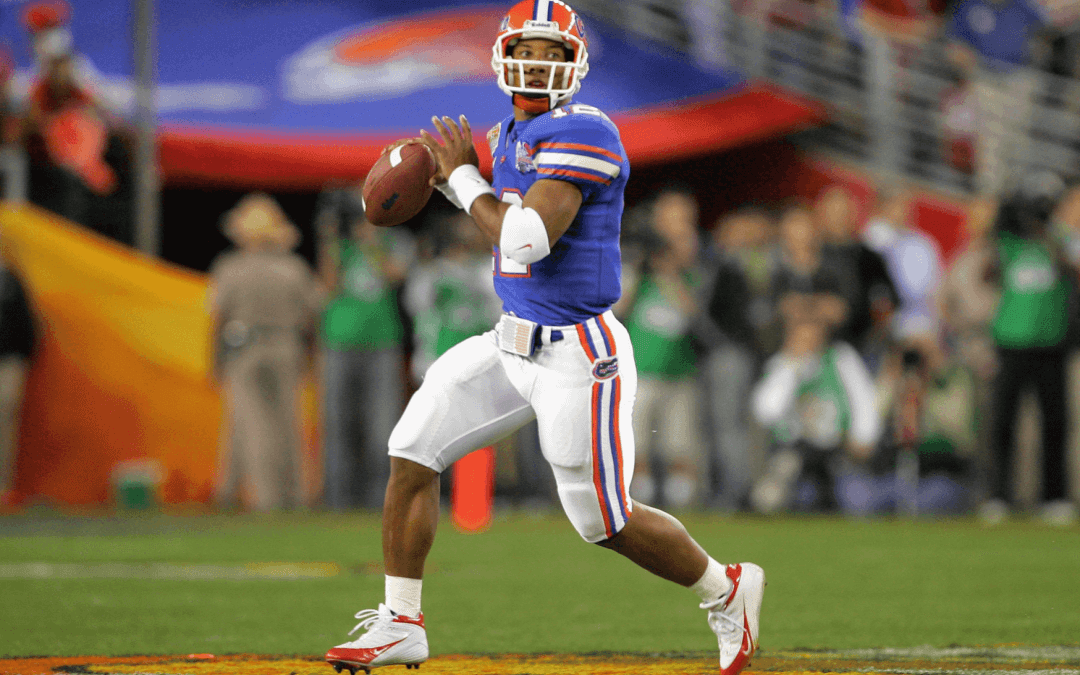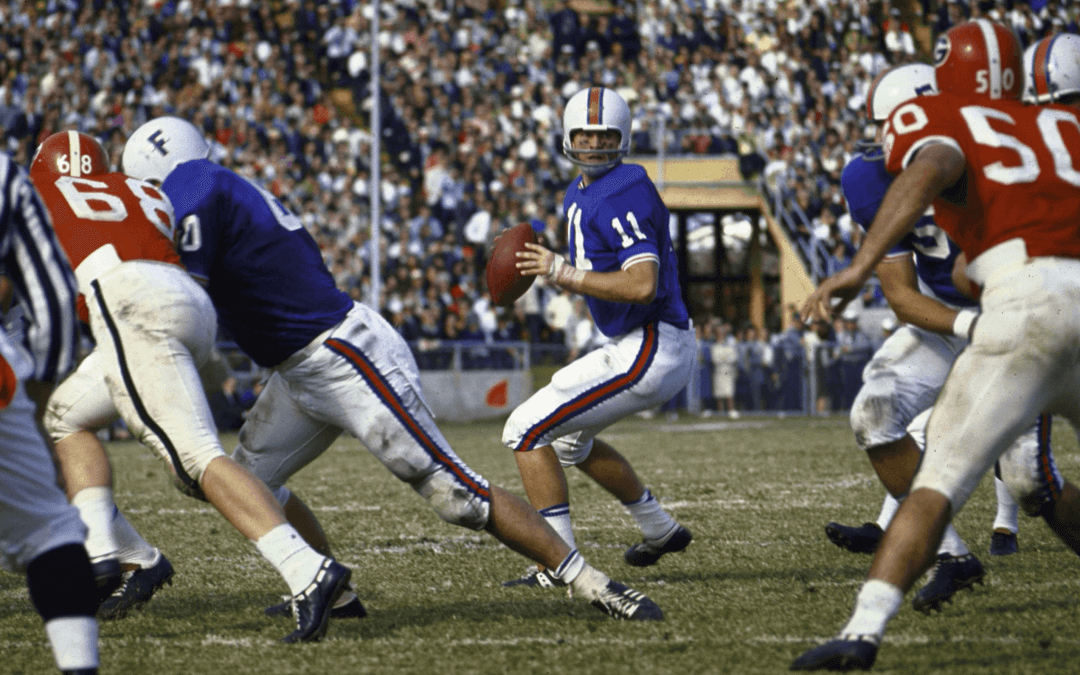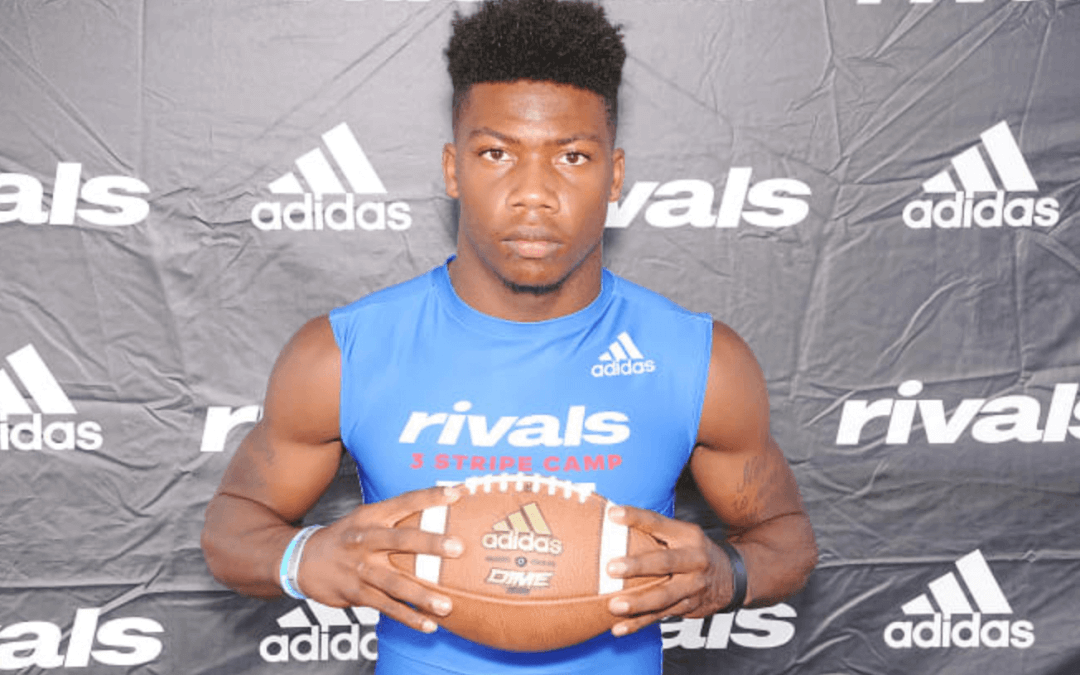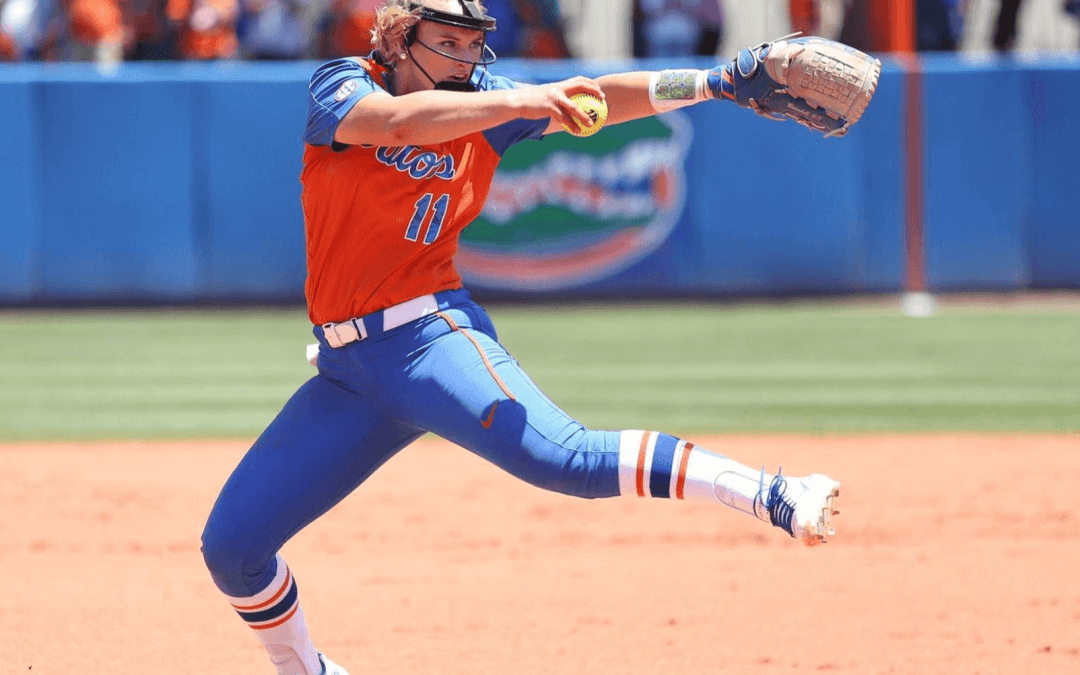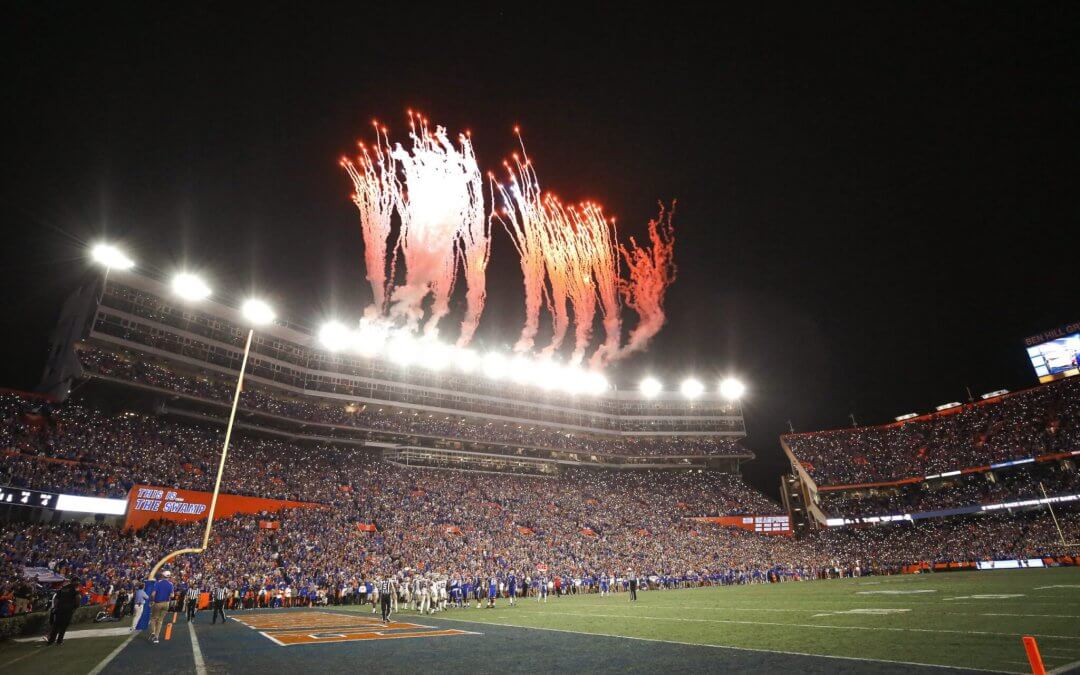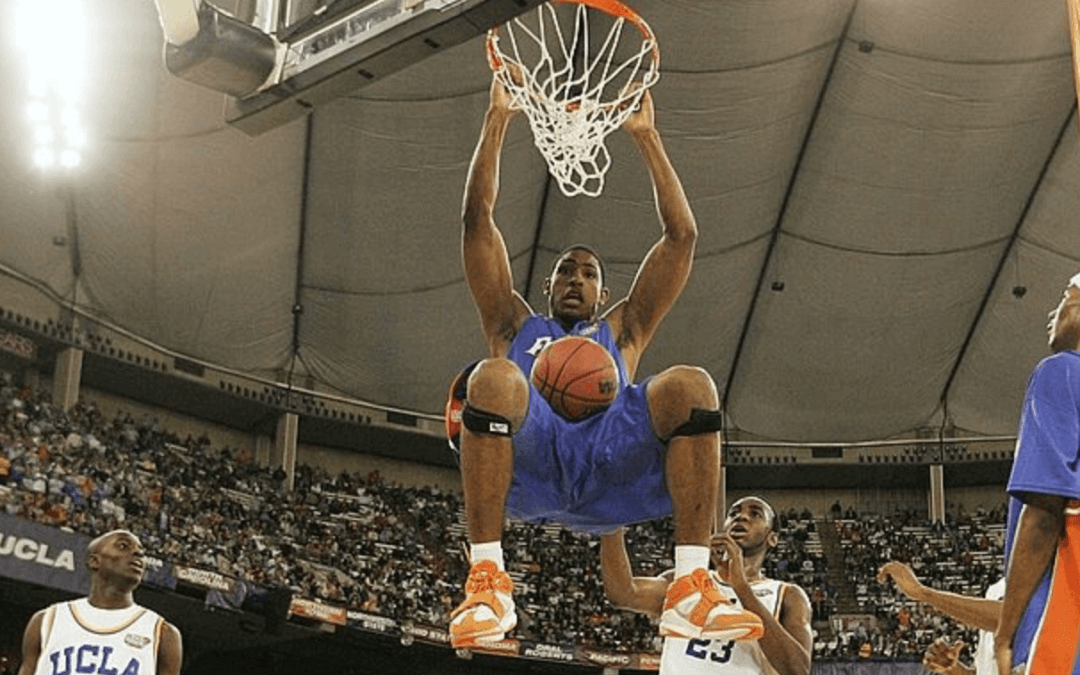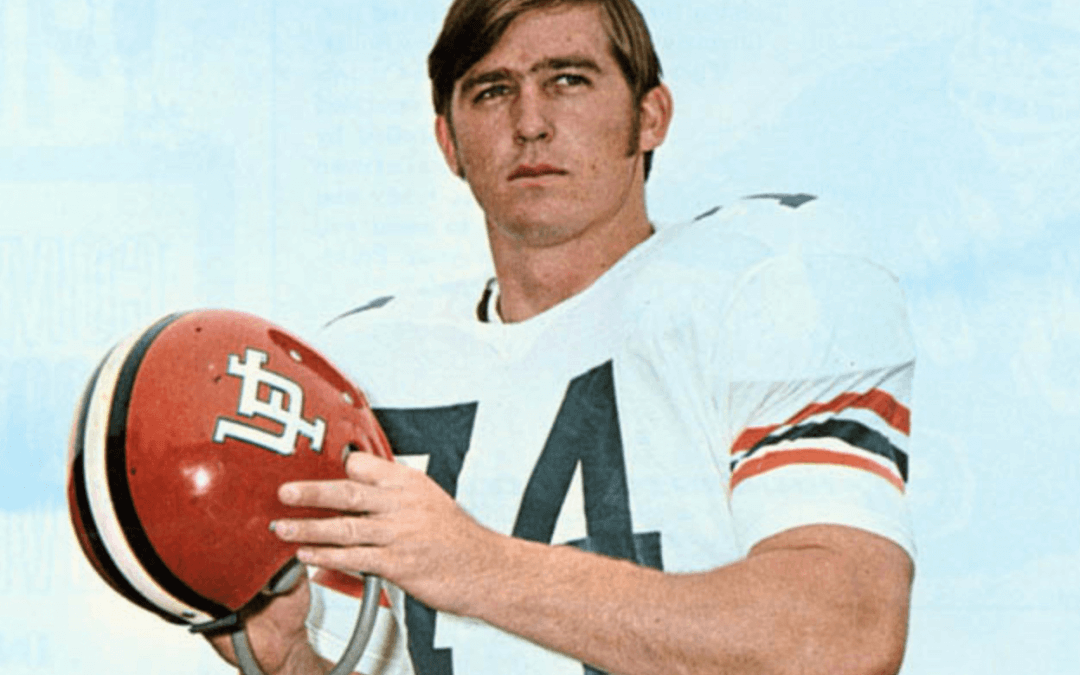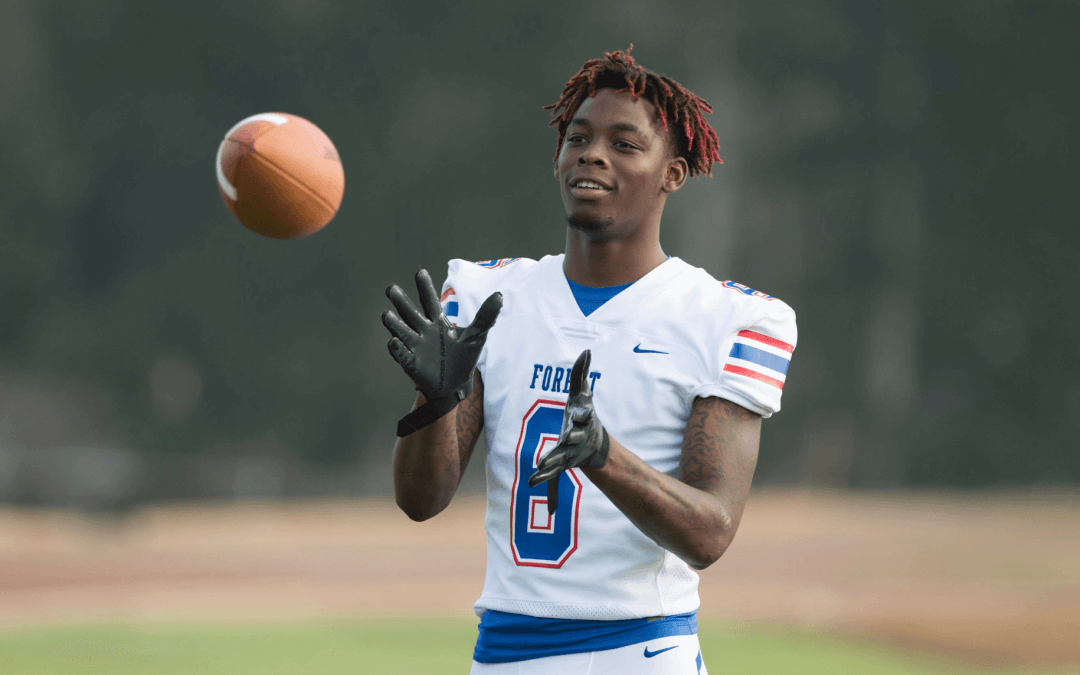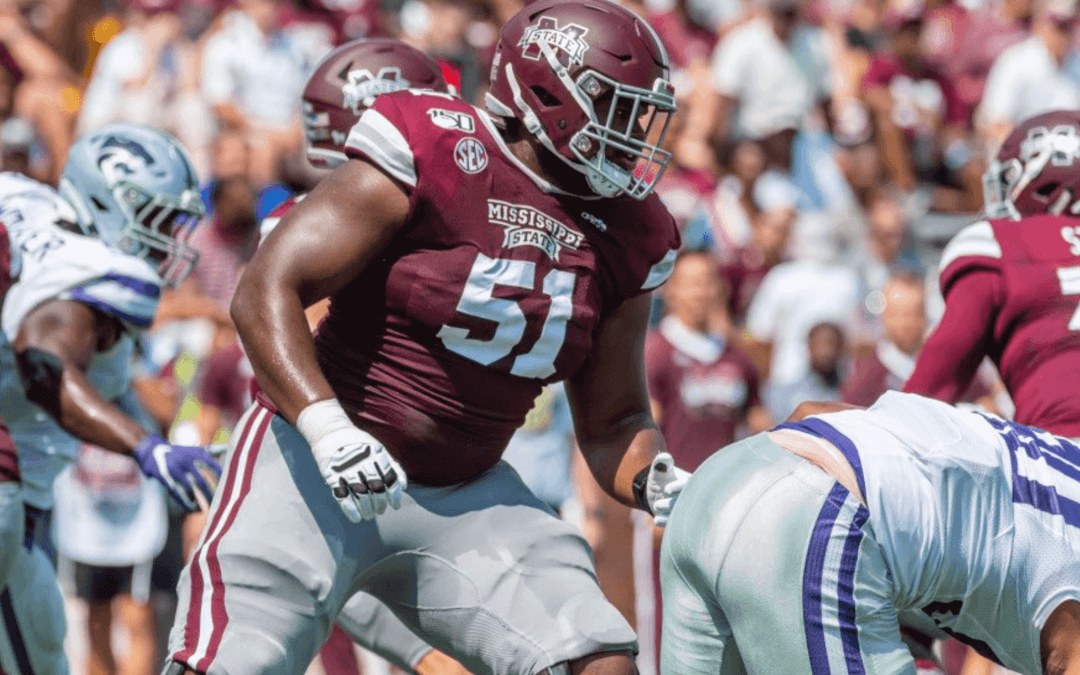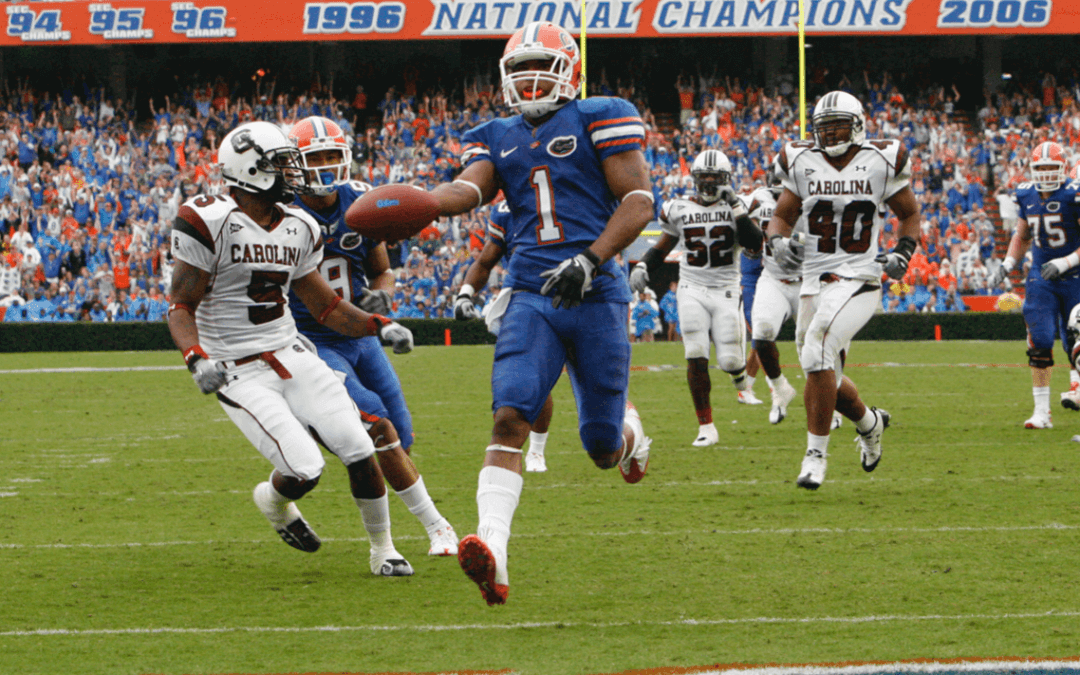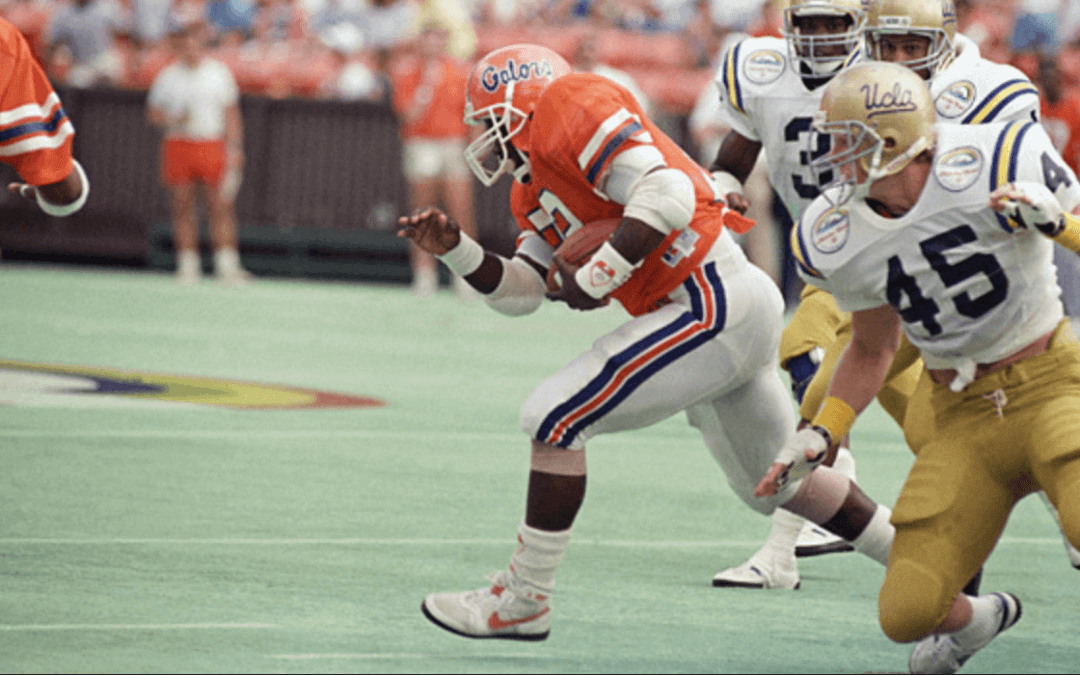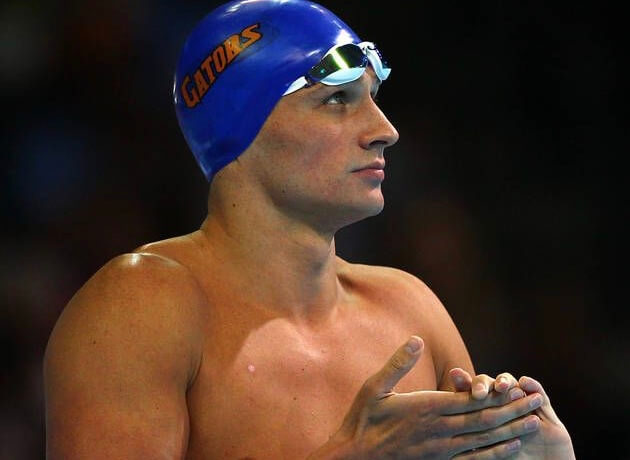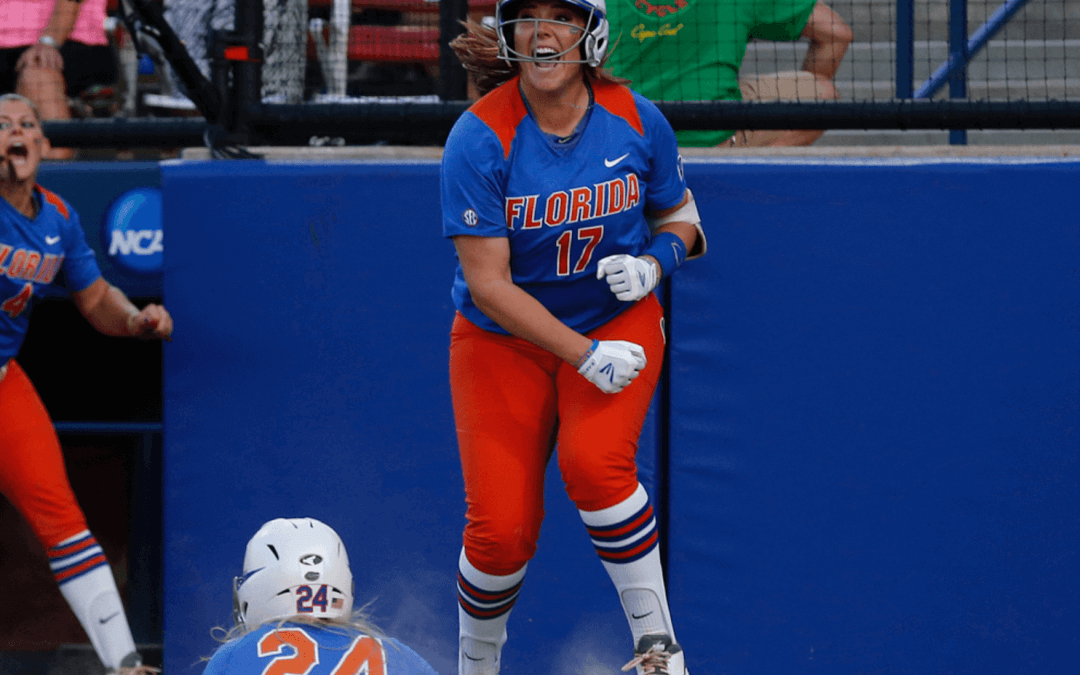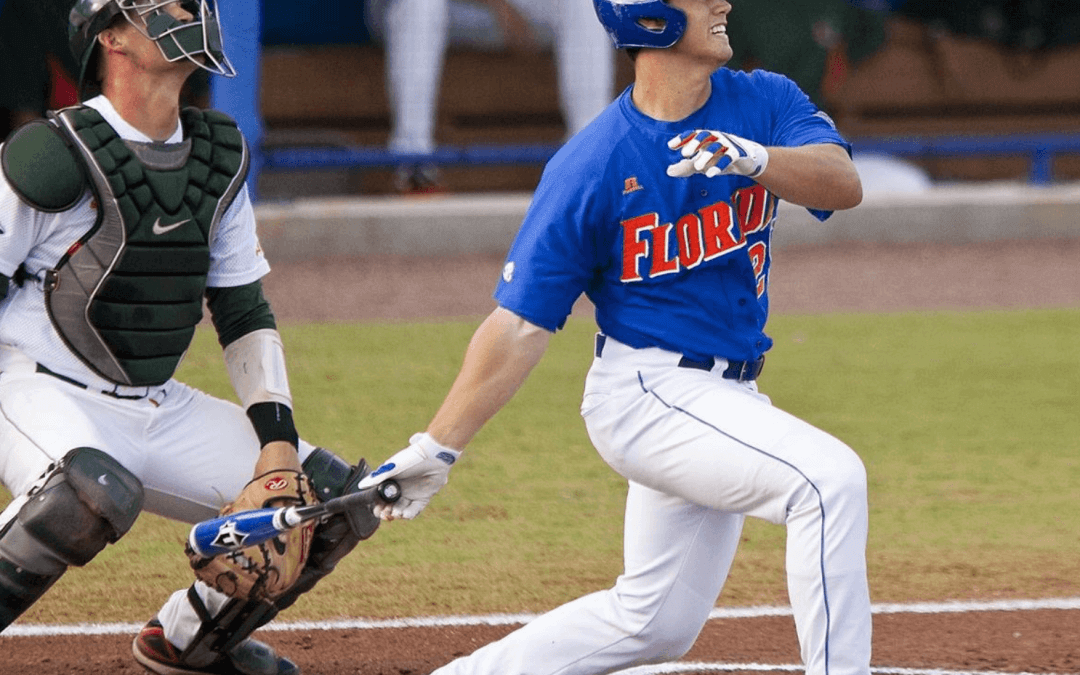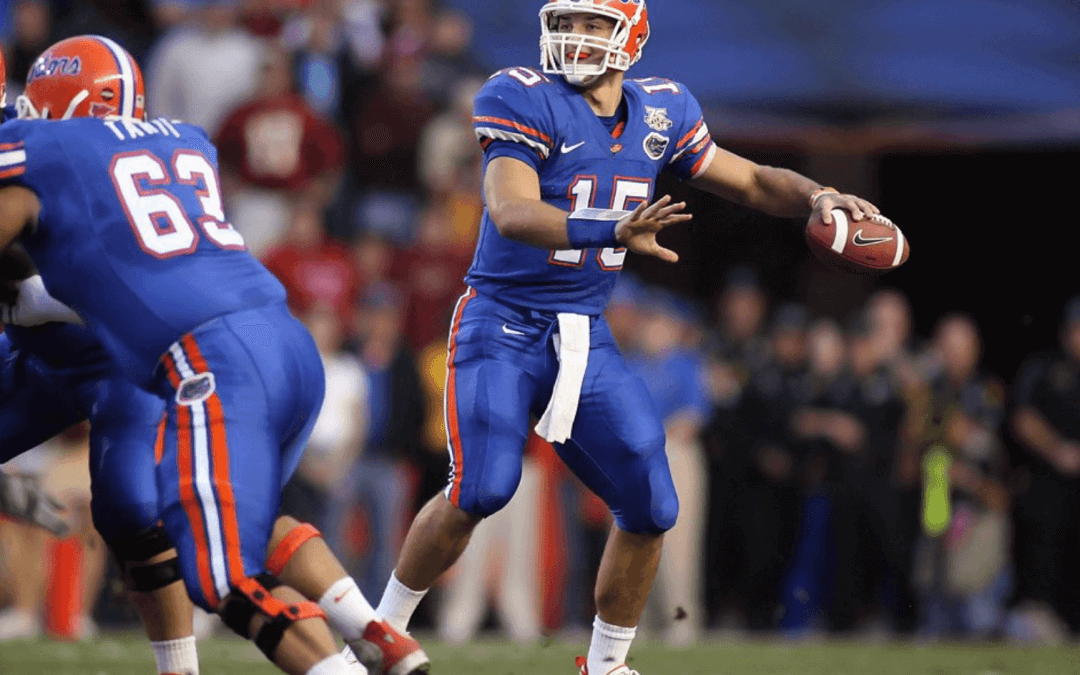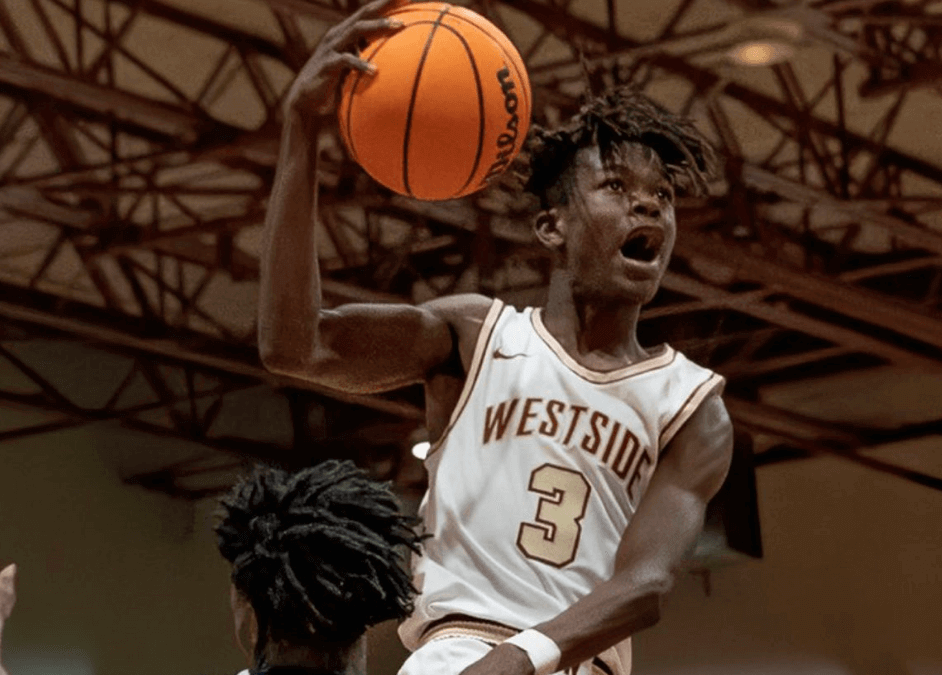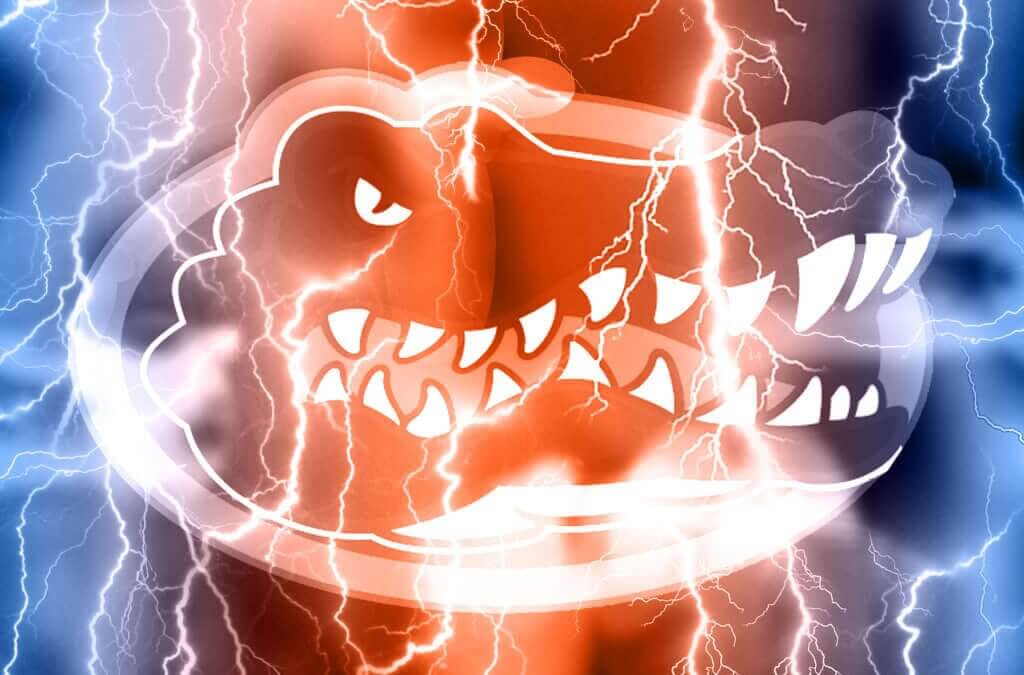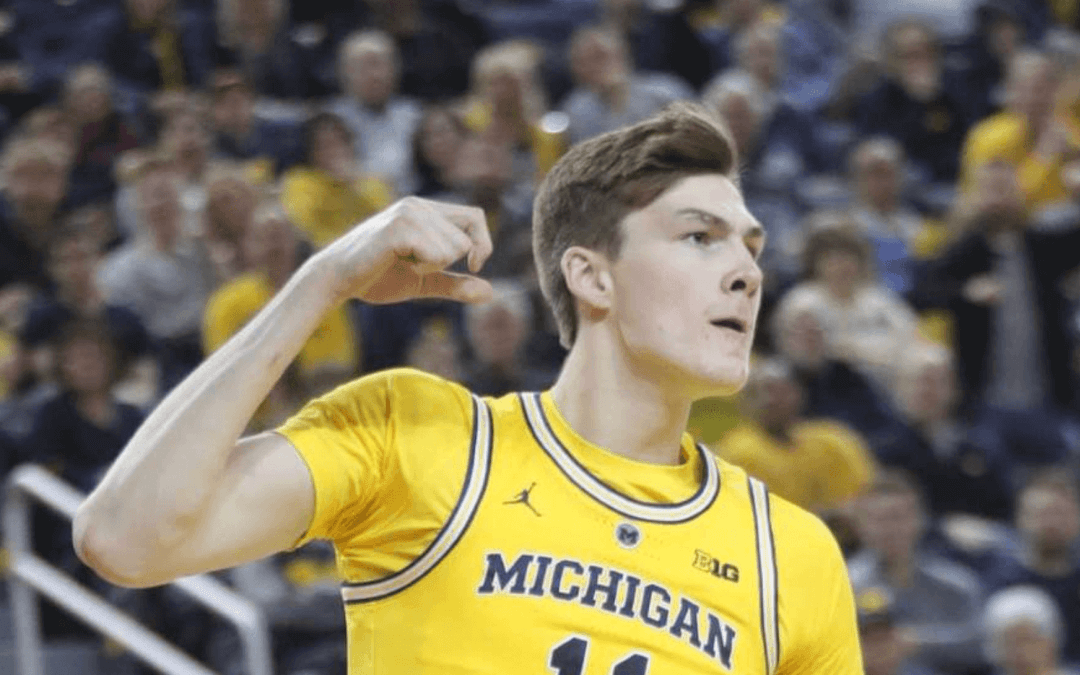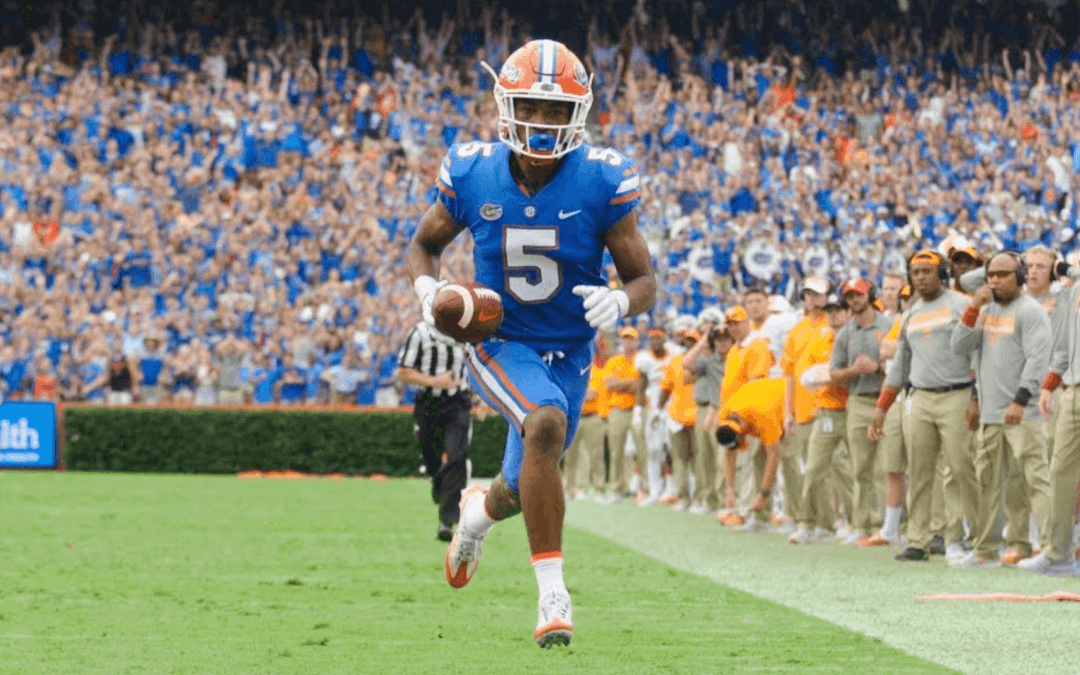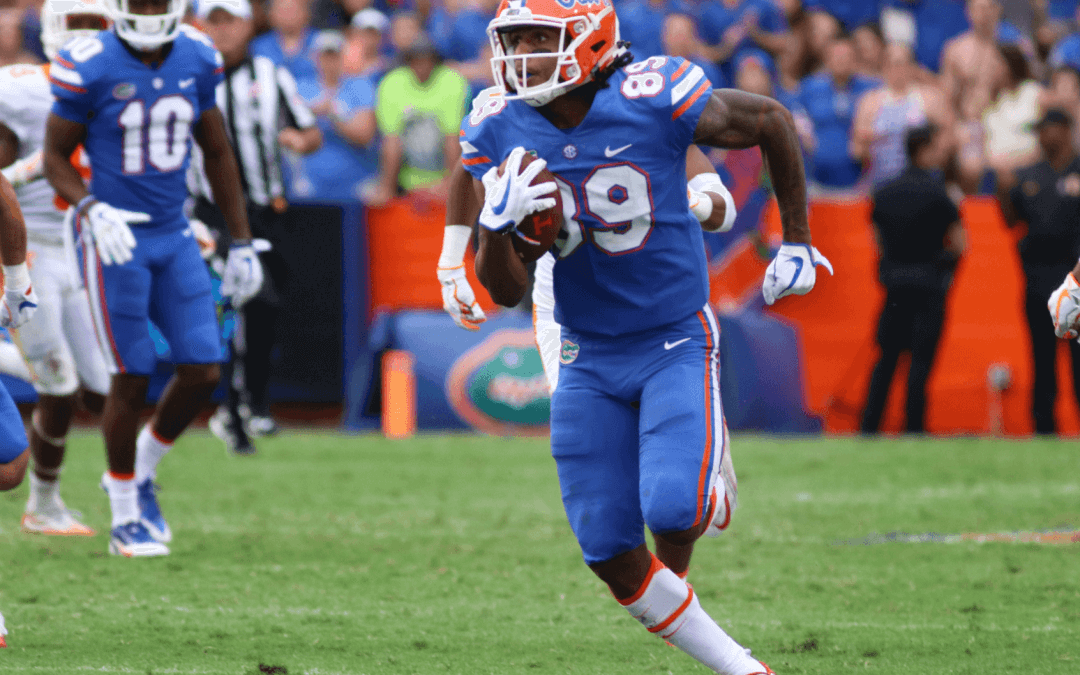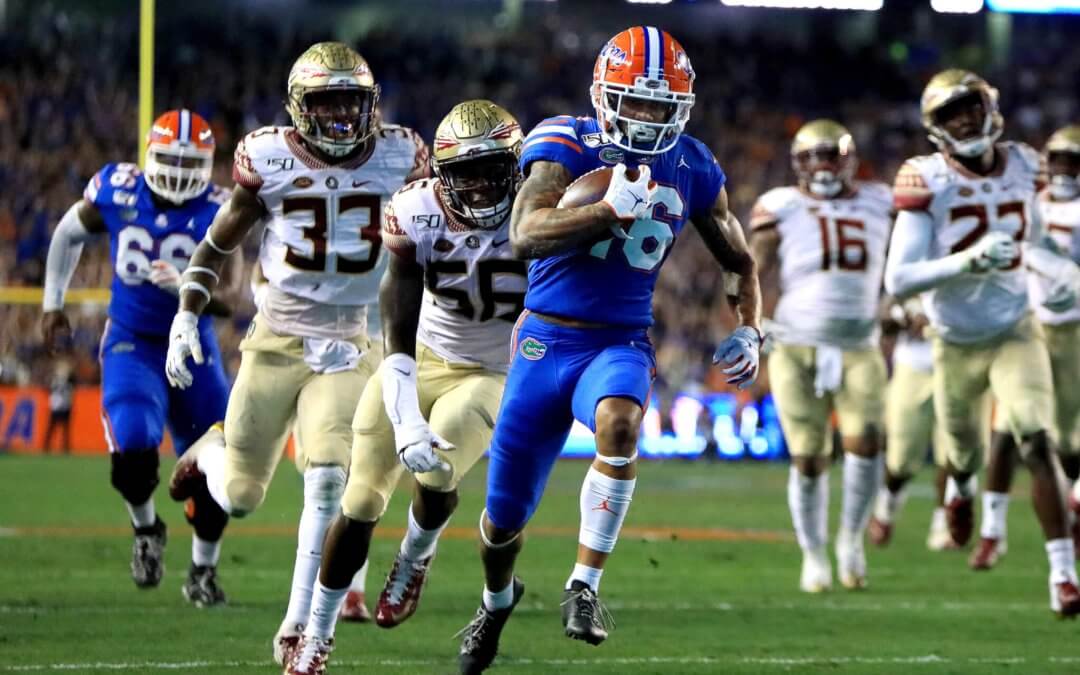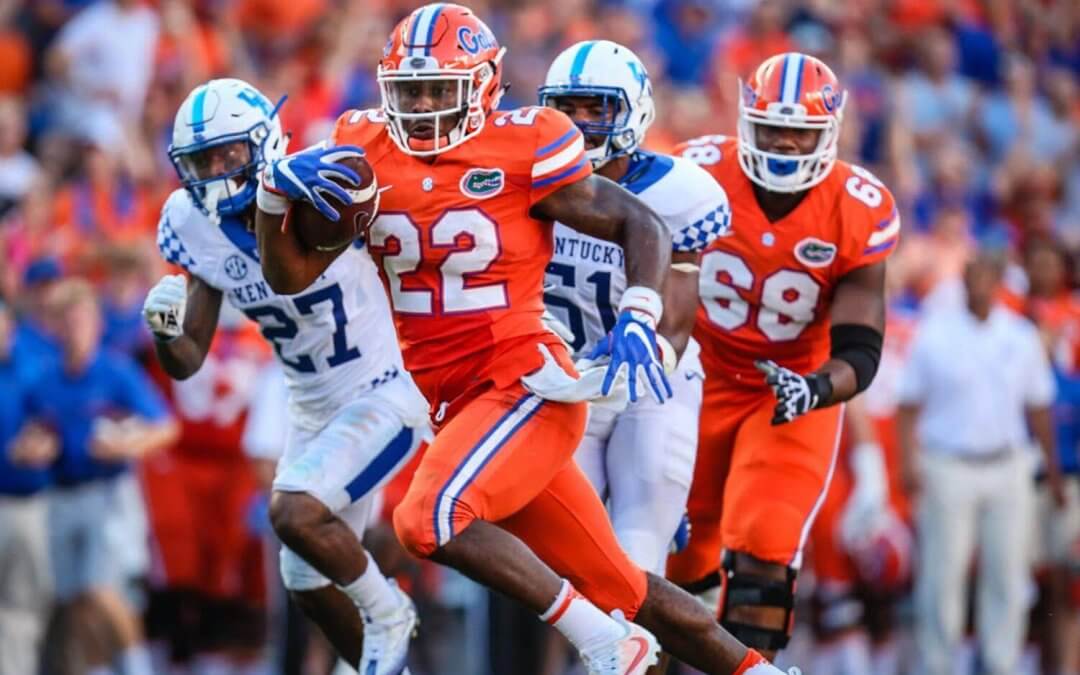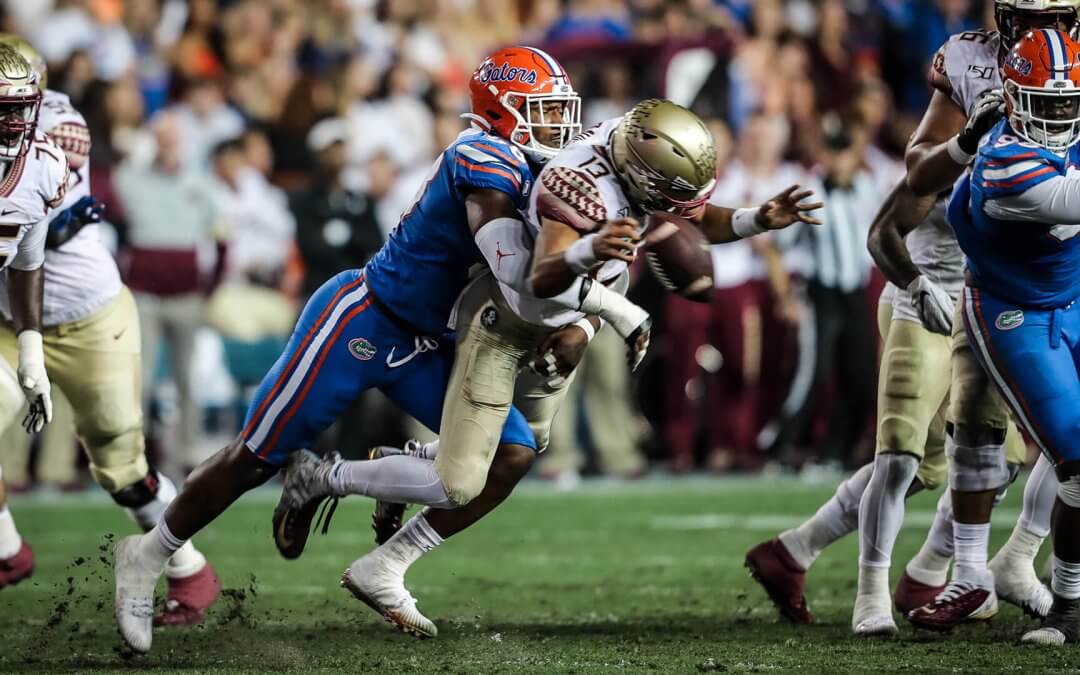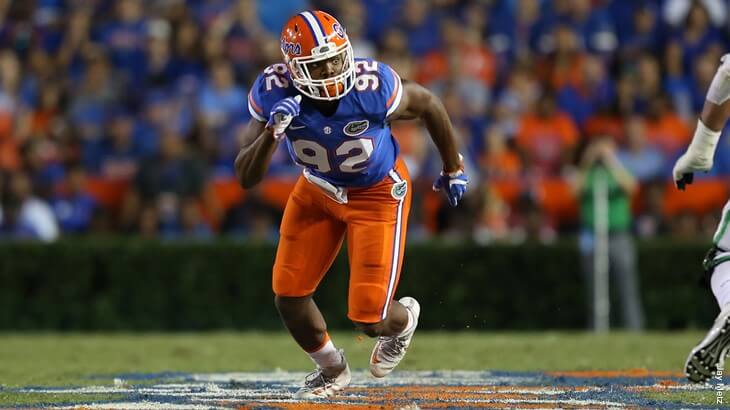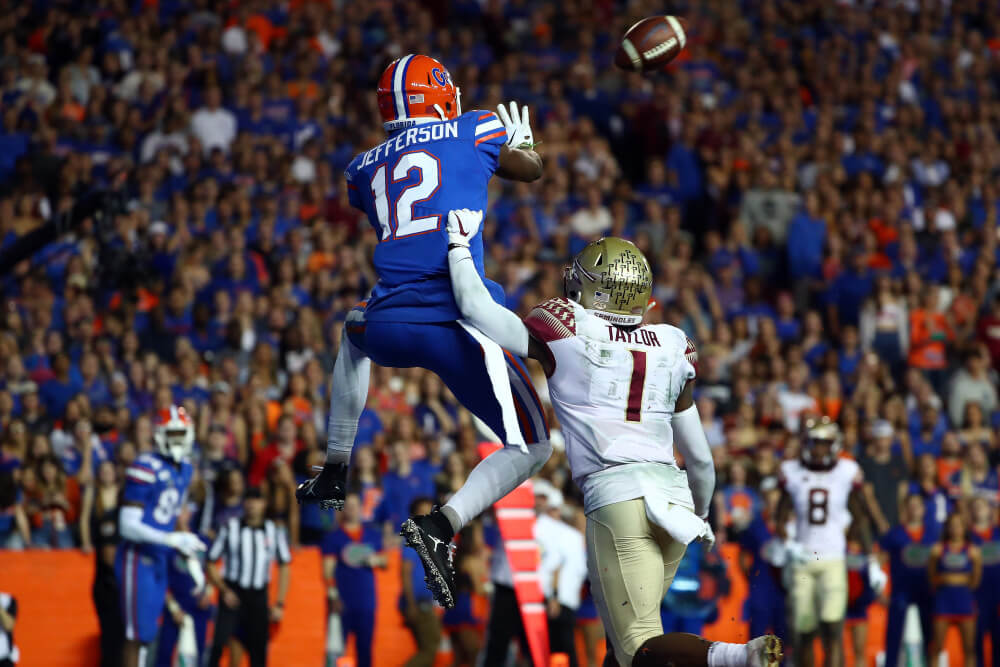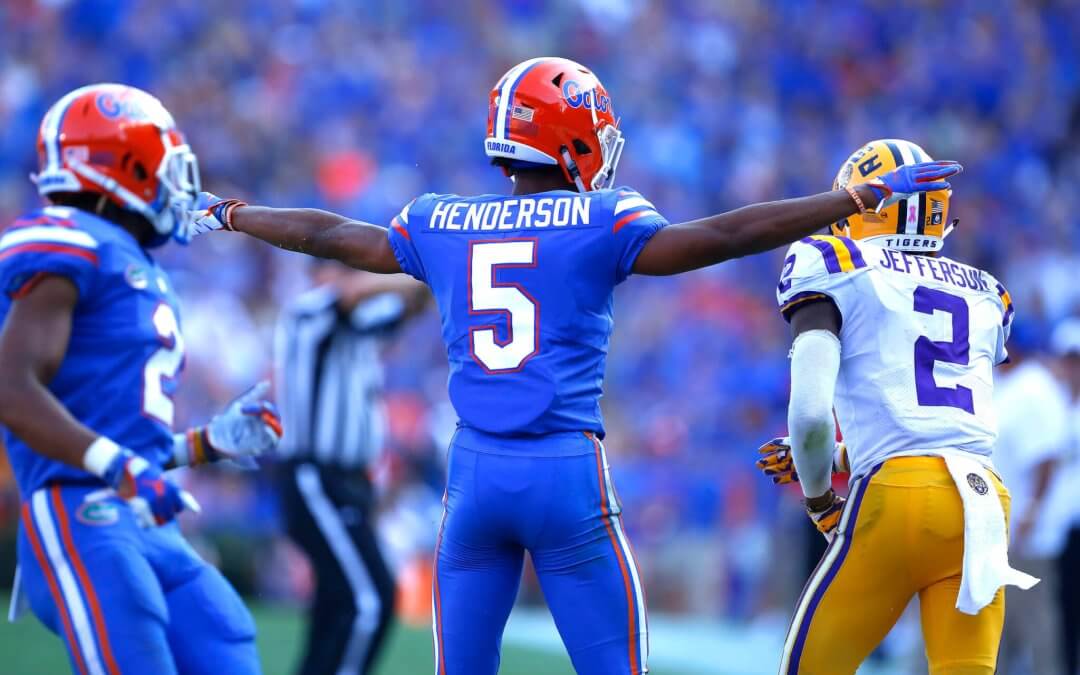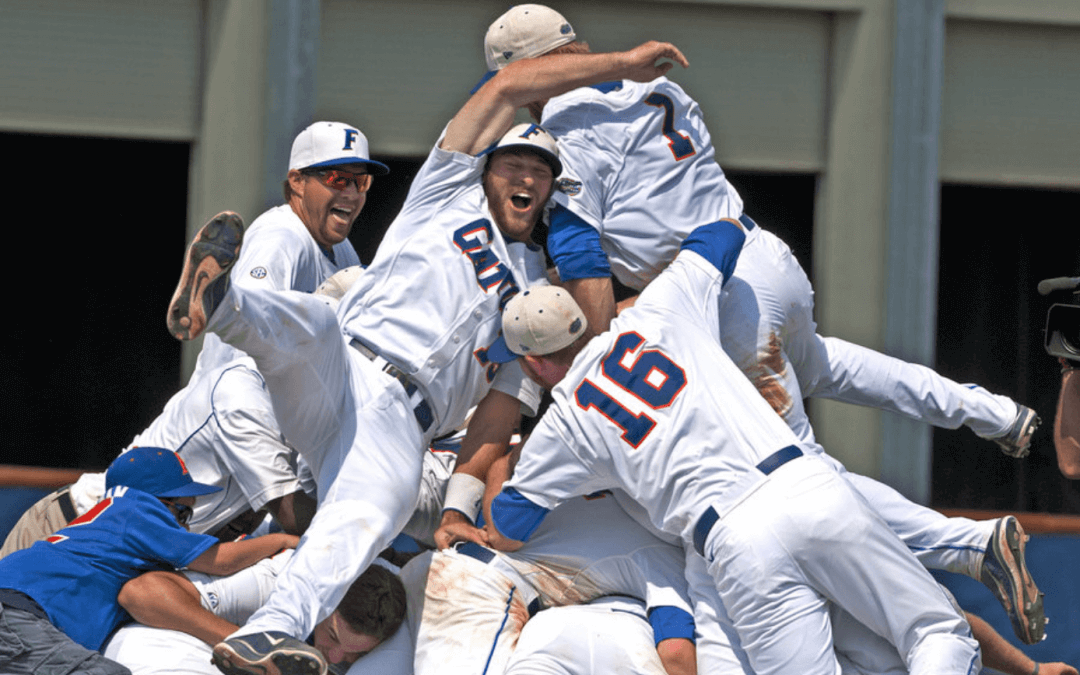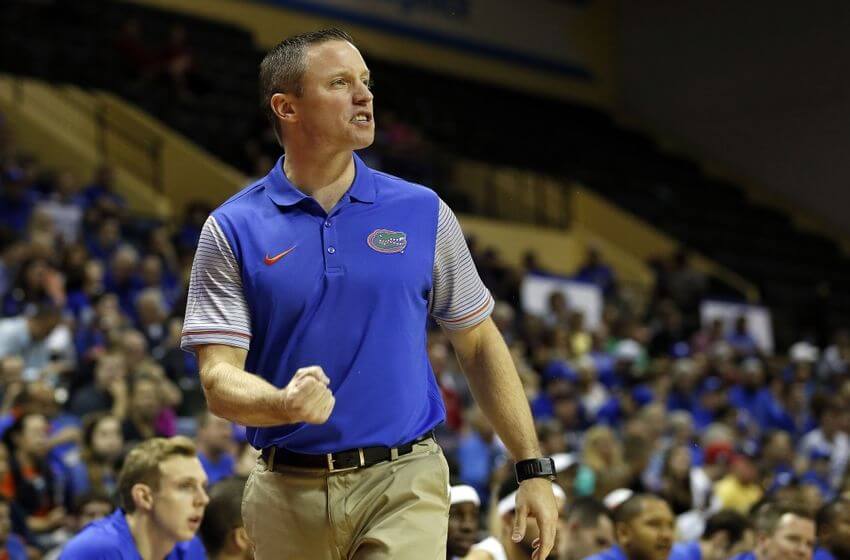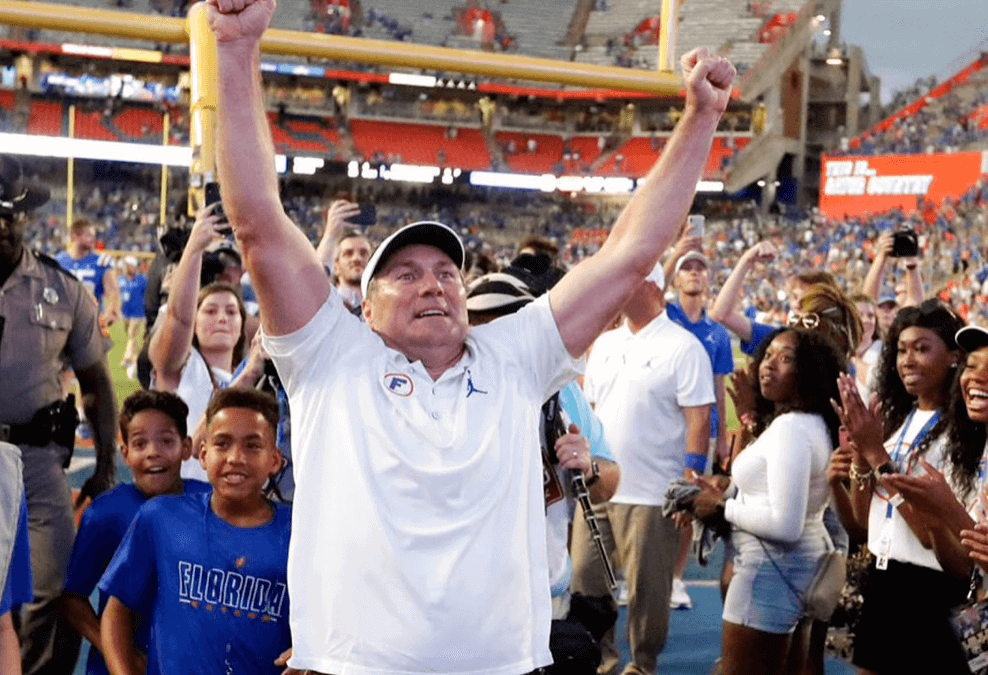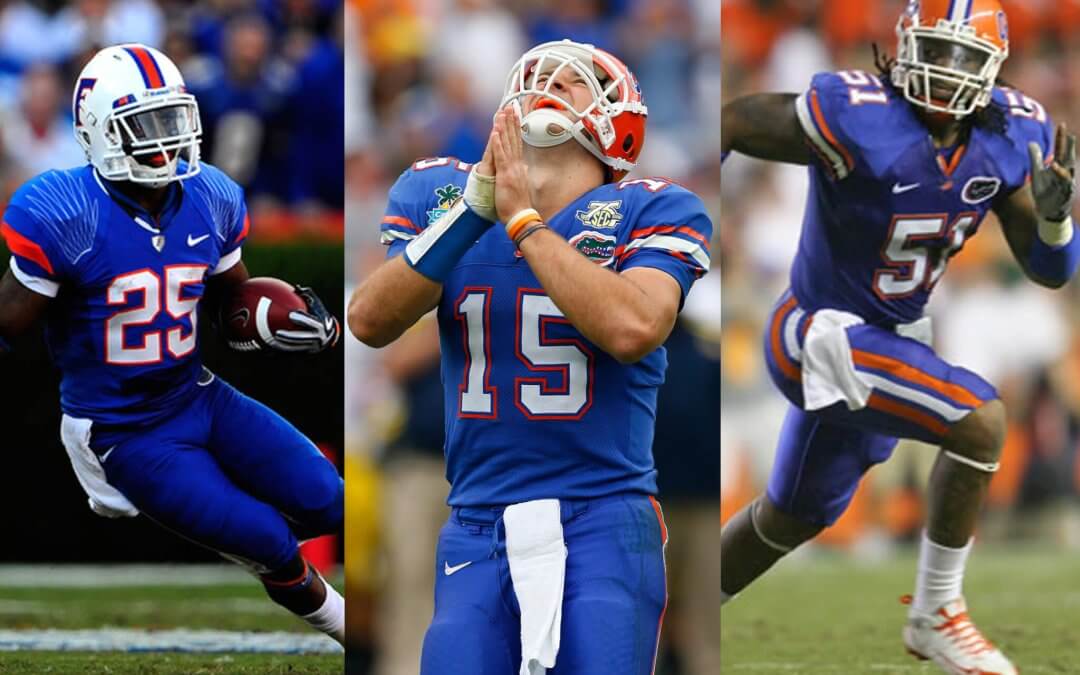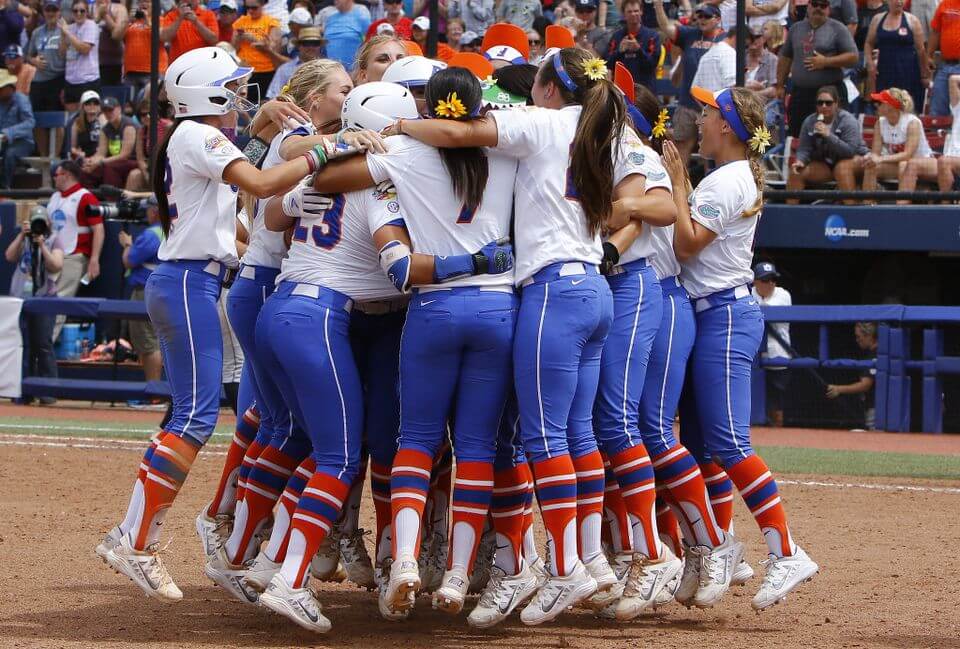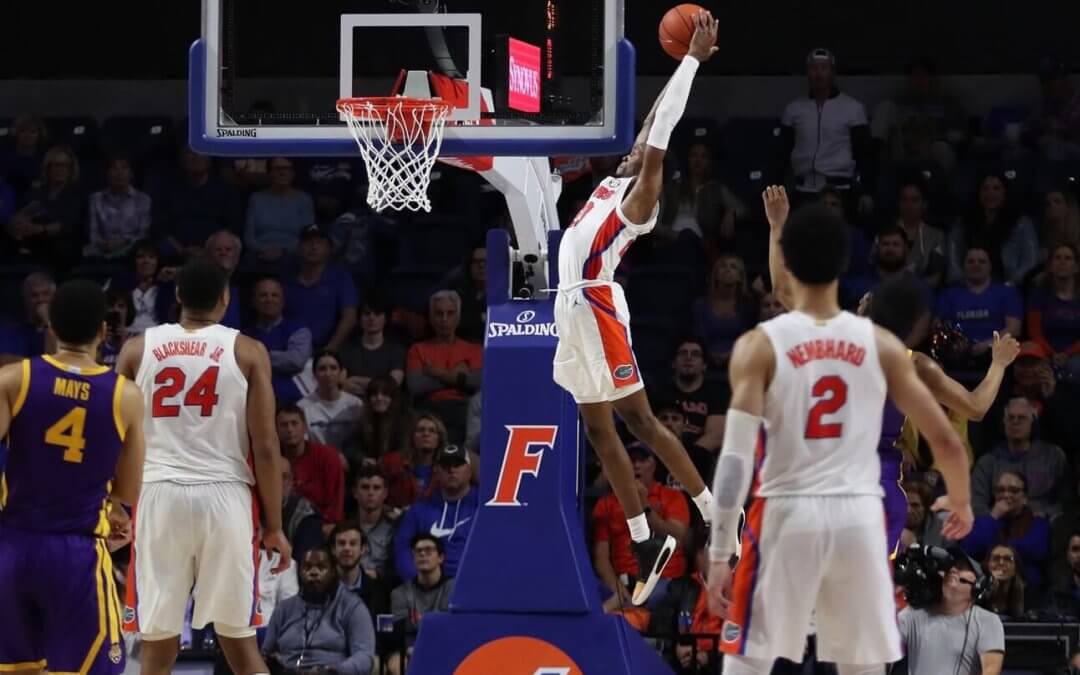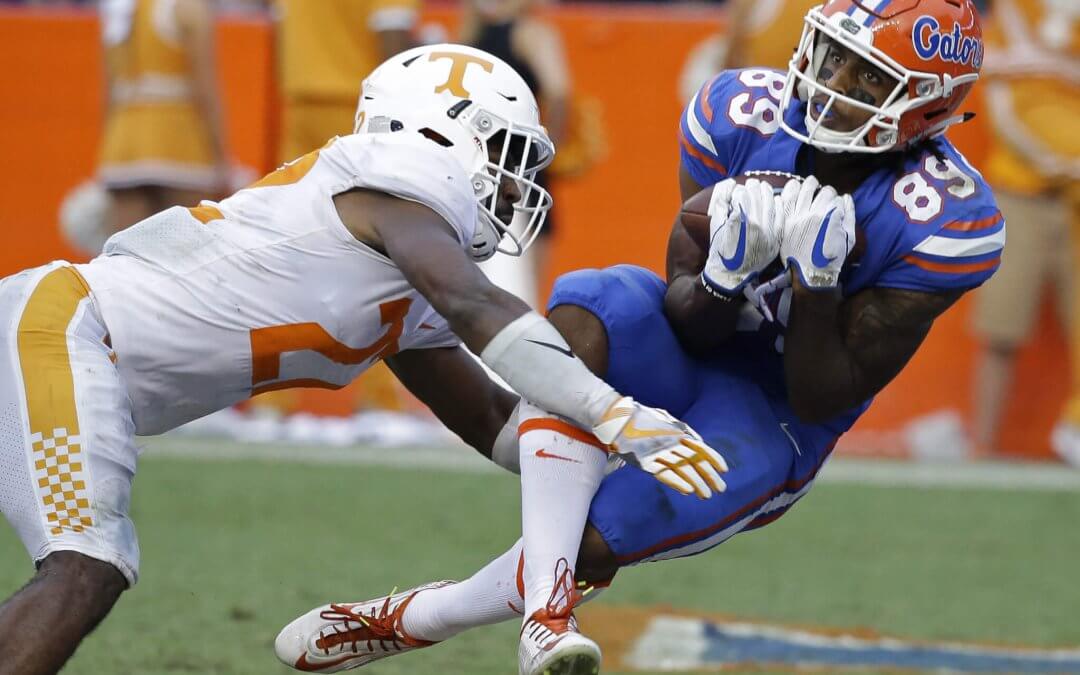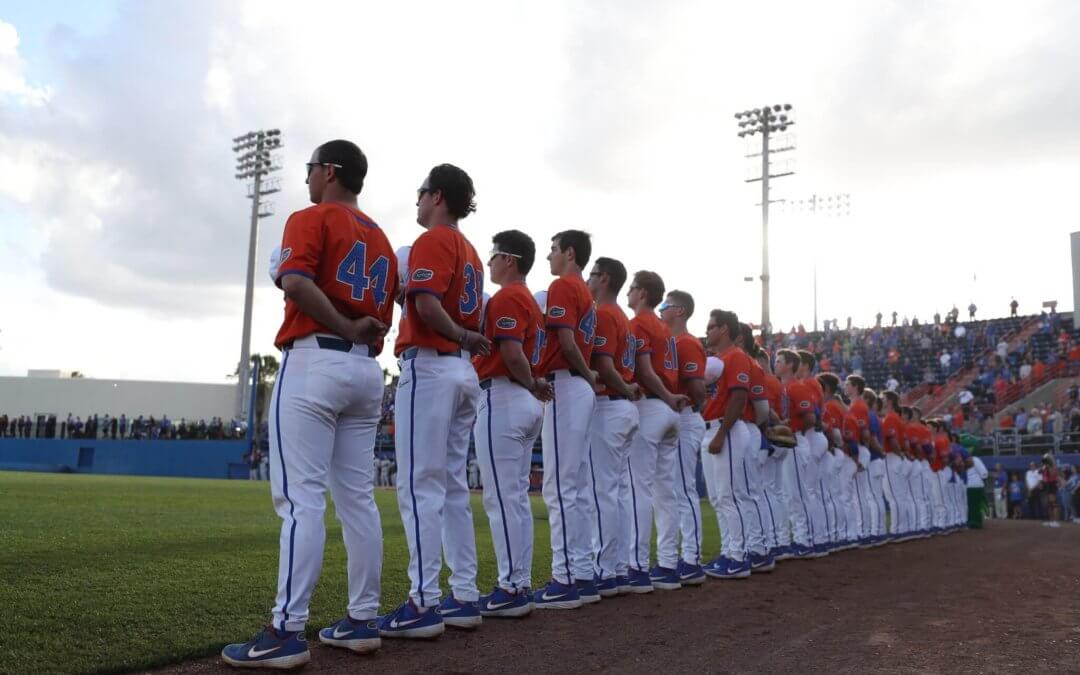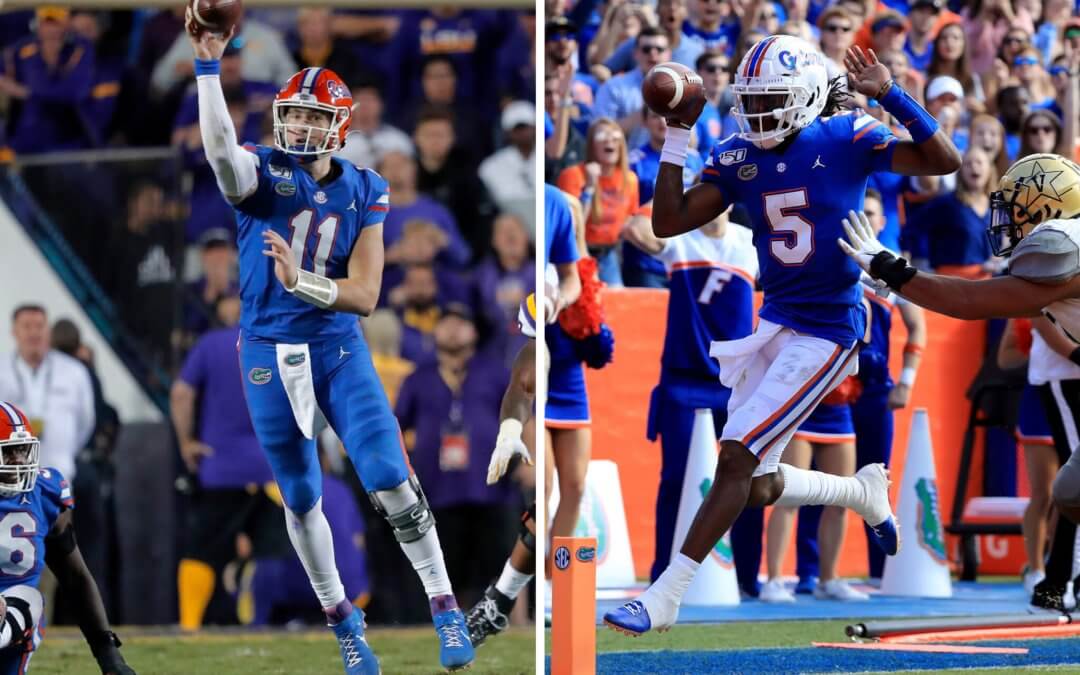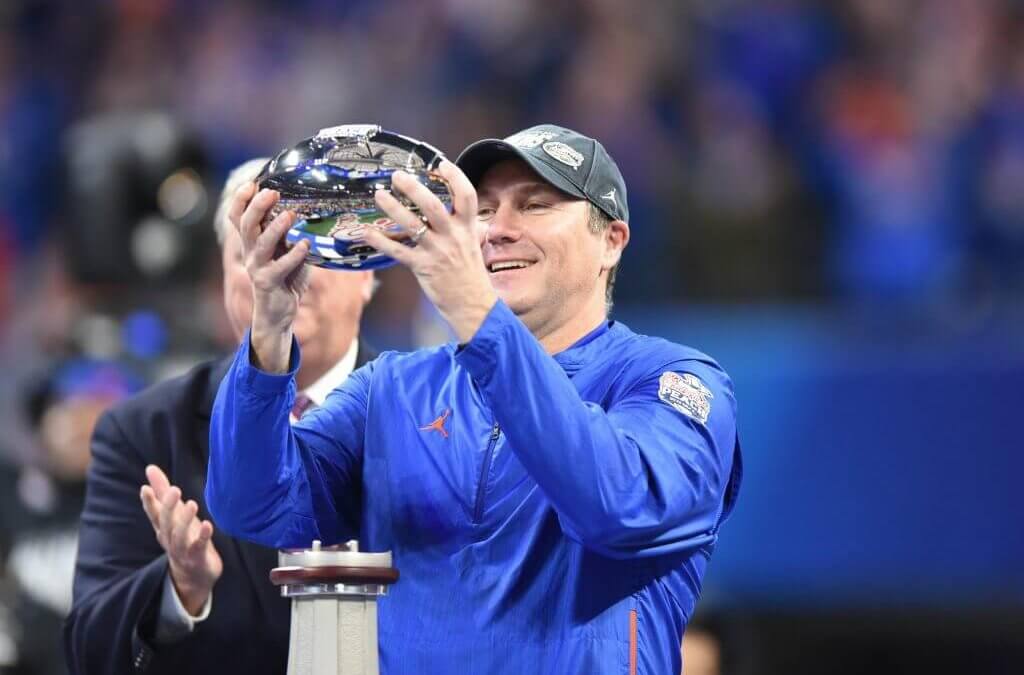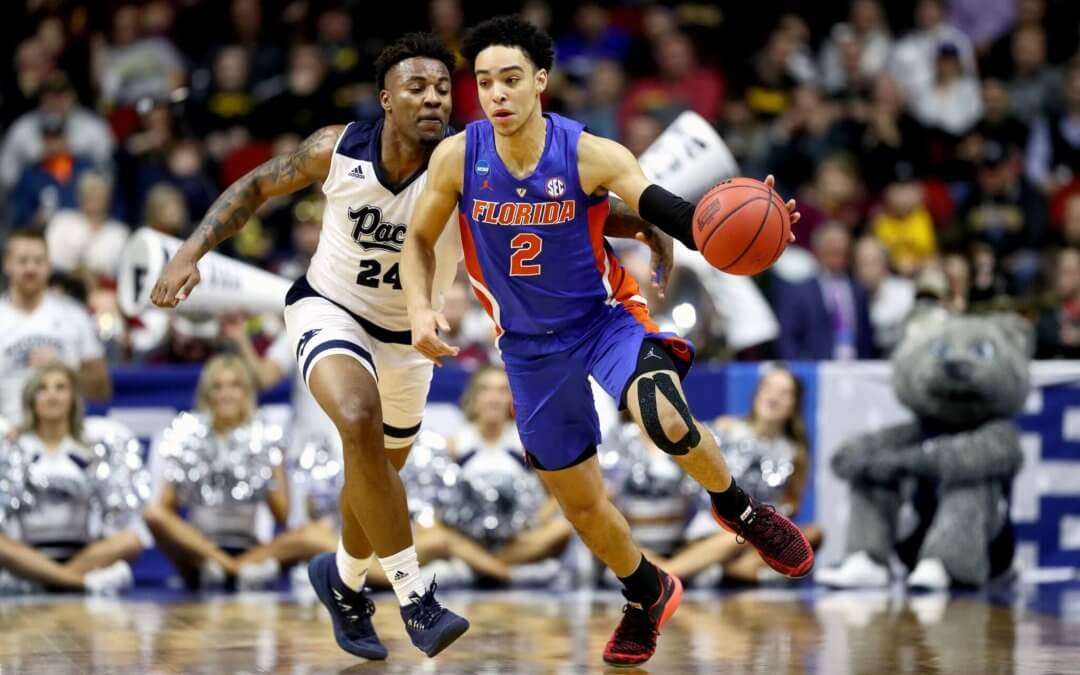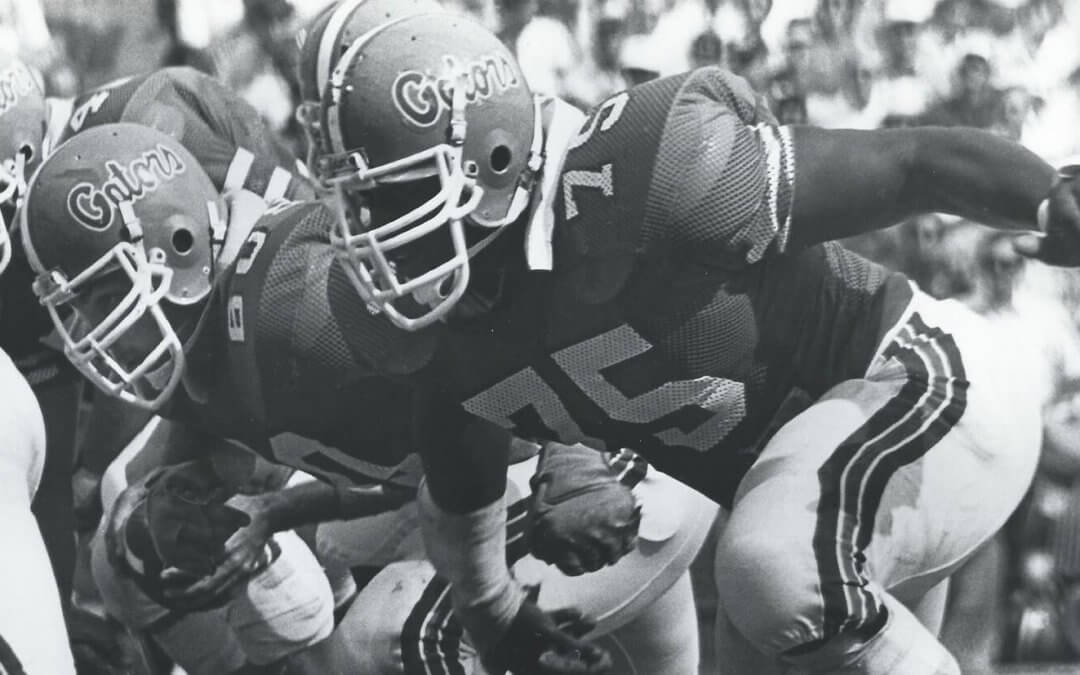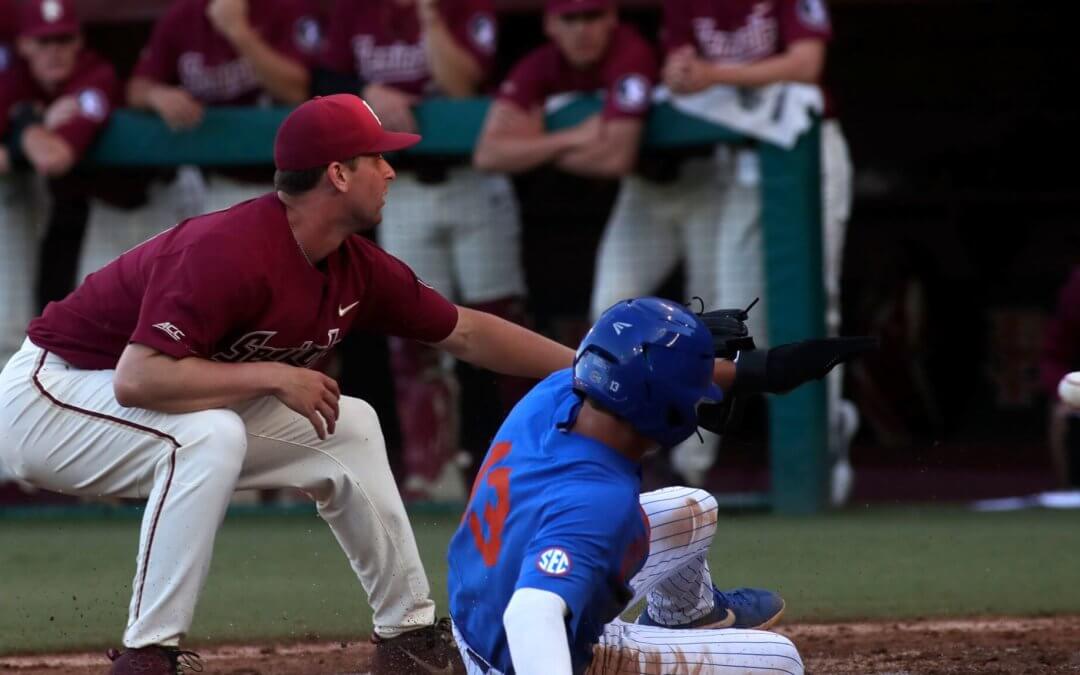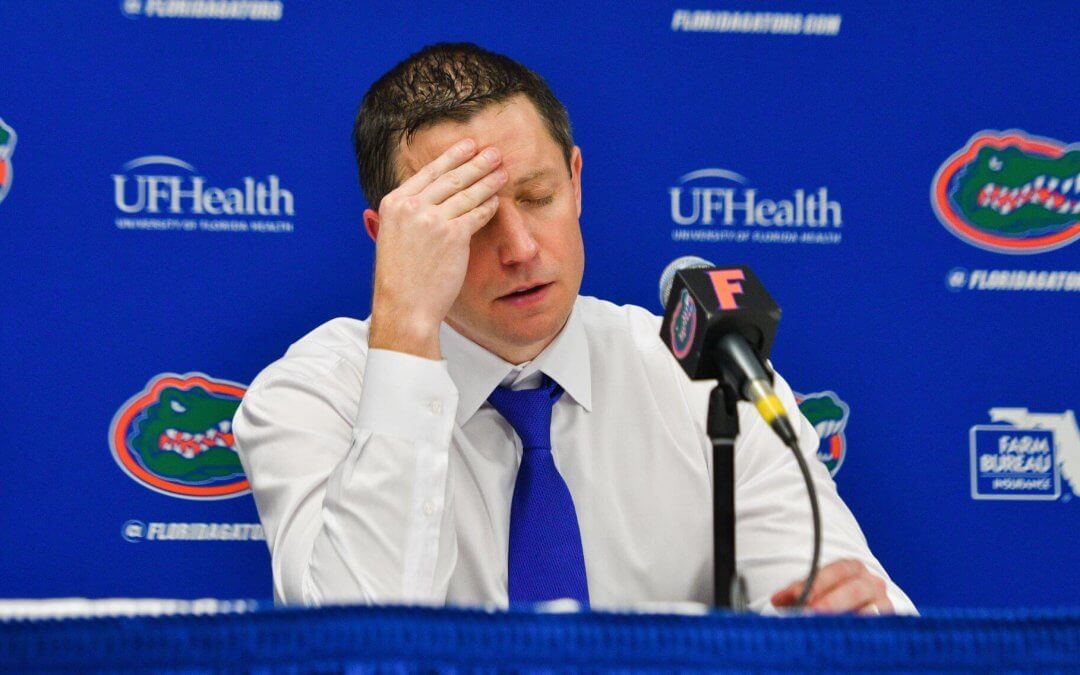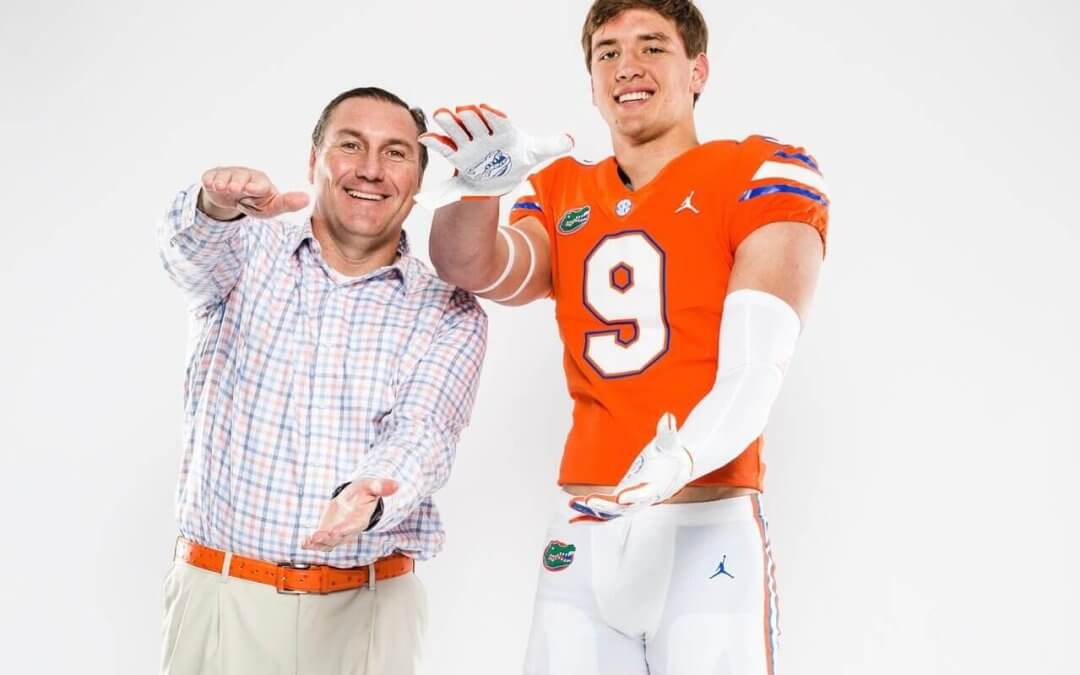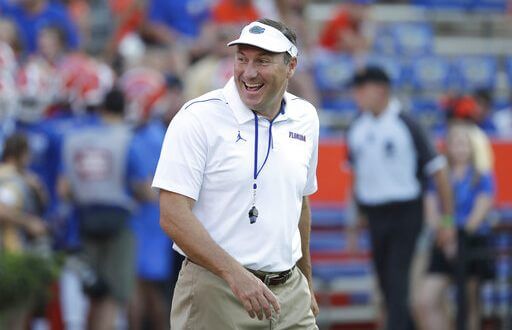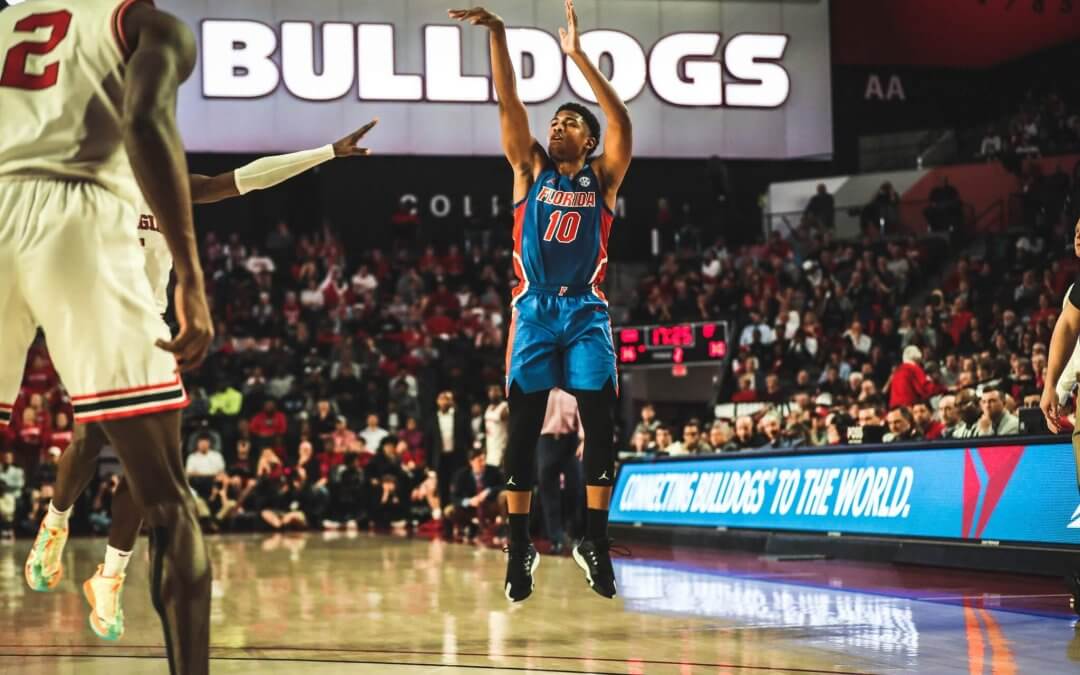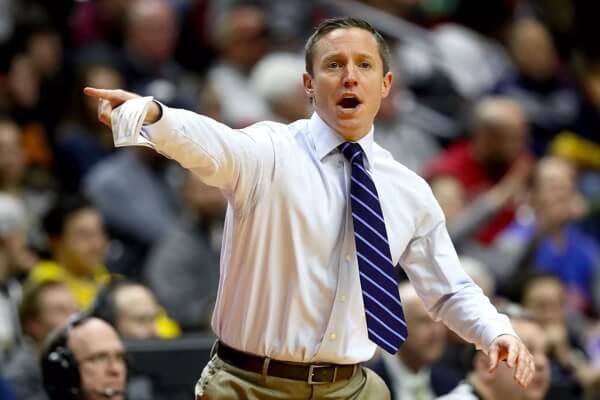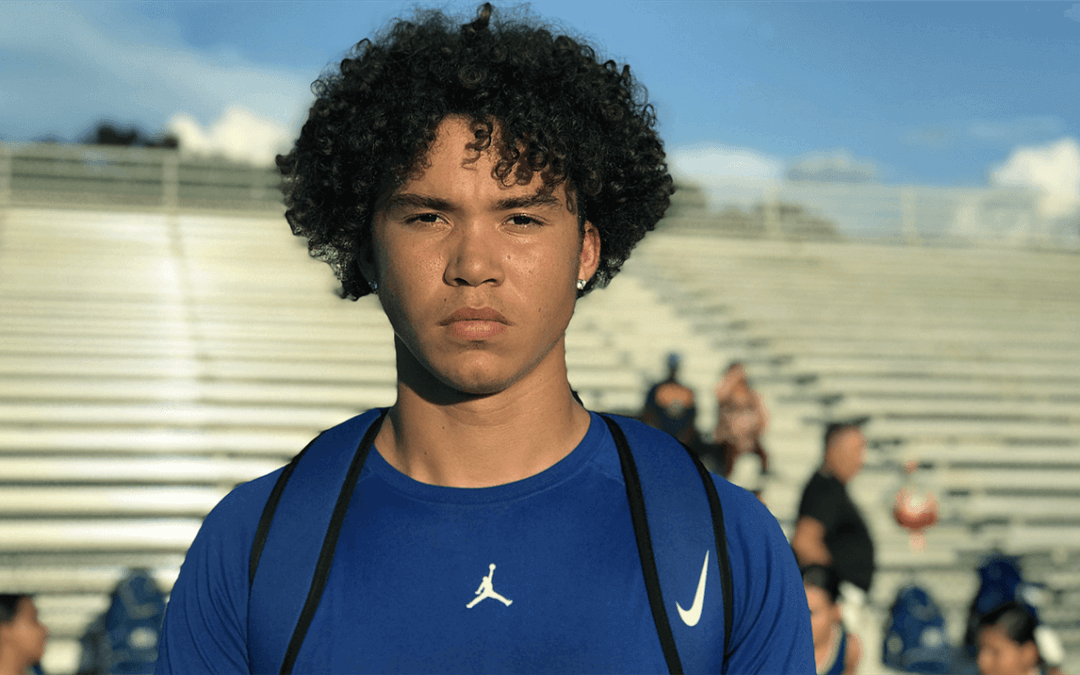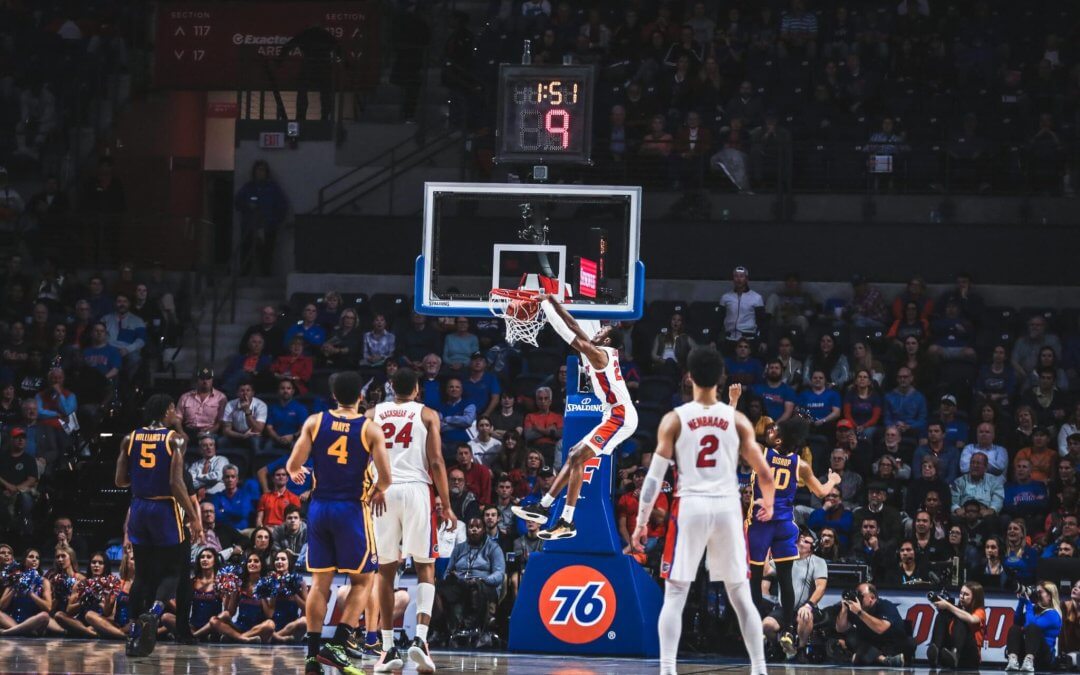What does it mean to be entitled?
The dictionary definition is “believing oneself to be inherently deserving of privileges or special treatment.” In practice, it’s more complicated.
There was a one minute, three play sequence in the third quarter last Saturday night that provides an object lesson. First, Florida throws a bubble screen to Demarcus Robinson, the unbounded talent from Fort Valley, Georgia who earlier in the week missed a team meal and found himself third string. The play works well enough- Robinson gets a block and does a shimmy shake and then another, picking up a first down and getting hit out of bounds. Robinson protests with his arms, the crowd roars for a late hit penalty, and none comes. Robinson was on the edge of the boundary, and it’s no wonder he was hit: here’s how he was holding the ball on the play.
When you’re Deion Sanders, this is still stupid but at least you have a nickname like Prime Time and a bust in Canton. When you’re Demarcus Robinson, this is stupid and there’s no chance you’re coached to carry the ball like this, up four touchdowns or down four points. When you do carry the ball like a loaf of bread, you might end up getting hit when you’re just out of bounds. That’s bad ball security and the well-coached team on the other sideline that’s winning the game knows it. They want the ball back.
On second down, the Gators run Brandon Powell on a delay for three yards. It’s not a play that gets the team off-schedule on second down, but oddly, Powell isn’t helped up by lineman moping back to the line of scrimmage. Powell, used minimally in the game to that point, also walks back to the huddle, head down. Not exactly inspiring leadership from one of the two SEC Media Days representatives you have on the field that night.
Finally, on second down and seven, Florida again throws a bubble screen to Robinson, who catches the ball, makes a move, and picks up a first down before again getting hit out of bounds. This time, he draws a flag, and as he heads back to the huddle, he waves his arms up and down, presumably to celebrate the play, penalty and fire up the crowd.
How does DeMarcus Robinson define a successful play? https://t.co/h4qYuhyh2k
— InAllKindsOfWeather.com (@AllKindsWeather) September 16, 2015
It was an instructive moment on a seemingly innocuous play.
What is Demarcus Robinson’s definition of success? Is it gaining 8 yards on a bubble screen in the third quarter of a home game where the you are trailing a Group of Five opponent? Certainly it appeared that way. If an eight yard gain against ECU is Robinson’s definition of success- and he’s a star on this Gator football team, regardless of whether he decides he should have dinner with his teammates or not—what does that say about the leadership structure on the football team? And how low is the bar set for what constitutes success?
This, I think, is what Jim McElwain meant when he referenced a culture of entitlement at his fiery postgame press conference. And it’s why he asked a pivotal question- perhaps the pivotal question as the Gators enter a three week stretch that will, make no mistake, define their opening season under their new coach: “How about being invested?”
The Gators have work to do.
No one said it was going be easy. Even if the sold out, sun-splashed Swamp on opening weekend made it tempting to feel that way, underneath an avalanche of points and perfectly-crafted ball plays. Only two weeks into the season, Jim McElwain’s maiden voyage as head coach of the tinderbox that is the Florida football program has already faced adversity straight-on, and their response (both the players’ and the new head coach) wasn’t exactly to resoundingly knock of the grin off its face, no matter how great a pregame video makes you want to believe that’s so.
Everything felt different Saturday night.
The environment was less electric, the students late by even their own untimely standards and the road team represented surprisingly well. The weather wasn’t good, spitting rain on and off souring the unusually cool and (gasp) comfortable temperatures for early September.
The Gators wore the all-orange uniforms Steve Spurrier abolished at his opening press conference in January of 1990- noting that the Gators hadn’t done “much winning” in them without cheating, which of course was true. The jerseys beckon back to a time when losing to Kentucky happened: ironic heading into this week. That the players don’t remember that or care or likely even know that orange was the color of Florida mediocrity shows both their youth and my age. Brmingham Bowls may have been won in orange jerseys, but it’s hard to think of what else they’re good for (editor’s note: needing a walk-off blocked punt to beat another non power school in Louisiana-Lafayette), and Saturday was another exhibit.
The game even felt different on television. Sure, ESPN 2 carried the game, but that meant no Brent Musburger for the fans at home, which the misguided may view as a blessing but the devoted understand diminishes things.
The players felt a difference too, according to McElwain. It started, the coach said, at a Monday meeting when 30 players failed to tape their ankles before a session. It continued to a mediocre Wednesday practice and filtered onto the field for the opening drive, where a vaunted secondary, now missing two starters, one of whom is the football team’s finest player, surrendered a stunningly easy touchdown drive to a quarterback who until two weeks ago was planning to spend his season as an understudy. The largest warning sign? hen, The attention to detail and focus that helped the team commit only one penalty in week one saw its opposite: a lack of focus and cohesion and twelve penalties against a better opponent.
Everything felt different because everything was different.
The head coach was different too.
The laid back Montana man from the rubber chicken circuit who charmed the boosters nearly as much as Mike White vanished Saturday night under the bright and misty lights of Florida Field. Dorothy, you’re not in Fort Collins anymore. The McElwain revolution won’t just be televised; it will be Twitterized, Snapchatted, Instagrammed, Vined and Finebaum-sized, and reviews on Mac’s first pressurized examination are mixed.
Much has been made of his very visible tirade towards Kelvin Taylor following the junior running back’s throat slash touchdown celebration. In a universe of technologically advanced means of communication, it was inevitable that the tongue-lashing go immediately viral.
And once ESPN’s Bomani Jones adopted the cause with tweets here and here, the question of whether McElwain’s response was appropriate wasn’t going away, even if Jones’s righteous indignation quickly degenerated from making reasonable though debatable moral pronouncements to making fun of people who disagree with him because he feels they have unattractive wives (always a credible argument, Bomani).
You can read different takes on the McElwain-Taylor incident here, here and here (and probably elsewhere, really). All are different, but oddly, none are particularly wrong.
Football is a violent sport, but a throat slash after a score is an evocation of fundamentally different violence. If an opposing player did it to Florida, fans would howl and hiss, and not without reason. There’s no need for it in the sport and it does, as McElwain noted postgame, embarrass both the player and the program. Still, there aren’t moments anymore when the cameras aren’t on. What value is there in showing up a young man publicly? Particularly a young man Saturday night led his teammates out of the tunnel, and who by every account attends class, practices hard and conducts himself admirably off the football field?
It is useful to remember here that Kelvin Taylor is Fred Taylor’s son, but not for the reasons you think. It’s less about Kelvin being the son of a famous athlete and more about him being the son of a Gator, one who wore bandanas back when they were called “do rags” and in doing so subjected himself to labels by certain elements of the Florida fan base. Yes, something that ridiculous was controversial only 20 years ago. We’ve come a long way, even if it often feels like we have not.
Fred Taylor kept wearing do-rags, because that’s who he was. This isn’t to compare an inexcusable throat slash to a harmless do-rag, but rather a useful way of illustrating that Taylor’s father understands the power of symbols and the power of labels and words. He’s right when he noted that his son made a mistake. He’s also right when he noted that history mocks coaches that react the way McElwain did, at least publicly, to that type of mistake. Apparently McElwain’s mother knows it too, and a coach who preaches “make good choices” as being fundamental to his program and to the young men he hopes it develops will have to move on from a bad, even if understandable, choice of his own. Maybe it was McElwain using one player’s selfish act to exorcise an entire evening of frustration. It certainly felt that way. But the fact is that it was childlike and daft. And McElwain must strive to be better.
Bad choices were made Saturday night, by players and by coaches. But the Gators won. That’s the good news.
The great news? This Gators football team won’t be defined by a sloppy, one touchdown victory over East Carolina anymore than it will be defined by a glorious opening night romp over an overmatched New Mexico State.
The late great John Wooden liked to say that when opportunity comes, it’s too late to prepare. Jim McElwain has framed the year as one with fourteen to fifteen opportunities. The Gators have taken full advantage of one and very little advantage of another. At least ten more opportunities are guaranteed. How the Gators prepare for those opportunities will help define the season. The next three games, in particular, are critical.
Kentucky is first. They are 2-0, which a host of teams in America would love to be. They have a Mark Stoops coached defense, featuring a splendid linebacker corps that will challenge both of Florida’s young quarterbacks. They have a terrific quarterback in Patrick Towles, who lit up a young Florida secondary in the Swamp last year (though he also threw 3 interceptions). They have a veteran offensive line, three different but explosive running backs in Bo Williams, Mikel Horton and Jojo Kemp, and better depth than they’ve had since the Rich Brooks era. They are at home, in a renovated stadium that’s always been sneaky loud, and they will expect to win.
I’ve little doubt the Gators are having and will continue to have a great week of practice. I believe the Gators will remember how close UK was to ending the winning streak last season in Gainesville and they’ll use that as further motivation to prepare accordingly. I think a close home win on a night where they didn’t perform well following a week where they didn’t prepare well has a chance to serve the team well, long-term. The question is will it serve them well in Lexington?
My father used to tell me that the world owes you nothing. There is nothing you are entitled to anymore than the next person. He also told me that everything is yours, you just have to be desperate for it. Prepare and make your best better. Everything is yours. Everything is not yours.
I think this is what Billy Donovan meant when he talked so frequently about the most desperate team winning. Kentucky will expect to win Saturday night in Lexington, despite the losing streak against Florida. The Gators aren’t entitled to win, no matter how long the winning streak against Kentucky. Will the Gators be invested this week in practice? Are they committed to each other? Will they be the most desperate to win? What if they are and that’s not enough Saturday night? That’s possible too, after all. The other guys practice hard and the other guys want to win. The thinking here is that the Gators are somewhere north of their performance Saturday and south of their performance in the season opener.
We’ll learn more Saturday night. And then we’ll come home for Tennessee. And we know the Vols will be desperate.
